1309 papers:
 CBSE-2015-BenesDHKN #composition #testing
CBSE-2015-BenesDHKN #composition #testing- Complete Composition Operators for IOCO — Testing Theory (NB, PD, TAH, JK, DN), pp. 101–110.
 QoSA-2015-ArcelliCFL #adaptation #modelling
QoSA-2015-ArcelliCFL #adaptation #modelling- Control Theory for Model-based Performance-driven Software Adaptation (DA, VC, AF, AL), pp. 11–20.
 SIGMOD-2015-ChuBS #database #evaluation #parallel #performance #query #theory and practice
SIGMOD-2015-ChuBS #database #evaluation #parallel #performance #query #theory and practice- From Theory to Practice: Efficient Join Query Evaluation in a Parallel Database System (SC, MB, DS), pp. 63–78.
 ITiCSE-2015-BergesH #evaluation #source code
ITiCSE-2015-BergesH #evaluation #source code- Evaluation of Source Code with Item Response Theory (MB, PH), pp. 51–56.
 ESOP-2015-NeronTVW #formal method
ESOP-2015-NeronTVW #formal method- A Theory of Name Resolution (PN, APT, EV, GW), pp. 205–231.
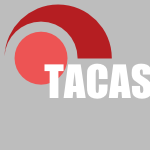 TACAS-2015-SebastianiT #cost analysis #modulo theories #optimisation
TACAS-2015-SebastianiT #cost analysis #modulo theories #optimisation- Pushing the Envelope of Optimization Modulo Theories with Linear-Arithmetic Cost Functions (RS, PT), pp. 335–349.
 PLDI-2015-LalQ #graph #source code
PLDI-2015-LalQ #graph #source code- DAG inlining: a decision procedure for reachability-modulo-theories in hierarchical programs (AL, SQ), pp. 280–290.
 STOC-2015-BourgainDN #formal method #reduction #towards
STOC-2015-BourgainDN #formal method #reduction #towards- Toward a Unified Theory of Sparse Dimensionality Reduction in Euclidean Space (JB, SD, JN), pp. 499–508.
 SEFM-2015-LohstrohL #interface #internet
SEFM-2015-LohstrohL #interface #internet- An Interface Theory for the Internet of Things (ML, EAL), pp. 20–34.
 CHI-2015-0001GH #challenge #design #framework #human-computer
CHI-2015-0001GH #challenge #design #framework #human-computer- Bridging the Theory-Practice Gap: Lessons and Challenges of Applying the Attachment Framework for Sustainable HCI Design (CR, SG, EMH), pp. 1305–1314.
 CHI-2015-GunaratneN #behaviour #performance #user interface #using
CHI-2015-GunaratneN #behaviour #performance #user interface #using- Informing and Improving Retirement Saving Performance using Behavioral Economics Theory-driven User Interfaces (JG, ON), pp. 917–920.
 CSCW-2015-Anya #design #exclamation #question #what
CSCW-2015-Anya #design #exclamation #question #what- Bridge the Gap!: What Can Work Design in Crowdwork Learn from Work Design Theories? (OA), pp. 612–627.
 CSCW-2015-KangLOKHS #comprehension #facebook #process #relational #towards
CSCW-2015-KangLOKHS #comprehension #facebook #process #relational #towards- Towards Understanding Relational Orientation: Attachment Theory and Facebook Activities (BK, SL, AO, SK, IH, JS), pp. 1404–1415.
 CSCW-2015-MoghaddamNB #design #distributed #named
CSCW-2015-MoghaddamNB #design #distributed #named- Procid: Bridging Consensus Building Theory with the Practice of Distributed Design Discussions (RZM, ZN, BPB), pp. 686–699.
 DHM-HM-2015-FassG #modelling #physics #towards
DHM-HM-2015-FassG #modelling #physics #towards- Towards a Theory for Bio — — Cyber Physical Systems Modelling (DF, FG), pp. 245–255.
 DUXU-DD-2015-Jin #constraints #design #experience #formal method
DUXU-DD-2015-Jin #constraints #design #experience #formal method- The Conflict Resolution in Product Experience Design Based on Evaporating Cloud of the Theory of Constraints (LJ), pp. 53–62.
 HCI-DE-2015-Bakke #approach #process
HCI-DE-2015-Bakke #approach #process- An Activity Theory Approach to Intuitiveness: From Artefact to Process (SB), pp. 3–13.
 HCI-DE-2015-SugiuraSO #implementation #metric #security #using
HCI-DE-2015-SugiuraSO #implementation #metric #security #using- Improving IT Security Through Security Measures: Using Our Game-Theory-Based Model of IT Security Implementation (MS, HS, TO), pp. 82–95.
 HCI-IT-2015-GobenaAGE #design #user interface
HCI-IT-2015-GobenaAGE #design #user interface- Delegation Theory in the Design of Cross-Platform User Interfaces (DLG, GNPA, AJPG, DE), pp. 519–530.
 HIMI-IKC-2015-PatitadS #collaboration #representation
HIMI-IKC-2015-PatitadS #collaboration #representation- Representation Model of Collaboration Mechanism with Channel Theory (PP, HS), pp. 511–521.
 SCSM-2015-NguyenJP #design #framework #mobile #perspective #self #social
SCSM-2015-NguyenJP #design #framework #mobile #perspective #self #social- Designing a Social Mobile Platform for Diabetes Self-management: A Theory-Driven Perspective (HDN, XJ, DCCP), pp. 67–77.
 ICEIS-v1-2015-ZhengLL #contest
ICEIS-v1-2015-ZhengLL #contest- A Game-theory based Model for Analyzing E-marketplace Competition (JZ, WL, DLL), pp. 650–657.
 ECIR-2015-KuytenBHPA
ECIR-2015-KuytenBHPA- A Discourse Search Engine Based on Rhetorical Structure Theory (PK, DB, BH, HP, KA), pp. 80–91.
 ICML-2015-Lopez-PazMST #learning #towards
ICML-2015-Lopez-PazMST #learning #towards- Towards a Learning Theory of Cause-Effect Inference (DLP, KM, BS, IT), pp. 1452–1461.
 ICML-2015-Yang0JZ15a #random #reduction
ICML-2015-Yang0JZ15a #random #reduction- Theory of Dual-sparse Regularized Randomized Reduction (TY, LZ, RJ, SZ), pp. 305–314.
 KDD-2015-CortesMM #adaptation #algorithm
KDD-2015-CortesMM #adaptation #algorithm- Adaptation Algorithm and Theory Based on Generalized Discrepancy (CC, MM, AMM), pp. 169–178.
 KDD-2015-RiondatoU15a #algorithm #learning #statistics
KDD-2015-RiondatoU15a #algorithm #learning #statistics- VC-Dimension and Rademacher Averages: From Statistical Learning Theory to Sampling Algorithms (MR, EU), pp. 2321–2322.
 MoDELS-2015-AmalioLG #formal method #named
MoDELS-2015-AmalioLG #formal method #named- Fragmenta: A theory of fragmentation for MDE (NA, JdL, EG), pp. 106–115.
 ECOOP-2015-LeeASP #formal method
ECOOP-2015-LeeASP #formal method- A Theory of Tagged Objects (JL, JA, TS, AP), pp. 174–197.
 Onward-2015-Jackson #concept #design #formal method #towards
Onward-2015-Jackson #concept #design #formal method #towards- Towards a theory of conceptual design for software (DJ), pp. 282–296.
 SAC-2015-PintoMCS #process #using
SAC-2015-PintoMCS #process #using- Using event logs and the Ψ-theory to analyse business processes (PLP, CM, AC, MMdS), pp. 1195–1202.
 ICSE-v1-2015-Ralph #process #re-engineering
ICSE-v1-2015-Ralph #process #re-engineering- Developing and Evaluating Software Engineering Process Theories (PR), pp. 20–31.
 ICSE-v1-2015-WatermanNA #agile #architecture #how
ICSE-v1-2015-WatermanNA #agile #architecture #how- How Much Up-Front? A Grounded theory of Agile Architecture (MW, JN, GA), pp. 347–357.
 ICSE-v2-2015-ClarkFPY #re-engineering
ICSE-v2-2015-ClarkFPY #re-engineering- Information Transformation: An Underpinning Theory for Software Engineering (DC, RF, SMP, SY), pp. 599–602.
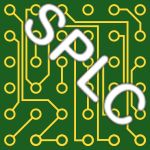 SPLC-2015-TeixeiraABG #evolution #product line #reasoning
SPLC-2015-TeixeiraABG #evolution #product line #reasoning- A product line of theories for reasoning about safe evolution of product lines (LT, VA, PB, RG), pp. 161–170.
 CADE-2015-AlamaOZ #automation #concept
CADE-2015-AlamaOZ #automation #concept- Automating Leibniz’s Theory of Concepts (JA, PEO, ENZ), pp. 73–97.
 CADE-2015-ChocronFR #revisited
CADE-2015-ChocronFR #revisited- A Polite Non-Disjoint Combination Method: Theories with Bridging Functions Revisited (PC, PF, CR), pp. 419–433.
 CADE-2015-SaghafiDD
CADE-2015-SaghafiDD- Exploring Theories with a Model-Finding Assistant (SS, RD, DJD), pp. 434–449.
 CAV-2015-DietschHLP #approach #ltl #model checking #modulo theories
CAV-2015-DietschHLP #approach #ltl #model checking #modulo theories- Fairness Modulo Theory: A New Approach to LTL Software Model Checking (DD, MH, VL, AP), pp. 49–66.
 CAV-2015-SebastianiT #modulo theories #named #optimisation
CAV-2015-SebastianiT #modulo theories #named #optimisation- OptiMathSAT: A Tool for Optimization Modulo Theories (RS, PT), pp. 447–454.
 CAV-2015-BansalR0BW
CAV-2015-BansalR0BW- Deciding Local Theory Extensions via E-matching (KB, AR, TK, CWB, TW), pp. 87–105.
 CAV-2015-ManoliosPP #framework #modulo theories #programming
CAV-2015-ManoliosPP #framework #modulo theories #programming- The Inez Mathematical Programming Modulo Theories Framework (PM, JP, VP), pp. 53–69.
 CSL-2015-KuskeLM #decidability #infinity #monad #word
CSL-2015-KuskeLM #decidability #infinity #monad #word- Infinite and Bi-infinite Words with Decidable Monadic Theories (DK, JL, AM), pp. 472–486.
 ICLP-J-2015-AlvianoP #fuzzy #modulo theories #satisfiability #set
ICLP-J-2015-AlvianoP #fuzzy #modulo theories #satisfiability #set- Fuzzy answer set computation via satisfiability modulo theories (MA, RP), pp. 588–603.
 ICLP-J-2015-BogaertsB #approximate #compilation #fixpoint #logic programming #source code #using
ICLP-J-2015-BogaertsB #approximate #compilation #fixpoint #logic programming #source code #using- Knowledge compilation of logic programs using approximation fixpoint theory (BB, GVdB), pp. 464–480.
 LICS-2015-LicataB #approach
LICS-2015-LicataB #approach- A Cubical Approach to Synthetic Homotopy Theory (DRL, GB), pp. 92–103.
 LICS-2015-PaulyB #set
LICS-2015-PaulyB #set- Descriptive Set Theory in the Category of Represented Spaces (AP, MdB), pp. 438–449.
 TLCA-2015-AhrensCS #type system
TLCA-2015-AhrensCS #type system- Non-Wellfounded Trees in Homotopy Type Theory (BA, PC, RS), pp. 17–30.
 TLCA-2015-HirschowitzHT #type system
TLCA-2015-HirschowitzHT #type system- Wild ω-Categories for the Homotopy Hypothesis in Type Theory (AH, TH, NT), pp. 226–240.
 TLCA-2015-WangC #independence #type system
TLCA-2015-WangC #independence #type system- A Proof-theoretic Characterization of Independence in Type Theory (YW, KC), pp. 332–346.
 CASE-2014-Gao #hybrid #towards
CASE-2014-Gao #hybrid #towards- Towards a converse Lyapunov stability theory of hybrid impulsive and switching systems (RG), pp. 425–429.
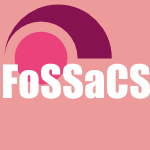 FoSSaCS-2014-ErbaturKMMNR #on the #problem #symmetry #unification
FoSSaCS-2014-ErbaturKMMNR #on the #problem #symmetry #unification- On Asymmetric Unification and the Combination Problem in Disjoint Theories (SE, DK, AMM, CM, PN, CR), pp. 274–288.
 TACAS-2014-CimattiGMT #abstraction #modulo theories
TACAS-2014-CimattiGMT #abstraction #modulo theories- IC3 Modulo Theories via Implicit Predicate Abstraction (AC, AG, SM, ST), pp. 46–61.
 TACAS-2014-DeckerLT #modulo theories #monitoring
TACAS-2014-DeckerLT #modulo theories #monitoring- Monitoring Modulo Theories (ND, ML, DT), pp. 341–356.
 WRLA-2014-ArusoaieLRSSR
WRLA-2014-ArusoaieLRSSR- Language Definitions as Rewrite Theories (AA, DL, VR, TFS, AS, GR), pp. 97–112.
 WRLA-2014-LucasM #order #termination
WRLA-2014-LucasM #order #termination- Strong and Weak Operational Termination of Order-Sorted Rewrite Theories (SL, JM), pp. 178–194.
 PLDI-2014-CaiGRO #difference #formal method #higher-order #λ-calculus
PLDI-2014-CaiGRO #difference #formal method #higher-order #λ-calculus- A theory of changes for higher-order languages: incrementalizing λ-calculi by static differentiation (YC, PGG, TR, KO), p. 17.
 DLT-2014-AlmeidaR #automaton
DLT-2014-AlmeidaR #automaton- Semisimple Synchronizing Automata and the Wedderburn-Artin Theory (JA, ER), pp. 49–60.
 ICALP-v2-2014-Chaturvedi #towards
ICALP-v2-2014-Chaturvedi #towards- Toward a Structure Theory of Regular Infinitary Trace Languages (NC), pp. 134–145.
 FM-2014-ZeydaSCS #composition #higher-order #object-oriented
FM-2014-ZeydaSCS #composition #higher-order #object-oriented- A Modular Theory of Object Orientation in Higher-Order UTP (FZ, TLVLS, AC, AS), pp. 627–642.
 ICFP-2014-AngiuliMLH #topic
ICFP-2014-AngiuliMLH #topic- Homotopical patch theory (CA, EM, DRL, RH), pp. 243–256.
 ICFP-2014-SchwerterGT #formal method
ICFP-2014-SchwerterGT #formal method- A theory of gradual effect systems (FBS, RG, ÉT), pp. 283–295.
 CHI-2014-DalsgardD #concept #human-computer #research #theory and practice
CHI-2014-DalsgardD #concept #human-computer #research #theory and practice- Between theory and practice: bridging concepts in HCI research (PD, CD), pp. 1635–1644.
 DHM-2014-GaoH #approach #fault #nondeterminism #research
DHM-2014-GaoH #approach #fault #nondeterminism #research- Research on the Continuous Descent Approach (CDA) Operational Error of Pilot Base on Cloud Model and Uncertainty Theory (YG, YH), pp. 91–100.
 HCI-AS-2014-MurrayWHSMGBTSCSH #animation #interactive #people #physics #process #question
HCI-AS-2014-MurrayWHSMGBTSCSH #animation #interactive #people #physics #process #question- Can a Theory-Informed Interactive Animation Increase Intentions to Engage in Physical Activity in Young People with Asthma? (JM, BW, GH, SS, JM, DG, GB, ST, FS, LC, AS, SH), pp. 289–300.
 SCSM-2014-KimSK
SCSM-2014-KimSK- Reinterpret 3G Emoticons from a Persona Theory (MK, CS, JK), pp. 462–473.
 ECIR-2014-BauerCRG #corpus #formal method #learning #web
ECIR-2014-BauerCRG #corpus #formal method #learning #web- Learning a Theory of Marriage (and Other Relations) from a Web Corpus (SB, SC, LR, TG), pp. 591–597.
 ICML-c1-2014-DenilMF #random
ICML-c1-2014-DenilMF #random- Narrowing the Gap: Random Forests In Theory and In Practice (MD, DM, NdF), pp. 665–673.
 ICML-c1-2014-MohriM #algorithm #learning #optimisation
ICML-c1-2014-MohriM #algorithm #learning #optimisation- Learning Theory and Algorithms for revenue optimization in second price auctions with reserve (MM, AMM), pp. 262–270.
 ICPR-2014-AlmogahedK #game studies #named #using
ICPR-2014-AlmogahedK #game studies #named #using- NEATER: Filtering of Over-sampled Data Using Non-cooperative Game Theory (BAA, IAK), pp. 1371–1376.
 ICPR-2014-ChakeriH #approach #clustering #framework #game studies #set
ICPR-2014-ChakeriH #approach #clustering #framework #game studies #set- Dominant Sets as a Framework for Cluster Ensembles: An Evolutionary Game Theory Approach (AC, LOH), pp. 3457–3462.
 ICPR-2014-SouzaSSS #process
ICPR-2014-SouzaSSS #process- Pattern Theory-Based Interpretation of Activities (FDMdS, SS, AS, JS), pp. 106–111.
 KDD-2014-BonchiGL #clustering #correlation #theory and practice
KDD-2014-BonchiGL #clustering #correlation #theory and practice- Correlation clustering: from theory to practice (FB, DGS, EL), p. 1972.
 KDD-2014-GaddeAO #graph #learning #using
KDD-2014-GaddeAO #graph #learning #using- Active semi-supervised learning using sampling theory for graph signals (AG, AA, AO), pp. 492–501.
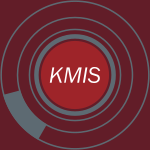 KMIS-2014-Mustonen-Ollila #case study #information management #problem
KMIS-2014-Mustonen-Ollila #case study #information management #problem- Knowledge Management Problems in Healthcare — A Case Study based on the Grounded Theory (EMO, HN, AV), pp. 15–26.
 KMIS-2014-Muthaiyah #implementation #information management #theory and practice
KMIS-2014-Muthaiyah #implementation #information management #theory and practice- Knowledge Management Technology Implementation — Bridging the Gap between Theory and Practice (SM), pp. 393–399.
 KR-2014-CabalarD #equivalence
KR-2014-CabalarD #equivalence- Strong Equivalence of Non-Monotonic Temporal Theories (PC, MD).
 KR-2014-EwinPV #calculus #reasoning
KR-2014-EwinPV #calculus #reasoning- Transforming Situation Calculus Action Theories for Optimised Reasoning (CJE, ARP, SV).
 KR-2014-PatriziV #constraints #database #similarity
KR-2014-PatriziV #constraints #database #similarity- Action Theories over Generalized Databases with Equality Constraints (Extended Abstract) (FP, SV).
 KR-2014-Schuller #formal method #graph
KR-2014-Schuller #formal method #graph- Tackling Winograd Schemas by Formalizing Relevance Theory in Knowledge Graphs (PS).
 KR-2014-StrassW #approximate #complexity #fixpoint #framework
KR-2014-StrassW #approximate #complexity #fixpoint #framework- Analyzing the Computational Complexity of Abstract Dialectical Frameworks via Approximation Fixpoint Theory (HS, JPW).
 SIGIR-2014-Carterette #information retrieval #statistics #testing #theory and practice
SIGIR-2014-Carterette #information retrieval #statistics #testing #theory and practice- Statistical significance testing in information retrieval: theory and practice (BC), p. 1286.
 PPDP-2014-YangEMMN #encryption #finite #unification
PPDP-2014-YangEMMN #encryption #finite #unification- Theories of Homomorphic Encryption, Unification, and the Finite Variant Property (FY, SE, CM, JM, PN), pp. 123–133.
 POPL-2014-AtkeyGJ #dependent type #parametricity #type system
POPL-2014-AtkeyGJ #dependent type #parametricity #type system- A relationally parametric model of dependent type theory (RA, NG, PJ), pp. 503–516.
 POPL-2014-BrotherstonV #parametricity
POPL-2014-BrotherstonV #parametricity- Parametric completeness for separation theories (JB, JV), pp. 453–464.
 POPL-2014-SergeyVJ #analysis #composition #higher-order #theory and practice
POPL-2014-SergeyVJ #analysis #composition #higher-order #theory and practice- Modular, higher-order cardinality analysis in theory and practice (IS, DV, SLPJ), pp. 335–348.
 REFSQ-2014-OjameruayeB #requirements #using
REFSQ-2014-OjameruayeB #requirements #using- Systematic Elaboration of Compliance Requirements Using Compliance Debt and Portfolio Theory (BO, RB), pp. 152–167.
 FSE-2014-Marmsoler #architecture #formal method #towards
FSE-2014-Marmsoler #architecture #formal method #towards- Towards a theory of architectural styles (DM), pp. 823–825.
 ASPLOS-2014-MuthukaruppanPM #multi #power management
ASPLOS-2014-MuthukaruppanPM #multi #power management- Price theory based power management for heterogeneous multi-cores (TSM, AP, TM), pp. 161–176.
 HPCA-2014-NugterenBCB #distance #gpu #modelling #reuse
HPCA-2014-NugterenBCB #distance #gpu #modelling #reuse- A detailed GPU cache model based on reuse distance theory (CN, GJvdB, HC, HEB), pp. 37–48.
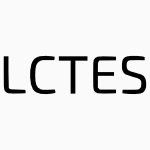 LCTES-2014-HenryAMM #encoding #execution #how #modulo theories #optimisation #semantics #worst-case
LCTES-2014-HenryAMM #encoding #execution #how #modulo theories #optimisation #semantics #worst-case- How to compute worst-case execution time by optimization modulo theory and a clever encoding of program semantics (JH, MA, DM, CM), pp. 43–52.
 CAV-2014-LiangRTBD #formal method #regular expression #string
CAV-2014-LiangRTBD #formal method #regular expression #string- A DPLL(T) Theory Solver for a Theory of Strings and Regular Expressions (TL, AR, CT, CB, MD), pp. 646–662.
 ICLP-J-2014-BogaertsJBCVD #calculus #linear #simulation #using
ICLP-J-2014-BogaertsJBCVD #calculus #linear #simulation #using- Simulating Dynamic Systems Using Linear Time Calculus Theories (BB, JJ, MB, BdC, JV, MD), pp. 477–492.
 IJCAR-2014-Lellmann #axiom #strict #theory and practice
IJCAR-2014-Lellmann #axiom #strict #theory and practice- Axioms vs Hypersequent Rules with Context Restrictions: Theory and Applications (BL), pp. 307–321.
 LICS-CSL-2014-LicataF #type system
LICS-CSL-2014-LicataF #type system- Eilenberg-MacLane spaces in homotopy type theory (DRL, EF), p. 9.
 LICS-CSL-2014-Mamouras #hoare #monad #on the #recursion
LICS-CSL-2014-Mamouras #hoare #monad #on the #recursion- On the Hoare theory of monadic recursion schemes (KM), p. 10.
 LICS-CSL-2014-Mogelberg #effectiveness #recursion #type system
LICS-CSL-2014-Mogelberg #effectiveness #recursion #type system- A type theory for productive coprogramming via guarded recursion (REM), p. 10.
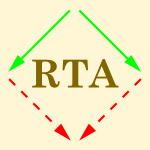 RTA-TLCA-2014-BaeM #abstraction
RTA-TLCA-2014-BaeM #abstraction- Predicate Abstraction of Rewrite Theories (KB, JM), pp. 61–76.
 RTA-TLCA-2014-BizjakBM #nondeterminism #type system
RTA-TLCA-2014-BizjakBM #nondeterminism #type system- A Model of Countable Nondeterminism in Guarded Type Theory (AB, LB, MM), pp. 108–123.
 RTA-TLCA-2014-EscardoS #data type #type system
RTA-TLCA-2014-EscardoS #data type #type system- Abstract Datatypes for Real Numbers in Type Theory (MHE, AS), pp. 208–223.
 RTA-TLCA-2014-RouxD #type system
RTA-TLCA-2014-RouxD #type system- The Structural Theory of Pure Type Systems (CR, FvD), pp. 364–378.
 ASE-2013-KukrejaHT #game studies #testing #using
ASE-2013-KukrejaHT #game studies #testing #using- Randomizing regression tests using game theory (NK, WGJH, MT), pp. 616–621.
 CASE-2013-SoviziK #matrix #nondeterminism #parallel #random #using
CASE-2013-SoviziK #matrix #nondeterminism #parallel #random #using- Uncertainty characterization in serial and parallel manipulators using random matrix theory (JS, VNK), pp. 312–317.
 DAC-2013-StratigopoulosFCM #estimation #metric #multi #statistics #using
DAC-2013-StratigopoulosFCM #estimation #metric #multi #statistics #using- Multidimensional analog test metrics estimation using extreme value theory and statistical blockade (HGDS, PF, YC, FM), p. 7.
 DATE-2013-CevreroEAILBS #estimation #performance
DATE-2013-CevreroEAILBS #estimation #performance- Fast and accurate BER estimation methodology for I/O links based on extreme value theory (AC, NEE, CA, PI, YL, AB, GIS), pp. 503–508.
 HT-2013-VigoH #information management
HT-2013-VigoH #information management- Challenging information foraging theory: screen reader users are not always driven by information scent (MV, SH), pp. 60–68.
 PODS-2013-CalvaneseGM #analysis #database #perspective #process
PODS-2013-CalvaneseGM #analysis #database #perspective #process- Foundations of data-aware process analysis: a database theory perspective (DC, GDG, MM), pp. 1–12.
 SIGMOD-2013-ZhuMXLTZ #distance #network #query #theory and practice #towards
SIGMOD-2013-ZhuMXLTZ #distance #network #query #theory and practice #towards- Shortest path and distance queries on road networks: towards bridging theory and practice (ADZ, HM, XX, SL, YT, SZ), pp. 857–868.
 ITiCSE-2013-CrescenziEK #student #theory and practice
ITiCSE-2013-CrescenziEK #student #theory and practice- From theory to practice: NP-completeness for every CS student (PC, EE, VK), pp. 16–21.
 ITiCSE-2013-ScottG #learning #programming #question
ITiCSE-2013-ScottG #learning #programming #question- Implicit theories of programming aptitude as a barrier to learning to code: are they distinct from intelligence? (MJS, GG), p. 347.
 FoSSaCS-2013-ChurchillM #bisimulation #composition
FoSSaCS-2013-ChurchillM #bisimulation #composition- Modular Bisimulation Theory for Computations and Values (MC, PDM), pp. 97–112.
 ICSM-2013-LeTL #fault #locality #theory and practice
ICSM-2013-LeTL #fault #locality #theory and practice- Theory and Practice, Do They Match? A Case with Spectrum-Based Fault Localization (TDBL, FT, DL), pp. 380–383.
 PLDI-2013-MorissetPN #compilation #formal method #memory management #optimisation #testing
PLDI-2013-MorissetPN #compilation #formal method #memory management #optimisation #testing- Compiler testing via a theory of sound optimisations in the C11/C++11 memory model (RM, PP, FZN), pp. 187–196.
 STOC-2013-BurgisserI #bound #complexity #geometry
STOC-2013-BurgisserI #bound #complexity #geometry- Explicit lower bounds via geometric complexity theory (PB, CI), pp. 141–150.
 STOC-2013-KawarabayashiY #graph #testing
STOC-2013-KawarabayashiY #graph #testing- Testing subdivision-freeness: property testing meets structural graph theory (KiK, YY), pp. 437–446.
 STOC-2013-Miller #graph #optimisation #problem #scalability #using
STOC-2013-Miller #graph #optimisation #problem #scalability #using- Solving large optimization problems using spectral graph theory (GLM), p. 981.
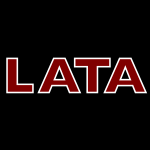 LATA-2013-Schwentick #automaton #challenge #xml
LATA-2013-Schwentick #automaton #challenge #xml- XML Schema Management: A Challenge for Automata Theory (TS), p. 43.
 IFM-2013-GiachinoGLLW #analysis #concurrent #theory and practice
IFM-2013-GiachinoGLLW #analysis #concurrent #theory and practice- Deadlock Analysis of Concurrent Objects: Theory and Practice (EG, CAG, CL, ML, PYHW), pp. 394–411.
 IFM-2013-LaneveP #algebra #contract #web #web service
IFM-2013-LaneveP #algebra #contract #web #web service- An Algebraic Theory for Web Service Contracts (CL, LP), pp. 301–315.
 ICFP-2013-BernardyM
ICFP-2013-BernardyM- Type-theory in color (JPB, GM), pp. 61–72.
 ICFP-2013-CheneyLW #query
ICFP-2013-CheneyLW #query- A practical theory of language-integrated query (JC, SL, PW), pp. 403–416.
 ICFP-2013-DelawareKSO #composition #monad
ICFP-2013-DelawareKSO #composition #monad- Modular monadic meta-theory (BD, SK, TS, BCdSO), pp. 319–330.
 CHI-2013-HeklerKFB #behaviour #human-computer #research #using
CHI-2013-HeklerKFB #behaviour #human-computer #research #using- Mind the theoretical gap: interpreting, using, and developing behavioral theory in HCI research (EBH, PVK, JF, MPB), pp. 3307–3316.
 CSCW-2013-NovA #design
CSCW-2013-NovA #design- Personality-targeted design: theory, experimental procedure, and preliminary results (ON, OA), pp. 977–984.
 DHM-SET-2013-Fass #biology #design #human-computer #modelling
DHM-SET-2013-Fass #biology #design #human-computer #modelling- Putting in Perspective Human-Machine System Theory and Modeling: From Theoretical Biology to Artifacts Integrative Design and Organization — “Artem Augmented Human Project” (DF), pp. 316–325.
 DUXU-PMT-2013-Flanagan #feedback #how #interface
DUXU-PMT-2013-Flanagan #feedback #how #interface- Haptic Interface Aesthetics — “Feedback Loops, Live Coding and How to Harness the Potential of Embodied Estrangement in Artistic Practices and Aesthetic Theories within Interface Culture” (PJF), pp. 58–67.
 HCI-IMT-2013-GreeneTM #challenge #gesture #mobile #modelling #multi
HCI-IMT-2013-GreeneTM #challenge #gesture #mobile #modelling #multi- Computational Cognitive Modeling of Touch and Gesture on Mobile Multitouch Devices: Applications and Challenges for Existing Theory (KKG, FPT, RJM), pp. 449–455.
 HIMI-D-2013-DjamasbiPY13a #contest
HIMI-D-2013-DjamasbiPY13a #contest- Search Results Pages and Competition for Attention Theory: An Exploratory Eye-Tracking Study (SD, AHP, R(Y), pp. 576–583.
 HILT-2013-Bjorner #development #modulo theories #satisfiability
HILT-2013-Bjorner #development #modulo theories #satisfiability- Satisfiability modulo theories for high integrity development (NB), pp. 5–6.
 ICEIS-v2-2013-CasanovaPMSV #ontology
ICEIS-v2-2013-CasanovaPMSV #ontology- Ontologies as Theories (MAC, ÂMAP, JAFdM, ERS, VMPV), pp. 317–322.
 ICEIS-v2-2013-PradoB #evolution #using
ICEIS-v2-2013-PradoB #evolution #using- Perspectives on using Actor-Network Theory and Organizational Semiotics to Address Organizational Evolution (ABP, MCCB), pp. 173–181.
 ICEIS-v2-2013-WolfengagenRSBS #approach #modelling #process #towards
ICEIS-v2-2013-WolfengagenRSBS #approach #modelling #process #towards- Applicative Approach to Information Processes Modeling — Towards a Constructive Information Theory (VW, VR, LS, AB, AS), pp. 323–328.
 CIKM-2013-Fagin #theory and practice
CIKM-2013-Fagin #theory and practice- Applying theory to practice (RF), pp. 3–4.
 ICML-c3-2013-Gomez-RodriguezLS #modelling
ICML-c3-2013-Gomez-RodriguezLS #modelling- Modeling Information Propagation with Survival Theory (MGR, JL, BS), pp. 666–674.
 ICML-c3-2013-WytockK #algorithm #energy #random #theory and practice
ICML-c3-2013-WytockK #algorithm #energy #random #theory and practice- Sparse Gaussian Conditional Random Fields: Algorithms, Theory, and Application to Energy Forecasting (MW, JZK), pp. 1265–1273.
 MLDM-2013-HaralickLM #composition
MLDM-2013-HaralickLM #composition- Relation Decomposition: The Theory (RMH, LL, EM), pp. 311–324.
 SIGIR-2013-GaoYSL #internet #theory and practice
SIGIR-2013-GaoYSL #internet #theory and practice- Internet advertising: theory and practice (BG, JY, DS, TYL), p. 1135.
 Onward-2013-McCorkle #physics
Onward-2013-McCorkle #physics- Building connections between theories of computing and physical systems (ELM), pp. 153–172.
 PPDP-2013-RobbinsHK
PPDP-2013-RobbinsHK- Theory propagation and rational-trees (ER, JMH, AK), pp. 193–204.
 POPL-2013-DelawareOS
POPL-2013-DelawareOS- Meta-theory à la carte (BD, BCdSO, TS), pp. 207–218.
 SLE-2013-DialloCL #approach #formal method #modelling #using
SLE-2013-DialloCL #approach #formal method #modelling #using- A Model-Driven Approach to Enhance Tool Interoperability Using the Theory of Models of Computation (PID, JC, LL), pp. 218–237.
 ASPLOS-2013-XiangDLB #higher-order #locality #named
ASPLOS-2013-XiangDLB #higher-order #locality #named- HOTL: a higher order theory of locality (XX, CD, HL, BB), pp. 343–356.
 ISMM-2013-WhiteSAJ
ISMM-2013-WhiteSAJ- Control theory for principled heap sizing (DRW, JS, JMA, REJ), pp. 27–38.
 CADE-2013-ClaessenJRS #automation #induction #proving #using
CADE-2013-ClaessenJRS #automation #induction #proving #using- Automating Inductive Proofs Using Theory Exploration (KC, MJ, DR, NS), pp. 392–406.
 CADE-2013-GaoKC #named #smt
CADE-2013-GaoKC #named #smt- dReal: An SMT Solver for Nonlinear Theories over the Reals (SG, SK, EMC), pp. 208–214.
 CAV-2013-ManoliosP #modulo theories
CAV-2013-ManoliosP #modulo theories- ILP Modulo Theories (PM, VP), pp. 662–677.
 CSL-2013-GhasemlooC #bound #proving
CSL-2013-GhasemlooC #bound #proving- Theories for Subexponential-size Bounded-depth Frege Proofs (KG, SAC), pp. 296–315.
 CSL-2013-KozenM #algebra
CSL-2013-KozenM #algebra- Kleene Algebra with Products and Iteration Theories (DK, KM), pp. 415–431.
 CSL-2013-Maruyama #category theory #monad
CSL-2013-Maruyama #category theory #monad- Categorical Duality Theory: With Applications to Domains, Convexity, and the Distribution Monad (YM), pp. 500–520.
 CSL-2013-WangB #decidability #equation #semantics #type system
CSL-2013-WangB #decidability #equation #semantics #type system- Semantics of Intensional Type Theory extended with Decidable Equational Theories (QW, BB), pp. 653–667.
 LICS-2013-BirkedalM #fixpoint #recursion #type system
LICS-2013-BirkedalM #fixpoint #recursion #type system- Intensional Type Theory with Guarded Recursive Types qua Fixed Points on Universes (LB, REM), pp. 213–222.
 LICS-2013-Colcombet #logic #monad #set #word
LICS-2013-Colcombet #logic #monad #set #word- Magnitude Monadic Logic over Words and the Use of Relative Internal Set Theory (TC), p. 123.
 LICS-2013-FioreH #algebra #equation #logic #multi #polymorphism #semantics #syntax
LICS-2013-FioreH #algebra #equation #logic #multi #polymorphism #semantics #syntax- Multiversal Polymorphic Algebraic Theories: Syntax, Semantics, Translations, and Equational Logic (MPF, MH), pp. 520–529.
 LICS-2013-LicataS #type system
LICS-2013-LicataS #type system- Calculating the Fundamental Group of the Circle in Homotopy Type Theory (DRL, MS), pp. 223–232.
 RTA-2013-Okada #multi #term rewriting
RTA-2013-Okada #multi #term rewriting- Husserl and Hilbert on Completeness and Husserl’s Term Rewrite-based Theory of Multiplicity (Invited Talk) (MO), pp. 4–19.
 RTA-2013-TushkanovaRGK #automation #calculus #decidability
RTA-2013-TushkanovaRGK #automation #calculus #decidability- Automatic Decidability: A Schematic Calculus for Theories with Counting Operators (ET, CR, AG, OK), pp. 303–318.
 SAT-2013-CimattiGSS #approach #composition #modulo theories #satisfiability
SAT-2013-CimattiGSS #approach #composition #modulo theories #satisfiability- A Modular Approach to MaxSAT Modulo Theories (AC, AG, BJS, RS), pp. 150–165.
 TLCA-2013-FridlenderP #algorithm #evaluation #normalisation #type system
TLCA-2013-FridlenderP #algorithm #evaluation #normalisation #type system- A Type-Checking Algorithm for Martin-Löf Type Theory with Subtyping Based on Normalisation by Evaluation (DF, MP), pp. 140–155.
 CASE-2012-SustoSPNB #approach
CASE-2012-SustoSPNB #approach- An information-theory and Virtual Metrology-based approach to Run-to-Run semiconductor manufacturing control (GAS, AS, SP, GDN, AB), pp. 358–363.
 DAC-2012-PaekMSSK #markov #named #random
DAC-2012-PaekMSSK #markov #named #random- PowerField: a transient temperature-to-power technique based on Markov random field theory (SP, SHM, WS, JS, LSK), pp. 630–635.
 VLDB-2012-GetoorM #challenge
VLDB-2012-GetoorM #challenge- Entity Resolution: Theory, Practice & Open Challenges (LG, AM), pp. 2018–2019.
 ITiCSE-2012-Blum
ITiCSE-2012-Blum- Alan turing and the other theory of computation (LB), p. 2.
 WRLA-J-2010-DuranM12 #on the #order
WRLA-J-2010-DuranM12 #on the #order- On the Church-Rosser and coherence properties of conditional order-sorted rewrite theories (FD, JM), pp. 816–850.
 ESOP-2012-ChenCJK #behaviour #component #composition #specification
ESOP-2012-ChenCJK #behaviour #component #composition #specification- A Compositional Specification Theory for Component Behaviours (TC, CC, BJ, MZK), pp. 148–168.
 FASE-2012-AbadiEF #slicing #theory and practice
FASE-2012-AbadiEF #slicing #theory and practice- Fine Slicing — Theory and Applications for Computation Extraction (AA, RE, YAF), pp. 471–485.
 FoSSaCS-2012-BoveDS #automation #first-order #functional #interactive #reasoning #source code
FoSSaCS-2012-BoveDS #automation #first-order #functional #interactive #reasoning #source code- Combining Interactive and Automatic Reasoning in First Order Theories of Functional Programs (AB, PD, ASR), pp. 104–118.
 DLT-J-2011-ArrighiD12 #physics #quantum
DLT-J-2011-ArrighiD12 #physics #quantum- The Physical Church-Turing Thesis and the Principles of Quantum Theory (PA, GD), pp. 1131–1146.
 ICALP-v2-2012-BojanczykP12a #towards
ICALP-v2-2012-BojanczykP12a #towards- Toward Model Theory with Data Values (MB, TP), pp. 116–127.
 ICALP-v2-2012-Dowek #independence
ICALP-v2-2012-Dowek #independence- A Theory Independent Curry-De Bruijn-Howard Correspondence (GD), pp. 13–15.
 ICALP-v2-2012-RosuS #axiom #formal method #semantics #towards
ICALP-v2-2012-RosuS #axiom #formal method #semantics #towards- Towards a Unified Theory of Operational and Axiomatic Semantics (GR, AS), pp. 351–363.
 ICALP-v2-2012-Spielman #algorithm #equation #graph #linear
ICALP-v2-2012-Spielman #algorithm #equation #graph #linear- Algorithms, Graph Theory, and the Solution of Laplacian Linear Equations (DAS), pp. 24–26.
 LATA-2012-Dowek #automaton #formal method #physics #quantum
LATA-2012-Dowek #automaton #formal method #physics #quantum- Around the Physical Church-Turing Thesis: Cellular Automata, Formal Languages, and the Principles of Quantum Theory (GD), pp. 21–37.
 LATA-2012-Hetzl #proving
LATA-2012-Hetzl #proving- Applying Tree Languages in Proof Theory (SH), pp. 301–312.
 FM-2012-AlpuenteBFR #named #slicing
FM-2012-AlpuenteBFR #named #slicing- Julienne: A Trace Slicer for Conditional Rewrite Theories (MA, DB, FF, DR), pp. 28–32.
 FM-2012-NedunuriSC #algorithm #performance
FM-2012-NedunuriSC #algorithm #performance- Theory and Techniques for Synthesizing Efficient Breadth-First Search Algorithms (SN, DRS, WRC), pp. 308–325.
 CHI-2012-HeinrichsSHM #formal method #interactive #mobile #towards
CHI-2012-HeinrichsSHM #formal method #interactive #mobile #towards- Toward a theory of interaction in mobile paper-digital ensembles (FH, DS, JH, MM), pp. 1897–1900.
 CHI-2012-PiorkowskiFSBBJBS #empirical #information management #recommendation
CHI-2012-PiorkowskiFSBBJBS #empirical #information management #recommendation- Reactive information foraging: an empirical investigation of theory-based recommender systems for programmers (DP, SDF, CS, CB, MMB, BEJ, RKEB, CS), pp. 1471–1480.
 CSCW-2012-DowelingSG #design #interactive #process
CSCW-2012-DowelingSG #design #interactive #process- A model for the design of interactive systems based on activity theory (SD, BS, AG), pp. 539–548.
 ICEIS-v3-2012-KandjaniB #architecture #enterprise #evolution #towards
ICEIS-v3-2012-KandjaniB #architecture #enterprise #evolution #towards- Evolution of Enterprise Architecture Discipline — Towards a Unified Developing Theory of Enterprise Architecture Body of Knowledge as an Evolving Discipline (HK, PB), pp. 145–154.
 ICPR-2012-GuiST #analysis #estimation #parametricity
ICPR-2012-GuiST #analysis #estimation #parametricity- Regularization parameter estimation for spectral regression discriminant analysis based on perturbation theory (JG, ZS, TT), pp. 401–404.
 ICPR-2012-GuR #detection
ICPR-2012-GuR #detection- Shadow detection via Rayleigh scattering and Mie theory (LG, ARK), pp. 2165–2168.
 ICPR-2012-GuZYZ #assessment #image #quality
ICPR-2012-GuZYZ #assessment #image #quality- A new no-reference stereoscopic image quality assessment based on ocular dominance theory and degree of parallax (KG, GZ, XY, WZ), pp. 206–209.
 ICPR-2012-NafchiK #dataset #image #representation
ICPR-2012-NafchiK #dataset #image #representation- Rectangular based binary image representation: Theory, applications, and dataset introduction (HZN, HRK), pp. 190–193.
 ICPR-2012-NarayanamN #algorithm #community #detection #distributed #game studies #graph #information management #social
ICPR-2012-NarayanamN #algorithm #community #detection #distributed #game studies #graph #information management #social- A game theory inspired, decentralized, local information based algorithm for community detection in social graphs (RN, YN), pp. 1072–1075.
 ICPR-2012-ParkLSRKCG #adaptation #gesture #recognition
ICPR-2012-ParkLSRKCG #adaptation #gesture #recognition- Gesture recognition system based on Adaptive Resonance Theory (PKJP, JL, CWS, HR, BCK, GAC, SG), pp. 3818–3822.
 ICPR-2012-StammD #analysis #documentation
ICPR-2012-StammD #analysis #documentation- Searching attentive tasks with document analysis evidences and Dempster-Shafer theory (KS, AD), pp. 529–532.
 ICPR-2012-VaradarajanV #semantics #using #visual notation
ICPR-2012-VaradarajanV #semantics #using #visual notation- Semantic saliency using k-TR theory of visual perception (KMV, MV), pp. 3676–3679.
 ICPR-2012-WilkinsonO #analysis #documentation
ICPR-2012-WilkinsonO #analysis #documentation- Mask-edge connectivity: Theory, computation, and application to historical document analysis (MHFW, JO), pp. 1334–1337.
 KDIR-2012-Beranek #framework
KDIR-2012-Beranek #framework- A Framework for Situation Inference based on Belief Function Theory (LB), pp. 358–361.
 KR-2012-Fink #hybrid
KR-2012-Fink #hybrid- Paraconsistent Hybrid Theories (MF).
 KR-2012-GiacomoLP #bound #calculus #decidability #verification
KR-2012-GiacomoLP #bound #calculus #decidability #verification- Bounded Situation Calculus Action Theories and Decidable Verification (GDG, YL, FP).
 KR-2012-GiordanoMD #bound #model checking
KR-2012-GiordanoMD #bound #model checking- Achieving Completeness in Bounded Model Checking of Action Theories in ASP (LG, AM, DTD).
 KR-2012-GrastienHT #theory and practice
KR-2012-GrastienHT #theory and practice- Conflict-Based Diagnosis of Discrete Event Systems: Theory and Practice (AG, PH, ST).
 KR-2012-TosattoBTV #proving #semantics
KR-2012-TosattoBTV #proving #semantics- Abstract Normative Systems: Semantics and Proof Theory (SCT, GB, LWNvdT, SV).
 POPL-2012-BhatAVG #probability #type system
POPL-2012-BhatAVG #probability #type system- A type theory for probability density functions (SB, AA, RWV, AGG), pp. 545–556.
 POPL-2012-LicataH #2d #type system
POPL-2012-LicataH #2d #type system- Canonicity for 2-dimensional type theory (DRL, RH), pp. 337–348.
 SLE-2012-GuizzardiZ #concept #modelling
SLE-2012-GuizzardiZ #concept #modelling- A Common Foundational Theory for Bridging Two Levels in Ontology-Driven Conceptual Modeling (GG, VZ), pp. 286–310.
 ISMM-2012-GuD #collaboration
ISMM-2012-GuD #collaboration- A generalized theory of collaborative caching (XG, CD), pp. 109–120.
 CAV-2012-LalQL #modulo theories #reachability
CAV-2012-LalQL #modulo theories #reachability- A Solver for Reachability Modulo Theories (AL, SQ, SKL), pp. 427–443.
 CSL-2012-Cook #complexity #proving
CSL-2012-Cook #complexity #proving- Connecting Complexity Classes, Weak Formal Theories, and Propositional Proof Systems (Invited Talk) (SAC), pp. 9–11.
 CSL-2012-KuusistoMV #decidability #first-order #geometry
CSL-2012-KuusistoMV #decidability #first-order #geometry- Undecidable First-Order Theories of Affine Geometries (AK, JM, JV), pp. 470–484.
 CSL-2012-Lynce #named #satisfiability
CSL-2012-Lynce #named #satisfiability- Satisfiability: where Theory meets Practice (Invited Talk) (IL), pp. 12–13.
 ICLP-J-2012-BabbL #modelling #theorem
ICLP-J-2012-BabbL #modelling #theorem- Module theorem for the general theory of stable models (JB, JL), pp. 719–735.
 ICLP-J-2012-BaralDGG #algorithm #correctness #programming #set #λ-calculus
ICLP-J-2012-BaralDGG #algorithm #correctness #programming #set #λ-calculus- Typed answer set programming λ calculus theories and correctness of inverse λ algorithms with respect to them (CB, JD, MAG, AG), pp. 775–791.
 ICLP-J-2012-LifschitzPY #modelling #null #relational
ICLP-J-2012-LifschitzPY #modelling #null #relational- Relational theories with null values and non-herbrand stable models (VL, KP, FY), pp. 565–582.
 IJCAR-2012-DelauneKP #constraints #protocol #security
IJCAR-2012-DelauneKP #constraints #protocol #security- Security Protocols, Constraint Systems, and Group Theories (SD, SK, DP), pp. 164–178.
 IJCAR-2012-FontaineMW #decidability
IJCAR-2012-FontaineMW #decidability- Combination of Disjoint Theories: Beyond Decidability (PF, SM, CW), pp. 256–270.
 IJCAR-2012-JacquelBDD #automation #deduction #modulo theories #proving #theorem proving #using #verification
IJCAR-2012-JacquelBDD #automation #deduction #modulo theories #proving #theorem proving #using #verification- Tableaux Modulo Theories Using Superdeduction — An Application to the Verification of B Proof Rules with the Zenon Automated Theorem Prover (MJ, KB, DD, CD), pp. 332–338.
 IJCAR-2012-KuhlweinLTUH #bibliography #evaluation #scalability
IJCAR-2012-KuhlweinLTUH #bibliography #evaluation #scalability- Overview and Evaluation of Premise Selection Techniques for Large Theory Mathematics (DK, TvL, ET, JU, TH), pp. 378–392.
 LICS-2012-AwodeyGS #induction #type system
LICS-2012-AwodeyGS #induction #type system- Inductive Types in Homotopy Type Theory (SA, NG, KS), pp. 95–104.
 LICS-2012-Constable #on the
LICS-2012-Constable #on the- On Building Constructive Formal Theories of Computation Noting the Roles of Turing, Church, and Brouwer (RLC), pp. 2–8.
 LICS-2012-GollerJL #complexity #first-order
LICS-2012-GollerJL #complexity #first-order- The Complexity of Decomposing Modal and First-Order Theories (SG, JCJ, ML), pp. 325–334.
 LICS-2012-JaberTS #type system
LICS-2012-JaberTS #type system- Extending Type Theory with Forcing (GJ, NT, MS), pp. 395–404.
 LICS-2012-Platzer12a #hybrid #proving
LICS-2012-Platzer12a #hybrid #proving- The Complete Proof Theory of Hybrid Systems (AP), pp. 541–550.
 LICS-2012-TraytelPB #category theory #composition #data type #higher-order #logic #proving #theorem proving
LICS-2012-TraytelPB #category theory #composition #data type #higher-order #logic #proving #theorem proving- Foundational, Compositional (Co)datatypes for Higher-Order Logic: Category Theory Applied to Theorem Proving (DT, AP, JCB), pp. 596–605.
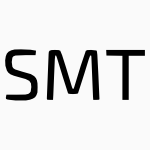 SMT-2012-AlbertiBGRS #library #modulo theories #reachability
SMT-2012-AlbertiBGRS #library #modulo theories #reachability- Reachability Modulo Theory Library (FA, RB, SG, SR, NS), pp. 67–76.
 SMT-2012-BjornerMR #modulo theories #satisfiability #verification
SMT-2012-BjornerMR #modulo theories #satisfiability #verification- Program Verification as Satisfiability Modulo Theories (NB, KLM, AR), pp. 3–11.
 SMT-2012-ConchonMRI #axiom #float #smt
SMT-2012-ConchonMRI #axiom #float #smt- Built-in Treatment of an Axiomatic Floating-Point Theory for SMT Solvers (SC, GM, CR, MI), pp. 12–21.
 SMT-2012-FalkeSM #array #formal method #set
SMT-2012-FalkeSM #array #formal method #set- A Theory of Arrays with set and copy Operations (SF, CS, FM), pp. 98–108.
 ASE-2011-FilieriGLM #adaptation #approach #reliability #requirements #self
ASE-2011-FilieriGLM #adaptation #approach #reliability #requirements #self- Self-adaptive software meets control theory: A preliminary approach supporting reliability requirements (AF, CG, AL, MM), pp. 283–292.
 CASE-2011-NazeemR #classification #concurrent #design #policy #resource management
CASE-2011-NazeemR #classification #concurrent #design #policy #resource management- Designing maximally permissive deadlock avoidance policies for sequential resource allocation systems through classification theory (AN, SAR), pp. 405–412.
 CASE-2011-PinhaQC #scheduling
CASE-2011-PinhaQC #scheduling- Optimal scheduling of a repair shipyard based on Supervisory Control Theory (DCP, MHdQ, JERC), pp. 39–44.
 DAC-2011-BardhanH #performance
DAC-2011-BardhanH #performance- A fast solver for nonlocal electrostatic theory in biomolecular science and engineering (JPB, AH), pp. 801–805.
 PODS-2011-Muthukrishnan #data type
PODS-2011-Muthukrishnan #data type- Theory of data stream computing: where to go (SM), pp. 317–319.
 VLDB-2011-ZhangM0 #matrix #revisited #theory and practice
VLDB-2011-ZhangM0 #matrix #revisited #theory and practice- Storing Matrices on Disk: Theory and Practice Revisited (YZ, KM, JY), pp. 1075–1086.
 CSEET-2011-ChimalakondaN #education #learning #question #re-engineering
CSEET-2011-ChimalakondaN #education #learning #question #re-engineering- Can we make software engineering education better by applying learning theories? (SC, KVN), p. 561.
 ESOP-2011-KoutavasH #encryption #higher-order #testing
ESOP-2011-KoutavasH #encryption #higher-order #testing- A Testing Theory for a Higher-Order Cryptographic Language — (Extended Abstract) (VK, MH), pp. 358–377.
 FASE-2011-FiadeiroL #design #interface
FASE-2011-FiadeiroL #design #interface- An Interface Theory for Service-Oriented Design (JLF, AL), pp. 18–33.
 FoSSaCS-2011-Abel #similarity #type system
FoSSaCS-2011-Abel #similarity #type system- Irrelevance in Type Theory with a Heterogeneous Equality Judgement (AA0), pp. 57–71.
 FoSSaCS-2011-BonnetFHR
FoSSaCS-2011-BonnetFHR- Ordinal Theory for Expressiveness of Well Structured Transition Systems (RB, AF, SH, FRV), pp. 153–167.
 TACAS-2011-ConchonCI #modulo theories
TACAS-2011-ConchonCI #modulo theories- Canonized Rewriting and Ground AC Completion Modulo Shostak Theories (SC, EC, MI), pp. 45–59.
 STOC-2011-BurgisserI #complexity #geometry #rank
STOC-2011-BurgisserI #complexity #geometry #rank- Geometric complexity theory and tensor rank (PB, CI), pp. 509–518.
 DLT-2011-BrzozowskiT
DLT-2011-BrzozowskiT- Theory of Átomata (JAB, HT), pp. 105–116.
 LATA-2011-Colcombet #automaton
LATA-2011-Colcombet #automaton- Green’s Relations and Their Use in Automata Theory (TC), pp. 1–21.
 ICFP-2011-Filinski #monad #towards
ICFP-2011-Filinski #monad #towards- Towards a comprehensive theory of monadic effects (AF), p. 1.
 ICFP-2011-HinzeJ #category theory #fixpoint #proving
ICFP-2011-HinzeJ #category theory #fixpoint #proving- Proving the unique fixed-point principle correct: an adventure with category theory (RH, DWHJ), pp. 359–371.
 CHI-2011-BaumerT #analysis #distributed #process #video
CHI-2011-BaumerT #analysis #distributed #process #video- Comparing activity theory with distributed cognition for video analysis: beyond “kicking the tires” (EPSB, BT), pp. 133–142.
 CHI-2011-FurnissBC #case study #experience #lessons learnt
CHI-2011-FurnissBC #case study #experience #lessons learnt- Confessions from a grounded theory PhD: experiences and lessons learnt (DF, AB, PC), pp. 113–122.
 CSCW-2011-BardramD #analysis #process
CSCW-2011-BardramD #analysis #process- Activity analysis: applying activity theory to analyze complex work in hospitals (JB, AD), pp. 455–464.
 DUXU-v1-2011-Pratschke #human-computer #image #matter #visual notation #why
DUXU-v1-2011-Pratschke #human-computer #image #matter #visual notation #why- Why History Matters: Visual Innovation and the Role of Image Theory in HCI (MP), pp. 277–284.
 HCI-UA-2011-LinHLYH #mining #using
HCI-UA-2011-LinHLYH #mining #using- Using Grounded Theory and Text Mining to Find Interesting Reading Materials for Slow EFL Learners (YCL, ClH, MHL, HFY, CFH), pp. 77–85.
 HIMI-v1-2011-GarbharranT #modelling #social
HIMI-v1-2011-GarbharranT #modelling #social- Modelling Social Cognitive Theory to Explain Software Piracy Intention (AG, AT), pp. 301–310.
 CAiSE-2011-BarnC #architecture #enterprise #modelling #programming
CAiSE-2011-BarnC #architecture #enterprise #modelling #programming- Revisiting Naur’s Programming as Theory Building for Enterprise Architecture Modelling (BSB, TC), pp. 229–236.
 ICEIS-v1-2011-ChenZ11a #enterprise #formal method #information management #quality
ICEIS-v1-2011-ChenZ11a #enterprise #formal method #information management #quality- Enterprise Information Systems Bases on the Theory of Quality Function Deploymen (MC, BZ), pp. 586–588.
 ICEIS-v1-2011-Kong #design #e-commerce #formal method #framework
ICEIS-v1-2011-Kong #design #e-commerce #formal method #framework- The Design of the Framework of the Siye Integrated e-Commerce Platform based on the Theory of the Integrated e-Commerce (SK), pp. 277–280.
 ICEIS-v1-2011-Li #image #lifecycle #locality #novel
ICEIS-v1-2011-Li #image #lifecycle #locality #novel- A Novel Method for Dynamic Image Localization of Tourism Destination based on Butler Life Cycle Theory (CL), pp. 473–476.
 ICEIS-v1-2011-WeiY #analysis #behaviour #game studies #metric #security
ICEIS-v1-2011-WeiY #analysis #behaviour #game studies #metric #security- Security Investment Analysis on Gaming Theory with Measurements of Cost and Decision Behavior (WW, RY), pp. 519–523.
 ICEIS-v2-2011-Jin-shiH #game studies #traceability
ICEIS-v2-2011-Jin-shiH #game studies #traceability- Establishing Food Traceability System based on Game Theory — From the Perspective of Retailers (WJs, LHj), pp. 368–372.
 ICEIS-v2-2011-YeL #theory and practice
ICEIS-v2-2011-YeL #theory and practice- Analyzing Data from AVL/APC System for Improving Transit Management — Theory and Practice (YY, JL), pp. 267–274.
 ICEIS-v3-2011-QuG #analysis #identification #outsourcing #risk management
ICEIS-v3-2011-QuG #analysis #identification #outsourcing #risk management- The Analysis of IT Outsourcing Risk Identification on Principal-agent Theory (LQ, ZG), pp. 488–491.
 ICEIS-v4-2011-NgosiHCW #architecture #design #development #enterprise #network #process
ICEIS-v4-2011-NgosiHCW #architecture #design #development #enterprise #network #process- Design Science and Actor Network Theory Nexus — A Perspective of Content Development of a Critical Process for Enterprise Architecture Management (TN, MH, MC, EW), pp. 449–456.
 ICEIS-v4-2011-WangG #game studies #integration #research
ICEIS-v4-2011-WangG #game studies #integration #research- Research on the Operational Integration Processing of Telecom Operators based on Game Theory (XW, ZG), pp. 444–448.
 ICEIS-v4-2011-XiongLL #analysis #industrial
ICEIS-v4-2011-XiongLL #analysis #industrial- The Analysis of the Internet-of-things Industrial Chain based on Hypercycle Theory (QX, XL, YL), pp. 513–517.
 ICEIS-v4-2011-ZhangZ11a #algorithm #contest #game studies #performance
ICEIS-v4-2011-ZhangZ11a #algorithm #contest #game studies #performance- Model and Algorithm of Competition Between High-speed Railway and Air Transport — Game Theory Based (JZ, PZ), pp. 563–568.
 CIKM-2011-WangC #information retrieval #modelling #probability #ranking #statistics
CIKM-2011-WangC #information retrieval #modelling #probability #ranking #statistics- Statistical information retrieval modelling: from the probability ranking principle to recent advances in diversity, portfolio theory, and beyond (JW, KCT), pp. 2603–2604.
 ECIR-2011-Jarvelin #evaluation #information retrieval #interactive #research
ECIR-2011-Jarvelin #evaluation #information retrieval #interactive #research- IR Research: Systems, Interaction, Evaluation and Theories (KJ), pp. 1–3.
 KDIR-2011-Liebowitz #information management
KDIR-2011-Liebowitz #information management- Knowledge Management and e-Learning: Putting Theory into Practice (JL), p. 5.
 KDIR-2011-SanJuan #graph
KDIR-2011-SanJuan #graph- Mapping Knowledge Domains — Combining Symbolic Relations with Graph Theory (ES), pp. 527–536.
 SEKE-2011-AlmeidaMA #analysis #execution #process #using
SEKE-2011-AlmeidaMA #analysis #execution #process #using- Analysis of the continuity of software processes execution in software organizations assessed in MPS.BR using Grounded Theory (CDAdA, TCM, AA), pp. 792–797.
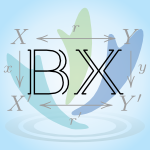 BX-2011-Czarnecki #theory and practice
BX-2011-Czarnecki #theory and practice- Model Synchronization: Theory and Practice (KC), p. 52.
 OOPSLA-2011-TovP #formal method
OOPSLA-2011-TovP #formal method- A theory of substructural types and control (JAT, RP), pp. 625–642.
 PPDP-2011-ToninhoCP #linear #type system
PPDP-2011-ToninhoCP #linear #type system- Dependent session types via intuitionistic linear type theory (BT, LC, FP), pp. 161–172.
 SAC-2011-SimoesO #behaviour #game studies #learning #modelling
SAC-2011-SimoesO #behaviour #game studies #learning #modelling- Leveraging the dynamics of learning by modeling and managing psychosocial relations and behavior by means of game theory and memetics (JCS, NO), pp. 1194–1201.
 SAC-2011-ZouaqGH #concept #graph #using
SAC-2011-ZouaqGH #concept #graph #using- Ontologizing concept maps using graph theory (AZ, DG, MH), pp. 1687–1692.
 ISMM-2011-GuD #collaboration #on the
ISMM-2011-GuD #collaboration #on the- On the theory and potential of LRU-MRU collaborative cache management (XG, CD), pp. 43–54.
 LCTES-2011-NavabpourBF #debugging #testing #using
LCTES-2011-NavabpourBF #debugging #testing #using- Software debugging and testing using the abstract diagnosis theory (SN, BB, SF), pp. 111–120.
 CADE-2011-AlpuenteBER #logic #slicing
CADE-2011-AlpuenteBER #logic #slicing- Backward Trace Slicing for Rewriting Logic Theories (MA, DB, JE, DR), pp. 34–48.
 CADE-2011-BaumgartnerT #evolution #similarity
CADE-2011-BaumgartnerT #evolution #similarity- Model Evolution with Equality Modulo Built-in Theories (PB, CT), pp. 85–100.
 CADE-2011-HoderV #reasoning #scalability
CADE-2011-HoderV #reasoning #scalability- Sine Qua Non for Large Theory Reasoning (KH, AV), pp. 299–314.
 CAV-2011-KuglerPR #biology
CAV-2011-KuglerPR #biology- Synthesizing Biological Theories (HK, CP, AR), pp. 579–584.
 CSL-2011-CantoneLA #decidability #logic #order #quantifier #set
CSL-2011-CantoneLA #decidability #logic #order #quantifier #set- A Decidable Quantified Fragment of Set Theory Involving Ordered Pairs with Applications to Description Logics (DC, CL, MNA), pp. 129–143.
 CSL-2011-LeCY #complexity #formal method #problem
CSL-2011-LeCY #complexity #formal method #problem- A Formal Theory for the Complexity Class Associated with the Stable Marriage Problem (DTML, SAC, YY), pp. 381–395.
 CSL-2011-Makowsky
CSL-2011-Makowsky- Model Theory in Computer Science: My Own Recurrent Themes (JAM), pp. 553–567.
 ICLP-2011-FodorK #logic #transaction
ICLP-2011-FodorK #logic #transaction- Transaction Logic with Defaults and Argumentation Theories (PF, MK), pp. 162–174.
 LICS-2011-Atserias #finite #tutorial
LICS-2011-Atserias #finite #tutorial- A Why-on-Earth Tutorial on Finite Model Theory (AA), p. 3.
 LICS-2011-BarrasJSW #decidability #first-order #higher-order #named #type system
LICS-2011-BarrasJSW #decidability #first-order #higher-order #named #type system- CoQMTU: A Higher-Order Type Theory with a Predicative Hierarchy of Universes Parametrized by a Decidable First-Order Theory (BB, JPJ, PYS, QW), pp. 143–151.
 LICS-2011-BirkedalMSS
LICS-2011-BirkedalMSS- First Steps in Synthetic Guarded Domain Theory: Step-Indexing in the Topos of Trees (LB, REM, JS, KS), pp. 55–64.
 LICS-2011-Kobayashi #higher-order #model checking #theory and practice
LICS-2011-Kobayashi #higher-order #model checking #theory and practice- Higher-Order Model Checking: From Theory to Practice (NK0), pp. 219–224.
 RTA-2011-BruttomessoGR #array #formal method #quantifier
RTA-2011-BruttomessoGR #array #formal method #quantifier- Rewriting-based Quantifier-free Interpolation for a Theory of Arrays (RB, SG, SR), pp. 171–186.
 TLCA-2011-ArndtK #formal method #modelling #type system
TLCA-2011-ArndtK #formal method #modelling #type system- Homotopy-Theoretic Models of Type Theory (PA, KK), pp. 45–60.
 TLCA-2011-ClairambaultD #category theory
TLCA-2011-ClairambaultD #category theory- The Biequivalence of Locally Cartesian Closed Categories and Martin-Löf Type Theories (PC, PD), pp. 91–106.
 VMCAI-2011-ChengRKB #embedded #fault tolerance #game studies #synthesis #theory and practice #using
VMCAI-2011-ChengRKB #embedded #fault tolerance #game studies #synthesis #theory and practice #using- Synthesis of Fault-Tolerant Embedded Systems Using Games: From Theory to Practice (CHC, HR, AK, CB), pp. 118–133.
 VMCAI-2011-SuterSK #constraints #modulo theories #satisfiability #set
VMCAI-2011-SuterSK #constraints #modulo theories #satisfiability #set- Sets with Cardinality Constraints in Satisfiability Modulo Theories (PS, RS, VK), pp. 403–418.
 CASE-2010-RososhanskyXL #automation #using
CASE-2010-RososhanskyXL #automation #using- Coverage based tool path planning for automated polishing using contact stress theory (MR, FX, YL), pp. 592–597.
 SIGMOD-2010-SrivastavaV #data transformation
SIGMOD-2010-SrivastavaV #data transformation- Information theory for data management (DS, SV), pp. 1255–1256.
 ITiCSE-2010-EnstromK
ITiCSE-2010-EnstromK- Computer lab work on theory (EE, VK), pp. 93–97.
 ESOP-2010-BoudolP #formal method
ESOP-2010-BoudolP #formal method- A Theory of Speculative Computation (GB, GP), pp. 165–184.
 FASE-2010-DarvasM #consistency #proving #using
FASE-2010-DarvasM #consistency #proving #using- Proving Consistency and Completeness of Model Classes Using Theory Interpretation (ÁD, PM), pp. 218–232.
 FoSSaCS-2010-ChambartS #composition #towards
FoSSaCS-2010-ChambartS #composition #towards- Toward a Compositional Theory of Leftist Grammars and Transformations (PC, PS), pp. 237–251.
 FoSSaCS-2010-GeorgievskaA #probability #testing
FoSSaCS-2010-GeorgievskaA #probability #testing- Retaining the Probabilities in Probabilistic Testing Theory (SG, SA), pp. 79–93.
 FoSSaCS-2010-SchroderP #algebra
FoSSaCS-2010-SchroderP #algebra- Coalgebraic Correspondence Theory (LS, DP), pp. 328–342.
 FoSSaCS-2010-Staton #algebra
FoSSaCS-2010-Staton #algebra- Completeness for Algebraic Theories of Local State (SS), pp. 48–63.
 TACAS-2010-CimattiFGSS #formal method #satisfiability
TACAS-2010-CimattiFGSS #formal method #satisfiability- Satisfiability Modulo the Theory of Costs: Foundations and Applications (AC, AF, AG, RS, CS), pp. 99–113.
 WRLA-2010-DuranM10a #maude #order
WRLA-2010-DuranM10a #maude #order- A Maude Coherence Checker Tool for Conditional Order-Sorted Rewrite Theories (FD, JM), pp. 86–103.
 ICSM-2010-BavotaOLAG #game studies #identification #refactoring
ICSM-2010-BavotaOLAG #game studies #identification #refactoring- Playing with refactoring: Identifying extract class opportunities through game theory (GB, RO, ADL, GA, YGG), pp. 1–5.
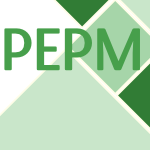 PEPM-2010-AlpuenteBBF #framework
PEPM-2010-AlpuenteBBF #framework- A fold/unfold transformation framework for rewrite theories extended to CCT (MA, DB, MB, MF), pp. 43–52.
 STOC-2010-KawamuraC #analysis #complexity
STOC-2010-KawamuraC #analysis #complexity- Complexity theory for operators in analysis (AK, SAC), pp. 495–502.
 DLT-2010-Rigo #formal method
DLT-2010-Rigo #formal method- Numeration Systems: A Link between Number Theory and Formal Language Theory (MR), pp. 33–53.
 ICALP-v1-2010-BateniHIM #game studies #network
ICALP-v1-2010-BateniHIM #game studies #network- The Cooperative Game Theory Foundations of Network Bargaining Games (MB, MH, NI, HM), pp. 67–78.
 ICALP-v2-2010-OuaknineW #bound #formal method #towards #verification
ICALP-v2-2010-OuaknineW #bound #formal method #towards #verification- Towards a Theory of Time-Bounded Verification (JO, JW), pp. 22–37.
 SFM-2010-MalacariaH #data flow #security
SFM-2010-MalacariaH #data flow #security- Information Theory and Security: Quantitative Information Flow (PM, JH), pp. 87–134.
 IFL-2010-HinzeHJ #theory and practice
IFL-2010-HinzeHJ #theory and practice- Theory and Practice of Fusion (RH, TH, DWHJ), pp. 19–37.
 ICGT-2010-Hulsbusch #bisimulation #graph transformation
ICGT-2010-Hulsbusch #bisimulation #graph transformation- Bisimulation Theory for Graph Transformation Systems (MH), pp. 391–393.
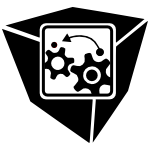 SOFTVIS-2010-MedaniHBKLMPSY #graph #visualisation
SOFTVIS-2010-MedaniHBKLMPSY #graph #visualisation- Graph works — pilot graph theory visualization tool (DM, GH, CB, PK, NL, TM, SP, RS, AY), pp. 205–206.
 CAiSE-2010-KielyBF #case study #coordination #development
CAiSE-2010-KielyBF #case study #coordination #development- Coordinating Global Virtual Teams: Building Theory from a Case Study of Software Development (GK, TB, PF), pp. 281–295.
 CIKM-2010-PiwowarskiFLR #information retrieval #quantum #what
CIKM-2010-PiwowarskiFLR #information retrieval #quantum #what- What can quantum theory bring to information retrieval (BP, IF, ML, KvR), pp. 59–68.
 CIKM-2010-RaghavanI #probability #retrieval #theory and practice
CIKM-2010-RaghavanI #probability #retrieval #theory and practice- Probabilistic first pass retrieval for search advertising: from theory to practice (HR, RI), pp. 1019–1028.
 ICML-2010-GavishNC #graph #learning #multi #theory and practice
ICML-2010-GavishNC #graph #learning #multi #theory and practice- Multiscale Wavelets on Trees, Graphs and High Dimensional Data: Theory and Applications to Semi Supervised Learning (MG, BN, RRC), pp. 367–374.
 ICML-2010-KalyanakrishnanS #multi #performance #theory and practice
ICML-2010-KalyanakrishnanS #multi #performance #theory and practice- Efficient Selection of Multiple Bandit Arms: Theory and Practice (SK, PS), pp. 511–518.
 ICPR-2010-GalloGT #summary #video
ICPR-2010-GalloGT #summary #video- Information Theory Based WCE Video Summarization (GG, EG, AT), pp. 4198–4201.
 ICPR-2010-RoySB #game studies #image #segmentation #using
ICPR-2010-RoySB #game studies #image #segmentation #using- Segmentation of Unideal Iris Images Using Game Theory (KR, CYS, PB), pp. 2844–2847.
 KDIR-2010-NakanoY #induction
KDIR-2010-NakanoY #induction- Number Theory-based Induction of Deterministic Context-free L-system Grammar (RN, NY), pp. 194–199.
 KR-2010-BartholomewL #decidability #modelling
KR-2010-BartholomewL #decidability #modelling- A Decidable Class of Groundable Formulas in the General Theory of Stable Models (MB, JL).
 KR-2010-Halpern10a
KR-2010-Halpern10a- I Don’t Want to Think About it Now: Decision Theory with Costly Computation (JYH).
 KR-2010-Poole #logic #semantics #towards
KR-2010-Poole #logic #semantics #towards- Towards a Logic of Feature-Based Semantic Science Theories (DP).
 KR-2010-QiZ #semantics
KR-2010-QiZ #semantics- Preferential Semantics for Plausible Subsumption in Possibility Theory (GQ, ZZ).
 SEKE-2010-CostaBR
SEKE-2010-CostaBR- Software Project Portfolio Selection: a Modern Portfolio Theory Based Technique (HRC, MdOB, ARR), pp. 387–392.
 SIGIR-2010-ShtokKC #modelling #predict #statistics #using
SIGIR-2010-ShtokKC #modelling #predict #statistics #using- Using statistical decision theory and relevance models for query-performance prediction (AS, OK, DC), pp. 259–266.
 SIGIR-2010-ZucconAR #question
SIGIR-2010-ZucconAR #question- Has portfolio theory got any principles? (GZ, LA, KvR), pp. 755–756.
 MoDELS-v1-2010-GuerraLKP #named #theory and practice
MoDELS-v1-2010-GuerraLKP #named #theory and practice- Inter-modelling: From Theory to Practice (EG, JdL, DSK, RFP), pp. 376–391.
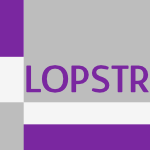 LOPSTR-2010-DanvyZ #combinator #graph #reduction
LOPSTR-2010-DanvyZ #combinator #graph #reduction- Three Syntactic Theories for Combinatory Graph Reduction (OD, IZ), pp. 1–20.
 POPL-2010-HoborDA #approximate #formal method
POPL-2010-HoborDA #approximate #formal method- A theory of indirection via approximation (AH, RD, AWA), pp. 171–184.
 SAC-2010-AveiroST #enterprise #generative #modelling #towards
SAC-2010-AveiroST #enterprise #generative #modelling #towards- Towards a GOD-theory for organizational engineering: continuously modeling the continuous (re)generation, operation and deletion of the enterprise (DA, ARS, JMT), pp. 150–157.
 SAC-2010-HansenS #analysis #implementation #optimisation #reachability
SAC-2010-HansenS #analysis #implementation #optimisation #reachability- Reachability analysis of GSPDIs: theory, optimization, and implementation (HAH, GS), pp. 2511–2516.
 SAC-2010-LuSPFZ #constraints #database #implementation #relational
SAC-2010-LuSPFZ #constraints #database #implementation #relational- Constraint processing in relational database systems: from theory to implementation (JJL, SS, OP, GHLF, HZ), pp. 2066–2070.
 ICSE-2010-BudnikCK #automation #testing #theory and practice
ICSE-2010-BudnikCK #automation #testing #theory and practice- Bridging the Gap Between the Theory and Practice of Software Test Automation (CJB, WKC, GMK), pp. 445–446.
 ICSE-2010-MedvidovicT #architecture #theory and practice
ICSE-2010-MedvidovicT #architecture #theory and practice- Software architecture: foundations, theory, and practice (NM, RNT), pp. 471–472.
 ICSE-2010-TillmannHX #testing #theory and practice
ICSE-2010-TillmannHX #testing #theory and practice- Parameterized unit testing: theory and practice (NT, JdH, TX), pp. 483–484.
 CAV-2010-Malacaria #data flow #question #theory and practice
CAV-2010-Malacaria #data flow #question #theory and practice- Quantitative Information Flow: From Theory to Practice? (PM), pp. 20–22.
 CAV-2010-Rybalchenko #constraints #theorem proving #theory and practice #verification
CAV-2010-Rybalchenko #constraints #theorem proving #theory and practice #verification- Constraint Solving for Program Verification: Theory and Practice by Example (AR), pp. 57–71.
 CAV-2010-ZhouHWG #array #bound #on the
CAV-2010-ZhouHWG #array #bound #on the- On Array Theory of Bounded Elements (MZ, FH, BYW, MG), pp. 570–584.
 CSL-2010-CookF #algebra #linear
CSL-2010-CookF #algebra #linear- Formal Theories for Linear Algebra (SAC, LF), pp. 245–259.
 CSL-2010-EickmeyerG #complexity
CSL-2010-EickmeyerG #complexity- Randomisation and Derandomisation in Descriptive Complexity Theory (KE, MG), pp. 275–289.
 CSL-2010-Rybalchenko #constraints #theorem proving #theory and practice #verification
CSL-2010-Rybalchenko #constraints #theorem proving #theory and practice #verification- Constraint Solving for Program Verification: Theory and Practice by Example (AR), p. 51.
 CSL-2010-Strub #coq #modulo theories
CSL-2010-Strub #coq #modulo theories- Coq Modulo Theory (PYS), pp. 529–543.
 IJCAR-2010-GhilardiR #model checking #modulo theories #named
IJCAR-2010-GhilardiR #model checking #modulo theories #named- MCMT: A Model Checker Modulo Theories (SG, SR), pp. 22–29.
 IJCAR-2010-IhlemannS #on the #reasoning
IJCAR-2010-IhlemannS #on the #reasoning- On Hierarchical Reasoning in Combinations of Theories (CI, VSS), pp. 30–45.
 CASE-2009-ParkPSR #adaptation
CASE-2009-ParkPSR #adaptation- Decision support for optimal adaptation of product and supply chain systems based on real options theory (CHP, LP, KS, HER), pp. 316–321.
 DATE-2009-KinsmanN #finite #modulo theories #precise #using
DATE-2009-KinsmanN #finite #modulo theories #precise #using- Finite Precision bit-width allocation using SAT-Modulo Theory (ABK, NN), pp. 1106–1111.
 PODS-2009-Libkin #database #finite
PODS-2009-Libkin #database #finite- The finite model theory toolbox of a database theoretician (LL), pp. 65–76.
 VLDB-2009-ArenasPRR #theory and practice
VLDB-2009-ArenasPRR #theory and practice- Inverting Schema Mappings: Bridging the Gap between Theory and Practice (MA, JP, JLR, CR), pp. 1018–1029.
 VLDB-2009-SrivastavaV #data transformation
VLDB-2009-SrivastavaV #data transformation- Information Theory For Data Management (DS, SV), pp. 1662–1663.
 CSEET-2009-Goel #education #learning #re-engineering
CSEET-2009-Goel #education #learning #re-engineering- Enriching the Culture of Software Engineering Education through Theories of Knowledge and Learning (SG), p. 279.
 ITiCSE-2009-Merceron #automaton #design pattern #education
ITiCSE-2009-Merceron #automaton #design pattern #education- Design patterns to support teaching of automata theory (AM), p. 341.
 WRLA-2008-HassN09 #abstraction #equation
WRLA-2008-HassN09 #abstraction #equation- Equational Abstractions for Reducing the State Space of Rewrite Theories (LHH, TN), pp. 139–154.
 ESOP-2009-Reynolds #category theory #design #programming language #using
ESOP-2009-Reynolds #category theory #design #programming language #using- Using Category Theory to Design Programming Languages (JCR), pp. 62–63.
 ESOP-2009-Sumii #for free #formal method #memory management
ESOP-2009-Sumii #for free #formal method #memory management- A Theory of Non-monotone Memory (Or: Contexts for free) (ES), pp. 237–251.
 TACAS-2009-FuchsGGKT #formal method #similarity
TACAS-2009-FuchsGGKT #formal method #similarity- Ground Interpolation for the Theory of Equality (AF, AG, JG, SK, CT), pp. 413–427.
 TACAS-2009-NicoliniRR #integer #satisfiability
TACAS-2009-NicoliniRR #integer #satisfiability- Satisfiability Procedures for Combination of Theories Sharing Integer Offsets (EN, CR, MR), pp. 428–442.
 STOC-2009-BabaiBS #matrix #polynomial
STOC-2009-BabaiBS #matrix #polynomial- Polynomial-time theory of matrix groups (LB, RB, ÁS), pp. 55–64.
 ICALP-v1-2009-HoyrupR #effectiveness #probability
ICALP-v1-2009-HoyrupR #effectiveness #probability- Applications of Effective Probability Theory to Martin-Löf Randomness (MH, CR), pp. 549–561.
 ICALP-v1-2009-Papadimitriou #algorithm #game studies
ICALP-v1-2009-Papadimitriou #algorithm #game studies- Algorithmic Game Theory: A Snapshot (CHP), pp. 3–11.
 ICALP-v2-2009-Colcombet #cost analysis #formal method #monad
ICALP-v2-2009-Colcombet #cost analysis #formal method #monad- The Theory of Stabilisation Monoids and Regular Cost Functions (TC), pp. 139–150.
 LATA-2009-Akama #commutative #learning
LATA-2009-Akama #commutative #learning- Commutative Regular Shuffle Closed Languages, Noetherian Property, and Learning Theory (YA), pp. 93–104.
 FM-2009-VakkalankaVGK #execution #semantics #theory and practice
FM-2009-VakkalankaVGK #execution #semantics #theory and practice- Reduced Execution Semantics of MPI: From Theory to Practice (SSV, AV, GG, RMK), pp. 724–740.
 CEFP-2009-Kennedy #theory and practice
CEFP-2009-Kennedy #theory and practice- Types for Units-of-Measure: Theory and Practice (AK), pp. 268–305.
 ICFP-2009-SwamyHB #formal method
ICFP-2009-SwamyHB #formal method- A theory of typed coercions and its applications (NS, MWH, GMB), pp. 329–340.
 CHI-2009-ConsolvoML #behaviour #design
CHI-2009-ConsolvoML #behaviour #design- Theory-driven design strategies for technologies that support behavior change in everyday life (SC, DWM, JAL), pp. 405–414.
 CHI-2009-SalvucciTB #concurrent #formal method #multi #performance #towards
CHI-2009-SalvucciTB #concurrent #formal method #multi #performance #towards- Toward a unified theory of the multitasking continuum: from concurrent performance to task switching, interruption, and resumption (DDS, NT, JPB), pp. 1819–1828.
 HCD-2009-Clemmensen #ada #comparison #formal method #towards #usability
HCD-2009-Clemmensen #ada #comparison #formal method #towards #usability- Towards a Theory of Cultural Usability: A Comparison of ADA and CM-U Theory (TC), pp. 416–425.
 HCD-2009-RiversCT #collaboration #design #interface #process
HCD-2009-RiversCT #collaboration #design #interface #process- Combining Activity Theory and Grounded Theory for the Design of Collaborative Interfaces (CR, JC, AT), pp. 312–321.
 HCI-AUII-2009-DetweilerB #guidelines #online #towards #trust
HCI-AUII-2009-DetweilerB #guidelines #online #towards #trust- Trust in Online Technology: Towards Practical Guidelines Based on Experimentally Verified Theory (CD, JB), pp. 605–614.
 HIMI-II-2009-NakamuraS #learning
HIMI-II-2009-NakamuraS #learning- Construction of Systematic Learning Support System of Business Theory and Method (YN, KS), pp. 669–678.
 ICEIS-J-2009-MacielPRG #web
ICEIS-J-2009-MacielPRG #web- Applying the Discourse Theory to the Moderator’s Interferences in Web Debates (CM, VCP, LR, ACBG), pp. 882–893.
 ECIR-2009-Wang #analysis #documentation #information retrieval #ranking
ECIR-2009-Wang #analysis #documentation #information retrieval #ranking- Mean-Variance Analysis: A New Document Ranking Theory in Information Retrieval (JW0), pp. 4–16.
 KDD-2009-Srivastava #data mining #mining
KDD-2009-Srivastava #data mining #mining- Data mining at NASA: from theory to applications (ANS), pp. 7–8.
 MLDM-2009-FranceC #distance
MLDM-2009-FranceC #distance- Is the Distance Compression Effect Overstated? Some Theory and Experimentation (SLF, JDC), pp. 280–294.
 MLDM-2009-YuksekC #algorithm
MLDM-2009-YuksekC #algorithm- An Improved Tabu Search (ITS) Algorithm Based on Open Cover Theory for Global Extremums (KY, SC), pp. 505–515.
 SIGIR-2009-BolourianMR #named #quantifier #topic #using
SIGIR-2009-BolourianMR #named #quantifier #topic #using- SugarCube: quantification of topic propagation in the blogosphere using percolation theory (AAB, YM, CJvR), pp. 786–787.
 SIGIR-2009-WangZ #information retrieval
SIGIR-2009-WangZ #information retrieval- Portfolio theory of information retrieval (JW, JZ), pp. 115–122.
 POPL-2009-WangLKKM #concurrent #formal method
POPL-2009-WangLKKM #concurrent #formal method- The theory of deadlock avoidance via discrete control (YW, SL, TK, MK, SAM), pp. 252–263.
 SAC-2009-Manine #information management #learning #multi #ontology
SAC-2009-Manine #information management #learning #multi #ontology- Learning the ontological theory of an information extraction system in the multi-predicate ILP setting (APM), pp. 1578–1582.
 SAC-2009-RodriguesSC #composition #embedded #functional #set #using #verification
SAC-2009-RodriguesSC #composition #embedded #functional #set #using #verification- Improving functional verification of embedded systems using hierarchical composition and set theory (CLR, KRGdS, HdNC), pp. 1632–1636.
 GTTSE-2009-GjosaeterP #compilation #education #metamodelling
GTTSE-2009-GjosaeterP #compilation #education #metamodelling- Teaching Computer Language Handling — From Compiler Theory to Meta-modelling (TG, AP), pp. 446–460.
 GTTSE-2009-Selic #design #modelling #perspective #re-engineering #theory and practice
GTTSE-2009-Selic #design #modelling #perspective #re-engineering #theory and practice- The Theory and Practice of Modeling Language Design for Model-Based Software Engineering — A Personal Perspective (BS), pp. 290–321.
 LCTES-2009-ZouABL #embedded #flexibility #graph #realtime #theory and practice
LCTES-2009-ZouABL #embedded #flexibility #graph #realtime #theory and practice- PTIDES on flexible task graph: real-time embedded systembuilding from theory to practice (JZ, JSA, DFB, EAL), pp. 31–40.
 CADE-2009-CiobacaDK #convergence #equation #protocol #security
CADE-2009-CiobacaDK #convergence #equation #protocol #security- Computing Knowledge in Security Protocols under Convergent Equational Theories (SC, SD, SK), pp. 355–370.
 CADE-2009-GoelKT
CADE-2009-GoelKT- Ground Interpolation for Combined Theories (AG, SK, CT), pp. 183–198.
 CADE-2009-Korovin #automation #reasoning #theory and practice
CADE-2009-Korovin #automation #reasoning #theory and practice- Instantiation-Based Automated Reasoning: From Theory to Practice (KK), pp. 163–166.
 CADE-2009-Sofronie-Stokkermans #locality
CADE-2009-Sofronie-Stokkermans #locality- Locality Results for Certain Extensions of Theories with Bridging Functions (VSS), pp. 67–83.
 CAV-2009-GeM #modulo theories #quantifier #satisfiability
CAV-2009-GeM #modulo theories #quantifier #satisfiability- Complete Instantiation for Quantified Formulas in Satisfiabiliby Modulo Theories (YG, LMdM), pp. 306–320.
 CAV-2009-GuerraouiK #memory management #transaction
CAV-2009-GuerraouiK #memory management #transaction- Transactional Memory: Glimmer of a Theory (RG, MK), pp. 1–15.
 CSL-2009-CiabattoniST #proving
CSL-2009-CiabattoniST #proving- Expanding the Realm of Systematic Proof Theory (AC, LS, KT), pp. 163–178.
 CSL-2009-Coquand #type system
CSL-2009-Coquand #type system- Forcing and Type Theory (TC), p. 2.
 CSL-2009-TurnerW #concurrent
CSL-2009-TurnerW #concurrent- Nominal Domain Theory for Concurrency (DT, GW), pp. 546–560.
 ICLP-2009-Truszczynski #logic programming #satisfiability #semantics #source code
ICLP-2009-Truszczynski #logic programming #satisfiability #semantics #source code- Reducts of Propositional Theories, Satisfiability Relations, and Generalizations of Semantics of Logic Programs (MT), pp. 175–189.
 ICLP-2009-WanGKFL #logic programming
ICLP-2009-WanGKFL #logic programming- Logic Programming with Defaults and Argumentation Theories (HW, BNG, MK, PF, SL), pp. 432–448.
 RTA-2009-Schubert #parallel
RTA-2009-Schubert #parallel- The Existential Fragment of the One-Step Parallel Rewriting Theory (AS), pp. 78–92.
 RTA-2009-TiuG #analysis #proving
RTA-2009-TiuG #analysis #proving- A Proof Theoretic Analysis of Intruder Theories (AT, RG), pp. 103–117.
 SAT-2009-KimSJ #modulo theories #performance #satisfiability
SAT-2009-KimSJ #modulo theories #performance #satisfiability- Efficient Term-ITE Conversion for Satisfiability Modulo Theories (HK, FS, HJ), pp. 195–208.
 SAT-2009-Nieuwenhuis #algorithm #modulo theories #satisfiability
SAT-2009-Nieuwenhuis #algorithm #modulo theories #satisfiability- SAT Modulo Theories: Enhancing SAT with Special-Purpose Algorithms (RN), p. 1.
 TLCA-2009-AbelCP #algorithm #composition #proving #type system
TLCA-2009-AbelCP #algorithm #composition #proving #type system- A Modular Type-Checking Algorithm for Type Theory with Singleton Types and Proof Irrelevance (AA, TC, MP), pp. 5–19.
 TLCA-2009-AwodeyR #semantics #type system
TLCA-2009-AwodeyR #semantics #type system- Kripke Semantics for Martin-Löf’s Extensional Type Theory (SA, FR), pp. 249–263.
 TLCA-2009-Lumsdaine #type system
TLCA-2009-Lumsdaine #type system- Weak ω-Categories from Intensional Type Theory (PLL), pp. 172–187.
 TLCA-2009-Strassburger #higher-order #linear #logic #multi #proving
TLCA-2009-Strassburger #higher-order #linear #logic #multi #proving- Some Observations on the Proof Theory of Second Order Propositional Multiplicative Linear Logic (LS), pp. 309–324.
 VMCAI-2009-Maier
VMCAI-2009-Maier- Deciding Extensions of the Theories of Vectors and Bags (PM), pp. 245–259.
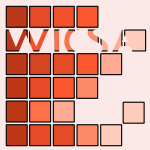 WICSA-2008-LaMantiaCMR #design #evolution #matrix #scalability #using
WICSA-2008-LaMantiaCMR #design #evolution #matrix #scalability #using- Analyzing the Evolution of Large-Scale Software Systems Using Design Structure Matrices and Design Rule Theory: Two Exploratory Cases (MJL, YC, AM, JR), pp. 83–92.
 CASE-2008-TeixeiraL #development
CASE-2008-TeixeiraL #development- Development of electronic controls for refrigerators based on the supervisory control theory (CAT, ABL), pp. 35–40.
 DAC-2008-GolsonC #implementation #physics #theory and practice
DAC-2008-GolsonC #implementation #physics #theory and practice- Flow engineering for physical implementation: theory and practice (SG, PC), p. 1.
 DAC-2008-GuC #3d #game studies #interactive
DAC-2008-GuC #3d #game studies #interactive- Control theory-based DVS for interactive 3D games (YG, SC), pp. 740–745.
 DRR-2008-GacebELE #graph #locality
DRR-2008-GacebELE #graph #locality- Address block localization based on graph theory (DG, VE, FL, HE), p. 68150.
 HT-2008-ChiM #comprehension #performance #social #using
HT-2008-ChiM #comprehension #performance #social #using- Understanding the efficiency of social tagging systems using information theory (EHC, TM), pp. 81–88.
 PODS-2008-FaginKNP #formal method #optimisation #towards
PODS-2008-FaginKNP #formal method #optimisation #towards- Towards a theory of schema-mapping optimization (RF, PGK, AN, LP), pp. 33–42.
 SIGMOD-2008-CecchetCA #database #middleware #replication #theory and practice
SIGMOD-2008-CecchetCA #database #middleware #replication #theory and practice- Middleware-based database replication: the gaps between theory and practice (EC, GC, AA), pp. 739–752.
 ITiCSE-2008-MurphyT #education #research #self
ITiCSE-2008-MurphyT #education #research #self- Dangers of a fixed mindset: implications of self-theories research for computer science education (LM, LT), pp. 271–275.
 ITiCSE-2008-ReyesM #combinator #education #game studies #java
ITiCSE-2008-ReyesM #combinator #education #game studies #java- Games developed in Java for teaching “Combinatorial Game Theory” (MR, ÁM), p. 359.
 ESOP-2008-HermanW #formal method #metaprogramming
ESOP-2008-HermanW #formal method #metaprogramming- A Theory of Hygienic Macros (DH, MW), pp. 48–62.
 ESOP-2008-PetersenBNM #hoare #type system
ESOP-2008-PetersenBNM #hoare #type system- A Realizability Model for Impredicative Hoare Type Theory (RLP, LB, AN, GM), pp. 337–352.
 TACAS-2008-CimattiGS #generative #modulo theories #performance #satisfiability
TACAS-2008-CimattiGS #generative #modulo theories #performance #satisfiability- Efficient Interpolant Generation in Satisfiability Modulo Theories (AC, AG, RS), pp. 397–412.
 ICPC-2008-FlemingKSDX #comprehension #concurrent #maintenance
ICPC-2008-FlemingKSDX #comprehension #concurrent #maintenance- Refining Existing Theories of Program Comprehension During Maintenance for Concurrent Software (SDF, EK, REKS, LKD, SX), pp. 23–32.
 ICSM-2008-He #generative #programming #refinement #testing
ICSM-2008-He #generative #programming #refinement #testing- Refinement and test case generation in Unifying Theory of Programming (JH), p. 6.
 STOC-2008-AaronsonW #complexity #named
STOC-2008-AaronsonW #complexity #named- Algebrization: a new barrier in complexity theory (SA, AW), pp. 731–740.
 STOC-2008-BlumLR #approach #database #learning #privacy
STOC-2008-BlumLR #approach #database #learning #privacy- A learning theory approach to non-interactive database privacy (AB, KL, AR), pp. 609–618.
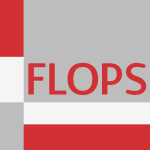 FLOPS-2008-AbelCD #algebra #on the #proving #type system
FLOPS-2008-AbelCD #algebra #on the #proving #type system- On the Algebraic Foundation of Proof Assistants for Intuitionistic Type Theory (AA, TC, PD), pp. 3–13.
 FLOPS-2008-Kobayashi08a #backtracking #continuation
FLOPS-2008-Kobayashi08a #backtracking #continuation- A New Translation for Semi-classical Theories — Backtracking without CPS (SK), pp. 210–223.
 DLT-2008-DAlessandroV #formal method
DLT-2008-DAlessandroV #formal method- Well Quasi-orders in Formal Language Theory (FD, SV), pp. 84–95.
 ICALP-B-2008-GehrkeGP #equation #regular expression
ICALP-B-2008-GehrkeGP #equation #regular expression- Duality and Equational Theory of Regular Languages (MG, SG, JÉP), pp. 246–257.
 SEFM-2008-GhassemiFM #process #strict
SEFM-2008-GhassemiFM #process #strict- Restricted Broadcast Process Theory (FG, WF, AM), pp. 345–354.
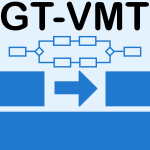 GT-VMT-2006-BottoniPPT08 #distributed #eclipse #maintenance #modelling
GT-VMT-2006-BottoniPPT08 #distributed #eclipse #maintenance #modelling- Maintaining Coherence Between Models With Distributed Rules: From Theory to Eclipse (PB, FPP, SP, GT), pp. 87–98.
 ICGT-2008-Stevens #algebra #bidirectional #towards
ICGT-2008-Stevens #algebra #bidirectional #towards- Towards an Algebraic Theory of Bidirectional Transformations (PS), pp. 1–17.
 CHI-2008-Satchell #design
CHI-2008-Satchell #design- Cultural theory and real world design: Dystopian and Utopian Outcomes (CS), pp. 1593–1602.
 CHI-2008-SchmettowV #process #usability
CHI-2008-SchmettowV #process #usability- Introducing item response theory for measuring usability inspection processes (MS, WV), pp. 893–902.
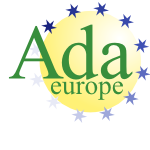 AdaEurope-2008-CarnevaliGV #formal method #petri net
AdaEurope-2008-CarnevaliGV #formal method #petri net- A Tailored V-Model Exploiting the Theory of Preemptive Time Petri Nets (LC, LG, EV), pp. 87–100.
 AdaEurope-2008-SinghoffPD #realtime #scheduling #usability
AdaEurope-2008-SinghoffPD #realtime #scheduling #usability- Can We Increase the Usability of Real Time Scheduling Theory? The Cheddar Project (FS, AP, PD), pp. 240–253.
 CIKM-2008-ShiNC #using
CIKM-2008-ShiNC #using- Relating dependent indexes using dempster-shafer theory (LS, JYN, GC), pp. 429–438.
 CIKM-2008-WangZRM #automation #online #ranking #topic #using
CIKM-2008-WangZRM #automation #online #ranking #topic #using- Automatic online news topic ranking using media focus and user attention based on aging theory (CW, MZ, LR, SM), pp. 1033–1042.
 ICML-2008-XiaLWZL #algorithm #approach #learning #rank
ICML-2008-XiaLWZL #algorithm #approach #learning #rank- Listwise approach to learning to rank: theory and algorithm (FX, TYL, JW, WZ, HL), pp. 1192–1199.
 ICPR-2008-SukumarBPKA #locality #multi #nondeterminism #using
ICPR-2008-SukumarBPKA #locality #multi #nondeterminism #using- Uncertainty minimization in multi-sensor localization systems using model selection theory (SRS, HB, DLP, AK, MAA), pp. 1–4.
 KR-2008-Bochman
KR-2008-Bochman- Default Theory of Defeasible Entailment (AB), pp. 466–475.
 KR-2008-FritzBM #compilation
KR-2008-FritzBM #compilation- ConGolog, Sin Trans: Compiling ConGolog into Basic Action Theories for Planning and Beyond (CF, JAB, SAM), pp. 600–610.
 KR-2008-Varzinczak
KR-2008-Varzinczak- Action Theory Erasure and Minimal Change (IJV), pp. 651–661.
 KR-2008-VassosLL #first-order
KR-2008-VassosLL #first-order- First-Order Strong Progression for Local-Effect Basic Action Theories (SV, GL, HJL), pp. 662–672.
 KR-2008-WittocxMD #approximate #first-order #logic #reasoning
KR-2008-WittocxMD #approximate #first-order #logic #reasoning- Approximate Reasoning in First-Order Logic Theories (JW, MM, MD), pp. 103–112.
 SIGIR-2008-RoellekeW #case study
SIGIR-2008-RoellekeW #case study- TF-IDF uncovered: a study of theories and probabilities (TR, JW), pp. 435–442.
 OOPSLA-2008-BaldiLLB #aspect-oriented #formal method #topic
OOPSLA-2008-BaldiLLB #aspect-oriented #formal method #topic- A theory of aspects as latent topics (PB, CVL, EL, SKB), pp. 543–562.
 POPL-2008-CastagnaGP #contract #formal method #web #web service
POPL-2008-CastagnaGP #contract #formal method #web #web service- A theory of contracts for web services (GC, NG, LP), pp. 261–272.
 POPL-2008-NitaGC #bytecode #formal method #low level
POPL-2008-NitaGC #bytecode #formal method #low level- A theory of platform-dependent low-level software (MN, DG, CC), pp. 209–220.
 SAC-2008-Djelloul #constraints #first-order
SAC-2008-Djelloul #constraints #first-order- Combination of decomposability and propagation for solving first-order constraints in decomposable theories (KD), pp. 1728–1732.
 SAC-2008-VargunM
SAC-2008-VargunM- Code-carrying theory (AV, DRM), pp. 376–383.
 FSE-2008-DragertDR #concurrent #generative #using
FSE-2008-DragertDR #concurrent #generative #using- Generation of concurrency control code using discrete-event systems theory (CD, JD, KR), pp. 146–157.
 SMT-2007-ConchonCKL08 #congruence #semantics
SMT-2007-ConchonCKL08 #congruence #semantics- CC(X): Semantic Combination of Congruence Closure with Solvable Theories (SC, EC, JK, SL), pp. 51–69.
 SMT-2007-MouraB08 #modelling
SMT-2007-MouraB08 #modelling- Model-based Theory Combination (LMdM, NB), pp. 37–49.
 CSL-2008-HermantL #approach #axiom #semantics
CSL-2008-HermantL #approach #axiom #semantics- A Constructive Semantic Approach to Cut Elimination in Type Theories with Axioms (OH, JL), pp. 169–183.
 CSL-2008-Saurin #on the #λ-calculus #μ-calculus
CSL-2008-Saurin #on the #λ-calculus #μ-calculus- On the Relations between the Syntactic Theories of λμ-Calculi (AS), pp. 154–168.
 CSL-2008-Thomas #decidability #model transformation #monad #proving
CSL-2008-Thomas #decidability #model transformation #monad #proving- Model Transformations in Decidability Proofs for Monadic Theories (WT), pp. 23–31.
 ICLP-2008-CalimeriCIL #implementation
ICLP-2008-CalimeriCIL #implementation- Computable Functions in ASP: Theory and Implementation (FC, SC, GI, NL), pp. 407–424.
 ICLP-2008-JanssenHVC #compilation #fuzzy #set #source code
ICLP-2008-JanssenHVC #compilation #fuzzy #set #source code- Compiling Fuzzy Answer Set Programs to Fuzzy Propositional Theories (JJ, SH, DV, MDC), pp. 362–376.
 ICLP-2008-LeeLP #modelling
ICLP-2008-LeeLP #modelling- Safe Formulas in the General Theory of Stable Models (Preliminary Report) (JL, VL, RP), pp. 672–676.
 ICLP-2008-LeoneF #research
ICLP-2008-LeoneF #research- The DLV Project: A Tour from Theory and Research to Applications and Market (NL, WF), pp. 53–68.
 ICLP-2008-MarekR #on the
ICLP-2008-MarekR #on the- On the Continuity of Gelfond-Lifschitz Operator and Other Applications of Proof-Theory in ASP (VWM, JBR), pp. 223–237.
 ICLP-2008-PiancastelliO #logic #multi #web
ICLP-2008-PiancastelliO #logic #multi #web- A Multi-theory Logic Language for the World Wide Web (GP, AO), pp. 769–773.
 RTA-2008-HendrixO #automaton #equation
RTA-2008-HendrixO #automaton #equation- Combining Equational Tree Automata over AC and ACI Theories (JH, HO), pp. 142–156.
 SAT-2008-FaureNOR #formal method #linear #satisfiability
SAT-2008-FaureNOR #formal method #linear #satisfiability- SAT Modulo the Theory of Linear Arithmetic: Exact, Inexact and Commercial Solvers (GF, RN, AO, ERC), pp. 77–90.
 QoSA-2007-DuzbayevP #adaptation
QoSA-2007-DuzbayevP #adaptation- Pre-emptive Adaptation Through Classical Control Theory (ND, IP), pp. 164–181.
 WICSA-2007-Apte #analysis #distributed #performance
WICSA-2007-Apte #analysis #distributed #performance- Performance Analysis of Distributed Software Systems: Approaches Based on Queueing Theory (VA), p. 39.
 CASE-2007-WuMZ #standard
CASE-2007-WuMZ #standard- Compatibility of Queueing Theory, Manufacturing Systems and SEMI Standards (KW, LFM, BZ), pp. 501–506.
 ICDAR-2007-EspositoFMB #automation #documentation #first-order #incremental #learning #logic #web
ICDAR-2007-EspositoFMB #automation #documentation #first-order #incremental #learning #logic #web- Incremental Learning of First Order Logic Theories for the Automatic Annotations of Web Documents (FE, SF, NDM, TMAB), pp. 1093–1097.
 VLDB-2007-BernsteinH #model management #theory and practice
VLDB-2007-BernsteinH #model management #theory and practice- Model Management and Schema Mappings: Theory and Practice (PAB, HH), pp. 1439–1440.
 VLDB-2007-ConsensBLA #information retrieval #web #xml
VLDB-2007-ConsensBLA #information retrieval #web #xml- XML retrieval: db/ir in theory, web in practice (MPC, RABY, ML, SAY), pp. 1437–1438.
 ITiCSE-2007-Arnold #interactive #learning #logic
ITiCSE-2007-Arnold #interactive #learning #logic- Introducing propositional logic and queueing theory with the infotraffic interactive learning environments (RA), p. 356.
 ITiCSE-2007-RodgerLR #automaton #formal method #interactive
ITiCSE-2007-RodgerLR #automaton #formal method #interactive- Increasing interaction and support in the formal languages and automata theory course (SHR, JL, SR), pp. 58–62.
 ITiCSE-2007-StallmannBRBGH #automaton #correctness #named #proving
ITiCSE-2007-StallmannBRBGH #automaton #correctness #named #proving- ProofChecker: an accessible environment for automata theory correctness proofs (MFS, SB, RDR, SB, MCG, SDH), pp. 48–52.
 ESOP-2007-LarsenNW #automaton #interface #product line
ESOP-2007-LarsenNW #automaton #interface #product line- Modal I/O Automata for Interface and Product Line Theories (KGL, UN, AW), pp. 64–79.
 ESOP-2007-NanevskiAMB #data type #hoare #type system
ESOP-2007-NanevskiAMB #data type #hoare #type system- Abstract Predicates and Mutable ADTs in Hoare Type Theory (AN, AA, GM, LB), pp. 189–204.
 FASE-2007-SilvaM #formal method
FASE-2007-SilvaM #formal method- A Simulation-Oriented Formalization for a Psychological Theory (PSdS, ACVdM), pp. 42–56.
 TACAS-2007-KrsticGGT #parametricity #satisfiability
TACAS-2007-KrsticGGT #parametricity #satisfiability- Combined Satisfiability Modulo Parametric Theories (SK, AG, JG, CT), pp. 602–617.
 STOC-2007-GutoskiW #game studies #quantum #towards
STOC-2007-GutoskiW #game studies #quantum #towards- Toward a general theory of quantum games (GG, JW), pp. 565–574.
 STOC-2007-Lynch #algorithm #distributed #modelling #proving
STOC-2007-Lynch #algorithm #distributed #modelling #proving- Distributed computing theory: algorithms, impossibility results, models, and proofs (NAL), p. 247.
 CIAA-2007-Vardi #automaton #linear #model checking
CIAA-2007-Vardi #automaton #linear #model checking- Linear-Time Model Checking: Automata Theory in Practice (MYV), pp. 5–10.
 DLT-2007-LoosO #complexity
DLT-2007-LoosO #complexity- Complexity Theory for Splicing Systems (RL, MO), pp. 300–311.
 ICALP-2007-DawarGKS #scalability
ICALP-2007-DawarGKS #scalability- Model Theory Makes Formulas Large (AD, MG, SK, NS), pp. 913–924.
 IFM-2007-SmithG
IFM-2007-SmithG- Unifying Theories of Objects (MAS, JG), pp. 599–618.
 HCI-IDU-2007-YueWW #design #interactive #theory and practice #ubiquitous
HCI-IDU-2007-YueWW #design #interactive #theory and practice #ubiquitous- Designing Transparent Interaction for Ubiquitous Computing: Theory and Application (WY, HW, GW), pp. 331–339.
 HIMI-IIE-2007-DoyoSA #case study #transaction #using
HIMI-IIE-2007-DoyoSA #case study #transaction #using- A Study of Production / Transaction-Related Model Using Control Theory (DD, KS, KA), pp. 855–862.
 SIGAda-2007-Singhoff #ada #named #realtime #scheduling
SIGAda-2007-Singhoff #ada #named #realtime #scheduling- MP1: real time scheduling theory and its use with ada (FS), p. 8.
 ICEIS-AIDSS-2007-KirwanGM #adaptation #case study #energy #implementation #information management #using
ICEIS-AIDSS-2007-KirwanGM #adaptation #case study #energy #implementation #information management #using- Energy Management Information Systems: An Exploratory study of Implementations Using Adaptive Structuration Theory (OK, WG, PM), pp. 303–309.
 ICEIS-DISI-2007-AldazabalBM #industrial #process
ICEIS-DISI-2007-AldazabalBM #industrial #process- Activity theory model — application in the automotive industry (JA, GB, JAM), pp. 615–620.
 MLDM-2007-MozaffariFM #online #recognition
MLDM-2007-MozaffariFM #online #recognition- Application of Fractal Theory for On-Line and Off-Line Farsi Digit Recognition (SM, KF, VM), pp. 868–882.
 SIGIR-2007-BodoffL #information retrieval
SIGIR-2007-BodoffL #information retrieval- Test theory for assessing IR test collections (DB, PL), pp. 367–374.
 POPL-2007-Batory #implementation #synthesis
POPL-2007-Batory #implementation #synthesis- From implementation to theory in product synthesis (DSB), pp. 135–136.
 POPL-2007-StovringL #induction
POPL-2007-StovringL #induction- A complete, co-inductive syntactic theory of sequential control and state (KS, SBL), pp. 161–172.
 RE-2007-HeitmeyerJBA #development #lessons learnt
RE-2007-HeitmeyerJBA #development #lessons learnt- RE Theory Meets Software Practice: Lessons from the Software Development Trenches (CLH, RDJ, RB, MA), pp. 265–268.
 PPoPP-2007-SaraswatJMP #formal method #memory management #modelling
PPoPP-2007-SaraswatJMP #formal method #memory management #modelling- A theory of memory models (VAS, RJ, MMM, CvP), pp. 161–172.
 SMT-J-2006-BarrettST07 #data type #formal method #induction
SMT-J-2006-BarrettST07 #data type #formal method #induction- An Abstract Decision Procedure for a Theory of Inductive Data Types (CB, IS, CT), pp. 21–46.
 CADE-2007-GeBT #modulo theories #quantifier #satisfiability #using #verification
CADE-2007-GeBT #modulo theories #quantifier #satisfiability #using #verification- Solving Quantified Verification Conditions Using Satisfiability Modulo Theories (YG, CB, CT), pp. 167–182.
 CAV-2007-MouraDS #modulo theories #satisfiability #tutorial
CAV-2007-MouraDS #modulo theories #satisfiability #tutorial- A Tutorial on Satisfiability Modulo Theories (LMdM, BD, NS), pp. 20–36.
 CSL-2007-AehligCN #complexity
CSL-2007-AehligCN #complexity- Relativizing Small Complexity Classes and Their Theories (KA, SAC, PN), pp. 374–388.
 CSL-2007-BerlineMS #effectiveness #modelling
CSL-2007-BerlineMS #effectiveness #modelling- λ Theories of Effective λ Models (CB, GM, AS), pp. 268–282.
 CSL-2007-Kesner #calculus #formal method #revisited
CSL-2007-Kesner #calculus #formal method #revisited- The Theory of Calculi with Explicit Substitutions Revisited (DK), pp. 238–252.
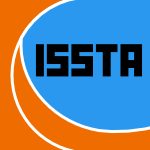 ISSTA-2007-Koster #consistency #quality #using
ISSTA-2007-Koster #consistency #quality #using- Using portfolio theory for better and more consistent quality (KK), pp. 108–117.
 LICS-2007-AbelCD #evaluation #normalisation #similarity #type system
LICS-2007-AbelCD #evaluation #normalisation #similarity #type system- Normalization by Evaluation for Martin-Lof Type Theory with Typed Equality Judgements (AA, TC, PD), pp. 3–12.
 LICS-2007-Edalat #approach #integration
LICS-2007-Edalat #approach #integration- A computable approach to measure and integration theory (AE), pp. 463–472.
 LICS-2007-Kolaitis #finite
LICS-2007-Kolaitis #finite- Reflections on Finite Model Theory (PGK), pp. 257–269.
 LICS-2007-Moczydlowski #set
LICS-2007-Moczydlowski #set- A Dependent Set Theory (WM), pp. 23–34.
 LICS-2007-MontanariP
LICS-2007-MontanariP- A Contraction Method to Decide MSO Theories of Deterministic Trees (AM, GP), pp. 141–150.
 RTA-2007-NieuwenhuisORR #challenge #modulo theories #satisfiability
RTA-2007-NieuwenhuisORR #challenge #modulo theories #satisfiability- Challenges in Satisfiability Modulo Theories (RN, AO, ERC, AR), pp. 2–18.
 SAT-2007-CimattiGS #flexibility #modulo theories #satisfiability
SAT-2007-CimattiGS #flexibility #modulo theories #satisfiability- A Simple and Flexible Way of Computing Small Unsatisfiable Cores in SAT Modulo Theories (AC, AG, RS), pp. 334–339.
 SAT-2007-GomesHSS #theory and practice
SAT-2007-GomesHSS #theory and practice- Short XORs for Model Counting: From Theory to Practice (CPG, JH, AS, BS), pp. 100–106.
 TAP-2007-Haiyan #algorithm #distributed #proving #testing #type system
TAP-2007-Haiyan #algorithm #distributed #proving #testing #type system- Testing and Proving Distributed Algorithms in Constructive Type Theory (QH), pp. 79–94.
 VMCAI-2007-BeyerHMR #invariant #synthesis
VMCAI-2007-BeyerHMR #invariant #synthesis- Invariant Synthesis for Combined Theories (DB, TAH, RM, AR), pp. 378–394.
 DAC-2006-WangGG #deduction #difference #learning #logic
DAC-2006-WangGG #deduction #difference #learning #logic- Predicate learning and selective theory deduction for a difference logic solver (CW, AG, MKG), pp. 235–240.
 DATE-2006-RongP #algorithm #formal method #markov #online #process
DATE-2006-RongP #algorithm #formal method #markov #online #process- Determining the optimal timeout values for a power-managed system based on the theory of Markovian processes: offline and online algorithms (PR, MP), pp. 1128–1133.
 DATE-2006-SoffkeZMG #analysis #approach #combinator #statistics
DATE-2006-SoffkeZMG #analysis #approach #combinator #statistics- A signal theory based approach to the statistical analysis of combinatorial nanoelectronic circuits (OS, PZ, TM, MG), pp. 632–637.
 DATE-2006-WangCG #fault #formal method #probability #testing #using
DATE-2006-WangCG #fault #formal method #probability #testing #using- Test set enrichment using a probabilistic fault model and the theory of output deviations (ZW, KC, MG), pp. 1270–1275.
 SIGMOD-2006-Cohen #theory and practice
SIGMOD-2006-Cohen #theory and practice- User-defined aggregate functions: bridging theory and practice (SC), pp. 49–60.
 CSEET-2006-BasiliB #education #re-engineering
CSEET-2006-BasiliB #education #re-engineering- Software Engineering Instruction and Education Theory: A Dialogue (PAB, VRB), p. 6.
 ITiCSE-2006-HielscherW #automaton #education #formal method #learning #named
ITiCSE-2006-HielscherW #automaton #education #formal method #learning #named- AtoCC: learning environment for teaching theory of automata and formal languages (MH, CW), p. 306.
 FoSSaCS-2006-FrancalanzaH #fault tolerance
FoSSaCS-2006-FrancalanzaH #fault tolerance- A Theory for Observational Fault Tolerance (AF, MH), pp. 16–31.
 FoSSaCS-2006-KuskeL #first-order
FoSSaCS-2006-KuskeL #first-order- First-Order and Counting Theories of ω-Automatic Structures (DK, ML), pp. 322–336.
 STOC-2006-AbrahamBN #metric #roadmap
STOC-2006-AbrahamBN #metric #roadmap- Advances in metric embedding theory (IA, YB, ON), pp. 271–286.
 FLOPS-2006-GregoireTW #approach #type system
FLOPS-2006-GregoireTW #approach #type system- A Computational Approach to Pocklington Certificates in Type Theory (BG, LT, BW), pp. 97–113.
 CIAA-2006-Rozenberg #assembly
CIAA-2006-Rozenberg #assembly- Theory Inspired by Gene Assembly in Ciliates (GR), p. 10.
 DLT-2006-GurevichW #question #state machine
DLT-2006-GurevichW #question #state machine- Can Abstract State Machines Be Useful in Language Theory? (YG, CW), pp. 14–19.
 ICALP-v2-2006-LohreyS
ICALP-v2-2006-LohreyS- Theories of HNN-Extensions and Amalgamated Products (ML, GS), pp. 504–515.
 SEFM-2006-RaniseZ #formal method
SEFM-2006-RaniseZ #formal method- A Theory of Singly-Linked Lists and its Extensible Decision Procedure (SR, CGZ), pp. 206–215.
 ICFP-2006-NanevskiMB #hoare #morphism #polymorphism #type system
ICFP-2006-NanevskiMB #hoare #morphism #polymorphism #type system- Polymorphism and separation in hoare type theory (AN, GM, LB), pp. 62–73.
 CSCW-2006-RazaviI #behaviour #information management #learning
CSCW-2006-RazaviI #behaviour #information management #learning- A grounded theory of information sharing behavior in a personal learning space (MNR, LI), pp. 459–468.
 ICML-2006-BalcanB #formal method #learning #on the #similarity
ICML-2006-BalcanB #formal method #learning #on the #similarity- On a theory of learning with similarity functions (MFB, AB), pp. 73–80.
 ICPR-v1-2006-Lopez-FrancoB #algebra #geometry #invariant #navigation #using
ICPR-v1-2006-Lopez-FrancoB #algebra #geometry #invariant #navigation #using- Omnidirectional Vision and Invariant Theory for Robot Navigation Using Conformal Geometric Algebra (CLF, EBC), pp. 570–573.
 ICPR-v2-2006-KimYL #estimation #image #interactive #modelling #parametricity #random #segmentation #using
ICPR-v2-2006-KimYL #estimation #image #interactive #modelling #parametricity #random #segmentation #using- New MRF Parameter Estimation Technique for Texture Image Segmentation using Hierarchical GMRF Model Based on Random Spatial Interaction and Mean Field Theory (DHK, IDY, SUL), pp. 365–368.
 ICPR-v2-2006-VanhamelSP #graph #image #multi #segmentation
ICPR-v2-2006-VanhamelSP #graph #image #multi #segmentation- Nonlinear Multiscale Graph Theory based Segmentation of Color Images (IV, HS, IP), pp. 407–411.
 ICPR-v3-2006-KoshimizuTF
ICPR-v3-2006-KoshimizuTF- OK-Quantization Theory — A Mathematical Theory of Quantization - (HK, YT, TF), pp. 865–868.
 ICPR-v3-2006-TanakaFKI #theorem
ICPR-v3-2006-TanakaFKI #theorem- A Theoretical and Experimental Consideration on Interference in Resolutions between Sampling Theorem and OK-Quantization Theory (YT, TF, HK, TI), pp. 869–872.
 ICPR-v4-2006-ArifBV
ICPR-v4-2006-ArifBV- A fusion methodology based on Dempster-Shafer evidence theory for two biometric applications (MA, TB, NV), pp. 590–593.
 KR-2006-Bennett #formal method
KR-2006-Bennett #formal method- A Theory of Vague Adjectives Grounded in Relevant Observables (BB), pp. 36–45.
 KR-2006-BlumeEH
KR-2006-BlumeEH- Redoing the Foundations of Decision Theory (LEB, DAE, JYH), pp. 14–24.
 KR-2006-SannerM #calculus #first-order #hybrid #logic #reasoning
KR-2006-SannerM #calculus #first-order #hybrid #logic #reasoning- An Ordered Theory Resolution Calculus for Hybrid Reasoning in First-Order Extensions of Description Logic (SS, SAM), pp. 100–111.
 KR-2006-SonT #approximate #on the #reasoning
KR-2006-SonT #approximate #on the #reasoning- On the Completeness of Approximation Based Reasoning and Planning in Action Theories with Incomplete Information (TCS, PHT), pp. 481–491.
 KR-2006-Truszczynski #algebra #approach #equivalence
KR-2006-Truszczynski #algebra #approach #equivalence- Strong and Uniform Equivalence of Nonmonotonic Theories — An Algebraic Approach (MT), pp. 389–399.
 MoDELS-2006-ZitoDD #question #uml
MoDELS-2006-ZitoDD #question #uml- Package Merge in UML 2: Practice vs. Theory? (AZ, ZD, JD), pp. 185–199.
 MoDELS-2006-ZitoDD #question #uml
MoDELS-2006-ZitoDD #question #uml- Package Merge in UML 2: Practice vs. Theory? (AZ, ZD, JD), pp. 185–199.
 QAPL-2006-SingerB #predict
QAPL-2006-SingerB #predict- Return Value Prediction meets Information Theory (JS, GB), pp. 137–151.
 RE-2006-Gonzalez-BaixauliLL #elicitation #interactive #non-functional #requirements #using
RE-2006-Gonzalez-BaixauliLL #elicitation #interactive #non-functional #requirements #using- Eliciting Non-Functional Requirements Interactions Using the Personal Construct Theory (BGB, JCSdPL, MAL), pp. 340–341.
 RE-2006-Young #requirements
RE-2006-Young #requirements- Putting Requirements Theory into Practice at Northrop Grumman (RY), p. 263.
 SAC-2006-DjelloulD #constraints #finite #first-order #formal method #infinity
SAC-2006-DjelloulD #constraints #finite #first-order #formal method #infinity- Solving first-order constraints in the theory of finite or infinite trees: introduction to the decomposable theories (KD, TBHD), pp. 7–14.
 CSL-2006-LengrandDM #calculus #type system
CSL-2006-LengrandDM #calculus #type system- A Sequent Calculus for Type Theory (SL, RD, JM), pp. 441–455.
 CSL-2006-RabinovichT #decidability
CSL-2006-RabinovichT #decidability- Decidable Theories of the Ordering of Natural Numbers with Unary Predicates (AMR, WT), pp. 562–574.
 ICLP-2006-DaoD #constraints #first-order #formal method
ICLP-2006-DaoD #constraints #first-order #formal method- Solving First-Order Constraints in the Theory of the Evaluated Trees (TBHD, KD), pp. 423–424.
 IJCAR-2006-Brown #set #type system
IJCAR-2006-Brown #set #type system- Combining Type Theory and Untyped Set Theory (CEB), pp. 205–219.
 IJCAR-2006-Buchberger
IJCAR-2006-Buchberger- Mathematical Theory Exploration (BB), pp. 1–2.
 IJCAR-2006-JacquemardRV #automaton #constraints #equation #similarity
IJCAR-2006-JacquemardRV #automaton #constraints #equation #similarity- Tree Automata with Equality Constraints Modulo Equational Theories (FJ, MR, LV), pp. 557–571.
 IJCAR-2006-KozenKR #automation #category theory #proving
IJCAR-2006-KozenKR #automation #category theory #proving- Automating Proofs in Category Theory (DK, CK, ER), pp. 392–407.
 IJCAR-2006-Sofronie-Stokkermans
IJCAR-2006-Sofronie-Stokkermans- Interpolation in Local Theory Extensions (VSS), pp. 235–250.
 IJCAR-2006-Werner #on the
IJCAR-2006-Werner #on the- On the Strength of Proof-Irrelevant Type Theories (BW), pp. 604–618.
 LICS-2006-CoquandS #normalisation #proving #using
LICS-2006-CoquandS #normalisation #proving #using- A Proof of Strong Normalisation using Domain Theory (TC, AS), pp. 307–316.
 RTA-2006-ChevalierR
RTA-2006-ChevalierR- Hierarchical Combination of Intruder Theories (YC, MR), pp. 108–122.
 RTA-2006-Hoffman #equation #monad
RTA-2006-Hoffman #equation #monad- Unions of Equational Monadic Theories (PH), pp. 81–95.
 RTA-2006-SantoFP #proving
RTA-2006-SantoFP #proving- Structural Proof Theory as Rewriting (JES, MJF, LP), pp. 197–211.
 SAT-2006-NieuwenhuisO #modulo theories #on the #optimisation #problem #satisfiability
SAT-2006-NieuwenhuisO #modulo theories #on the #optimisation #problem #satisfiability- On SAT Modulo Theories and Optimization Problems (RN, AO), pp. 156–169.
 SAT-2006-SheiniS #modulo theories #satisfiability
SAT-2006-SheiniS #modulo theories #satisfiability- From Propositional Satisfiability to Satisfiability Modulo Theories (HMS, KAS), pp. 1–9.
 SAT-2006-SheiniS06a #modulo theories #satisfiability
SAT-2006-SheiniS06a #modulo theories #satisfiability- A Progressive Simplifier for Satisfiability Modulo Theories (HMS, KAS), pp. 184–197.
 CASE-2005-PengLZ #approach #fuzzy #set
CASE-2005-PengLZ #approach #fuzzy #set- Intelligent setup planning in manufacturing by fuzzy set theory based approach (GP, WL, YZ), pp. 130–135.
 DATE-2005-VargheseCY #analysis #using
DATE-2005-VargheseCY #analysis #using- Systematic Analysis of Active Clock Deskewing Systems Using Control Theory (VV, TC, PMY), pp. 820–825.
 DATE-2005-YangHSP #logic #multi #quantum #synthesis #using
DATE-2005-YangHSP #logic #multi #quantum #synthesis #using- Exact Synthesis of 3-Qubit Quantum Circuits from Non-Binary Quantum Gates Using Multiple-Valued Logic and Group Theory (GY, WNNH, XS, MAP), pp. 434–435.
 ITiCSE-2005-EckerdalT #concept #java
ITiCSE-2005-EckerdalT #concept #java- Novice Java programmers’ conceptions of “object” and “class”, and variation theory (AE, MT), pp. 89–93.
 ITiCSE-2005-Gal-EzerT #automaton #challenge #education
ITiCSE-2005-Gal-EzerT #automaton #challenge #education- Challenges in teaching the pumping lemma in automata theory course (JGE, MBT), p. 369.
 ITiCSE-2005-Verma #automaton #interactive #visual notation
ITiCSE-2005-Verma #automaton #interactive #visual notation- A visual and interactive automata theory course emphasizing breadth of automata (RMV), pp. 325–329.
 ITiCSE-2005-Vinha #learning #reuse #theory and practice
ITiCSE-2005-Vinha #learning #reuse #theory and practice- Reusable learning objects: theory to practice (AV), p. 413.
 FASE-2005-CaneteM #ontology #problem #re-engineering #towards
FASE-2005-CaneteM #ontology #problem #re-engineering #towards- Towards a Theory on the Role of Ontologies in Software Engineering Problem Solving (JMC, FJGM), pp. 205–219.
 FoSSaCS-2005-Cheney #logic #proving
FoSSaCS-2005-Cheney #logic #proving- A Simpler Proof Theory for Nominal Logic (JC), pp. 379–394.
 ICSM-2005-OBrienBE #empirical #theory and practice
ICSM-2005-OBrienBE #empirical #theory and practice- Empirically Studying Software Practitioners — Bridging the Gap between Theory and Practice (MPO, JB, CE), pp. 433–442.
 IWPC-2005-MurrayL #comprehension
IWPC-2005-MurrayL #comprehension- Presenting Micro-Theories of Program Comprehension in Pattern Form (AM, TCL), pp. 45–54.
 IWPC-2005-Storey #comprehension #past present future #tool support
IWPC-2005-Storey #comprehension #past present future #tool support- Theories, Methods and Tools in Program Comprehension: Past, Present and Future (MADS), pp. 181–191.
 ICALP-2005-BaudetCK #equation #implementation
ICALP-2005-BaudetCK #equation #implementation- Computationally Sound Implementations of Equational Theories Against Passive Adversaries (MB, VC, SK), pp. 652–663.
 ICALP-2005-ChevalierR
ICALP-2005-ChevalierR- Combining Intruder Theories (YC, MR), pp. 639–651.
 FM-2005-DonaldsonM #automation #detection #model checking #symmetry #using
FM-2005-DonaldsonM #automation #detection #model checking #symmetry #using- Automatic Symmetry Detection for Model Checking Using Computational Group Theory (AFD, AM), pp. 481–496.
 SEFM-2005-PapCD #formal method #on the
SEFM-2005-PapCD #formal method #on the- On the Theory of Patching (ZP, GC, SD), pp. 263–271.
 ICFP-2005-Harper #programming language
ICFP-2005-Harper #programming language- Mechanizing the meta-theory of programming languages (RH), p. 240.
 ICEIS-v4-2005-SilvaH #documentation #formal method
ICEIS-v4-2005-SilvaH #documentation #formal method- Narrative Support for Technical Documents: Formalising Rhetorical Structure Theory (NDS, PH), pp. 105–110.
 CIKM-2005-LaurNSP #data type #estimation #on the
CIKM-2005-LaurNSP #data type #estimation #on the- On the estimation of frequent itemsets for data streams: theory and experiments (PAL, RN, JES, PP), pp. 327–328.
 MLDM-2005-HamanoS #analysis #semantics
MLDM-2005-HamanoS #analysis #semantics- Semantic Analysis of Association Rules via Item Response Theory (SH, MS), pp. 641–650.
 SEKE-2005-LungZ #analysis #architecture #combinator #design
SEKE-2005-LungZ #analysis #architecture #combinator #design- Application of Design Combinatorial Theory to Scenario-Based Software Architecture Analysis (CHL, MZ), pp. 418–423.
 POPL-2005-Goguen #approach #similarity #type system
POPL-2005-Goguen #approach #similarity #type system- A syntactic approach to eta equality in type theory (HG), pp. 75–84.
 SAC-2005-ZhouX #approach #complexity #diagrams
SAC-2005-ZhouX #approach #complexity #diagrams- Measuring structural complexity for class diagrams: an information theory approach (YZ, BX), pp. 1679–1683.
 CADE-2005-BaaderG
CADE-2005-BaaderG- Connecting Many-Sorted Theories (FB, SG), pp. 278–294.
 CADE-2005-Brown #reasoning #similarity #type system
CADE-2005-Brown #reasoning #similarity #type system- Reasoning in Extensional Type Theory with Equality (CEB), pp. 23–37.
 CADE-2005-Dowek #consistency #question #what
CADE-2005-Dowek #consistency #question #what- What Do We Know When We Know That a Theory Is Consistent? (GD), pp. 1–6.
 CADE-2005-Sofronie-Stokkermans #reasoning
CADE-2005-Sofronie-Stokkermans #reasoning- Hierarchic Reasoning in Local Theory Extensions (VSS), pp. 219–234.
 CADE-2005-ZhangSM #decidability #first-order
CADE-2005-ZhangSM #decidability #first-order- The Decidability of the First-Order Theory of Knuth-Bendix Order (TZ, HBS, ZM), pp. 131–148.
 CAV-2005-BarrettMS #contest #modulo theories #named #satisfiability
CAV-2005-BarrettMS #contest #modulo theories #named #satisfiability- SMT-COMP: Satisfiability Modulo Theories Competition (CWB, LMdM, AS), pp. 20–23.
 CAV-2005-BozzanoBCJRRS #modulo theories #performance #satisfiability
CAV-2005-BozzanoBCJRRS #modulo theories #performance #satisfiability- Efficient Satisfiability Modulo Theories via Delayed Theory Combination (MB, RB, AC, TAJ, SR, PvR, RS), pp. 335–349.
 CAV-2005-NieuwenhuisO #difference #logic
CAV-2005-NieuwenhuisO #difference #logic- DPLL(T) with Exhaustive Theory Propagation and Its Application to Difference Logic (RN, AO), pp. 321–334.
 LICS-2005-EdalatP
LICS-2005-EdalatP- Inverse and Implicit Functions in Domain Theory (AE, DP), pp. 417–426.
 LICS-2005-EscardoK #programming language
LICS-2005-EscardoK #programming language- Operational Domain Theory and Topology of a Sequential Programming Language (MHE, WKH), pp. 427–436.
 LICS-2005-Hardin #algebra #proving
LICS-2005-Hardin #algebra #proving- Proof Theory for Kleene Algebra (CH), pp. 290–299.
 RTA-2005-DowekW #modulo theories
RTA-2005-DowekW #modulo theories- Arithmetic as a Theory Modulo (GD, BW), pp. 423–437.
 RTA-2005-Hoffman #algebra #approach #equation
RTA-2005-Hoffman #algebra #approach #equation- Union of Equational Theories: An Algebraic Approach (PH), pp. 61–73.
 RTA-2005-LafourcadeLT #deduction #equation #morphism
RTA-2005-LafourcadeLT #deduction #equation #morphism- Intruder Deduction for AC-Like Equational Theories with Homomorphisms (PL, DL, RT), pp. 308–322.
 RTA-2005-LynchM #equation #performance
RTA-2005-LynchM #equation #performance- Faster Basic Syntactic Mutation with Sorts for Some Separable Equational Theories (CL, BM), pp. 90–104.
 RTA-2005-TourE #unification
RTA-2005-TourE #unification- Unification in a Class of Permutative Theories (TBdlT, ME), pp. 105–119.
 TLCA-2005-AehligMO #decidability #higher-order #monad #recursion
TLCA-2005-AehligMO #decidability #higher-order #monad #recursion- The Monadic Second Order Theory of Trees Given by Arbitrary Level-Two Recursion Schemes Is Decidable (KA, JGdM, CHLO), pp. 39–54.
 PODS-2004-GottlobKBHF #theory and practice
PODS-2004-GottlobKBHF #theory and practice- The Lixto Data Extraction Project — Back and Forth between Theory and Practice (GG, CK, RB, MH, SF), pp. 1–12.
 ITiCSE-2004-ChesnevarGM #automaton #formal method #learning
ITiCSE-2004-ChesnevarGM #automaton #formal method #learning- Didactic strategies for promoting significant learning in formal languages and automata theory (CIC, MPG, AGM), pp. 7–11.
 ITiCSE-2004-To #case study
ITiCSE-2004-To #case study- Determinants affecting organizations’ intent to adopt e-tailing: a study based on innovation theories (LMT), p. 243.
 FoSSaCS-2004-Comon-Lundh
FoSSaCS-2004-Comon-Lundh- Intruder Theories (Ongoing Work) (HCL), pp. 1–4.
 FoSSaCS-2004-Milner #ubiquitous
FoSSaCS-2004-Milner #ubiquitous- Theories for the Global Ubiquitous Computer (RM), pp. 5–11.
 ICSM-2004-BahsoonE #architecture
ICSM-2004-BahsoonE #architecture- Evaluating Architectural Stability with Real Options Theory (RB, WE), pp. 443–447.
 PEPM-2004-PettorossiP #formal method #logic programming #program transformation
PEPM-2004-PettorossiP #formal method #logic programming #program transformation- A theory of totally correct logic program transformations (AP, MP), pp. 159–168.
 CIAA-2004-Egri-NagyN #algebra #automaton #comparison #composition #finite #implementation
CIAA-2004-Egri-NagyN #algebra #automaton #comparison #composition #finite #implementation- Algebraic Hierarchical Decomposition of Finite State Automata: Comparison of Implementations for Krohn-Rhodes Theory (AEN, CLN), pp. 315–316.
 ICALP-2004-AbadiC #equation #protocol #security
ICALP-2004-AbadiC #equation #protocol #security- Deciding Knowledge in Security Protocols Under Equational Theories (MA, VC), pp. 46–58.
 ICALP-2004-DengS #algebra #mobile #process #towards
ICALP-2004-DengS #algebra #mobile #process #towards- Towards an Algebraic Theory of Typed Mobile Processes (YD, DS), pp. 445–456.
 ICALP-2004-Rosu
ICALP-2004-Rosu- Extensional Theories and Rewriting (GR), pp. 1066–1079.
 IFM-2004-WoodcockC #design #programming #tutorial
IFM-2004-WoodcockC #design #programming #tutorial- A Tutorial Introduction to Designs in Unifying Theories of Programming (JW, AC), pp. 40–66.
 SEFM-2004-HuBG #algorithm #generative #optimisation #validation
SEFM-2004-HuBG #algorithm #generative #optimisation #validation- Theory and Algorithms for the Generation and Validation of Speculative Loop Optimizations (YH, CWB, BG), pp. 281–289.
 SEFM-2004-TangW #mobile #process #towards
SEFM-2004-TangW #mobile #process #towards- Towards Mobile Processes in Unifying Theories (XT, JW), pp. 44–53.
 ICGT-2004-EhrigPT #graph transformation
ICGT-2004-EhrigPT #graph transformation- Fundamental Theory for Typed Attributed Graph Transformation (HE, UP, GT), pp. 161–177.
 CSCW-2004-BarleyDKRKY #question
CSCW-2004-BarleyDKRKY #question- Does CSCW need organization theory? (SRB, WHD, SBK, PR, REK, JY), pp. 122–124.
 AdaEurope-2004-Alves #ada #formal method #persistent
AdaEurope-2004-Alves #ada #formal method #persistent- A Theory of Persistent Containers and Its Application to Ada (MAA), pp. 297–308.
 ICEIS-v3-2004-PerkinsC #authentication #case study #collaboration #design #industrial #process #social
ICEIS-v3-2004-PerkinsC #authentication #case study #collaboration #design #industrial #process #social- E-Systems Design Through the Study of Authentic Work Practice — Social Activity Theory and the Case of University — Industry Collaboration (JP, SC), pp. 317–324.
 ICEIS-v5-2004-ChangT #design
ICEIS-v5-2004-ChangT #design- The Meeting of Gestalt and Cognitive Load Theories in Instructional Screen Design (DC, JT), pp. 53–62.
 ICEIS-v5-2004-VartiainenS #education #fault #usability
ICEIS-v5-2004-VartiainenS #education #fault #usability- Defects, Usefulness and Usability of Ethics Theories in IS Ethics Education (TV, MTS), pp. 179–186.
 ICML-2004-Gilad-BachrachNT #algorithm #feature model
ICML-2004-Gilad-BachrachNT #algorithm #feature model- Margin based feature selection — theory and algorithms (RGB, AN, NT).
 ICPR-v2-2004-SerratosaGS #2d #distance
ICPR-v2-2004-SerratosaGS #2d #distance- Distance between 2D-Scenes based on Oriented Matroid Theory (FS, AG, AS), pp. 196–199.
 ICPR-v3-2004-CaoSYW #segmentation
ICPR-v3-2004-CaoSYW #segmentation- Breast Mass Segmentation based on Information Theory (AC, QS, XY, LW), pp. 758–761.
 ICPR-v3-2004-SotocaPK #image #multi #using
ICPR-v3-2004-SotocaPK #image #multi #using- Unsupervised Band Selection for Multispectral Images using Information Theory (JMS, FP, ACK), pp. 510–513.
 ICPR-v4-2004-LoutasNP #correlation #evaluation #metric #normalisation #reliability
ICPR-v4-2004-LoutasNP #correlation #evaluation #metric #normalisation #reliability- Evaluation of Tracking Reliability Metrics based on Information Theory and Normalized Correlation (EL, NN, IP), pp. 653–656.
 KR-2004-Davis #communication #first-order
KR-2004-Davis #communication #first-order- A First-Order Theory of Communicating First-Order Formulas (ED), pp. 235–245.
 KR-2004-FieldingSCS #integration #ontology
KR-2004-FieldingSCS #integration #ontology- Ontological Theory for Ontological Engineering: Biomedical Systems Information Integration (JMF, JS, WC, BS), pp. 114–120.
 OOPSLA-2004-BaconCR #formal method #garbage collection
OOPSLA-2004-BaconCR #formal method #garbage collection- A unified theory of garbage collection (DFB, PC, VTR), pp. 50–68.
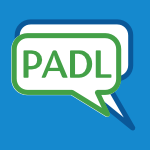 PADL-2004-Hudak #algebra #polymorphism
PADL-2004-Hudak #algebra #polymorphism- An Algebraic Theory of Polymorphic Temporal Media (PH), pp. 1–15.
 SAC-2004-CangussuCL #adaptation #framework
SAC-2004-CangussuCL #adaptation #framework- A control theory based framework for dynamic adaptable systems (JWC, KMLC, CL), pp. 1546–1553.
 SAC-2004-NehabP
SAC-2004-NehabP- Schemata Theory for the real coding and arithmetical operators (DFN, MACP), pp. 1006–1012.
 CC-2004-OzerNG #approximate #probability #using
CC-2004-OzerNG #approximate #probability #using- Stochastic Bit-Width Approximation Using Extreme Value Theory for Customizable Processors (EÖ, AN, DG), pp. 250–264.
 CSL-2004-Cordon-FrancoFM #induction #recursion
CSL-2004-Cordon-FrancoFM #induction #recursion- Provably Total Primitive Recursive Functions: Theories with Induction (ACF, AFM, FFLM), pp. 355–369.
 CSL-2004-SchoppS #dependent type #type system
CSL-2004-SchoppS #dependent type #type system- A Dependent Type Theory with Names and Binding (US, IS), pp. 235–249.
 CSL-2004-Skelley #bound #higher-order
CSL-2004-Skelley #bound #higher-order- A Third-Order Bounded Arithmetic Theory for PSPACE (AS), pp. 340–354.
 IJCAR-2004-Avenhaus #algorithm #performance #permutation
IJCAR-2004-Avenhaus #algorithm #performance #permutation- Efficient Algorithms for Computing Modulo Permutation Theories (JA), pp. 415–429.
 LICS-2004-BucciarelliS #graph #λ-calculus
LICS-2004-BucciarelliS #graph #λ-calculus- The Sensible Graph Theories of λ Calculus (AB, AS), pp. 276–285.
 LICS-2004-CookK #higher-order
LICS-2004-CookK #higher-order- A Second-Order Theory for NL (SAC, AK), pp. 398–407.
 LICS-2004-NguyenC #higher-order
LICS-2004-NguyenC #higher-order- VTC circ: A Second-Order Theory for TCcirc (PN, SAC), pp. 378–387.
 ICDAR-2003-TomaiS #using
ICDAR-2003-TomaiS #using- Combination of Type III Digit Recognizers using the Dempster-Shafer Theory of Evidence (CIT, SNS), pp. 854–858.
 PODS-2003-RameshMZ #data mining #mining #theory and practice
PODS-2003-RameshMZ #data mining #mining #theory and practice- Feasible itemset distributions in data mining: theory and application (GR, WM, MJZ), pp. 284–295.
 SIGMOD-2003-LometT #formal method
SIGMOD-2003-LometT #formal method- A Theory of Redo Recovery (DBL, MRT), pp. 397–406.
 ITiCSE-2003-Nodelman #learning #programming #theory and practice
ITiCSE-2003-Nodelman #learning #programming #theory and practice- Learning computer graphics by programming: linking theory and practice (VN), p. 261.
 FoSSaCS-2003-HennessyMR #behaviour #distributed #towards
FoSSaCS-2003-HennessyMR #behaviour #distributed #towards- Towards a Behavioural Theory of Access and Mobility Control in Distributed Systems (MH, MM, JR), pp. 282–298.
 STOC-2003-Bar-Yossef #bound
STOC-2003-Bar-Yossef #bound- Sampling lower bounds via information theory (ZBY), pp. 335–344.
 DLT-2003-Vollmer #complexity
DLT-2003-Vollmer #complexity- Complexity Theory Made Easy (HV), pp. 95–110.
 ICALP-2003-AlfaroHM
ICALP-2003-AlfaroHM- Discounting the Future in Systems Theory (LdA, TAH, RM), pp. 1022–1037.
 ICALP-2003-BruniM
ICALP-2003-BruniM- Generalized Rewrite Theories (RB, JM), pp. 252–266.
 ICALP-2003-RybinaV #bound #formal method
ICALP-2003-RybinaV #bound #formal method- Upper Bounds for a Theory of Queues (TR, AV), pp. 714–724.
 FME-2003-QinDC #programming #semantics
FME-2003-QinDC #programming #semantics- A Semantic Foundation for TCOZ in Unifying Theories of Programming (SQ, JSD, WNC), pp. 321–340.
 ICFP-2003-MandelbaumWH #effectiveness
ICFP-2003-MandelbaumWH #effectiveness- An effective theory of type refinements (YM, DW, RH), pp. 213–225.
 ICFP-2003-WalkerZL #aspect-oriented #formal method
ICFP-2003-WalkerZL #aspect-oriented #formal method- A theory of aspects (DW, SZ, JL), pp. 127–139.
 EDOC-2003-WegmannP #architecture #enterprise
EDOC-2003-WegmannP #architecture #enterprise- MDA in Enterprise Architecture? The Living System Theory to the Rescue... (AW, OP), pp. 2–13.
 ICEIS-v2-2003-HassanienA #algorithm #classification #image #performance #retrieval #set
ICEIS-v2-2003-HassanienA #algorithm #classification #image #performance #retrieval #set- An Efficient Classification and Image Retrieval Algorithm Based on Rough Set Theory (AEH, JMHA), pp. 457–460.
 ECIR-2003-Jones #documentation #retrieval
ECIR-2003-Jones #documentation #retrieval- Document Retrieval: Shallow Data, Deep Theories; Historical Reflections, Potential Directions (KSJ), pp. 1–11.
 SEKE-2003-Strelzoff #recognition #theory and practice
SEKE-2003-Strelzoff #recognition #theory and practice- Revision Recognition for Scientific Computing: Theory and Application (AS), pp. 46–53.
 SIGIR-2003-YangW #summary
SIGIR-2003-YangW #summary- Fractal summarization: summarization based on fractal theory (CCY, FLW), pp. 391–392.
 ECOOP-2003-OderskyCRZ #dependent type
ECOOP-2003-OderskyCRZ #dependent type- A Nominal Theory of Objects with Dependent Types (MO, VC, CR, MZ), pp. 201–224.
 POPL-2003-PetersenHCP #layout #memory management #type system
POPL-2003-PetersenHCP #layout #memory management #type system- A type theory for memory allocation and data layout (LP, RH, KC, FP), pp. 172–184.
 ESEC-FSE-2003-HerbslebM #coordination #empirical #re-engineering
ESEC-FSE-2003-HerbslebM #coordination #empirical #re-engineering- Formulation and preliminary test of an empirical theory of coordination in software engineering (JDH, AM), pp. 138–137.
 CADE-2003-Belinfante #reasoning
CADE-2003-Belinfante #reasoning- Reasoning about Iteration in Gödel’s Class Theory (JGFB), pp. 228–242.
 CADE-2003-GanzingerHW
CADE-2003-GanzingerHW- Superposition Modulo a Shostak Theory (HG, TH, UW), pp. 182–196.
 CADE-2003-KrsticC
CADE-2003-KrsticC- Canonization for Disjoint Unions of Theories (SK, SC), pp. 197–211.
 CADE-2003-Ringeissen
CADE-2003-Ringeissen- Matching in a Class of Combined Non-disjoint Theories (CR), pp. 212–227.
 CSL-2003-EiterM #abduction #generative #query
CSL-2003-EiterM #abduction #generative #query- Generating All Abductive Explanations for Queries on Propositional Horn Theories (TE, KM), pp. 197–211.
 CSL-2003-Miquel #normalisation #set
CSL-2003-Miquel #normalisation #set- A Strongly Normalising Curry-Howard Correspondence for IZF Set Theory (AM), pp. 441–454.
 CSL-2003-Vorobjov #effectiveness #formal method #strict
CSL-2003-Vorobjov #effectiveness #formal method #strict- Effective Model Completeness of the Theory of Restricted Pfaffian Functions (Invited Lecture) (NV), p. 544.
 LICS-2003-Kopylov #type system
LICS-2003-Kopylov #type system- Dependent Intersection: A New Way of Defining Records in Type Theory (AK), pp. 86–95.
 LICS-2003-Kwiatkowska #model checking #probability #theory and practice
LICS-2003-Kwiatkowska #model checking #probability #theory and practice- Model checking for probability and time: from theory to practice (MZK), p. 351–?.
 LICS-2003-MillerT #proving
LICS-2003-MillerT #proving- A Proof Theory for Generic Judgments: An extended abstract (DM, AFT), pp. 118–127.
 RTA-2003-Verma #automaton #decidability #equation
RTA-2003-Verma #automaton #decidability #equation- Two-Way Equational Tree Automata for AC-Like Theories: Decidability and Closure Properties (KNV), pp. 180–196.
 DATE-2002-TeichK #configuration management #finite #implementation #self #state machine
DATE-2002-TeichK #configuration management #finite #implementation #self #state machine- (Self-)reconfigurable Finite State Machines: Theory and Implementation (JT, MK), pp. 559–566.
 CSEET-2002-KroneJS #case study #education #industrial
CSEET-2002-KroneJS #case study #education #industrial- When Theory Meets Practice: Enriching the CS Curriculum through Industrial Case Studies (JK, DWJ, MS), pp. 207–214.
 ITiCSE-2002-Hazzan #abstraction #concept #learning
ITiCSE-2002-Hazzan #abstraction #concept #learning- Reducing abstraction level when learning computability theory concepts (OH), pp. 156–160.
 WRLA-J-1996-Talcott02 #logic
WRLA-J-1996-Talcott02 #logic- Actor theories in rewriting logic (CLT), pp. 441–485.
 ESOP-2002-Glew #formal method #higher-order
ESOP-2002-Glew #formal method #higher-order- A Theory of Second-Order Trees (NG), pp. 147–161.
 TACAS-2002-HongLSU #generative #logic #test coverage
TACAS-2002-HongLSU #generative #logic #test coverage- A Temporal Logic Based Theory of Test Coverage and Generation (HSH, IL, OS, HU), pp. 327–341.
 IWPC-2002-Walenstein #analysis #comprehension #tool support
IWPC-2002-Walenstein #analysis #comprehension #tool support- Theory-based Analysis of Cognitive Support in Software Comprehension Tools (AW), pp. 75–84.
 STOC-2002-Papadimitriou
STOC-2002-Papadimitriou- The Joy of Theory (CHP), p. 116.
 STOC-2002-Sivakumar #algorithm #complexity
STOC-2002-Sivakumar #algorithm #complexity- Algorithmic derandomization via complexity theory (DS), pp. 619–626.
 CIAA-2002-Sutner02a #automaton #hybrid
CIAA-2002-Sutner02a #automaton #hybrid- automata, a Hybrid System for Computational Automata Theory (KS), pp. 221–227.
 ICALP-2002-Colcombet #decidability #first-order #graph #on the #product line #reachability
ICALP-2002-Colcombet #decidability #first-order #graph #on the #product line #reachability- On Families of Graphs Having a Decidable First Order Theory with Reachability (TC), pp. 98–109.
 ICALP-2002-KuskeL #formal method #monad #on the
ICALP-2002-KuskeL #formal method #monad #on the- On the Theory of One-Step Rewriting in Trace Monoids (DK, ML), pp. 752–763.
 ICALP-2002-Marathe #complexity #predict #towards
ICALP-2002-Marathe #complexity #predict #towards- Towards a Predictive Computational Complexity Theory (MVM), pp. 22–31.
 ICALP-2002-Reif #assembly
ICALP-2002-Reif #assembly- Molecular Assembly and Computation: From Theory to Experimental Demonstrations (JHR), pp. 1–21.
 ICFP-2002-CraryV #scalability #type system
ICFP-2002-CraryV #scalability #type system- An expressive, scalable type theory for certified code (KC, JV), pp. 191–205.
 ICFP-2002-StuckeyS #formal method
ICFP-2002-StuckeyS #formal method- A theory of overloading (PJS, MS), pp. 167–178.
 CSCW-2002-Tuikka #concept #design #perspective #process
CSCW-2002-Tuikka #concept #design #perspective #process- Remote concept design from an activity theory perspective (TT), pp. 186–195.
 ICEIS-2002-Abe #analysis #domain model #information management #modelling
ICEIS-2002-Abe #analysis #domain model #information management #modelling- Applying Domain Modeling and SECI Theory in Knowledge Management for Information Systems Analysis (AA), pp. 725–731.
 ICPR-v3-2002-SandersNS #formal method
ICPR-v3-2002-SandersNS #formal method- A Theory of the Quasi-Static World (BCSS, RCN, RS), pp. 1–6.
 ICPR-v4-2002-SugieK #recognition
ICPR-v4-2002-SugieK #recognition- Media-Integrated Biometric Person Recognition Based on the Dempster-Shafer Theory (YS, TK), pp. 381–384.
 KR-2002-BerN #comparison #design
KR-2002-BerN #comparison #design- Design and Comparison of Lattices of Topological Relations Based on Galois Lattice Theory (FLB, AN), pp. 37–48.
 KR-2002-CalvaneseGV #ltl #reasoning
KR-2002-CalvaneseGV #ltl #reasoning- Reasoning about Actions and Planning in LTL Action Theories (DC, GDG, MYV), pp. 593–602.
 KR-2002-GiacomoLLS #implementation #on the #semantics
KR-2002-GiacomoLLS #implementation #on the #semantics- On the Semantics of Deliberation in IndiGolog: From Theory to Implementation (GDG, YL, HJL, SS), pp. 603–614.
 KR-2002-PetrickL #equivalence
KR-2002-PetrickL #equivalence- Knowledge Equivalence in Combined Action Theories (RPAP, HJL), pp. 303–314.
 KR-2002-RandellW #axiom #composition #scalability
KR-2002-RandellW #axiom #composition #scalability- Building Large Composition Tables via Axiomatic Theories (DAR, MW), pp. 26–36.
 ECOOP-2002-AlagicK #behaviour #self
ECOOP-2002-AlagicK #behaviour #self- Behavioral Compatibility of Self-Typed Theories (SA, SK), pp. 585–608.
 POPL-2002-FournetG #stack
POPL-2002-FournetG #stack- Stack inspection: theory and variants (CF, ADG), pp. 307–318.
 POPL-2002-SuANPT #constraints #first-order #type system
POPL-2002-SuANPT #constraints #first-order #type system- The first-order theory of subtyping constraints (ZS, AA, JN, TP, RT), pp. 203–216.
 RE-2002-DusireFD #requirements
RE-2002-DusireFD #requirements- Requirements Engineering — Applying Theory to Reality (SD, MF, ND), pp. 300–302.
 SAC-2002-ButenkoPSSS #graph #independence #set
SAC-2002-ButenkoPSSS #graph #independence #set- Finding maximum independent sets in graphs arising from coding theory (SB, PMP, IS, VS, PS), pp. 542–546.
 SAC-2002-ChenCGRS #automation #co-evolution #game studies
SAC-2002-ChenCGRS #automation #co-evolution #game studies- An automated negotiation mechanism based on co-evolution and game theory (JHC, KMC, NG, CRR, PS), pp. 63–67.
 SAC-2002-Huang #divide and conquer #parallel #theory and practice
SAC-2002-Huang #divide and conquer #parallel #theory and practice- Grid-enabled parallel divide-and-conquer: theory and practice (CHH), pp. 865–869.
 SAC-2002-RinePG #re-engineering #theory and practice
SAC-2002-RinePG #re-engineering #theory and practice- ACM SAC2002 software engineering: theory and applications (SETA) track description (DCR, JFP, JPG), pp. 969–970.
 HPDC-2002-ThainL #fault #grid #theory and practice
HPDC-2002-ThainL #fault #grid #theory and practice- Error Scope on a Computational Grid: Theory and Practice (DT, ML), pp. 199–208.
 CADE-2002-Horrocks #logic #reasoning #theory and practice
CADE-2002-Horrocks #logic #reasoning #theory and practice- Reasoning with Expressive Description Logics: Theory and Practice (IH), pp. 1–15.
 CSL-2002-Cenciarelli
CSL-2002-Cenciarelli- Configuration Theories (PC), pp. 200–215.
 CSL-2002-Chen #fixpoint #parallel
CSL-2002-Chen #fixpoint #parallel- A Fixpoint Theory for Non-monotonic Parallelism (YC), pp. 120–134.
 LICS-2002-Cook #complexity #proving
LICS-2002-Cook #complexity #proving- Complexity Classes, Propositional Proof Systems, and Formal Theories (SAC), p. 311.
 LICS-2002-EdalatL #calculus #difference
LICS-2002-EdalatL #calculus #difference- Domain Theory and Differential Calculus (Functions of one Variable) (AE, AL), pp. 277–286.
 LICS-2002-Simpson #modelling #recursion #set
LICS-2002-Simpson #modelling #recursion #set- Computational Adequacy for Recursive Types in Models of Intuitionistic Set Theory (AKS), pp. 287–298.
 RTA-2002-BaaderT
RTA-2002-BaaderT- Combining Decision Procedures for Positive Theories Sharing Constructors (FB, CT), pp. 352–366.
 RTA-2002-Mellies #axiom #revisited
RTA-2002-Mellies #axiom #revisited- Axiomatic Rewriting Theory VI Residual Theory Revisited (PAM), pp. 24–50.
 RTA-2002-ShankarR
RTA-2002-ShankarR- Combining Shostak Theories (NS, HR), pp. 1–18.
 CBSE-2001-Hamlet #component #problem #synthesis
CBSE-2001-Hamlet #component #problem #synthesis- Component Synthesis Theory: The Problem of Scale (DH), p. 15.
 ICDAR-2001-GomesL #feature model #fuzzy #recognition #set
ICDAR-2001-GomesL #feature model #fuzzy #recognition #set- Feature Extraction Based on Fuzzy Set Theory for Handwriting Recognition (NRG, LLL), pp. 655–659.
 ITiCSE-2001-BerqueJJ #education #using
ITiCSE-2001-BerqueJJ #education #using- Teaching theory of computation using pen-based computers and an electronic whiteboard (DAB, DKJ, LJ), pp. 169–172.
 ITiCSE-2001-MendesMC #approach #education #flexibility #hypermedia
ITiCSE-2001-MendesMC #approach #education #flexibility #hypermedia- The cognitive flexibility theory0: an approach for teaching Hypermedia Engineering (EM, NM, SC), pp. 21–24.
 FoSSaCS-2001-BartheP #dependent type #morphism #proving #reuse #type system
FoSSaCS-2001-BartheP #dependent type #morphism #proving #reuse #type system- Type Isomorphisms and Proof Reuse in Dependent Type Theory (GB, OP), pp. 57–71.
 FoSSaCS-2001-BuscemiS #calculus #petri net
FoSSaCS-2001-BuscemiS #calculus #petri net- High-Level Petri Nets as Type Theories in the Join Calculus (MGB, VS), pp. 104–120.
 FoSSaCS-2001-Morin #on the #sequence chart #traceability
FoSSaCS-2001-Morin #on the #sequence chart #traceability- On Regular Message Sequence Chart Languages and Relationships to Mazurkiewicz Trace Theory (RM), pp. 332–346.
 FoSSaCS-2001-RocklHB #formal method #higher-order #induction #syntax #π-calculus
FoSSaCS-2001-RocklHB #formal method #higher-order #induction #syntax #π-calculus- Higher-Order Abstract Syntax with Induction in Isabelle/HOL: Formalizing the π-Calculus and Mechanizing the Theory of Contexts (CR, DH, SB), pp. 364–378.
 ICSM-2001-AntoniolCLPR #approach #maintenance #queue
ICSM-2001-AntoniolCLPR #approach #maintenance #queue- A Queue Theory-Based Approach to Staff Software Maintenance Centers (GA, GC, GADL, MDP, FR), pp. 510–519.
 FLOPS-J1-1998-Tsukada01 #framework #type system
FLOPS-J1-1998-Tsukada01 #framework #type system- Martin-Löf’s Type Theory as an Open-Ended Framework (YT), pp. 31–67.
 DLT-2001-Choffrut
DLT-2001-Choffrut- Elementary Theory of Ordinals with Addition and Left Translation by ω (CC), pp. 15–20.
 DLT-2001-Esik #equation #fixpoint
DLT-2001-Esik #equation #fixpoint- The Equational Theory of Fixed Points with Applications to Generalized Language Theory (ZÉ), pp. 21–36.
 ICEIS-v2-2001-JohnsonD #category theory #enterprise #information management #modelling #specification #using
ICEIS-v2-2001-JohnsonD #category theory #enterprise #information management #modelling #specification #using- Enterprise Information Systems: Specifying the Links among Project Data Models Using Category Theory (MJ, CNGD), pp. 619–626.
 ICEIS-v2-2001-ToffolonD #contract #information management
ICEIS-v2-2001-ToffolonD #contract #information management- A Contract-Based Theory of Information Systems (CT, SD), pp. 645–650.
 ICML-2001-Eliassi-RadS #approach #information management
ICML-2001-Eliassi-RadS #approach #information management- A Theory-Refinement Approach to Information Extraction (TER, JWS), pp. 130–137.
 LOPSTR-2001-Caldwell #recursion #type system
LOPSTR-2001-Caldwell #recursion #type system- Extracting General Recursive Program Schemes in Nuprl’s Type Theory (JLC), pp. 233–244.
 LOPSTR-2001-DelzannoE #debugging #logic programming #protocol #proving #security
LOPSTR-2001-DelzannoE #debugging #logic programming #protocol #proving #security- Proof Theory, Transformations, and Logic Programming for Debugging Security Protocols (GD, SE), pp. 76–90.
 PPDP-2001-Gordon #type system
PPDP-2001-Gordon #type system- Types for Cyphers: Thwarting Mischief and Malice with Type Theory (ADG), p. 136.
 ICSE-2001-HamletMW #component #reliability
ICSE-2001-HamletMW #component #reliability- Theory of Software Reliability Based on Components (RGH, DVM, DMW), pp. 361–370.
 CSL-2001-Bussche #database
CSL-2001-Bussche #database- Applications of Alfred Tarski’s Ideas in Database Theory (JVdB), pp. 20–37.
 CSL-2001-KopylovN #markov #type system
CSL-2001-KopylovN #markov #type system- Markov’s Principle for Propositional Type Theory (AK, AN), pp. 570–584.
 CSL-2001-Ohsaki #automaton #commutative #equation
CSL-2001-Ohsaki #automaton #commutative #equation- Beyond Regularity: Equational Tree Automata for Associative and Commutative Theories (HO), pp. 539–553.
 IJCAR-2001-Lucke #named #set
IJCAR-2001-Lucke #named #set- Hilberticus — A Tool Deciding an Elementary Sublanguage of Set Theory (JL), pp. 690–695.
 IJCAR-2001-LynchM #complexity #decidability #equation #linear
IJCAR-2001-LynchM #complexity #decidability #equation #linear- Decidability and Complexity of Finitely Closable Linear Equational Theories (CL, BM), pp. 499–513.
 LICS-2001-Abiteboul #semistructured data #theory and practice
LICS-2001-Abiteboul #semistructured data #theory and practice- Semistructured Data: from Practice to Theory (SA), pp. 379–386.
 LICS-2001-Pfenning #proving #type system
LICS-2001-Pfenning #proving #type system- Intensionality, Extensionality, and Proof Irrelevance in Modal Type Theory (FP), pp. 221–230.
 LICS-2001-Salibra #semantics #λ-calculus
LICS-2001-Salibra #semantics #λ-calculus- A Continuum of Theories of λ Calculus without Semantics (AS), pp. 334–343.
 LICS-2001-StumpBDL #array
LICS-2001-StumpBDL #array- A Decision Procedure for an Extensional Theory of Arrays (AS, CWB, DLD, JRL), pp. 29–37.
 SAT-2001-McllraithA #proving #theorem proving
SAT-2001-McllraithA #proving #theorem proving- Theorem Proving with Structured Theories (Preliminary Report)* (SM, EA), pp. 311–328.
 TLCA-2001-Dowek #modulo theories
TLCA-2001-Dowek #modulo theories- The Stratified Foundations as a Theory Modulo (GD), pp. 136–150.
 TLCA-2001-Geuvers #dependent type #higher-order #induction #type system
TLCA-2001-Geuvers #dependent type #higher-order #induction #type system- Induction Is Not Derivable in Second Order Dependent Type Theory (HG), pp. 166–181.
 TLCA-2001-Hofmann #behaviour #bound #complexity #memory management #type system
TLCA-2001-Hofmann #behaviour #bound #complexity #memory management #type system- From Bounded Arithmetic to Memory Management: Use of Type Theory to Capture Complexity Classes and Space Behaviour (MH0), pp. 2–3.
 TLCA-2001-KnapikNU #algebra #monad
TLCA-2001-KnapikNU #algebra #monad- Deciding Monadic Theories of Hyperalgebraic Trees (TK, DN, PU), pp. 253–267.
 CBSE-2000-ErikssonV #resource management
CBSE-2000-ErikssonV #resource management- Applying CBSE Theory on Corporate Resources (NE, TV), p. 1.
 CBSE-2000-HamletMW #component #reliability
CBSE-2000-HamletMW #component #reliability- Theory of System Reliability Based on Components (DH, DM, DW), p. 14.
 PODS-2000-Vardi #constraints #database #tutorial
PODS-2000-Vardi #constraints #database #tutorial- Constraint Satisfaction and Database Theory: a Tutorial (MYV), pp. 76–85.
 FoSSaCS-2000-MaiettiPR #category theory #linear #modelling #type system
FoSSaCS-2000-MaiettiPR #category theory #linear #modelling #type system- Categorical Models for Intuitionistic and Linear Type Theory (MEM, VdP, ER), pp. 223–237.
 WRLA-2000-DuranM #maude
WRLA-2000-DuranM #maude- Parameterized Theories and Views in Full Maude 2.0 (FD, JM), pp. 316–338.
 WRLA-2000-Pattinson #logic
WRLA-2000-Pattinson #logic- Modal Logic for Rewriting Theories (DP), pp. 175–193.
 PEPM-2000-Taha #formal method #ml #multi #reduction #semantics
PEPM-2000-Taha #formal method #ml #multi #reduction #semantics- A Sound Reduction Semantics for Untyped CBN Multi-stage Computation. Or, the Theory of MetaML is Non-trivial (Extended Abstract) (WT), pp. 34–43.
 STOC-2000-GoldsmithS #query
STOC-2000-GoldsmithS #query- More theory revision with queries (extended abstract) (JG, RHS), pp. 441–448.
 ICALP-2000-Broder #independence #permutation #theory and practice
ICALP-2000-Broder #independence #permutation #theory and practice- Min-wise Independent Permutations: Theory and Practice (AZB), p. 808.
 ICALP-2000-Martin #metric #process
ICALP-2000-Martin #metric #process- The Measurement Process in Domain Theory (KM), pp. 116–126.
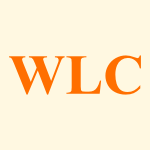 WLC-2000-ChoffrutG #formal method #string
WLC-2000-ChoffrutG #formal method #string- The Theory of Rational Relations on Transfinite Strings (CC, SG), pp. 103–133.
 WLC-2000-Steinby #automaton #formal method #term rewriting
WLC-2000-Steinby #automaton #formal method #term rewriting- Tree Automata in the Theory of Term Rewriting (MS), pp. 434–449.
 ICEIS-2000-Emery #case study #network
ICEIS-2000-Emery #case study #network- The Use of Information Theory in the Construction of a Bayesian Belief Network: A Case Study (DEE), pp. 121–126.
 ICML-2000-EspositoFFS #refinement
ICML-2000-EspositoFFS #refinement- Ideal Theory Refinement under Object Identity (FE, NF, SF, GS), pp. 263–270.
 ICPR-v1-2000-DaniilidisG #algorithm
ICPR-v1-2000-DaniilidisG #algorithm- Omnidirectional Vision: Theory and Algorithms (KD, CG), pp. 1089–1096.
 ICPR-v3-2000-Ghosal #algebra #on the
ICPR-v3-2000-Ghosal #algebra #on the- On Algebraic Smoothing: Theory and Results (SG), pp. 3021–3024.
 ICPR-v4-2000-HatteryCLG #embedded #migration
ICPR-v4-2000-HatteryCLG #embedded #migration- Optical Signatures of Small, Deeply Embedded, Tumor-Like Inclusions in Tissue-Like Turbid Media Based on a Random-Walk Theory of Photon Migration (DH, VC, MHL, AG), pp. 4348–4351.
 KR-2000-HorrocksT #axiom #reasoning #theory and practice
KR-2000-HorrocksT #axiom #reasoning #theory and practice- Reasoning with Axioms: Theory and Practice (IH, ST), pp. 285–296.
 KR-2000-McCarthy #approximate
KR-2000-McCarthy #approximate- Approximate Objects and Approximate Theories (JM0), pp. 519–526.
 KR-2000-Mota #set
KR-2000-Mota #set- Cyclical and Granular Time Theories as Subsets of the Herbrand Universe (EM), pp. 366–377.
 TOOLS-ASIA-2000-JiangLX #process #type system #uml
TOOLS-ASIA-2000-JiangLX #process #type system #uml- Embedding UML and Type Theory to Formalize the Process of Requirement Engineering (HJ, DL, XX), pp. 32–39.
 GCSE-2000-Bassett #adaptation #component #theory and practice
GCSE-2000-Bassett #adaptation #component #theory and practice- The Theory and Practice of Adaptive Components (PB), pp. 1–14.
 CADE-2000-AndrewsBB #proving #theorem proving #type system
CADE-2000-AndrewsBB #proving #theorem proving #type system- System Description: TPS: A Theorem Proving System for Type Theory (PBA, MB, CEB), pp. 164–169.
 CADE-2000-BezemHN #automation #proving #type system #using
CADE-2000-BezemHN #automation #proving #type system #using- Automated Proof Construction in Type Theory Using Resolution (MB, DH, HdN), pp. 148–163.
 CL-2000-NarendranR #decidability #formal method
CL-2000-NarendranR #decidability #formal method- The Theory of Total Unary RPO Is Decidable (PN, MR), pp. 660–672.
 CL-2000-Poole #information management #logic #representation
CL-2000-Poole #information management #logic #representation- Logic, Knowledge Representation, and Bayesian Decision Theory (DP), pp. 70–86.
 CL-2000-WangZL #fixpoint #logic programming #source code
CL-2000-WangZL #fixpoint #logic programming #source code- Alternating Fixpoint Theory for Logic Programs with Priority (KW, LZ, FL), pp. 164–178.
 CSL-2000-BaazZ #fuzzy #logic #proving
CSL-2000-BaazZ #fuzzy #logic #proving- Hypersequent and the Proof Theory of Intuitionistic Fuzzy Logic (MB, RZ), pp. 187–201.
 CSL-2000-HancockS #dependent type #interactive #source code #type system
CSL-2000-HancockS #dependent type #interactive #source code #type system- Interactive Programs in Dependent Type Theory (PH, AS), pp. 317–331.
 CSL-2000-KahleS #formal method
CSL-2000-KahleS #formal method- A Theory of Explicit Mathematics Equivalent to ID1 (RK, TS), pp. 356–370.
 CSL-2000-Schulte #state machine
CSL-2000-Schulte #state machine- Translating Theory into Practice — Abstract State Machines within Microsoft (WS), p. 71.
 LICS-2000-JeffreyR #bisimulation #concurrent #formal method #ml
LICS-2000-JeffreyR #bisimulation #concurrent #formal method #ml- A Theory of Bisimulation for a Fragment of Concurrent ML with Local Names (AJ, JR), pp. 311–321.
 LICS-2000-KorovinV #algebra
LICS-2000-KorovinV #algebra- A Decision Procedure for the Existential Theory of Term Algebras with the Knuth-Bendix Ordering (KK, AV), pp. 291–302.
 LICS-2000-Krivine #set
LICS-2000-Krivine #set- The Curry-Howard Correspondence in Set Theory (JLK), pp. 307–308.
 RTA-2000-DoughertyG #normalisation #reduction
RTA-2000-DoughertyG #normalisation #reduction- Normal Forms and Reduction for Theories of Binary Relations (DJD, CG), pp. 95–109.
 RTA-2000-Stuber #calculus #convergence #term rewriting
RTA-2000-Stuber #calculus #convergence #term rewriting- Deriving Theory Superposition Calculi from Convergent Term Rewriting Systems (JS), pp. 229–245.
 ASE-1999-MartinsD #approach #elicitation #process #requirements #using
ASE-1999-MartinsD #approach #elicitation #process #requirements #using- An Approach to Software Requirements Elicitation Using the Precepts from Activity Theory (LEGM, BMD), pp. 15–23.
 ASE-1999-WilliamsonH #category theory #industrial #synthesis
ASE-1999-WilliamsonH #category theory #industrial #synthesis- Industrial Applications of Software Synthesis via Category Theory (KEW, MH), pp. 35–43.
 PODS-1999-Raman #clustering #database #locality #theory and practice
PODS-1999-Raman #clustering #database #locality #theory and practice- Locality Preserving Dictionaries: Theory and Application to Clustering in Databases (VR), pp. 337–345.
 FoSSaCS-1999-BorealeNP #formal method #testing
FoSSaCS-1999-BorealeNP #formal method #testing- A Theory of “May” Testing for Asynchronous Languages (MB, RDN, RP), pp. 165–179.
 PEPM-1999-Thiemann #type system
PEPM-1999-Thiemann #type system- Interpreting Specialization in Type Theory (PT), pp. 30–43.
 PLDI-1999-FosterFA #formal method
PLDI-1999-FosterFA #formal method- A Theory of Type Qualifiers (JSF, MF, AA), pp. 192–203.
 STOC-1999-Schaefer #graph #polynomial
STOC-1999-Schaefer #graph #polynomial- Graph Ramsey Theory and the Polynomial Hierarchy (MS), pp. 592–601.
 ICALP-1999-Watanabe #learning
ICALP-1999-Watanabe #learning- From Computational Learning Theory to Discovery Science (OW0), pp. 134–148.
 WIA-1999-AndaryCCDFL #automaton #named
WIA-1999-AndaryCCDFL #automaton #named- SEA: A Symbolic Environment for Automata Theory (PA, PC, JMC, GD, MF, ÉL), pp. 13–26.
 FM-v1-1999-Hoare #bottom-up #programming #top-down
FM-v1-1999-Hoare #bottom-up #programming #top-down- Theories of Programming: Top-Down and Bottom-Up and Meeting in the Middle (CARH), pp. 1–27.
 FM-v2-1999-Baumgarten #framework #specification
FM-v2-1999-Baumgarten #framework #specification- A Minimal Framework for Specification Theory (BB), p. 1861.
 CHI-1999-BhavnaniJF #empirical
CHI-1999-BhavnaniJF #empirical- The Strategic Use of CAD: An Empirically Inspired, Theory-Based Course (SKB, BEJ, UF), pp. 183–190.
 HCI-EI-1999-HartsonAWR #classification #framework #problem #usability
HCI-EI-1999-HartsonAWR #classification #framework #problem #usability- The User Action Framework: A Theory-Based Foundation for Inspection and Classification of Usability Problems (HRH, TSA, RCW, LvR), pp. 1058–1062.
 ICEIS-1999-Toffolon
ICEIS-1999-Toffolon- The Software Dimensions Theory (CT), pp. 533–541.
 ICEIS-1999-ToffolonD #framework #process #re-engineering
ICEIS-1999-ToffolonD #framework #process #re-engineering- The Decision Process in Software Engineering-A Framework Based on the Call Options Theory (CT, SD), p. 778.
 ICML-1999-NgHR #policy #theory and practice
ICML-1999-NgHR #policy #theory and practice- Policy Invariance Under Reward Transformations: Theory and Application to Reward Shaping (AYN, DH, SJR), pp. 278–287.
 KDD-1999-AumannL #statistics
KDD-1999-AumannL #statistics- A Statistical Theory for Quantitative Association Rules (YA, YL), pp. 261–270.
 PADL-1999-Watson
PADL-1999-Watson- An Application of Action Theory to the Space Shuttle (RW), pp. 290–304.
 POPL-1999-EidorffHMNST #named #type system
POPL-1999-EidorffHMNST #named #type system- AnnoDomini: From Type Theory to Year 2000 Conversion Tool (PHE, FH, CM, HN, MHS, MT), pp. 1–14.
 POPL-1999-MoranS #call-by #lazy evaluation
POPL-1999-MoranS #call-by #lazy evaluation- Improvement in a Lazy Context: An Operational Theory for Call-by-Need (AM, DS), pp. 43–56.
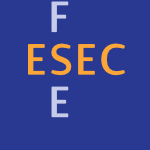 ESEC-FSE-1999-BrabermanF #automation #design #realtime #scheduling #verification
ESEC-FSE-1999-BrabermanF #automation #design #realtime #scheduling #verification- Verification of Real-Time Designs: Combining Scheduling Theory with Automatic Formal Verification (VAB, MF), pp. 494–510.
 CADE-1999-Sofronie-Stokkermans #complexity #decidability #on the
CADE-1999-Sofronie-Stokkermans #complexity #decidability #on the- On the Universal Theory of Varieties of Distributive Lattices with Operators: Some Decidability and Complexity Results (VSS), pp. 157–171.
 CAV-1999-Brinksma #consistency #formal method #testing
CAV-1999-Brinksma #consistency #formal method #testing- Formal Methods for Conformance Testing: Theory Can Be Practical (EB), pp. 44–45.
 CAV-1999-Klarlund #automaton #formal method #logic #strict
CAV-1999-Klarlund #automaton #formal method #logic #strict- A Theory of Restrictions for Logics and Automata (NK), pp. 406–417.
 CSL-1999-GeuversPZ #proving #type system
CSL-1999-GeuversPZ #proving #type system- Safe Proof Checking in Type Theory with Y (HG, EP, JZ), pp. 439–452.
 CSL-1999-GradelK #complexity #constraints #database
CSL-1999-GradelK #complexity #constraints #database- Descriptive Complexity Theory for Constraint Databases (EG, SK), pp. 67–81.
 CSL-1999-Howe #interactive #proving #theorem proving #type system #using
CSL-1999-Howe #interactive #proving #theorem proving #type system #using- Interactive Theorem Proving Using Type Theory (DJH), p. 578.
 CSL-1999-KerNO #game studies
CSL-1999-KerNO #game studies- A Universal Innocent Game Model for the Böhm Tree λ Theory (ADK, HN, CHLO), pp. 405–419.
 LICS-1999-Altenkirch #similarity #type system
LICS-1999-Altenkirch #similarity #type system- Extensional Equality in Intensional Type Theory (TA), pp. 412–420.
 LICS-1999-AtseriasK #finite #first-order #fixpoint #logic #set
LICS-1999-AtseriasK #finite #first-order #fixpoint #logic #set- First-Order Logic vs. Fixed-Point Logic in Finite Set Theory (AA, PGK), pp. 275–284.
 LICS-1999-JeffreyR #bisimulation #formal method #towards
LICS-1999-JeffreyR #bisimulation #formal method #towards- Towards a Theory of Bisimulation for Local Names (AJ, JR), pp. 56–66.
 RTA-1999-BaaderT #equation #problem #word
RTA-1999-BaaderT #equation #problem #word- Deciding the Word Problem in the Union of Equational Theories Sharing Constructors (FB, CT), pp. 175–189.
 RTA-1999-LimetR #decidability
RTA-1999-LimetR #decidability- A New Result about the Decidability of the Existential One-Step Rewriting Theory (SL, PR), pp. 118–132.
 RTA-1999-Marcinkowski #algebra #formal method
RTA-1999-Marcinkowski #algebra #formal method- Undecidability of the exists*forall* Part of the Theory of Ground Term Algebra Modulo an AC Symbol (JM), pp. 92–102.
 RTA-1999-Otto #formal method #on the
RTA-1999-Otto #formal method #on the- On the Connections between Rewriting and Formal Language Theory (FO), pp. 332–355.
 RTA-1999-Stuber #order
RTA-1999-Stuber #order- Theory Path Orderings (JS), pp. 148–162.
 TLCA-1999-Hasegawa #linear #logic
TLCA-1999-Hasegawa #linear #logic- Logical Predicates for Intuitionistic Linear Type Theories (MH), pp. 198–212.
 ASE-1998-LowryBK #empirical #integration #testing #towards #verification
ASE-1998-LowryBK #empirical #integration #testing #towards #verification- Towards a Theory for Integration of Mathematical Verification and Empirical Testing (MRL, MB, DK), p. 322–?.
 ASE-1998-WielsE #category theory #evolution #specification #using
ASE-1998-WielsE #category theory #evolution #specification #using- Management of Evolving Specifications using Category Theory (VW, SME), pp. 12–21.
 DAC-1998-DemirMR
DAC-1998-DemirMR- Phase Noise in Oscillators: A Unifying Theory and Numerical Methods for Characterisation (AD, AM, JSR), pp. 26–31.
 ITiCSE-1998-DagdilelisS #algorithm #education #graph #named
ITiCSE-1998-DagdilelisS #algorithm #education #graph #named- DIDAGRAPH: software for teaching graph theory algorithms (VD, MS), pp. 64–68.
 ITiCSE-1998-RodgerG #automaton #theorem
ITiCSE-1998-RodgerG #automaton #theorem- JFLAP (poster): an aid to studying theorems in automata theory (SHR, EG), p. 302.
 FoSSaCS-1998-AmadioC #analysis #type system
FoSSaCS-1998-AmadioC #analysis #type system- Analysis of a Guard Condition in Type Theory (Extended Abstract) (RMA, SCG), pp. 48–62.
 FoSSaCS-1998-Mislove
FoSSaCS-1998-Mislove- Generalizing Domain Theory (MWM), pp. 1–19.
 WRLA-1998-Denker #logic
WRLA-1998-Denker #logic- From rewrite theories to temporal logic theories (GD), pp. 105–126.
 SAS-1998-Giacobazzi #abstract interpretation #tutorial
SAS-1998-Giacobazzi #abstract interpretation #tutorial- A Tutorial on Domain Theory in Abstract Interpretation (RG), pp. 349–350.
 STOC-1998-DoolyGS #theory and practice
STOC-1998-DoolyGS #theory and practice- TCP Dynamic Acknowledgment Delay: Theory and Practice (Extended Abstract) (DRD, SAG, SDS), pp. 389–398.
 FLOPS-1998-Takeuti #type system
FLOPS-1998-Takeuti #type system- A Type Theory for Cyclic Strcture (IT), pp. 207–226.
 ICALP-1998-Gimenez #recursion #type system
ICALP-1998-Gimenez #recursion #type system- Structural Recursive Definitions in Type Theory (EG), pp. 397–408.
 ICFP-1998-Taylor #formal method
ICFP-1998-Taylor #formal method- A Theory of Core Fudgets (CJT), pp. 75–85.
 ICML-1998-McCluskeyW #case study #requirements #validation
ICML-1998-McCluskeyW #case study #requirements #validation- A Case Study in the Use of Theory Revision in Requirements Validation (TLM, MMW), pp. 368–376.
 ICML-1998-RamachandranM #network #refinement
ICML-1998-RamachandranM #network #refinement- Theory Refinement of Bayesian Networks with Hidden Variables (SR, RJM), pp. 454–462.
 ICPR-1998-GuoYM #analysis #game studies #multi #robust #segmentation #statistics
ICPR-1998-GuoYM #analysis #game studies #multi #robust #segmentation #statistics- Unsupervised segmentation based on multi-resolution analysis, robust statistics and majority game theory (GG, SY, SM), pp. 799–801.
 ICPR-1998-MaedaKIZ #analysis #multi #using
ICPR-1998-MaedaKIZ #analysis #multi #using- Surface recovery by using regularization theory and its application to multiresolution analysis (MM, KK, KI, HZ), pp. 19–23.
 KR-1998-Kamps #automation #formal method #reasoning #tool support #using
KR-1998-Kamps #automation #formal method #reasoning #tool support #using- Formal Theory Building Using Automated Reasoning Tools (JK), pp. 478–487.
 KR-1998-Mani #formal method #problem
KR-1998-Mani #formal method #problem- A Theory of Granularity and its Application to Problems of Polysemy and Underspecification of Meaning (IM), pp. 245–257.
 KR-1998-McCainT #satisfiability
KR-1998-McCainT #satisfiability- Satisfiability planning with Causal Theories (NM, HT), pp. 212–223.
 KR-1998-Muller
KR-1998-Muller- A Qualitative Theory of Motion Based on Spatio-Temporal Primitives (PM), pp. 131–143.
 KR-1998-WhiteBH #modelling #predict
KR-1998-WhiteBH #modelling #predict- Building Models of Prediction Theories (GW, JB, WH), pp. 557–569.
 KR-1998-WilliamsA
KR-1998-WilliamsA- A Strategy for Revising Default Theory Extensions (MAW, GA), pp. 24–35.
 SIGIR-1998-Greiff #data analysis #formal method
SIGIR-1998-Greiff #data analysis #formal method- A Theory of Term Weighting Based on Exploratory Data Analysis (WRG), pp. 11–19.
 ECOOP-1998-ErnstKC #formal method
ECOOP-1998-ErnstKC #formal method- Predicate Dispatching: A Unified Theory of Dispatch (MDE, CSK, CC), pp. 186–211.
 ALP-PLILP-1998-MoreauK #commutative #compilation #source code
ALP-PLILP-1998-MoreauK #commutative #compilation #source code- A Compiler for Rewrite Programs in Associative-Commutative Theories (PEM, HK), pp. 230–249.
 ICRE-1998-LoomesJ #requirements
ICRE-1998-LoomesJ #requirements- Requirements Engineering: A Perspective Through Theory-Building (ML, SJ), pp. 100–107.
 SAC-1998-MachucaM #data mining #database #mining #precise #relational #set
SAC-1998-MachucaM #data mining #database #mining #precise #relational #set- Enhancing the exploitation of data mining in relational database systems via the rough sets theory including precision variables (FM, MM), pp. 70–73.
 FSE-1998-KrishnamurthiF #formal method #towards
FSE-1998-KrishnamurthiF #formal method #towards- Toward a Formal Theory of Extensible Software (SK, MF), pp. 88–98.
 CAV-1998-GoelSZAS #formal method #similarity
CAV-1998-GoelSZAS #formal method #similarity- BDD Based Procedures for a Theory of Equality with Uninterpreted Functions (AG, KS, HZ, AA, VS), pp. 244–255.
 LICS-1998-BaldwinB #embedded #finite #modelling #order
LICS-1998-BaldwinB #embedded #finite #modelling #order- Embedded Finite Models, Stability Theory and the Impact of Order (JTB, MB), pp. 490–500.
 LICS-1998-BirkedalCRS #category theory #type system
LICS-1998-BirkedalCRS #category theory #type system- Type Theory via Exact Categories (LB, AC, GR, DSS), pp. 188–198.
 LICS-1998-CattaniFW #concurrent #formal method #recursion
LICS-1998-CattaniFW #concurrent #formal method #recursion- A Theory of Recursive Domains with Applications to Concurrency (GLC, MPF, GW), pp. 214–225.
 LICS-1998-Mellies #theorem
LICS-1998-Mellies #theorem- A Stability Theorem in Rewriting Theory (PAM), pp. 287–298.
 LICS-1998-MullerNT #constraints #first-order
LICS-1998-MullerNT #constraints #first-order- The First-Order Theory of Ordering Constraints over Feature Trees (MM, JN, RT), pp. 432–443.
 LICS-1998-Tatsuta #synthesis
LICS-1998-Tatsuta #synthesis- Realizability for Constructive Theory of Functions and Classes and its Application to Program Synthesis (MT), pp. 358–367.
 RTA-1998-JacquemardMW #equation #unification
RTA-1998-JacquemardMW #equation #unification- Unification in Extension of Shallow Equational Theories (FJ, CM, CW), pp. 76–90.
 CSEET-1997-Ganesan #re-engineering
CSEET-1997-Ganesan #re-engineering- Software Engineering: On Theory Versus Practice (RG), pp. 84–85.
 CSMR-1997-Ory #approach
CSMR-1997-Ory #approach- A theory driven approach to century change (ZÖ), pp. 101–105.
 SAS-1997-CharlierF #abstract interpretation #on the #theory and practice
SAS-1997-CharlierF #abstract interpretation #on the #theory and practice- On the Desirable Link Between Theory and Practice in Abstract Interpretation (Extended Abstract) (BLC, PF), pp. 379–387.
 SAS-1997-Marriott #abstract interpretation #approximate #formal method
SAS-1997-Marriott #abstract interpretation #approximate #formal method- Abstract Interpretation: A Theory of Approximate Computation (KM), pp. 367–378.
 STOC-1997-Babai #formal method
STOC-1997-Babai #formal method- Paul Erdös (1913-1996): His Influence on the Theory of Computing (LB), pp. 383–401.
 STOC-1997-Vardy #algorithm #complexity #distance #problem
STOC-1997-Vardy #algorithm #complexity #distance #problem- Algorithmic Complexity in Coding Theory and the Minimum Distance Problem (AV), pp. 92–109.
 DLT-1997-Bozapalidis #algebra
DLT-1997-Bozapalidis #algebra- Mezei-Wright Theory on N-Subsets of an Algebra (SB), pp. 291–298.
 DLT-1997-Hirvensalo #quantum
DLT-1997-Hirvensalo #quantum- The Reversibility in Quantum Computation Theory (MH), pp. 203–210.
 DLT-1997-Kuich #automaton #named
DLT-1997-Kuich #automaton #named- Semirings: A basis for a mathematical automata and language theory (WK), pp. 49–60.
 DLT-1997-RaskovaR #algebra #formal method #recursion
DLT-1997-RaskovaR #algebra #formal method #recursion- Recursive Constructions in the Theory of P.I. Algebras (TGR, PIR), pp. 559–566.
 ICALP-1997-Marchiori #formal method
ICALP-1997-Marchiori #formal method- The Theory of Vaccines (MM), pp. 660–670.
 WIA-1997-Velinov #education
WIA-1997-Velinov #education- Teaching Theory of Computation with Tape Machines (YV), pp. 213–227.
 WIA-1997-VogeUMB #automaton
WIA-1997-VogeUMB #automaton- The Automata Theory Package omega (JV, SU, OM, NB), pp. 228–231.
 WIA-1997-Wood #theory and practice
WIA-1997-Wood #theory and practice- WIA and Theory and Practice (DW), pp. 1–6.
 HCI-SEC-1997-AsiuM #design #reasoning #theory and practice
HCI-SEC-1997-AsiuM #design #reasoning #theory and practice- The Role of Case-Based Reasoning in Instructional Design: Theory and Practice (BA, MDM), pp. 153–156.
 HCI-SEC-1997-JorgensenM #evaluation
HCI-SEC-1997-JorgensenM #evaluation- Evaluation of a Theory-Based Display Guide (AHJ, JM), pp. 403–406.
 HCI-SEC-1997-Okamoto #information management #interface #people #theory and practice #towards
HCI-SEC-1997-Okamoto #information management #interface #people #theory and practice #towards- Toward Rehabilitation Cognitive Engineering-Gap Between Theory and Practice in the Human Interface of Information Processing Devices for People with Disabilities (AO), pp. 551–554.
 HCI-SEC-1997-Olson #consistency #formal method
HCI-SEC-1997-Olson #consistency #formal method- Seven Rules in a Theory of Consistency (AMO), pp. 715–718.
 CAiSE-1997-KloosterBHW #information management #intranet
CAiSE-1997-KloosterBHW #information management #intranet- Intranet Facilitated Knowledge Management: A Theory and Tool for Defining Situational Methods (MK, SB, FH, GW), pp. 303–317.
 CIKM-1997-ChengBL #approach #learning #network
CIKM-1997-ChengBL #approach #learning #network- Learning Belief Networks from Data: An Information Theory Based Approach (JC, DAB, WL), pp. 325–331.
 SIGIR-1997-Lalmas #documentation #modelling #nondeterminism
SIGIR-1997-Lalmas #documentation #modelling #nondeterminism- Dempster-Shafer’s Theory of Evidence Applied to Structured Documents: Modelling Uncertainty (ML), pp. 110–118.
 ECOOP-1997-Liquori #first-order
ECOOP-1997-Liquori #first-order- An Extended Theory of Primitive Objects: FIrst Order System (LL), pp. 146–169.
 LOPSTR-1997-SemeraroEMFF #datalog #framework #incremental #induction #logic #synthesis
LOPSTR-1997-SemeraroEMFF #datalog #framework #incremental #induction #logic #synthesis- A Logic Framework for the Incremental Inductive Synthesis of Datalog Theories (GS, FE, DM, NF, SF), pp. 300–321.
 POPL-1997-OderskyW #java
POPL-1997-OderskyW #java- Pizza into Java: Translating Theory into Practice (MO, PW), pp. 146–159.
 POPL-1997-Saibi #algorithm #inheritance #type system
POPL-1997-Saibi #algorithm #inheritance #type system- Typing Algorithm in Type Theory with Inheritance (AS), pp. 292–301.
 RE-1997-Harel
RE-1997-Harel- Will I Be Pretty, Will I Be Rich? Some Thoughts on Theory vs. Practice in Systems Engineering (DH), p. 184–?.
 ESEC-FSE-1997-IdriGI #adaptation #cost analysis #metric #towards
ESEC-FSE-1997-IdriGI #adaptation #cost analysis #metric #towards- Towards an Adaptation of the COCOMO Cost Model to the Software Measurement Theory (AI, BG, AEI), pp. 525–526.
 ICSE-1997-BernotBG #formal method #functional #probability #testing
ICSE-1997-BernotBG #formal method #functional #probability #testing- A Theory of Probabilistic Functional Testing (GB, LB, PLG), pp. 216–226.
 PPoPP-1997-Prasanna #compilation #parallel
PPoPP-1997-Prasanna #compilation #parallel- Compilation of Parallel Multimedia Computations — Extending Retiming Theory and Amdahl’s Law (GNSP), pp. 180–192.
 CADE-1997-CryanR #normalisation
CADE-1997-CryanR #normalisation- Constructing a Normal Form for Property Theory (MC, AR), pp. 237–251.
 CADE-1997-EastaughffeOC #formal method #proving #state machine #visual notation
CADE-1997-EastaughffeOC #formal method #proving #state machine #visual notation- Proof Tactics for a Theory of State Machines in a Graphical Environment (KAE, MAO, AC), pp. 366–379.
 CAV-1997-CyrlukMR #formal method #performance
CAV-1997-CyrlukMR #formal method #performance- An Efficient Decision Procedure for the Theory of Fixed-Sized Bit-Vectors (DC, MOM, HR), pp. 60–71.
 CSL-1997-HeckmannH #semantics
CSL-1997-HeckmannH #semantics- A Duality Theory for Quantitative Semantics (RH, MH), pp. 255–274.
 LICS-1997-FiorePP #axiom #set
LICS-1997-FiorePP #axiom #set- Complete Cuboidal Sets in Axiomatic Domain Theory (MPF, GDP, AJP), pp. 268–278.
 LICS-1997-Vorobyov #decidability
LICS-1997-Vorobyov #decidability- The “Hardest” Natural Decidable Theory (SGV), pp. 294–305.
 RTA-1997-Marcinkowski #first-order
RTA-1997-Marcinkowski #first-order- Undecidability of the First Order Theory of One-Step Right Ground Rewriting (JM), pp. 241–253.
 RTA-1997-Vorobyov #decidability #first-order #linear
RTA-1997-Vorobyov #decidability #first-order #linear- The First-Order Theory of One Step Rewriting in Linear Noetherian Systems is Undecidable (SGV), pp. 254–268.
 TLCA-1997-Ghani #calculus #dependent type #type system
TLCA-1997-Ghani #calculus #dependent type #type system- Eta-Expansions in Dependent Type Theory — The Calculus of Constructions (NG), pp. 164–180.
 RWLW-1996-Eker #equation #performance
RWLW-1996-Eker #equation #performance- Fast matching in combinations of regular equational theories (SE), pp. 90–109.
 RWLW-1996-Talcott
RWLW-1996-Talcott- An actor rewriting theory (CLT), pp. 361–384.
 STOC-1996-BorodinKRSW
STOC-1996-BorodinKRSW- Adversarial Queueing Theory (AB, JMK, PR, MS, DPW), pp. 376–385.
 ICALP-1996-Caucal #decidability #graph #infinity #monad #on the
ICALP-1996-Caucal #decidability #graph #infinity #monad #on the- On Infinite Transition Graphs Having a Decidable Monadic Theory (DC), pp. 194–205.
 WIA-1996-Raymond
WIA-1996-Raymond- WIA and the Practice of Theory in Computer Science (DRR), pp. 1–5.
 FME-1996-FidgeUKH #realtime #refinement #scheduling
FME-1996-FidgeUKH #realtime #refinement #scheduling- Integrating Real-Time Scheduling Theory and Program Refinement (CJF, MU, PK, IJH), pp. 327–346.
 FME-1996-George #formal method
FME-1996-George #formal method- A Theory of Distributing Train Rescheduling (CG), pp. 499–517.
 FME-1996-PeleskaS #implementation #testing
FME-1996-PeleskaS #implementation #testing- From Testing Theory to Test Driver Implementation (JP, MS), pp. 538–556.
 ICFP-1996-FerreiraHJ #bisimulation #formal method
ICFP-1996-FerreiraHJ #bisimulation #formal method- A Theory of Weak Bisimulation for Core CML (WF, MH, AJ), pp. 201–212.
 ICFP-1996-LeeF #formal method #incremental #towards #λ-calculus
ICFP-1996-LeeF #formal method #incremental #towards #λ-calculus- Enriching the λ Calculus with Contexts: Toward a Theory of Incremental Program Construction (SDL, DPF), pp. 239–250.
 CHI-1996-SolowayJKQRSSSES #case study #design #learning
CHI-1996-SolowayJKQRSSSES #case study #design #learning- Learning Theory in Practice: Case Studies of Learner-Centered Design (ES, SLJ, JK, CQ, JR, JS, SJS, SS, JE, NS), pp. 189–196.
 CSCW-1996-HiltzT #collaboration #learning #network #online #theory and practice #tutorial
CSCW-1996-HiltzT #collaboration #learning #network #online #theory and practice #tutorial- Asynchronous Learning Networks: The Theory and Practice of Collaborative Learning Online (Tutorial) (SRH, MT), p. 5.
 AKDDM-1996-CheesemanS #classification
AKDDM-1996-CheesemanS #classification- Bayesian Classification (AutoClass): Theory and Results (PC, JS), pp. 153–180.
 ICML-1996-Bostrom #induction #logic programming #regular expression #source code
ICML-1996-Bostrom #induction #logic programming #regular expression #source code- Theory-Guideed Induction of Logic Programs by Inference of Regular Languages (HB), pp. 46–53.
 ICML-1996-EngelsonK #identification
ICML-1996-EngelsonK #identification- Identifying the Information Contained in a Flawed Theory (SPE, MK), pp. 131–138.
 ICML-1996-ReddyTR #composition #empirical #learning
ICML-1996-ReddyTR #composition #empirical #learning- Theory-guided Empirical Speedup Learning of Goal Decomposition Rules (CR, PT, SR), pp. 409–417.
 ICML-1996-Vapnik #statistics
ICML-1996-Vapnik #statistics- Statistical Theory of Generalization (Abstract) (VV), p. 557.
 ICPR-1996-LasakulAK #analysis #formal method #image #linear #multi #using
ICPR-1996-LasakulAK #analysis #formal method #image #linear #multi #using- A theory of image restoration for linear spatial degradation using multiresolution analysis (AL, KA, SK), pp. 422–426.
 ICPR-1996-LewH #detection
ICPR-1996-LewH #detection- Information theory and face detection (MSL, DPH), pp. 601–605.
 ICPR-1996-LiuL #approach #classification #effectiveness #performance #using
ICPR-1996-LiuL #approach #classification #effectiveness #performance #using- An efficient and effective texture classification approach using a new notion in wavelet theory (JFL, JCML), pp. 820–824.
 ICPR-1996-WuCY #detection
ICPR-1996-WuCY #detection- A fuzzy-theory-based face detector (HW, QC, MY), pp. 406–410.
 KDD-1996-SuzukiS #database #information management
KDD-1996-SuzukiS #database #information management- Exceptional Knowledge Discovery in Databases Based on Information Theory (ES, MS), pp. 275–278.
 KR-1996-BacchusG #independence
KR-1996-BacchusG #independence- Utility Independence in a Qualitative Decision Theory (FB, AJG), pp. 542–552.
 KR-1996-Borgo #congruence
KR-1996-Borgo #congruence- A Pointless Theory of Space Based on Strong Connection and Congruence (SB, NG, CM), pp. 220–229.
 SEKE-1996-CleavelandLLS #formal method #process #realtime #testing
SEKE-1996-CleavelandLLS #formal method #process #realtime #testing- A Theory of Testing for Soft Real-Time Processes (RC, IL, PML, SAS), pp. 474–479.
 SEKE-1996-Shin #formal method
SEKE-1996-Shin #formal method- The Theory of Massive Cross-Referencing (DKS), pp. 454–552.
 ICRE-1996-SaekiMSK #elicitation #requirements #speech
ICRE-1996-SaekiMSK #elicitation #requirements #speech- Structuring utterance records of requirements elicitation meetings based on speech act theory (MS, KM, JS, HK), pp. 21–30.
 CADE-1996-CyrlukLS #on the
CADE-1996-CyrlukLS #on the- On Shostak’s Decision Procedure for Combinations of Theories (DC, PL, NS), pp. 463–477.
 CADE-1996-Graf
CADE-1996-Graf- Path Indexing for AC-Theories (PG), pp. 718–732.
 CADE-1996-SnyderS #semantics #theory and practice
CADE-1996-SnyderS #semantics #theory and practice- Rewrite Semantics for Production Rule Systems: Theory and Applications (WS, JGS), pp. 508–522.
 CADE-1996-Vorobyov #bound
CADE-1996-Vorobyov #bound- An Improved Lower Bound for the Elementary Theories of Trees (SGV), pp. 275–287.
 CADE-1996-Weidenbach #decidability #pseudo #unification
CADE-1996-Weidenbach #decidability #pseudo #unification- Unification in Pseudo-Linear Sort Theories is Decidable (CW), pp. 343–357.
 CSL-1996-FioreP #axiom #modelling
CSL-1996-FioreP #axiom #modelling- An Extension of Models of Axiomatic Domain Theory to Models of Synthetic Domain Theory (MPF, GDP), pp. 129–149.
 CSL-1996-Geuvers #dependent type #higher-order #logic #modelling #type system
CSL-1996-Geuvers #dependent type #higher-order #logic #modelling #type system- Extending Models of Second Order Predicate Logic to Models of Second Dependent Type Theory (HG), pp. 167–181.
 CSL-1996-Luo #type system
CSL-1996-Luo #type system- Coercive Subtyping in Type Theory (ZL), pp. 276–296.
 LICS-1996-Henzinger #automaton #formal method #hybrid
LICS-1996-Henzinger #automaton #formal method #hybrid- The Theory of Hybrid Automata (TAH), pp. 278–292.
 LICS-1996-NatarajanC #algebra #performance #process
LICS-1996-NatarajanC #algebra #performance #process- An Algebraic Theory of Process Efficiency (VN, RC), pp. 63–72.
 LICS-1996-Nieuwenhuis #decidability
LICS-1996-Nieuwenhuis #decidability- Basic Paramodulation and Decidable Theories (Extended Abstract) (RN), pp. 473–482.
 RTA-1996-BerregebBR #commutative #induction #named #proving
RTA-1996-BerregebBR #commutative #induction #named #proving- SPIKE-AC: A System for Proofs by Induction in Associative-Commutative Theories (NB, AB, MR), pp. 428–431.
 RTA-1996-Treinen #decidability #first-order
RTA-1996-Treinen #decidability #first-order- The First-Order Theory of One-Step Rewriting is Undecidable (RT), pp. 276–286.
 DAC-1995-WurthEA #algorithm #composition #functional #multi
DAC-1995-WurthEA #algorithm #composition #functional #multi- Functional Multiple-Output Decomposition: Theory and an Implicit Algorithm (BW, KE, KA), pp. 54–59.
 KBSE-1995-DeLoachBH #modelling #representation
KBSE-1995-DeLoachBH #modelling #representation- Representing Object Models as Theories (SAD, PDB, TCH), pp. 28–35.
 KBSE-1995-Reuss #deduction #synthesis #towards #type system
KBSE-1995-Reuss #deduction #synthesis #towards #type system- Towards High-Level Deductive Program Synthesis Based on Type Theory (HR), pp. 174–183.
 ICDAR-v1-1995-GuerfaliP #generative #modelling
ICDAR-v1-1995-GuerfaliP #generative #modelling- The Delta LogNormal theory for the generation and modeling of cursive characters (WG, RP), pp. 495–498.
 ICDAR-v1-1995-LeeS #approach #classification #formal method #network
ICDAR-v1-1995-LeeS #approach #classification #formal method #network- A theory of classifier combination: the neural network approach (DSL, SNS), pp. 42–45.
 ICDAR-v1-1995-ParkL #markov #random #recognition
ICDAR-v1-1995-ParkL #markov #random #recognition- Hidden Markov mesh random field: theory and its application to handwritten character recognition (HSP, SWL), pp. 409–412.
 PODS-1995-Kolaitis #combinator #database #game studies
PODS-1995-Kolaitis #combinator #database #game studies- Combinatorial Games In Database Theory (PGK), pp. 231–232.
 FPLE-1995-Fokker #algebra #functional #source code
FPLE-1995-Fokker #algebra #functional #source code- Explaining Algebraic Theory with Functional Programs (JF), pp. 139–158.
 ESOP-J-1994-AbadiC95 #formal method #higher-order
ESOP-J-1994-AbadiC95 #formal method #higher-order- A Theory of Primitive Objects: Second-Order Systems (MA, LC), pp. 81–116.
 STOC-1995-GradelM #complexity
STOC-1995-GradelM #complexity- Descriptive complexity theory over the real numbers (EG, KM), pp. 315–324.
 DLT-1995-DiekertGP #traceability
DLT-1995-DiekertGP #traceability- Recent Developments in Trace Theory (VD, PG, AP), pp. 373–385.
 ICALP-1995-DawarHK #finite #logic
ICALP-1995-DawarHK #finite #logic- Implicit Definability and Infinitary Logic in Finite Model Theory (AD, LH, PGK), pp. 624–635.
 ICALP-1995-EhrenfeuchtHR
ICALP-1995-EhrenfeuchtHR- Theory of 2-Structures (AE, TH, GR), pp. 1–14.
 ICALP-1995-EsikB #axiom #equation
ICALP-1995-EsikB #axiom #equation- Nonfinite Axiomatizability of the Equational Theory of Shuffle (ZÉ, MB), pp. 27–38.
 ICALP-1995-FortnowFGKKSS #learning
ICALP-1995-FortnowFGKKSS #learning- Measure, Category and Learning Theory (LF, RF, WIG, MK, SAK, CHS, FS), pp. 558–569.
 ICALP-1995-Kuich #algebra
ICALP-1995-Kuich #algebra- The Algebraic Equivalent of AFL Theory (WK), pp. 39–50.
 CHI-1995-BellottiSMH #design #human-computer #modelling #multi
CHI-1995-BellottiSMH #design #human-computer #modelling #multi- Multidisciplinary Modeling in HCI Design ...In Theory and in Practice (VB, SBS, AM, NH), pp. 146–153.
 ICML-1995-AuerHM #theory and practice
ICML-1995-AuerHM #theory and practice- Theory and Applications of Agnostic PAC-Learning with Small Decision Trees (PA, RCH, WM), pp. 21–29.
 ICML-1995-BrunkP #bias #semantics
ICML-1995-BrunkP #bias #semantics- A Lexical Based Semantic Bias for Theory Revision (CB, MJP), pp. 81–89.
 ICML-1995-DonohoR #induction #lessons learnt
ICML-1995-DonohoR #induction #lessons learnt- Lessons from Theory Revision Applied to Constructive Induction (SKD, LAR), pp. 185–193.
 ICML-1995-EngelsonK #reliability
ICML-1995-EngelsonK #reliability- Distilling Reliable Information From Unreliable Theories (SPE, MK), pp. 218–225.
 ICML-1995-Greiner #challenge
ICML-1995-Greiner #challenge- The Challenge of Revising an Impure Theory (RG), pp. 269–277.
 ICML-1995-Quinlan
ICML-1995-Quinlan- MDL and Categorial Theories (Continued) (JRQ), pp. 464–470.
 ICSE-1995-BoehmBHL #approach #requirements
ICSE-1995-BoehmBHL #approach #requirements- Software Requirements Negotiation and Renegotiation Aids: A Theory-W Based Spiral Approach (BWB, PKB, EH, MJL), pp. 243–253.
 ICLP-1995-ChengPE #equation #implementation #logic programming #source code
ICLP-1995-ChengPE #equation #implementation #logic programming #source code- A Method for Implementing Equational Theories as Logic Programs (MHMC, DSPJ, MHvE), pp. 497–511.
 LICS-1995-ComonNR #constraints #order #theorem proving
LICS-1995-ComonNR #constraints #order #theorem proving- Orderings, AC-Theories and Symbolic Constraint Solving (Extended Abstract) (HC, RN, AR), pp. 375–385.
 LICS-1995-Constable #experience #type system
LICS-1995-Constable #experience #type system- Experience with Type Theory as a Foundation for Computer Science (RLC), pp. 266–279.
 LICS-1995-Edalat #probability #process
LICS-1995-Edalat #probability #process- Domain Theory in Stochastic Processes (AE), pp. 244–254.
 RTA-1995-ChazarainM #automation #equation #named #recursion #source code #synthesis
RTA-1995-ChazarainM #automation #equation #named #recursion #source code #synthesis- LEMMA: A System for Automated Synthesis of Recursive Programs in Equational Theories (JC, SM), pp. 420–425.
 RTA-1995-Kahrs #proving #termination #towards
RTA-1995-Kahrs #proving #termination #towards- Towards a Domain Theory for Termination Proofs (SK), pp. 241–255.
 RTA-1995-Paccanaro #network #reduction
RTA-1995-Paccanaro #network #reduction- Guiding Term Reduction Through a Neural Network: Some Prelimanary Results for the Group Theory (AP), pp. 444–449.
 PODS-1994-Gonnet #database #experience #named #tutorial
PODS-1994-Gonnet #database #experience #named #tutorial- Tutorial: Text Dominated Databases, Theory Practice and Experience (GHG), pp. 301–302.
 PODS-1994-Harel #summary
PODS-1994-Harel #summary- Will I be Pretty, Will I be Rich? Some Thoughts on Theory vs. Practice in Systems Engineering (Summary) (DH), pp. 1–3.
 PODS-1994-ParedaensBG #database #formal method #query #towards
PODS-1994-ParedaensBG #database #formal method #query #towards- Towards a Theory of Spatial Database Queries (JP, JVdB, DVG), pp. 279–288.
 CSEE-1994-Hartvigsen #education #re-engineering
CSEE-1994-Hartvigsen #education #re-engineering- Reducing the Gap Between Academic Theory and Professional Practive in Software Engineering Education (GH), pp. 263–273.
 ESOP-J-1992-Henglein94 #dynamic typing #proving #syntax #type system
ESOP-J-1992-Henglein94 #dynamic typing #proving #syntax #type system- Dynamic Typing: Syntax and Proof Theory (FH), pp. 197–230.
 ESOP-J-1992-Jones94 #formal method
ESOP-J-1992-Jones94 #formal method- A Theory of Qualified Types (MPJ), pp. 231–256.
 ESOP-1994-AbadiC #formal method
ESOP-1994-AbadiC #formal method- A Theory of Primitive Objects — Scond-Order Systems (MA, LC), pp. 1–25.
 PEPM-1994-Baker-Finch #higher-order #static analysis #type system
PEPM-1994-Baker-Finch #higher-order #static analysis #type system- Type Theory and Projections for Higher-Order Static Analysis (CABF), pp. 43–52.
 STOC-1994-LiptonY #complexity #game studies #scalability
STOC-1994-LiptonY #complexity #game studies #scalability- Simple strategies for large zero-sum games with applications to complexity theory (RJL, NEY), pp. 734–740.
 STOC-1994-Patt-ShamirR #formal method
STOC-1994-Patt-ShamirR #formal method- A theory of clock synchronization (extended abstract) (BPS, SR), pp. 810–819.
 ICALP-1994-Brauner #logic
ICALP-1994-Brauner #logic- A Model of Intuitionistic Affine Logic From Stable Domain Theory (TB), pp. 340–351.
 ICALP-1994-Upfal #formal method #network #on the #parallel
ICALP-1994-Upfal #formal method #network #on the #parallel- On the Theory of Interconnection Networks for Parallel Computers (EU), pp. 473–486.
 FME-1994-DukeH #formal method
FME-1994-DukeH #formal method- A Theory of Presentations (DJD, MDH), pp. 271–290.
 ICML-1994-Asker
ICML-1994-Asker- Improving Accuracy of Incorrect Domain Theories (LA), pp. 19–27.
 ICML-1994-KoppelSF
ICML-1994-KoppelSF- Getting the Most from Flawed Theories (MK, AMS, RF), pp. 139–147.
 ICML-1994-Quinlan #category theory
ICML-1994-Quinlan #category theory- The Minimum Description Length Principle and Categorical Theories (JRQ), pp. 233–241.
 KR-1994-Boutilier #logic #towards
KR-1994-Boutilier #logic #towards- Toward a Logic for Qualitative Decision Theory (CB), pp. 75–86.
 KR-1994-DuboisP94a #information management #nondeterminism #reasoning #representation #standard
KR-1994-DuboisP94a #information management #nondeterminism #reasoning #representation #standard- Non-Standard Theories of Uncertainty in Knowledge Representation and Reasoning (DD, HP), pp. 634–645.
 KR-1994-Koubarakis #complexity #constraints #first-order
KR-1994-Koubarakis #complexity #constraints #first-order- Complexity Results for First-Order Theories of Temporal Constraints (MK), pp. 379–390.
 KR-1994-McCarty
KR-1994-McCarty- Modalities Over Actions, I. Model Theory (LTM), pp. 437–448.
 KR-1994-Padghamd #research
KR-1994-Padghamd #research- Systems vs. Theory vs. ... : KR&R Research Methodologies (Abstract) (LP), p. 649.
 KR-1994-Rao #formal method #recognition #towards
KR-1994-Rao #formal method #recognition #towards- Means-End Plan Recognition — Towards a Theory of Reactive Recognition (ASR), pp. 497–508.
 SIGIR-1994-Cooper #information retrieval #probability #question
SIGIR-1994-Cooper #information retrieval #probability #question- The Formalism of Probability Theory in IR: A Foundation for An Encumbrance? (WSC), pp. 242–247.
 SIGIR-1994-Ingwersen #information retrieval #interactive #semantics
SIGIR-1994-Ingwersen #information retrieval #interactive #semantics- Polyrepresentation of Information Needs and Semantic Entities: Elements of a Cognitive Theory for Information Retrieval Interaction (PI), pp. 101–110.
 OOPSLA-1994-EifrigSTZ #decidability #object-oriented #type system
OOPSLA-1994-EifrigSTZ #decidability #object-oriented #type system- Application of OOP Type Theory: State, Decidability, Integragtion (JE, SFS, VT, AEZ), pp. 16–30.
 POPL-1994-Odersky #functional
POPL-1994-Odersky #functional- A Functional Theory of Local Names (MO), pp. 48–59.
 FSE-1994-Hamlet #dependence #testing
FSE-1994-Hamlet #dependence #testing- Foundations of Software Testing: Dependability Theory (RGH), pp. 128–139.
 CADE-1994-BaumgartnerF94a #interface #named #proving
CADE-1994-BaumgartnerF94a #interface #named #proving- PROTEIN: A PROver with a Theory Extension INterface (PB, UF), pp. 769–773.
 CADE-1994-DomenjoudKR #equation
CADE-1994-DomenjoudKR #equation- Combination Techniques for Non-Disjoint Equational Theories (ED, FK, CR), pp. 267–281.
 CADE-1994-Jackson #algebra #type system
CADE-1994-Jackson #algebra #type system- Exploring Abstract Algebra in Constructive Type Theory (PJ), pp. 590–604.
 CADE-1994-MullerW #composition #higher-order #theory and practice
CADE-1994-MullerW #composition #higher-order #theory and practice- Theory and Practice of Minimal Modular Higher-Order E-Unification (OM, FW), pp. 650–664.
 ILPS-1994-CominiL #algebra
ILPS-1994-CominiL #algebra- An Algebraic Theory of Observables (MC, GL), pp. 172–186.
 ILPS-1994-Rajasekar #constraints #logic programming #string #theory and practice
ILPS-1994-Rajasekar #constraints #logic programming #string #theory and practice- Constraint Logic Programming on Strings: Theory and Applications (AR), p. 681.
 LICS-1994-Edalat #integration
LICS-1994-Edalat #integration- Domain Theory and Integration (AE), pp. 115–124.
 PODS-1993-Revesz #on the #semantics
PODS-1993-Revesz #on the #semantics- On the Semantics of Theory Change: Arbitration between Old and New Information (PZR), pp. 71–82.
 PODS-1993-SchekWY #concurrent #formal method #towards
PODS-1993-SchekWY #concurrent #formal method #towards- Towards a Unified Theory of Concurrency Control and Recovery (HJS, GW, HY), pp. 300–311.
 VLDB-1993-Grefen #approach #declarative #specification #theory and practice #transaction
VLDB-1993-Grefen #approach #declarative #specification #theory and practice #transaction- Combining Theory and Practice in Integrity Control: A Declarative Approach to the Specification of a Transaction Modification Subsystem (PWPJG), pp. 581–591.
 WCRE-1993-HainautCTJ #database #formal method #reverse engineering
WCRE-1993-HainautCTJ #database #formal method #reverse engineering- Contribution to a Theory of Database Reverse Engineering (JLH, MC, CT, MJ), pp. 161–170.
 STOC-1993-Baker #algorithm #formal method #pattern matching
STOC-1993-Baker #algorithm #formal method #pattern matching- A theory of parameterized pattern matching: algorithms and applications (BSB), pp. 71–80.
 STOC-1993-BernsteinV #complexity #quantum
STOC-1993-BernsteinV #complexity #quantum- Quantum complexity theory (EB, UVV), pp. 11–20.
 ICALP-1993-JaromczykS #algorithm #formal method
ICALP-1993-JaromczykS #algorithm #formal method- A Theory of Even Functionals and Their Algorithmic Applications (JWJ, GS), pp. 126–136.
 SEKE-1993-LiL #information management
SEKE-1993-LiL #information management- A Computational Theory of Knowledge Discovery and Revision (AL, XL), pp. 215–218.
 SIGIR-1993-Pedersen #information retrieval
SIGIR-1993-Pedersen #information retrieval- A Browser for Bibliographic Information Retrieval, Based on an Application of Lattice Theory (GSP), pp. 270–279.
 RE-1993-JarkeBRSV #bibliography #requirements
RE-1993-JarkeBRSV #bibliography #requirements- Theories underlying requirements engineering: an overview of NATURE at Genesis (MJ, JABJ, CR, AGS, YV), pp. 19–31.
 SAC-1993-Schulz
SAC-1993-Schulz- Computer-Based Derivation of Flux and Concentration Control Coefficients of Metabolic Control Theory (ARS), pp. 682–686.
 ICSE-1993-LichterSZ #industrial #prototype #theory and practice
ICSE-1993-LichterSZ #industrial #prototype #theory and practice- Prototyping in Industrial Software Projects — Bridging the Gap Between Theory and Practice (HL, MSH, HZ), pp. 221–229.
 CAV-1993-CeransGL #specification #tool support
CAV-1993-CeransGL #specification #tool support- Timed Modal Specification — Theory and Tools (KC, JCG, KGL), pp. 253–267.
 CSL-1993-ComptonU #concurrent
CSL-1993-ComptonU #concurrent- The Model Theory of Concurrency (KJC, RUS), pp. 78–90.
 ILPS-1993-Ait-KaciPG #order #unification
ILPS-1993-Ait-KaciPG #order #unification- Order-Sorted Feature Theory Unification (HAK, AP, SCG), pp. 506–524.
 ILPS-1993-BarbackL #proving
ILPS-1993-BarbackL #proving- A Proof Procedure for Default Theories with Extensions (MDB, JL), p. 651.
 ILPS-1993-YouY #logic programming #source code
ILPS-1993-YouY #logic programming #source code- Contradiction Resolving for Extended Logic Programs and Default Theories (JHY, LYY), p. 640.
 TLCA-1993-JacobsM #dependent type #higher-order #logic #type system
TLCA-1993-JacobsM #dependent type #higher-order #logic #type system- Translating Dependent Type Theory into Higher Order Logic (BJ, TFM), pp. 209–229.
 HT-ECHT-1992-JonesS #flexibility #hypermedia
HT-ECHT-1992-JonesS #flexibility #hypermedia- Imagined Conversations: The Relevance of Hypertext, Pragmatism, and Cognitive Flexibility Theory to the Interpretation of “Classic Texts” in Intellectual History (RAJ, RS), pp. 141–148.
 HT-ECHT-1992-Kahn #hypermedia
HT-ECHT-1992-Kahn #hypermedia- Hypertext Fiction and Literary Theory (Demonstration) (PK), p. 295.
 SIGMOD-1992-Rosenthal #what
SIGMOD-1992-Rosenthal #what- What Can We Do to Strengthen the Connection Between Theory and System Builders (AR), p. 101.
 ESOP-1992-Jones #formal method
ESOP-1992-Jones #formal method- A Theory of Qualified Types (MPJ), pp. 287–306.
 STOC-1992-Angluin #bibliography #learning
STOC-1992-Angluin #bibliography #learning- Computational Learning Theory: Survey and Selected Bibliography (DA), pp. 351–369.
 ICALP-1992-Ong #lazy evaluation #modelling #λ-calculus
ICALP-1992-Ong #lazy evaluation #modelling #λ-calculus- Lazy λ Calculus: Theories, Models and Local Structure Characterization (Extended Abstract) (CHLO), pp. 487–498.
 CHI-1992-SmithL #case study #design
CHI-1992-SmithL #case study #design- Designing theory-based systems: a case study (JBS, ML), pp. 479–488.
 CSCW-1992-KuuttiA #concept #identification #process
CSCW-1992-KuuttiA #concept #identification #process- Identifying Potential CSCW Applications by Means of Activity Theory Concepts: A Case Example (KK, TA), pp. 233–240.
 KR-1992-Brachman #information management #representation
KR-1992-Brachman #information management #representation- “Reducing” CLASSIC to Practice: Knowledge Representation Theory Meets Reality (RJB), pp. 247–258.
 KR-1992-Davis92a #axiom #process
KR-1992-Davis92a #axiom #process- Axiomatizing Qualitative Process Theory (ED), pp. 177–188.
 KR-1992-Simonet #exception #inheritance
KR-1992-Simonet #exception #inheritance- RS Theory: A Really Skeptical Theory of Inheritance with Exceptions (GS), pp. 615–626.
 ML-1992-LiuS #natural language
ML-1992-LiuS #natural language- Augmenting and Efficiently Utilizing Domain Theory in Explanation-Based Natural Language Acquisition (RLL, VWS), pp. 282–289.
 ML-1992-TangkitvanichS #concept #fault #multi #relational
ML-1992-TangkitvanichS #concept #fault #multi #relational- Refining a Relational Theory with Multiple Faults in the Concept and Subconcepts (ST, MS), pp. 436–444.
 SIGIR-1992-Sonnenwald #design #information management #information retrieval #process
SIGIR-1992-Sonnenwald #design #information management #information retrieval #process- Developing a Theory to Guide the Process of Designing Information Retrieval Systems (DHS), pp. 310–317.
 ALP-1992-AptMP #first-order #formal method #prolog
ALP-1992-AptMP #first-order #formal method #prolog- A Theory of First-Order Built-in’s of Prolog (KRA, EM, CP), pp. 69–83.
 ALP-1992-BachmairGW #first-order #proving #theorem proving
ALP-1992-BachmairGW #first-order #proving #theorem proving- Theorem Proving for Hierarchic First-Order Theories (LB, HG, UW), pp. 420–434.
 ALP-1992-BoudetC #equation #on the
ALP-1992-BoudetC #equation #on the- On n-Syntactic Equational Theories (AB, EC), pp. 446–457.
 CC-1992-Pettersson #automaton #compilation #finite
CC-1992-Pettersson #automaton #compilation #finite- A Term Pattern-Match Compiler Inspired by Finite Automata Theory (MP), pp. 258–270.
 CADE-1992-BaaderS #equation #unification
CADE-1992-BaaderS #equation #unification- Unification in the Union of Disjoint Equational Theories: Combining Decision Procedures (FB, KUS), pp. 50–65.
 CADE-1992-FarmerGT
CADE-1992-FarmerGT- Little Theories (WMF, JDG, FJT), pp. 567–581.
 CADE-1992-PfenningR #deduction #implementation
CADE-1992-PfenningR #deduction #implementation- Implementing the Meta-Theory of Deductive Systems (FP, ER), pp. 537–551.
 CSL-1992-HonsellMST #formal method #functional
CSL-1992-HonsellMST #formal method #functional- A Theory of Classes for a Functional Language with Effects (FH, IAM, SFS, CLT), pp. 309–326.
 CSL-1992-Marzetta #formal method
CSL-1992-Marzetta #formal method- Universes in the Theory of Types and Names (MM), pp. 340–351.
 CSL-1992-Smith #type system
CSL-1992-Smith #type system- Kleene’s Slash and Existence of Values of Open Terms in Type Theory (JMS), pp. 395–402.
 JICSLP-1992-QianW #higher-order
JICSLP-1992-QianW #higher-order- Higher-Order E-Unification for Arbitrary Theories (ZQ, KW), pp. 52–66.
 LICS-1992-Caucal #monad #term rewriting
LICS-1992-Caucal #monad #term rewriting- Monadic Theory of Term Rewritings (DC), pp. 266–273.
 LICS-1992-ComonHJ #decidability #equation #problem
LICS-1992-ComonHJ #decidability #equation #problem- Decidable Problems in Shallow Equational Theories (Extended Abstract) (HC, MH, JPJ), pp. 255–265.
 LICS-1992-KolaitisV #fixpoint #logic
LICS-1992-KolaitisV #fixpoint #logic- Fixpoint Logic vs. Infinitary Logic in Finite-Model Theory (PGK, MYV), pp. 46–57.
 DAC-1991-GeigerM #algebra #automaton #benchmark #composition #metric
DAC-1991-GeigerM #algebra #automaton #benchmark #composition #metric- FSM Decomposition Revisited: Algebraic Structure Theory Applied to MCNC Benchmark FSMs (MG, TMW), pp. 182–185.
 ESOP-J-1990-Helmink91 #type system
ESOP-J-1990-Helmink91 #type system- Resolution and Type Theory (LH), pp. 119–138.
 ICALP-1991-CuckerT #formal method #problem
ICALP-1991-CuckerT #formal method #problem- Two P-Complete Problems in the Theory of the Reals (FC, AT), pp. 556–565.
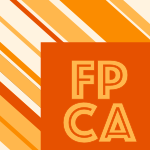 FPCA-1991-Mairson #parametricity #proving
FPCA-1991-Mairson #parametricity #proving- Outline of a Proof Theory of Parametricity (HGM), pp. 313–327.
 CHI-1991-SutcliffeCYL #human-computer
CHI-1991-SutcliffeCYL #human-computer- HCI theory on trial (AS, JC, RMY, JL), pp. 399–401.
 KDD-1991-SmythG #induction #using
KDD-1991-SmythG #induction #using- Rule Induction Using Information Theory (PS, RMG), pp. 159–176.
 KR-1991-Kaufman #formal method #reasoning
KR-1991-Kaufman #formal method #reasoning- A Formal Theory of Spatial Reasoning (SGK), pp. 347–356.
 KR-1991-PearlV #formal method
KR-1991-PearlV #formal method- A Theory of Inferred Causation (JP, TV), pp. 441–452.
 KR-1991-Schaub #perspective #semantics
KR-1991-Schaub #perspective #semantics- Assertional Default Theories: A Semantical View (TS), pp. 496–506.
 ML-1991-Cain
ML-1991-Cain- The DUCTOR: A Theory Revision System for Propositional Domains (TC), pp. 485–489.
 ML-1991-FeldmanSK #approximate #incremental #refinement
ML-1991-FeldmanSK #approximate #incremental #refinement- Incremental Refinement of Approximate Domain Theories (RF, AMS, MK), pp. 500–504.
 ML-1991-Goel #formal method #incremental #learning
ML-1991-Goel #formal method #incremental #learning- Model Revision: A Theory of Incremental Model Learning (AKG), pp. 605–609.
 ML-1991-Hamakawa #refinement
ML-1991-Hamakawa #refinement- Revision Cost for Theory Refinement (RH), pp. 514–518.
 ML-1991-KedarBD #approximate #refinement
ML-1991-KedarBD #approximate #refinement- The Blind Leading the Blind: Mutual Refinement of Approximate Theories (SK, JLB, CLD), pp. 308–312.
 ML-1991-LingV
ML-1991-LingV- Revision of Reduced Theories (XL, MV), pp. 519–523.
 ML-1991-MaclinS #automaton #finite
ML-1991-MaclinS #automaton #finite- Refining Domain Theories Expressed as Finite-State Automata (RM, JWS), pp. 524–528.
 ML-1991-MooneyO #induction #refinement
ML-1991-MooneyO #induction #refinement- Constructive Induction in Theory Refinement (RJM, DO), pp. 178–182.
 ML-1991-OurstonM #multi
ML-1991-OurstonM #multi- Improving Shared Rules in Multiple Category Domain Theories (DO, RJM), pp. 534–538.
 ML-1991-RichardsM #first-order
ML-1991-RichardsM #first-order- First-Order Theory Revision (BLR, RJM), pp. 447–451.
 ML-1991-Tadepalli #learning
ML-1991-Tadepalli #learning- Learning with Incrutable Theories (PT), pp. 544–548.
 ML-1991-WisniewskiM #data-driven
ML-1991-WisniewskiM #data-driven- Is it a Pocket or a Purse? Tighly Coupled Theory and Data Driven Learing (EJW, DLM), pp. 564–568.
 ML-1991-Wogulis #relational
ML-1991-Wogulis #relational- Revising Relational Domain Theories (JW), pp. 462–466.
 ESEC-1991-SijtsmaM #design
ESEC-1991-SijtsmaM #design- A Theory for Software Design Extraction (BAS, JWLJM), pp. 251–265.
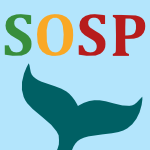 SOSP-1991-LampsonABW #authentication #distributed #theory and practice
SOSP-1991-LampsonABW #authentication #distributed #theory and practice- Authentication in Distributed Systems: Theory and Practice (BWL, MA, MB, EW), pp. 165–182.
 CSL-1991-Fernando #bisimulation #complexity #logic #recursion #set
CSL-1991-Fernando #bisimulation #complexity #logic #recursion #set- A Primitive Recursive Set Theory and AFA: On the Logical Complexity of the Largest Bisimulation (TF), pp. 96–110.
 CSL-1991-Flum #bound #on the
CSL-1991-Flum #bound #on the- On Bounded Theories (JF), pp. 111–118.
 CSL-1991-Troelstra #formal method
CSL-1991-Troelstra #formal method- Comparing the Theory of Representations and Constructive Mathematics (AST), pp. 383–395.
 ISLP-1991-KakasM #logic programming #source code
ISLP-1991-KakasM #logic programming #source code- Stable Theories for Logic Programs (ACK, PM), pp. 85–100.
 ISLP-1991-NgS #semantics
ISLP-1991-NgS #semantics- Relating Dempster-Shafer Theory to Stable Semantics (RTN, VSS), pp. 551–565.
 LICS-1991-CleavelandZ #formal method #realtime #testing
LICS-1991-CleavelandZ #formal method #realtime #testing- A Theory of Testing for Real-Time (RC, AEZ), pp. 110–119.
 LICS-1991-Howe #on the #type system
LICS-1991-Howe #on the #type system- On Computational Open-Endedness in Martin-Löf’s Type Theory (DJH), pp. 162–172.
 LICS-1991-KiferW #first-order #logic programming #morphism #polymorphism
LICS-1991-KiferW #first-order #logic programming #morphism #polymorphism- A First-Order Theory of Types and Polymorphism in Logic Programming (MK, JW), pp. 310–321.
 LICS-1991-KlarlundK #automaton #metric
LICS-1991-KlarlundK #automaton #metric- Rabin Measures and Their Applications to Fairness and Automata Theory (NK, DK), pp. 256–265.
 LICS-1991-Ryan
LICS-1991-Ryan- Defaults and Revision in Structured Theories (MR), pp. 362–373.
 LICS-1991-Taylor #fixpoint
LICS-1991-Taylor #fixpoint- The Fixed Point Property in Synthetic Domain Theory (PT0), pp. 152–160.
 RTA-1991-BaaderN #algebra #commutative #equation #how #morphism #unification
RTA-1991-BaaderN #algebra #commutative #equation #how #morphism #unification- Adding Homomorphisms to Commutative/Monoidal Theories or How Algebra Can Help in Equational Unification (FB, WN), pp. 124–135.
 RTA-1991-Klay #decidability
RTA-1991-Klay #decidability- Undecidable Properties of Syntactic Theories (FK), pp. 136–149.
 RTA-1991-NarendranR #canonical #commutative #finite
RTA-1991-NarendranR #canonical #commutative #finite- Any Gound Associative-Commutative Theory Has a Finite Canonical System (PN, MR), pp. 423–434.
 PODS-1990-Royer #evaluation
PODS-1990-Royer #evaluation- Backward Chaining Evaluation in Stratified Disjunctive Theories (VR), pp. 183–195.
 PODS-1990-Yannakakis #database #graph
PODS-1990-Yannakakis #database #graph- Graph-Theoretic Methods in Database Theory (MY), pp. 230–242.
 ESOP-1990-Helmink #type system
ESOP-1990-Helmink #type system- Resolution and Type Theory (LH), pp. 197–211.
 ESOP-1990-JeffersonLF
ESOP-1990-JeffersonLF- A Syntactic Theory of Transparent Parameterization (SJ, SDL, DPF), pp. 212–226.
 ESOP-1990-Voronkov #formal method #logic #programming #towards
ESOP-1990-Voronkov #formal method #logic #programming #towards- Towards the Theory of Programming in Constructive Logic (AV), pp. 421–435.
 STOC-1990-Frederickson #bound
STOC-1990-Frederickson #bound- The Information Theory Bound Is Tight for Selection in a Heap (GNF), pp. 26–33.
 ICALP-1990-HennessyI #communication #formal method #process
ICALP-1990-HennessyI #communication #formal method #process- A Theory of Communicating Processes with Value-Passing (MH, AI), pp. 209–219.
 GG-1990-ArnborgCPS #algebra #graph #reduction
GG-1990-ArnborgCPS #algebra #graph #reduction- An Algebraic Theory of Graph Reduction (SA, BC, AP, DS), pp. 70–83.
 GG-1990-Paz90a #bibliography #formal method
GG-1990-Paz90a #bibliography #formal method- The Theory of Graphoids: A Survey (AP), pp. 610–621.
 CHI-1990-LewisPWR #design #interface #testing
CHI-1990-LewisPWR #design #interface #testing- Testing a walkthrough methodology for theory-based design of walk-up-and-use interfaces (CHL, PGP, CW, JR), pp. 235–242.
 CSCW-1990-MaloneC #coordination #design #how #question #what
CSCW-1990-MaloneC #coordination #design #how #question #what- What is Coordination Theory and How Can It Help Design Cooperative Work Systems? (TWM, KC), pp. 357–370.
 ML-1990-GenestMP #approach #learning
ML-1990-GenestMP #approach #learning- Explanation-Based Learning with Incomplete Theories: A Three-step Approach (JG, SM, BP), pp. 286–294.
 SEKE-1990-DeckH #re-engineering #theory and practice
SEKE-1990-DeckH #re-engineering #theory and practice- Cleanroom Software Engineering: Theory and Practice (MDD, PAH), pp. 71–77.
 SIGIR-1990-Egghe #formal method #information retrieval
SIGIR-1990-Egghe #formal method #information retrieval- A New Method for Information Retrieval, Based on the Theory of Relative Concentration (LE), pp. 469–493.
 OOPSLA-ECOOP-1990-Meseguer #concurrent #logic
OOPSLA-ECOOP-1990-Meseguer #concurrent #logic- A Logical Theory of Concurrent Objects (JM), pp. 101–115.
 ALP-1990-Bellegarde #category theory #formal method #process
ALP-1990-Bellegarde #category theory #formal method #process- A Matching Process Modulo a Theory of Categorical Products (FB), pp. 270–282.
 ALP-1990-DershowitzMS #equation
ALP-1990-DershowitzMS #equation- Equation Solving in Conditional AC-Theories (ND, SM, GS), pp. 283–297.
 ALP-1990-ZhouM
ALP-1990-ZhouM- Domain Theory for Nonmonotonic Functions (YZ, RM), pp. 144–157.
 CADE-1990-AltucherP #category theory #proving
CADE-1990-AltucherP #category theory #proving- A Mechanically Assisted Constructive Proof in Category Theory (JAA, PP), pp. 500–513.
 CADE-1990-Boudet #algorithm #equation #performance #unification
CADE-1990-Boudet #algorithm #equation #performance #unification- Unification in a Combination of Equational Theories: an Efficient Algorithm (AB), pp. 292–307.
 CADE-1990-CostaHLS #automation #implementation #logic #proving #theorem proving
CADE-1990-CostaHLS #automation #implementation #logic #proving #theorem proving- Automatic Theorem Proving in Paraconsistent Logics: Theory and Implementation (NCAdC, LJH, JJL, VSS), pp. 72–86.
 CADE-1990-McMichael #automation #named #set
CADE-1990-McMichael #automation #named #set- SLIM: An Automated Reasoner For Equivalences, Applied To Set Theory (AFM), pp. 308–321.
 CADE-1990-Nutt #unification
CADE-1990-Nutt #unification- Unification in Monoidal Theories (WN), pp. 618–632.
 CAV-1990-Pixley #equivalence #hardware #implementation
CAV-1990-Pixley #equivalence #hardware #implementation- Introduction to a Computational Theory and Implementation of Sequential Hardware Equivalence (CP), pp. 54–64.
 CSL-1990-BlassG #complexity #on the #reduction
CSL-1990-BlassG #complexity #on the #reduction- On the Reduction Theory for Average Case Complexity (AB, YG), pp. 17–30.
 CSL-1990-Rauszer #modelling
CSL-1990-Rauszer #modelling- Expansions and Models of Autoepistemic Theories (CR), pp. 340–353.
 LICS-1990-DauchetT #decidability #formal method #term rewriting
LICS-1990-DauchetT #decidability #formal method #term rewriting- The Theory of Ground Rewrite Systems is Decidable (MD, ST), pp. 242–248.
 LICS-1990-DrosteG #formal method #programming language #semantics
LICS-1990-DrosteG #formal method #programming language #semantics- Universal Domains in the Theory of Denotational Semantics of Programming Languages (MD, RG), pp. 19–34.
 LICS-1990-KirchnerK #unification
LICS-1990-KirchnerK #unification- Syntactic Theories and Unification (CK, FK), pp. 270–277.
 LICS-1990-MarekNR #formal method
LICS-1990-MarekNR #formal method- A Theory of Nonmonotonic Rule Systems (VWM, AN, JBR), pp. 79–94.
 LICS-1990-Nipkow #equation #proving
LICS-1990-Nipkow #equation #proving- Proof Transformations for Equational Theories (TN), pp. 278–288.
 LICS-1990-RobinsonR #call-by #morphism #polymorphism #set
LICS-1990-RobinsonR #call-by #morphism #polymorphism #set- Polymorphism, Set Theory, and Call-by-Value (ER, GR), pp. 12–18.
 LICS-1990-WandW #source code #verification
LICS-1990-WandW #source code #verification- Conditional λ-Theories and the Verification of Static Properties of Programs (MW, ZYW), pp. 321–332.
 NACLP-1990-BugliesiLM #logic #partial evaluation
NACLP-1990-BugliesiLM #logic #partial evaluation- Partial Evaluation for Hierarchies of Logic Theories (MB, EL, PM), pp. 359–376.
 NACLP-1990-Hentenryck #constraints #logic programming
NACLP-1990-Hentenryck #constraints #logic programming- Constraint Logic Programming: From Theory to Applications (PVH), p. 841.
 DAC-1989-SaucierDP #using
DAC-1989-SaucierDP #using- State Assignment Using a New Embedding Method Based on an Intersecting Cube Theory (GS, CD, FP), pp. 321–326.
 PODS-1989-Vardi #automaton #database
PODS-1989-Vardi #automaton #database- Automata Theory for Database Theoreticans (MYV), pp. 83–92.
 STOC-1989-Ben-DavidCGL #complexity #formal method #on the
STOC-1989-Ben-DavidCGL #complexity #formal method #on the- On the Theory of Average Case Complexity (SBD, BC, OG, ML), pp. 204–216.
 STOC-1989-Ierardi #algebra #formal method #quantifier
STOC-1989-Ierardi #algebra #formal method #quantifier- Quantifier Elimination in the Theory of an Algebraically-closed Field (DI), pp. 138–147.
 ICALP-1989-LiV89a #approach #complexity #formal method
ICALP-1989-LiV89a #approach #complexity #formal method- A New Approach to Formal Language Theory by Kolmogorov Complexity (Preliminary Version) (ML, PMBV), pp. 506–520.
 ICALP-1989-McKenzieT #automaton #complexity
ICALP-1989-McKenzieT #automaton #complexity- Automata Theory Meets Circuit Complexity (PM, DT), pp. 589–602.
 CHI-1989-CarrollK #design
CHI-1989-CarrollK #design- Artifact as theory-nexus: hermeneutics meets theory-based design (JMC, WAK), pp. 7–14.
 KR-1989-CrawfordK #formal method #information management #logic #representation #towards
KR-1989-CrawfordK #formal method #information management #logic #representation #towards- Towards a Theory of Access-Limited Logic for Knowledge Representation (JMC, BK), pp. 67–78.
 KR-1989-DoyleW
KR-1989-DoyleW- Impediments to Universal Preference-Based Default Theories (JD, MPW), pp. 94–102.
 KR-1989-RaoF
KR-1989-RaoF- Formal Theories of Belief Revision (ASR, NYF), pp. 369–380.
 KR-1989-Zadrozny #order #set
KR-1989-Zadrozny #order #set- Cardinalities and Well Orderings in a Common-Sense Set Theory (WZ), pp. 486–497.
 ML-1989-Ali
ML-1989-Ali- Augmenting Domain Theory for Explanation-Based Generalization (KMA), pp. 40–42.
 ML-1989-Danyluk #bias #induction #information management
ML-1989-Danyluk #bias #induction #information management- Finding New Rules for Incomplete Theories: Explicit Biases for Induction with Contextual Information (APD), pp. 34–36.
 ML-1989-Ginsberg #knowledge base #refinement
ML-1989-Ginsberg #knowledge base #refinement- Knowledge Base Refinement and Theory Revision (AG), pp. 260–265.
 ML-1989-KulkarniS
ML-1989-KulkarniS- The Role of Experimentation in Scientific Theory Revision (DK, HAS), pp. 278–283.
 ML-1989-Mahadevan #problem #using
ML-1989-Mahadevan #problem #using- Using Determinations in EBL: A Solution to the incomplete Theory Problem (SM), pp. 320–325.
 ML-1989-ORorkeMS #abduction #case study
ML-1989-ORorkeMS #abduction #case study- Theory Formation by Abduction: Initial Results of a Case Study Based on the Chemical Revolution (PO, SM, DS), pp. 266–271.
 ML-1989-Pazzani #learning
ML-1989-Pazzani #learning- Explanation-Based Learning with Week Domain Theories (MJP), pp. 72–74.
 ML-1989-Rajamoney #approach #consistency #experience #problem
ML-1989-Rajamoney #approach #consistency #experience #problem- Exemplar-Based Theory Rejection: An Approach to the Experience Consistency Problem (SAR), pp. 284–289.
 ML-1989-Rose #using
ML-1989-Rose #using- Using Domain Knowledge to Aid Scientific Theory Revision (DR), pp. 272–277.
 ML-1989-Spackman #detection #induction #learning #tool support
ML-1989-Spackman #detection #induction #learning #tool support- Signal Detection Theory: Valuable Tools for Evaluating Inductive Learning (KAS), pp. 160–163.
 ML-1989-Subramanian89a #formal method
ML-1989-Subramanian89a #formal method- A Theory of Justified Reformulations (DS), pp. 434–438.
 ML-1989-TecuciK #learning #multi
ML-1989-TecuciK #learning #multi- Multi-Strategy Learning in Nonhomongeneous Domain Theories (GT, YK), pp. 14–16.
 ML-1989-WilkinsT #consistency #knowledge base #refinement
ML-1989-WilkinsT #consistency #knowledge base #refinement- Knowledge Base Refinement as Improving an Incorrect, Inconsistent and Incomplete Domain Theory (DCW, KWT), pp. 332–339.
 SEKE-1989-Tang #automation #concurrent #infinity #source code #verification
SEKE-1989-Tang #automation #concurrent #infinity #source code #verification- Temporal Theory for Automatic Verification of Infinite State Concurrent Programs (TGT), pp. 134–139.
 CSL-1989-Dahlhaus #complexity #linear
CSL-1989-Dahlhaus #complexity #linear- The Complexity of Subtheories of the Existential Linear Theory of Reals (ED), pp. 76–89.
 CSL-1989-Dahn #on the
CSL-1989-Dahn #on the- On Test Classes for Universal Theories (BID), pp. 90–97.
 CSL-1989-Gradel #complexity #concept #logic #on the
CSL-1989-Gradel #complexity #concept #logic #on the- On Logical Descriptions of Some Concepts in Structural Complexity Theory (EG), pp. 163–175.
 CSL-1989-Ohlbach #first-order #logic #multi #proving
CSL-1989-Ohlbach #first-order #logic #multi #proving- New Ways for Developing Proof Theories for First-Order Multi Modal Logics (HJO), pp. 271–308.
 LICS-1989-GaifmanS #logic programming #proving #semantics #source code
LICS-1989-GaifmanS #logic programming #proving #semantics #source code- Proof Theory and Semantics of Logic Programs (HG, EYS), pp. 50–62.
 NACLP-1989-MarekT #logic programming #semantics #source code
NACLP-1989-MarekT #logic programming #semantics #source code- Stable Semantics for Logic Programs and Default Theories (VWM, MT), pp. 243–256.
 RTA-1989-Lankford #theory and practice
RTA-1989-Lankford #theory and practice- Generalized Gröbner Bases: Theory and Applications. A Condensation (DL), pp. 203–221.
 PODS-1988-Chandra #database #query
PODS-1988-Chandra #database #query- Theory of Database Queries (AKC), pp. 1–9.
 VLDB-1988-AspnesFLMW #concurrent #formal method #transaction
VLDB-1988-AspnesFLMW #concurrent #formal method #transaction- A Theory of Timestamp-Based Concurrency Control for Nested Transactions (JA, AF, NAL, MM, WEW), pp. 431–444.
 ESOP-1988-GaudelM #formal method #reuse
ESOP-1988-GaudelM #formal method #reuse- A Theory of Software Reusability (MCG, TM), pp. 115–130.
 ESOP-1988-Parigot #higher-order #programming #proving #type system
ESOP-1988-Parigot #higher-order #programming #proving #type system- Programming with Proofs: A Second Order Type Theory (MP), pp. 145–159.
 ICALP-1988-Hartmanis #complexity
ICALP-1988-Hartmanis #complexity- New Developments in Structural Complexity Theory (JH), pp. 271–286.
 ICALP-1988-KruskalRS #algorithm #complexity #parallel #performance
ICALP-1988-KruskalRS #algorithm #complexity #parallel #performance- A Complexity Theory of Efficient Parallel Algorithms (Extended Abstract) (CPK, LR, MS), pp. 333–346.
 ICALP-1988-Thiagarajan #aspect-oriented #behaviour
ICALP-1988-Thiagarajan #aspect-oriented #behaviour- Some Behavioural Aspects of Net Theory (PST), pp. 630–653.
 ICALP-1988-You #equation
ICALP-1988-You #equation- Outer Narrowing for Equational Theories Based on Constructors (JHY), pp. 727–741.
 ML-1988-FalkenhainerR
ML-1988-FalkenhainerR- The Interdependencies of Theory Formation, Revision, and Experimentation (BF, SAR), pp. 353–366.
 ML-1988-Kelly
ML-1988-Kelly- Theory Discovery and the Hypothesis Language (KTK), pp. 325–338.
 ML-1988-MahadevanT #learning #on the
ML-1988-MahadevanT #learning #on the- On the Tractability of Learning from Incomplete Theories (SM, PT), pp. 235–241.
 ML-1988-Pazzani #learning
ML-1988-Pazzani #learning- Integrated Learning with Incorrect and Incomplete Theories (MJP), pp. 291–297.
 ALP-1988-Bockmayr
ALP-1988-Bockmayr- Narrowing with Built-In Theories (AB), pp. 83–92.
 ALP-1988-Wolter #equation
ALP-1988-Wolter #equation- Narrowing in Partial Conditional Equational Theories (Abstract) (UW), p. 244.
 POPL-1988-Felleisen #theory and practice
POPL-1988-Felleisen #theory and practice- The Theory and Practice of First-Class Prompts (MF), pp. 180–190.
 POPL-1988-Pelegri-LlopartG #code generation
POPL-1988-Pelegri-LlopartG #code generation- Optimal Code Generation for Expression Trees: An Application of BURS Theory (EPL, SLG), pp. 294–308.
 ICSE-1988-BoehmR #case study #project management
ICSE-1988-BoehmR #case study #project management- Theory-W Software Project Management: A Case Study (BWB, RR), pp. 30–40.
 CADE-1988-Burckert #equation
CADE-1988-Burckert #equation- Solving Disequations in Equational Theories (HJB), pp. 517–526.
 CADE-1988-KounalisR #on the #problem #word
CADE-1988-KounalisR #on the #problem #word- On Word Problems in Horn Theories (EK, MR), pp. 527–537.
 CADE-1988-McCune #challenge #problem #similarity
CADE-1988-McCune #challenge #problem #similarity- Challenge Equality Problems in Lattice Theory (WM), pp. 704–709.
 CADE-1988-Moser #graph
CADE-1988-Moser #graph- A Decision Procedure for Unquantified Formulas of Graph Theory (LEM), pp. 344–357.
 CADE-1988-MurrayR #implementation
CADE-1988-MurrayR #implementation- An Implementation of a Dissolution-Based System Employing Theory Links (NVM, ER), pp. 658–674.
 CADE-1988-Schmidt-Schauss #equation #unification
CADE-1988-Schmidt-Schauss #equation #unification- Unification in a Combination of Arbitrary Disjoint Equational Theories (MSS), pp. 378–396.
 JICSCP-1988-LoboMR88 #source code
JICSCP-1988-LoboMR88 #source code- Weak Completion Theory for Non-Horn Programs (JL, JM, AR), pp. 828–842.
 JICSCP-1988-ParkerM88 #formal method #logic programming #source code
JICSCP-1988-ParkerM88 #formal method #logic programming #source code- A Theory of Directed Logic Programs and Streams (DSPJ, RRM), pp. 620–650.
 LICS-1988-Bachmair #consistency #equation #proving
LICS-1988-Bachmair #consistency #equation #proving- Proof by Consistency in Equational Theories (LB), pp. 228–233.
 LICS-1988-ConstableS #recursion
LICS-1988-ConstableS #recursion- Computational Foundations of Basic Recursive Function Theory (RLC, SFS), pp. 360–371.
 LICS-1988-DershowitzO #term rewriting
LICS-1988-DershowitzO #term rewriting- Proof-Theoretic Techniques for Term Rewriting Theory (ND, MO), pp. 104–111.
 LICS-1988-MeseguerM #algebra #monad #petri net
LICS-1988-MeseguerM #algebra #monad #petri net- Petri Nets Are Monoids: A New Algebraic Foundation for Net Theory (JM, UM), pp. 155–164.
 LICS-1988-SalvesenS #set #type system
LICS-1988-SalvesenS #set #type system- The Strength of the Subset Type in Martin-Löf’s Type Theory (AS, JMS), pp. 384–391.
 PODS-1987-Selinger
PODS-1987-Selinger- Chickens and Eggs: The Interrelationship of Systems and Theory (PGS), pp. 250–253.
 PODS-1987-Ullman #database #past present future
PODS-1987-Ullman #database #past present future- Database Theory: Past and Future (JDU), pp. 1–10.
 VLDB-1987-CavalloP #database #formal method #probability
VLDB-1987-CavalloP #database #formal method #probability- The Theory of Probabilistic Databases (RC, MP), pp. 71–81.
 STOC-1987-Goldreich #formal method #simulation #towards
STOC-1987-Goldreich #formal method #simulation #towards- Towards a Theory of Software Protection and Simulation by Oblivious RAMs (OG), pp. 182–194.
 STOC-1987-Smolensky #algebra #bound #complexity #formal method
STOC-1987-Smolensky #algebra #bound #complexity #formal method- Algebraic Methods in the Theory of Lower Bounds for Boolean Circuit Complexity (RS), pp. 77–82.
 ICALP-1987-HaferT #logic #monad #quantifier
ICALP-1987-HaferT #logic #monad #quantifier- Computation Tree Logic CTL* and Path Quantifiers in the Monadic Theory of the Binary Tree (TH, WT), pp. 269–279.
 ICALP-1987-Holldobler #algorithm #confluence #unification
ICALP-1987-Holldobler #algorithm #confluence #unification- A Unification Algorithms for Confluent Theories (SH), pp. 31–41.
 ICALP-1987-HsiangR #equation #on the #problem #word
ICALP-1987-HsiangR #equation #on the #problem #word- On Word Problems in Equational Theories (JH, MR), pp. 54–71.
 ICALP-1987-Karhumaki #formal method #on the #roadmap
ICALP-1987-Karhumaki #formal method #on the #roadmap- On Recent Trends in Formal Language Theory (JK), pp. 136–162.
 ICALP-1987-Valiant #formal method #learning
ICALP-1987-Valiant #formal method #learning- Recent Developments in the Theory of Learning (Abstract) (LGV), p. 563.
 FPCA-1987-BellotJ #implementation
FPCA-1987-BellotJ #implementation- A theory for natural modelisation and implementation of functions with variable arity (PB, VJ), pp. 212–233.
 CSL-1987-Jager #induction
CSL-1987-Jager #induction- Induction in the Elementary Theory of Types and Names (GJ), pp. 118–128.
 CSL-1987-Volger #database #deduction
CSL-1987-Volger #database #deduction- Model Theory of Deductive Databases (HV), pp. 322–334.
 LICS-1987-Abramsky #logic
LICS-1987-Abramsky #logic- Domain Theory in Logical Form (SA), pp. 47–53.
 LICS-1987-ConstableS #type system
LICS-1987-ConstableS #type system- Partial Objects In Constructive Type Theory (RLC, SFS), pp. 183–193.
 RTA-1987-BurckertHS #decidability #equation #on the #unification
RTA-1987-BurckertHS #decidability #equation #on the #unification- On Equational Theories, Unification and Decidability (HJB, AH, MSS), pp. 204–215.
 SLP-1987-Chen87 #formal method #higher-order #logic
SLP-1987-Chen87 #formal method #higher-order #logic- A Theory of Modules Based on Second-Order Logic (WC), pp. 24–33.
 ICALP-1986-MullerSS #automaton #complexity #monad
ICALP-1986-MullerSS #automaton #complexity #monad- Alternating Automata. The Weak Monadic Theory of the Tree, and its Complexity (DEM, AS, PES), pp. 275–283.
 LFP-1986-Thatte #equation #programming language #semantics #towards
LFP-1986-Thatte #equation #programming language #semantics #towards- Towards a Semantic Theory for Equational Programming Languages (SRT), pp. 332–342.
 GG-1986-Courcelle86a #graph #higher-order #monad #on the #set
GG-1986-Courcelle86a #graph #higher-order #monad #on the #set- On context-free sets of graphs and their monadic second-order theory (BC), pp. 133–146.
 GG-1986-Jeffs #graph grammar #independence
GG-1986-Jeffs #graph grammar #independence- Embedding Rule Independent Theory of Graph Grammars (JJ), pp. 299–308.
 CSCW-1986-CashmanS #complexity #theory and practice
CSCW-1986-CashmanS #complexity #theory and practice- Achieving sustainable complexity through information technology: theory and practice (PMC, DS), pp. 307–317.
 CSCW-1986-FosterS #named #theory and practice
CSCW-1986-FosterS #named #theory and practice- Cognoter: theory and practice of a colab-orative tool (GF, MS), pp. 7–15.
 CSCW-1986-HoltMSWC
CSCW-1986-HoltMSWC- From theories to systems (AWH, TWM, RKS, TW, PMC), p. 253.
 CRAI-1986-Bjorner #development #formal method #graph #metaprogramming #towards
CRAI-1986-Bjorner #development #formal method #graph #metaprogramming #towards- Project Graphs and Meta-Programs. Towards a Theory of Software Development (DB), pp. 117–152.
 CRAI-1986-Goodenough #ada #compilation #testing #theory and practice #validation
CRAI-1986-Goodenough #ada #compilation #testing #theory and practice #validation- Ada Compiler Validation: An Example of Software Testing Theory and Practice (JBG), pp. 195–232.
 OOPSLA-1986-Olthoff #concept #data type #experience #object-oriented #programming #type system
OOPSLA-1986-Olthoff #concept #data type #experience #object-oriented #programming #type system- Augmentation of Object-Oriented Programming by Concepts of Abstract Data Type Theory: The ModPascal Experience (WGO), pp. 429–443.
 CADE-1986-Brown #reasoning
CADE-1986-Brown #reasoning- A Commonsense Theory of Nonmonotonic Reasoning (FMB), pp. 209–228.
 CADE-1986-Howe #empirical #implementation
CADE-1986-Howe #empirical #implementation- Implementing Number Theory: An Experiment with Nuprl (DJH), pp. 404–415.
 CADE-1986-MurrayR #graph #semantics
CADE-1986-MurrayR #graph #semantics- Theory Links in Semantic Graphs (NVM, ER), pp. 353–364.
 CADE-1986-Schmidt-Schauss #unification
CADE-1986-Schmidt-Schauss #unification- Unification in Many-Sorted Eqational Theories (MSS), pp. 538–552.
 CADE-1986-Tiden #set #unification
CADE-1986-Tiden #set #unification- Unification in Combinations of Collapse-Free Theories with Disjoint Sets of Function Symbols (ET), pp. 431–449.
 ICLP-1986-GoebelFP86 #approach #constraints #reasoning #using
ICLP-1986-GoebelFP86 #approach #constraints #reasoning #using- Using Definite Clauses and Integrity Constraints as the Basis for a Theory Formation Approach to Diagnostic Reasoning (RG, KF, DP), pp. 211–222.
 LICS-1986-JouannaudK #automation #equation #induction #proving
LICS-1986-JouannaudK #automation #equation #induction #proving- Automatic Proofs by Induction in Equational Theories Without Constructors (JPJ, EK), pp. 358–366.
 LICS-1986-KnoblockC #type system
LICS-1986-KnoblockC #type system- Formalized Metareasoning in Type Theory (TBK, RLC), pp. 237–248.
 LICS-1986-MendlerPC #infinity #type system
LICS-1986-MendlerPC #infinity #type system- Infinite Objects in Type Theory (NPM, PP, RLC), pp. 249–255.
 LICS-1986-PerrinS #automaton #decidability #equivalence #integer #monad
LICS-1986-PerrinS #automaton #decidability #equivalence #integer #monad- Automata on the Integers, Recurrence Distinguishability, and the Equivalence and Decidability of Monadic Theories (DP, PES), pp. 301–304.
 SLP-1986-MartelliMR86 #algorithm #equation #unification
SLP-1986-MartelliMR86 #algorithm #equation #unification- An Algorithm for Unification in Equational Theories (AM, CM, GR), pp. 180–186.
 SLP-1986-Miller86 #formal method #logic programming
SLP-1986-Miller86 #formal method #logic programming- A Theory of Modules for Logic Programming (DM), pp. 106–114.
 STOC-1985-Babai
STOC-1985-Babai- Trading Group Theory for Randomness (LB), pp. 421–429.
 STOC-1985-CosmadakisK #constraints #database #equation
STOC-1985-CosmadakisK #constraints #database #equation- Equational Theories and Database Constraints (SSC, PCK), pp. 273–284.
 STOC-1985-Vazirani #communication #complexity #generative #sequence #towards
STOC-1985-Vazirani #communication #complexity #generative #sequence #towards- Towards a Strong Communication Complexity Theory or Generating Quasi-Random Sequences from Two Communicating Slightly-random Sources (Extended Abstract) (UVV), pp. 366–378.
 ICALP-1985-Hennessy #algebra #communication #process
ICALP-1985-Hennessy #algebra #communication #process- An Algebraic Theory of Fair Asynchronous Communicating Processes (MH), pp. 260–269.
 FPCA-1985-Dybjer85 #logic #verification
FPCA-1985-Dybjer85 #logic #verification- Program Verification in a Logical Theory of Constructions (PD), pp. 334–349.
 SIGIR-1985-DAmoreM #theory and practice
SIGIR-1985-DAmoreM #theory and practice- One-Time Complete Indexing of Text: Theory and Practice (RJD, CPM), pp. 155–164.
 ICSE-1985-StempleS #database #development
ICSE-1985-StempleS #database #development- Database Theory for Supporting Specification-Based Database Systems Development (DWS, TS), pp. 43–49.
 RTA-1985-CosmadakisK #database #equation
RTA-1985-CosmadakisK #database #equation- Two Applications of Equational Theories to Database Theory (SSC, PCK), pp. 107–123.
 RTA-1985-Yelick #algorithm #equation #unification
RTA-1985-Yelick #algorithm #equation #unification- Combining Unification Algorithms for Confined Regular Equational Theories (KAY), pp. 365–380.
 PODS-1984-RaihaT #formal method #online #towards
PODS-1984-RaihaT #formal method #online #towards- Towards a Theory of Online Schedulers (KJR, HT), pp. 323–332.
 SIGMOD-1984-Willard #calculus #performance #query #relational #using
SIGMOD-1984-Willard #calculus #performance #query #relational #using- Efficient Processing of Relational Calculus Expressions Using Range Query Theory (DEW), pp. 164–175.
 STOC-1984-Valiant #formal method
STOC-1984-Valiant #formal method- A Theory of the Learnable (LGV), pp. 436–445.
 ICALP-1984-FaginV #bibliography #dependence #formal method #perspective
ICALP-1984-FaginV #bibliography #dependence #formal method #perspective- The Theory of Data Dependencies — An Overview (RF, MYV), pp. 1–22.
 ICALP-1984-Welzl #encoding #formal method #graph #graph grammar
ICALP-1984-Welzl #encoding #formal method #graph #graph grammar- Encoding Graphs by Derivations and Implications for the Theory of Graph Grammars (EW), pp. 503–513.
 SIGIR-1984-Kwok #feedback #probability #retrieval #similarity
SIGIR-1984-Kwok #feedback #probability #retrieval #similarity- A Document-Document Similarity Measure Based on Cited Titles and Probability Theory, and Its Application to Relevance Feedback Retrieval (KLK), pp. 221–231.
 CADE-1984-Fribourg
CADE-1984-Fribourg- A Narrowing Procedure for Theories with Constructors (LF), pp. 259–281.
 ILPC-1984-SunW84 #logic programming
ILPC-1984-SunW84 #logic programming- A Model Theory of Logic Programming Methodology (HS, LW), pp. 253–262.
 SLP-1984-Mishra84 #formal method #prolog #towards
SLP-1984-Mishra84 #formal method #prolog #towards- Towards a Theory of Types in Prolog (PM), pp. 289–298.
 SIGMOD-1983-Bernstein #database
SIGMOD-1983-Bernstein #database- Database Theory: Where Has It Been? Where Is It Going? (Abstract) (PAB), p. 2.
 VLDB-1983-IbarakiKM #concept
VLDB-1983-IbarakiKM #concept- Disjoint-Interval Topological Sort: A Useful Concept in Serializability Theory (Extended Abstract) (TI, TK, TM), pp. 89–91.
 ICALP-1983-JouannaudKK #algorithm #equation #incremental #unification
ICALP-1983-JouannaudKK #algorithm #equation #incremental #unification- Incremental Construction of Unification Algorithms in Equational Theories (JPJ, CK, HK), pp. 361–373.
 SIGIR-1983-FraenkelM #clustering #scalability
SIGIR-1983-FraenkelM #clustering #scalability- Combinational Compression and Partitioning of Large Dictionaries: Theory and Experiments (ASF, MM), pp. 205–219.
 POPL-1983-DemersD #equation
POPL-1983-DemersD #equation- Making Variables Abstract: An Equational Theory for Russell (AJD, JED), pp. 59–72.
 PODS-1982-AtzeniP #database #relational
PODS-1982-AtzeniP #database #relational- Assumptions in Relational Database Theory (PA, DSPJ), pp. 1–9.
 PODS-1982-Casanova #dependence #formal method #relational
PODS-1982-Casanova #dependence #formal method #relational- A Theory of Data Dependencies over Relational Expressions (MAC), pp. 189–198.
 PODS-1982-HullY #database #formal method
PODS-1982-HullY #database #formal method- The Format Model: A Theory of Database Organization (RH, CKY), pp. 205–211.
 PODS-1982-KrishnamurthyD #parallel #transaction
PODS-1982-KrishnamurthyD #parallel #transaction- Theory of Serializability for a Parallel Model of Transactions (RK, UD), pp. 293–305.
 SIGMOD-1982-ImielinskiL #approach #database #relational
SIGMOD-1982-ImielinskiL #approach #database #relational- A Systematic Approach to Relational Database Theory (TI, WLJ), pp. 8–14.
 STOC-1982-Carter #formal method #testing
STOC-1982-Carter #formal method #testing- The Theory of Signature Testing for VLSI (JLC), pp. 66–76.
 ICALP-1982-Salwicki #algorithm #data type
ICALP-1982-Salwicki #algorithm #data type- Algorithmic Theories of Data Structures (AS), pp. 458–472.
 SIGIR-1982-Knorz #approach #automation
SIGIR-1982-Knorz #approach #automation- A Decision Theory Approach to Optimal Automatic Indexing (GK), pp. 174–193.
 POPL-1982-Komorowski #data type #implementation #partial evaluation #prolog
POPL-1982-Komorowski #data type #implementation #partial evaluation #prolog- Partial Evaluation as a Means for Inferencing Data Structures in an Applicative Language: A Theory and Implementation in the Case of Prolog (HJK), pp. 255–267.
 CADE-1982-Shostak
CADE-1982-Shostak- Deciding Combinations of Theories (RES), pp. 209–222.
 CADE-1982-SiekmannS #classification #equation #unification
CADE-1982-SiekmannS #classification #equation #unification- Universal Unification and a Classification of Equational Theories (JHS, PS), pp. 369–389.
 DAC-1981-BreuerP #roadmap #simulation
DAC-1981-BreuerP #roadmap #simulation- Digital system simulation: Current status and future trends or darwin’s theory of simulation (MAB, ACP), pp. 269–275.
 SIGMOD-1981-Levin #algebra #graph
SIGMOD-1981-Levin #algebra #graph- Introduction to the DIAM Theory of Algebraic Access Graph (ML), pp. 40–48.
 VLDB-1981-BorgidaW #modelling #proving #semantics
VLDB-1981-BorgidaW #modelling #proving #semantics- Data Models and Data Manipulation Languages: Complementary Semantics and Proof Theory (AB, HKTW), pp. 260–271.
 VLDB-1981-FussellKS #database #formal method #protocol
VLDB-1981-FussellKS #database #formal method #protocol- A Theory of Correct Locking Protocols for Database Systems (DSF, ZMK, AS), pp. 112–124.
 VLDB-1981-Kent
VLDB-1981-Kent- Data Model Theory Meets a Practical Application (WK), pp. 13–22.
 STOC-1981-Leivant #complexity #independence #parametricity #polymorphism #programming language #theorem
STOC-1981-Leivant #complexity #independence #parametricity #polymorphism #programming language #theorem- The Complexity of Parameter Passing in Polymorphic Procedures (or: Programming Language Theorems Independent of Very Strong Theories) (DL), pp. 38–45.
 ICALP-1981-Makowsky81a #logic #named #power of
ICALP-1981-Makowsky81a #logic #named #power of- Errata: Measuring the Expressive Power of Dynamic Logics: An Application of Abstract Model Theory (JAM), p. 551.
 ICALP-1981-Ullman #database #relational
ICALP-1981-Ullman #database #relational- A View of Directions in Relational Database Theory (JDU), pp. 165–176.
 SIGIR-1981-Farradane #formal method #information retrieval
SIGIR-1981-Farradane #formal method #information retrieval- The Basis for a Theory of Information Retrieval (JF), pp. 1–3.
 DAC-1980-Donath #automation #complexity #design
DAC-1980-Donath #automation #complexity #design- Complexity theory and design automation (WED), pp. 412–419.
 VLDB-1980-Swartwout #database
VLDB-1980-Swartwout #database- Database Theory and its Relationship to Practice (DES), p. 361.
 STOC-1980-DeMilloL #consistency #problem
STOC-1980-DeMilloL #consistency #problem- The Consistency of “P = NP” and Related Problems with Fragments of Number Theory (RAD, RJL), pp. 45–57.
 STOC-1980-Plaisted #independence #on the
STOC-1980-Plaisted #independence #on the- On the Distribution of Independent Formulae of Number Theory (DAP), pp. 39–44.
 ICALP-1980-KennawayH #formal method #nondeterminism
ICALP-1980-KennawayH #formal method #nondeterminism- A Theory of Nondeterminism (RK, CARH), pp. 338–350.
 ICALP-1980-Makowsky #logic #power of
ICALP-1980-Makowsky #logic #power of- Measuring the Expressive Power of Dynamic Logics: An Application of Abstract Model Theory (JAM), pp. 409–421.
 SIGIR-1980-Koll #concept #design #information retrieval
SIGIR-1980-Koll #concept #design #information retrieval- Information Retrieval Theory and Design Based on a Model of the User’s Concept Relations (MBK), pp. 77–93.
 SIGIR-1980-SaltonW #modelling
SIGIR-1980-SaltonW #modelling- A Term Weighting Model Based on Utility Theory (GS, HW), pp. 9–22.
 SDCG-1980-Reynolds #category theory #design #using
SDCG-1980-Reynolds #category theory #design #using- Using category theory to design implicit conversions and generic operators (JCR), pp. 211–258.
 CADE-1980-FerroOS #set
CADE-1980-FerroOS #set- Decision Procedures for Some Fragments of Set Theory (AF, EGO, JTS), pp. 88–96.
 CADE-1980-Furtek #constraints #distributed #formal method #realtime #specification #using #verification
CADE-1980-Furtek #constraints #distributed #formal method #realtime #specification #using #verification- Specification and Verification of Real-Time, Distributed Systems Using the Theory of Constraints (FCF), pp. 110–125.
 SIGMOD-1979-KungP #concurrent #database
SIGMOD-1979-KungP #concurrent #database- An Optimality Theory of Concurrency Control for Databases (HTK, CHP), pp. 116–126.
 STOC-1979-DeMilloL #complexity #logic
STOC-1979-DeMilloL #complexity #logic- Some Connections between Mathematical Logic and Complexity Theory (RAD, RJL), pp. 153–159.
 ICALP-1979-Goldstine
ICALP-1979-Goldstine- A Rational Theory of AFLS (JG), pp. 271–281.
 ICALP-1979-Jeanrond #axiom #commutative #termination #theorem
ICALP-1979-Jeanrond #axiom #commutative #termination #theorem- A Unique Termination Theorem for a Theory with Generalised Commutative Axioms (HJJ), pp. 316–330.
 ICALP-1979-Rozenberg #approach #formal method #parallel
ICALP-1979-Rozenberg #approach #formal method #parallel- A Systematic Approach to Formal Language Theory Through Parallel Rewriting (GR), pp. 471–478.
 VLDB-1978-BeeriBG #database #normalisation
VLDB-1978-BeeriBG #database #normalisation- A Sophisticate’s Introduction to Database Normalization Theory (CB, PAB, NG), pp. 113–124.
 VLDB-1978-Delobel #aspect-oriented #database #modelling
VLDB-1978-Delobel #aspect-oriented #database #modelling- Data Base Theory and Modeling — Theoretical and Practical Aspects (CD), p. 112.
 VLDB-1978-Smith #database #design #theory and practice
VLDB-1978-Smith #database #design #theory and practice- Comments on the paper “Data Base Design in Theory and Practice” by Bo Sundgren (JMS), pp. 17–18.
 VLDB-1978-Sundgren #database #design #theory and practice
VLDB-1978-Sundgren #database #design #theory and practice- Data Base Design in Theory and Practice (BS), pp. 3–16.
 VLDB-1978-Theys #database #design #theory and practice
VLDB-1978-Theys #database #design #theory and practice- Comments on the Paper “Data Base Design in Theory and Practice” (MT), pp. 19–20.
 STOC-1978-BrussM #formal method #on the
STOC-1978-BrussM #formal method #on the- On Time-Space Classes and Their Relation to the Theory of Real Addition (ARB, ARM), pp. 233–239.
 STOC-1978-ScioreT
STOC-1978-ScioreT- Computability Theory in Admissible Domains (ES, AT), pp. 95–104.
 ICALP-1978-Wiehagen #formal method #induction #problem
ICALP-1978-Wiehagen #formal method #induction #problem- Characterization Problems in the Theory of Inductive Inference (RW), pp. 494–508.
 GG-1978-Ehrig #algebra #bibliography #graph grammar
GG-1978-Ehrig #algebra #bibliography #graph grammar- Introduction to the Algebraic Theory of Graph Grammars (A Survey) (HE), pp. 1–69.
 POPL-1978-Johnson #compilation #theory and practice
POPL-1978-Johnson #compilation #theory and practice- A Portable Compiler: Theory and Practice (SCJ), pp. 97–104.
 ICSE-1978-Brooks #behaviour #comprehension #re-engineering #using
ICSE-1978-Brooks #behaviour #comprehension #re-engineering #using- Using a Behavioral Theory of Program Comprehension in Software Engineering (REB), pp. 196–201.
 VLDB-1977-Childs #set
VLDB-1977-Childs #set- Extended Set Theory (DLC), pp. 28–46.
 STOC-1977-Constable #formal method #logic #on the #programming
STOC-1977-Constable #formal method #logic #on the #programming- On the Theory of Programming Logics (RLC), pp. 269–285.
 STOC-1977-ODonnell #combinator #equation #lisp #logic #recursion
STOC-1977-ODonnell #combinator #equation #lisp #logic #recursion- Subtree Replacement Systems: A Unifying Theory for Recursive Equations, LISP, Lucid and Combinatory Logic (MO), pp. 295–305.
 ICALP-1977-AptB #pascal #proving #semantics
ICALP-1977-AptB #pascal #proving #semantics- Semantics and Proof Theory of Pascal Procedures (KRA, JWdB), pp. 30–44.
 ICALP-1977-Rajlich #data type #graph grammar #relational
ICALP-1977-Rajlich #data type #graph grammar #relational- Theory of Data Structures by Relational and Graph Grammars (VR), pp. 391–411.
 ICALP-1976-Ehrich #algebra
ICALP-1976-Ehrich #algebra- Outline of an Algebraic Theory of Structured Objects (HDE), pp. 508–530.
 ICALP-1976-LongoZ #formal method
ICALP-1976-LongoZ #formal method- A Theory of Computation with an Identity Discriminator (GL, MVZ), pp. 147–167.
 POPL-1976-Hunt #complexity #problem
POPL-1976-Hunt #complexity #problem- A Complexity Theory of Grammar Problems (HBHI), pp. 12–18.
 ICSE-1976-Carrow #programming #theory and practice
ICSE-1976-Carrow #programming #theory and practice- Structured Programming: From Theory to Practice (JCC), pp. 370–372.
 STOC-1974-Rackoff #complexity #on the
STOC-1974-Rackoff #complexity #on the- On the Complexity of the Theories of Weak Direct Products: A Preliminary Report (CR), pp. 149–160.
 STOC-1974-Robertson #complexity #higher-order #monad
STOC-1974-Robertson #complexity #higher-order #monad- Structure of Complexity in the Weak Monadic Second-Order Theories of the Natural Numbers (ELR), pp. 161–171.
 ICALP-1974-Leeuwen #formal method #theorem
ICALP-1974-Leeuwen #formal method #theorem- A Generalisation of Parikh’s Theorem in Formal Language Theory (JvL), pp. 17–26.
 ICALP-1974-LipskiM #graph
ICALP-1974-LipskiM #graph- File Organization, An Application of Graph Theory (WLJ, VWM), pp. 270–279.
 ICALP-1974-Mehlhorn #decidability #recursion
ICALP-1974-Mehlhorn #decidability #recursion- The “Almost All” Theory of Subrecursive Degrees is Decidable (KM), pp. 317–325.
 DAC-1973-FinrowH #architecture #automation #design #development #towards
DAC-1973-FinrowH #architecture #automation #design #development #towards- Towards a user based automated architectural design system: Theory, system operation and future development (JF, RH), pp. 97–108.
 SIGFIDET-1972-BachmanB #architecture #process
SIGFIDET-1972-BachmanB #architecture #process- Architecture Definition Technique: Its Objectives Theory, Process, Facilities and Practice (CWB, JB), pp. 257–305.
 ICALP-1972-Kalman #commutative #linear
ICALP-1972-Kalman #commutative #linear- Realization Theory of Linear Systems over a Commutative Ring (REK), pp. 61–65.
 ICALP-1972-MannaV #approach #fixpoint #formal method
ICALP-1972-MannaV #approach #fixpoint #formal method- Fixpoint Approach to the Theory of Computation (ZM, JV), pp. 273–291.
 DAC-1971-Grason #approach #graph #using
DAC-1971-Grason #approach #graph #using- An approach to computerized space planning using graph theory (JG), pp. 170–178.
 STOC-1971-Meyers #linear #representation
STOC-1971-Meyers #linear #representation- Linear Representation of Tree Structure: A Mathematical Theory of Parenthesis-Free Notations (WJM), pp. 50–62.
 STOC-1971-Santos #algebra #probability
STOC-1971-Santos #algebra #probability- Algebraic Structure Theory of Stochastic Machines (ESS), pp. 219–243.
 STOC-1971-Wagner #algebra #recursion
STOC-1971-Wagner #algebra #recursion- An Algebraic Theory of Recursive Definitions and Recursive Languages (EGW), pp. 12–23.
 STOC-1970-Manna #higher-order
STOC-1970-Manna #higher-order- Second-Order Mathematical Theory of Computation (ZM), pp. 158–168.
 STOC-1969-AmorosoLY #array #formal method #framework
STOC-1969-AmorosoLY #array #formal method #framework- A Unifying Framework for the Theory of Iterative Arrays of Machines (SA, EL, HY), pp. 259–269.
 STOC-1969-Blum69a #compilation #formal method #programming language #semantics #towards
STOC-1969-Blum69a #compilation #formal method #programming language #semantics #towards- Towards a Theory of Semantics and Compilers for Programming Languages (EKB), pp. 217–227.
 STOC-1969-Thatcher #automaton #finite
STOC-1969-Thatcher #automaton #finite- Transformations and Translations from the Point of View of Generalized Finite Automata Theory (JWT), pp. 129–142.
 SOSP-1969-NeedhamH #design #operating system #theory and practice
SOSP-1969-NeedhamH #design #operating system #theory and practice- Theory and practice in operating system design (RMN, DFH), pp. 8–12.
 LISP-1963-Thomas #array #lisp #source code
LISP-1963-Thomas #array #lisp #source code- Use of arrays in LISP. Group theory programs (BST), p. 11.
 CBSE-2015-BenesDHKN #composition #testing
CBSE-2015-BenesDHKN #composition #testing QoSA-2015-ArcelliCFL #adaptation #modelling
QoSA-2015-ArcelliCFL #adaptation #modelling SIGMOD-2015-ChuBS #database #evaluation #parallel #performance #query #theory and practice
SIGMOD-2015-ChuBS #database #evaluation #parallel #performance #query #theory and practice ITiCSE-2015-BergesH #evaluation #source code
ITiCSE-2015-BergesH #evaluation #source code ESOP-2015-NeronTVW #formal method
ESOP-2015-NeronTVW #formal method TACAS-2015-SebastianiT #cost analysis #modulo theories #optimisation
TACAS-2015-SebastianiT #cost analysis #modulo theories #optimisation PLDI-2015-LalQ #graph #source code
PLDI-2015-LalQ #graph #source code STOC-2015-BourgainDN #formal method #reduction #towards
STOC-2015-BourgainDN #formal method #reduction #towards SEFM-2015-LohstrohL #interface #internet
SEFM-2015-LohstrohL #interface #internet CHI-2015-0001GH #challenge #design #framework #human-computer
CHI-2015-0001GH #challenge #design #framework #human-computer CHI-2015-GunaratneN #behaviour #performance #user interface #using
CHI-2015-GunaratneN #behaviour #performance #user interface #using CSCW-2015-Anya #design #exclamation #question #what
CSCW-2015-Anya #design #exclamation #question #what CSCW-2015-KangLOKHS #comprehension #facebook #process #relational #towards
CSCW-2015-KangLOKHS #comprehension #facebook #process #relational #towards CSCW-2015-MoghaddamNB #design #distributed #named
CSCW-2015-MoghaddamNB #design #distributed #named DHM-HM-2015-FassG #modelling #physics #towards
DHM-HM-2015-FassG #modelling #physics #towards DUXU-DD-2015-Jin #constraints #design #experience #formal method
DUXU-DD-2015-Jin #constraints #design #experience #formal method HCI-DE-2015-Bakke #approach #process
HCI-DE-2015-Bakke #approach #process HCI-DE-2015-SugiuraSO #implementation #metric #security #using
HCI-DE-2015-SugiuraSO #implementation #metric #security #using HCI-IT-2015-GobenaAGE #design #user interface
HCI-IT-2015-GobenaAGE #design #user interface HIMI-IKC-2015-PatitadS #collaboration #representation
HIMI-IKC-2015-PatitadS #collaboration #representation SCSM-2015-NguyenJP #design #framework #mobile #perspective #self #social
SCSM-2015-NguyenJP #design #framework #mobile #perspective #self #social ICEIS-v1-2015-ZhengLL #contest
ICEIS-v1-2015-ZhengLL #contest ECIR-2015-KuytenBHPA
ECIR-2015-KuytenBHPA ICML-2015-Lopez-PazMST #learning #towards
ICML-2015-Lopez-PazMST #learning #towards ICML-2015-Yang0JZ15a #random #reduction
ICML-2015-Yang0JZ15a #random #reduction KDD-2015-CortesMM #adaptation #algorithm
KDD-2015-CortesMM #adaptation #algorithm KDD-2015-RiondatoU15a #algorithm #learning #statistics
KDD-2015-RiondatoU15a #algorithm #learning #statistics MoDELS-2015-AmalioLG #formal method #named
MoDELS-2015-AmalioLG #formal method #named ECOOP-2015-LeeASP #formal method
ECOOP-2015-LeeASP #formal method Onward-2015-Jackson #concept #design #formal method #towards
Onward-2015-Jackson #concept #design #formal method #towards SAC-2015-PintoMCS #process #using
SAC-2015-PintoMCS #process #using ICSE-v1-2015-Ralph #process #re-engineering
ICSE-v1-2015-Ralph #process #re-engineering ICSE-v1-2015-WatermanNA #agile #architecture #how
ICSE-v1-2015-WatermanNA #agile #architecture #how ICSE-v2-2015-ClarkFPY #re-engineering
ICSE-v2-2015-ClarkFPY #re-engineering SPLC-2015-TeixeiraABG #evolution #product line #reasoning
SPLC-2015-TeixeiraABG #evolution #product line #reasoning CADE-2015-AlamaOZ #automation #concept
CADE-2015-AlamaOZ #automation #concept CADE-2015-ChocronFR #revisited
CADE-2015-ChocronFR #revisited CADE-2015-SaghafiDD
CADE-2015-SaghafiDD CAV-2015-DietschHLP #approach #ltl #model checking #modulo theories
CAV-2015-DietschHLP #approach #ltl #model checking #modulo theories CAV-2015-SebastianiT #modulo theories #named #optimisation
CAV-2015-SebastianiT #modulo theories #named #optimisation CAV-2015-BansalR0BW
CAV-2015-BansalR0BW CAV-2015-ManoliosPP #framework #modulo theories #programming
CAV-2015-ManoliosPP #framework #modulo theories #programming CSL-2015-KuskeLM #decidability #infinity #monad #word
CSL-2015-KuskeLM #decidability #infinity #monad #word ICLP-J-2015-AlvianoP #fuzzy #modulo theories #satisfiability #set
ICLP-J-2015-AlvianoP #fuzzy #modulo theories #satisfiability #set ICLP-J-2015-BogaertsB #approximate #compilation #fixpoint #logic programming #source code #using
ICLP-J-2015-BogaertsB #approximate #compilation #fixpoint #logic programming #source code #using LICS-2015-LicataB #approach
LICS-2015-LicataB #approach LICS-2015-PaulyB #set
LICS-2015-PaulyB #set TLCA-2015-AhrensCS #type system
TLCA-2015-AhrensCS #type system TLCA-2015-HirschowitzHT #type system
TLCA-2015-HirschowitzHT #type system TLCA-2015-WangC #independence #type system
TLCA-2015-WangC #independence #type system CASE-2014-Gao #hybrid #towards
CASE-2014-Gao #hybrid #towards FoSSaCS-2014-ErbaturKMMNR #on the #problem #symmetry #unification
FoSSaCS-2014-ErbaturKMMNR #on the #problem #symmetry #unification TACAS-2014-CimattiGMT #abstraction #modulo theories
TACAS-2014-CimattiGMT #abstraction #modulo theories TACAS-2014-DeckerLT #modulo theories #monitoring
TACAS-2014-DeckerLT #modulo theories #monitoring WRLA-2014-ArusoaieLRSSR
WRLA-2014-ArusoaieLRSSR WRLA-2014-LucasM #order #termination
WRLA-2014-LucasM #order #termination PLDI-2014-CaiGRO #difference #formal method #higher-order #λ-calculus
PLDI-2014-CaiGRO #difference #formal method #higher-order #λ-calculus DLT-2014-AlmeidaR #automaton
DLT-2014-AlmeidaR #automaton ICALP-v2-2014-Chaturvedi #towards
ICALP-v2-2014-Chaturvedi #towards FM-2014-ZeydaSCS #composition #higher-order #object-oriented
FM-2014-ZeydaSCS #composition #higher-order #object-oriented ICFP-2014-AngiuliMLH #topic
ICFP-2014-AngiuliMLH #topic ICFP-2014-SchwerterGT #formal method
ICFP-2014-SchwerterGT #formal method CHI-2014-DalsgardD #concept #human-computer #research #theory and practice
CHI-2014-DalsgardD #concept #human-computer #research #theory and practice DHM-2014-GaoH #approach #fault #nondeterminism #research
DHM-2014-GaoH #approach #fault #nondeterminism #research HCI-AS-2014-MurrayWHSMGBTSCSH #animation #interactive #people #physics #process #question
HCI-AS-2014-MurrayWHSMGBTSCSH #animation #interactive #people #physics #process #question SCSM-2014-KimSK
SCSM-2014-KimSK ECIR-2014-BauerCRG #corpus #formal method #learning #web
ECIR-2014-BauerCRG #corpus #formal method #learning #web ICML-c1-2014-DenilMF #random
ICML-c1-2014-DenilMF #random ICML-c1-2014-MohriM #algorithm #learning #optimisation
ICML-c1-2014-MohriM #algorithm #learning #optimisation ICPR-2014-AlmogahedK #game studies #named #using
ICPR-2014-AlmogahedK #game studies #named #using ICPR-2014-ChakeriH #approach #clustering #framework #game studies #set
ICPR-2014-ChakeriH #approach #clustering #framework #game studies #set ICPR-2014-SouzaSSS #process
ICPR-2014-SouzaSSS #process KDD-2014-BonchiGL #clustering #correlation #theory and practice
KDD-2014-BonchiGL #clustering #correlation #theory and practice KDD-2014-GaddeAO #graph #learning #using
KDD-2014-GaddeAO #graph #learning #using KMIS-2014-Mustonen-Ollila #case study #information management #problem
KMIS-2014-Mustonen-Ollila #case study #information management #problem KMIS-2014-Muthaiyah #implementation #information management #theory and practice
KMIS-2014-Muthaiyah #implementation #information management #theory and practice KR-2014-CabalarD #equivalence
KR-2014-CabalarD #equivalence KR-2014-EwinPV #calculus #reasoning
KR-2014-EwinPV #calculus #reasoning KR-2014-PatriziV #constraints #database #similarity
KR-2014-PatriziV #constraints #database #similarity KR-2014-Schuller #formal method #graph
KR-2014-Schuller #formal method #graph KR-2014-StrassW #approximate #complexity #fixpoint #framework
KR-2014-StrassW #approximate #complexity #fixpoint #framework SIGIR-2014-Carterette #information retrieval #statistics #testing #theory and practice
SIGIR-2014-Carterette #information retrieval #statistics #testing #theory and practice PPDP-2014-YangEMMN #encryption #finite #unification
PPDP-2014-YangEMMN #encryption #finite #unification POPL-2014-AtkeyGJ #dependent type #parametricity #type system
POPL-2014-AtkeyGJ #dependent type #parametricity #type system POPL-2014-BrotherstonV #parametricity
POPL-2014-BrotherstonV #parametricity POPL-2014-SergeyVJ #analysis #composition #higher-order #theory and practice
POPL-2014-SergeyVJ #analysis #composition #higher-order #theory and practice REFSQ-2014-OjameruayeB #requirements #using
REFSQ-2014-OjameruayeB #requirements #using FSE-2014-Marmsoler #architecture #formal method #towards
FSE-2014-Marmsoler #architecture #formal method #towards ASPLOS-2014-MuthukaruppanPM #multi #power management
ASPLOS-2014-MuthukaruppanPM #multi #power management HPCA-2014-NugterenBCB #distance #gpu #modelling #reuse
HPCA-2014-NugterenBCB #distance #gpu #modelling #reuse LCTES-2014-HenryAMM #encoding #execution #how #modulo theories #optimisation #semantics #worst-case
LCTES-2014-HenryAMM #encoding #execution #how #modulo theories #optimisation #semantics #worst-case CAV-2014-LiangRTBD #formal method #regular expression #string
CAV-2014-LiangRTBD #formal method #regular expression #string ICLP-J-2014-BogaertsJBCVD #calculus #linear #simulation #using
ICLP-J-2014-BogaertsJBCVD #calculus #linear #simulation #using IJCAR-2014-Lellmann #axiom #strict #theory and practice
IJCAR-2014-Lellmann #axiom #strict #theory and practice LICS-CSL-2014-LicataF #type system
LICS-CSL-2014-LicataF #type system LICS-CSL-2014-Mamouras #hoare #monad #on the #recursion
LICS-CSL-2014-Mamouras #hoare #monad #on the #recursion LICS-CSL-2014-Mogelberg #effectiveness #recursion #type system
LICS-CSL-2014-Mogelberg #effectiveness #recursion #type system RTA-TLCA-2014-BaeM #abstraction
RTA-TLCA-2014-BaeM #abstraction RTA-TLCA-2014-BizjakBM #nondeterminism #type system
RTA-TLCA-2014-BizjakBM #nondeterminism #type system RTA-TLCA-2014-EscardoS #data type #type system
RTA-TLCA-2014-EscardoS #data type #type system RTA-TLCA-2014-RouxD #type system
RTA-TLCA-2014-RouxD #type system ASE-2013-KukrejaHT #game studies #testing #using
ASE-2013-KukrejaHT #game studies #testing #using CASE-2013-SoviziK #matrix #nondeterminism #parallel #random #using
CASE-2013-SoviziK #matrix #nondeterminism #parallel #random #using DAC-2013-StratigopoulosFCM #estimation #metric #multi #statistics #using
DAC-2013-StratigopoulosFCM #estimation #metric #multi #statistics #using DATE-2013-CevreroEAILBS #estimation #performance
DATE-2013-CevreroEAILBS #estimation #performance HT-2013-VigoH #information management
HT-2013-VigoH #information management PODS-2013-CalvaneseGM #analysis #database #perspective #process
PODS-2013-CalvaneseGM #analysis #database #perspective #process SIGMOD-2013-ZhuMXLTZ #distance #network #query #theory and practice #towards
SIGMOD-2013-ZhuMXLTZ #distance #network #query #theory and practice #towards ITiCSE-2013-CrescenziEK #student #theory and practice
ITiCSE-2013-CrescenziEK #student #theory and practice ITiCSE-2013-ScottG #learning #programming #question
ITiCSE-2013-ScottG #learning #programming #question FoSSaCS-2013-ChurchillM #bisimulation #composition
FoSSaCS-2013-ChurchillM #bisimulation #composition ICSM-2013-LeTL #fault #locality #theory and practice
ICSM-2013-LeTL #fault #locality #theory and practice PLDI-2013-MorissetPN #compilation #formal method #memory management #optimisation #testing
PLDI-2013-MorissetPN #compilation #formal method #memory management #optimisation #testing STOC-2013-BurgisserI #bound #complexity #geometry
STOC-2013-BurgisserI #bound #complexity #geometry STOC-2013-KawarabayashiY #graph #testing
STOC-2013-KawarabayashiY #graph #testing STOC-2013-Miller #graph #optimisation #problem #scalability #using
STOC-2013-Miller #graph #optimisation #problem #scalability #using LATA-2013-Schwentick #automaton #challenge #xml
LATA-2013-Schwentick #automaton #challenge #xml IFM-2013-GiachinoGLLW #analysis #concurrent #theory and practice
IFM-2013-GiachinoGLLW #analysis #concurrent #theory and practice IFM-2013-LaneveP #algebra #contract #web #web service
IFM-2013-LaneveP #algebra #contract #web #web service ICFP-2013-BernardyM
ICFP-2013-BernardyM ICFP-2013-CheneyLW #query
ICFP-2013-CheneyLW #query ICFP-2013-DelawareKSO #composition #monad
ICFP-2013-DelawareKSO #composition #monad CHI-2013-HeklerKFB #behaviour #human-computer #research #using
CHI-2013-HeklerKFB #behaviour #human-computer #research #using CSCW-2013-NovA #design
CSCW-2013-NovA #design DHM-SET-2013-Fass #biology #design #human-computer #modelling
DHM-SET-2013-Fass #biology #design #human-computer #modelling DUXU-PMT-2013-Flanagan #feedback #how #interface
DUXU-PMT-2013-Flanagan #feedback #how #interface HCI-IMT-2013-GreeneTM #challenge #gesture #mobile #modelling #multi
HCI-IMT-2013-GreeneTM #challenge #gesture #mobile #modelling #multi HIMI-D-2013-DjamasbiPY13a #contest
HIMI-D-2013-DjamasbiPY13a #contest HILT-2013-Bjorner #development #modulo theories #satisfiability
HILT-2013-Bjorner #development #modulo theories #satisfiability ICEIS-v2-2013-CasanovaPMSV #ontology
ICEIS-v2-2013-CasanovaPMSV #ontology ICEIS-v2-2013-PradoB #evolution #using
ICEIS-v2-2013-PradoB #evolution #using ICEIS-v2-2013-WolfengagenRSBS #approach #modelling #process #towards
ICEIS-v2-2013-WolfengagenRSBS #approach #modelling #process #towards CIKM-2013-Fagin #theory and practice
CIKM-2013-Fagin #theory and practice ICML-c3-2013-Gomez-RodriguezLS #modelling
ICML-c3-2013-Gomez-RodriguezLS #modelling ICML-c3-2013-WytockK #algorithm #energy #random #theory and practice
ICML-c3-2013-WytockK #algorithm #energy #random #theory and practice MLDM-2013-HaralickLM #composition
MLDM-2013-HaralickLM #composition SIGIR-2013-GaoYSL #internet #theory and practice
SIGIR-2013-GaoYSL #internet #theory and practice Onward-2013-McCorkle #physics
Onward-2013-McCorkle #physics PPDP-2013-RobbinsHK
PPDP-2013-RobbinsHK POPL-2013-DelawareOS
POPL-2013-DelawareOS SLE-2013-DialloCL #approach #formal method #modelling #using
SLE-2013-DialloCL #approach #formal method #modelling #using ASPLOS-2013-XiangDLB #higher-order #locality #named
ASPLOS-2013-XiangDLB #higher-order #locality #named ISMM-2013-WhiteSAJ
ISMM-2013-WhiteSAJ CADE-2013-ClaessenJRS #automation #induction #proving #using
CADE-2013-ClaessenJRS #automation #induction #proving #using CADE-2013-GaoKC #named #smt
CADE-2013-GaoKC #named #smt CAV-2013-ManoliosP #modulo theories
CAV-2013-ManoliosP #modulo theories CSL-2013-GhasemlooC #bound #proving
CSL-2013-GhasemlooC #bound #proving CSL-2013-KozenM #algebra
CSL-2013-KozenM #algebra CSL-2013-Maruyama #category theory #monad
CSL-2013-Maruyama #category theory #monad CSL-2013-WangB #decidability #equation #semantics #type system
CSL-2013-WangB #decidability #equation #semantics #type system LICS-2013-BirkedalM #fixpoint #recursion #type system
LICS-2013-BirkedalM #fixpoint #recursion #type system LICS-2013-Colcombet #logic #monad #set #word
LICS-2013-Colcombet #logic #monad #set #word LICS-2013-FioreH #algebra #equation #logic #multi #polymorphism #semantics #syntax
LICS-2013-FioreH #algebra #equation #logic #multi #polymorphism #semantics #syntax LICS-2013-LicataS #type system
LICS-2013-LicataS #type system RTA-2013-Okada #multi #term rewriting
RTA-2013-Okada #multi #term rewriting RTA-2013-TushkanovaRGK #automation #calculus #decidability
RTA-2013-TushkanovaRGK #automation #calculus #decidability SAT-2013-CimattiGSS #approach #composition #modulo theories #satisfiability
SAT-2013-CimattiGSS #approach #composition #modulo theories #satisfiability TLCA-2013-FridlenderP #algorithm #evaluation #normalisation #type system
TLCA-2013-FridlenderP #algorithm #evaluation #normalisation #type system CASE-2012-SustoSPNB #approach
CASE-2012-SustoSPNB #approach DAC-2012-PaekMSSK #markov #named #random
DAC-2012-PaekMSSK #markov #named #random VLDB-2012-GetoorM #challenge
VLDB-2012-GetoorM #challenge ITiCSE-2012-Blum
ITiCSE-2012-Blum WRLA-J-2010-DuranM12 #on the #order
WRLA-J-2010-DuranM12 #on the #order ESOP-2012-ChenCJK #behaviour #component #composition #specification
ESOP-2012-ChenCJK #behaviour #component #composition #specification FASE-2012-AbadiEF #slicing #theory and practice
FASE-2012-AbadiEF #slicing #theory and practice FoSSaCS-2012-BoveDS #automation #first-order #functional #interactive #reasoning #source code
FoSSaCS-2012-BoveDS #automation #first-order #functional #interactive #reasoning #source code DLT-J-2011-ArrighiD12 #physics #quantum
DLT-J-2011-ArrighiD12 #physics #quantum ICALP-v2-2012-BojanczykP12a #towards
ICALP-v2-2012-BojanczykP12a #towards ICALP-v2-2012-Dowek #independence
ICALP-v2-2012-Dowek #independence ICALP-v2-2012-RosuS #axiom #formal method #semantics #towards
ICALP-v2-2012-RosuS #axiom #formal method #semantics #towards ICALP-v2-2012-Spielman #algorithm #equation #graph #linear
ICALP-v2-2012-Spielman #algorithm #equation #graph #linear LATA-2012-Dowek #automaton #formal method #physics #quantum
LATA-2012-Dowek #automaton #formal method #physics #quantum LATA-2012-Hetzl #proving
LATA-2012-Hetzl #proving FM-2012-AlpuenteBFR #named #slicing
FM-2012-AlpuenteBFR #named #slicing FM-2012-NedunuriSC #algorithm #performance
FM-2012-NedunuriSC #algorithm #performance CHI-2012-HeinrichsSHM #formal method #interactive #mobile #towards
CHI-2012-HeinrichsSHM #formal method #interactive #mobile #towards CHI-2012-PiorkowskiFSBBJBS #empirical #information management #recommendation
CHI-2012-PiorkowskiFSBBJBS #empirical #information management #recommendation CSCW-2012-DowelingSG #design #interactive #process
CSCW-2012-DowelingSG #design #interactive #process ICEIS-v3-2012-KandjaniB #architecture #enterprise #evolution #towards
ICEIS-v3-2012-KandjaniB #architecture #enterprise #evolution #towards ICPR-2012-GuiST #analysis #estimation #parametricity
ICPR-2012-GuiST #analysis #estimation #parametricity ICPR-2012-GuR #detection
ICPR-2012-GuR #detection ICPR-2012-GuZYZ #assessment #image #quality
ICPR-2012-GuZYZ #assessment #image #quality ICPR-2012-NafchiK #dataset #image #representation
ICPR-2012-NafchiK #dataset #image #representation ICPR-2012-NarayanamN #algorithm #community #detection #distributed #game studies #graph #information management #social
ICPR-2012-NarayanamN #algorithm #community #detection #distributed #game studies #graph #information management #social ICPR-2012-ParkLSRKCG #adaptation #gesture #recognition
ICPR-2012-ParkLSRKCG #adaptation #gesture #recognition ICPR-2012-StammD #analysis #documentation
ICPR-2012-StammD #analysis #documentation ICPR-2012-VaradarajanV #semantics #using #visual notation
ICPR-2012-VaradarajanV #semantics #using #visual notation ICPR-2012-WilkinsonO #analysis #documentation
ICPR-2012-WilkinsonO #analysis #documentation KDIR-2012-Beranek #framework
KDIR-2012-Beranek #framework KR-2012-Fink #hybrid
KR-2012-Fink #hybrid KR-2012-GiacomoLP #bound #calculus #decidability #verification
KR-2012-GiacomoLP #bound #calculus #decidability #verification KR-2012-GiordanoMD #bound #model checking
KR-2012-GiordanoMD #bound #model checking KR-2012-GrastienHT #theory and practice
KR-2012-GrastienHT #theory and practice KR-2012-TosattoBTV #proving #semantics
KR-2012-TosattoBTV #proving #semantics POPL-2012-BhatAVG #probability #type system
POPL-2012-BhatAVG #probability #type system POPL-2012-LicataH #2d #type system
POPL-2012-LicataH #2d #type system SLE-2012-GuizzardiZ #concept #modelling
SLE-2012-GuizzardiZ #concept #modelling ISMM-2012-GuD #collaboration
ISMM-2012-GuD #collaboration CAV-2012-LalQL #modulo theories #reachability
CAV-2012-LalQL #modulo theories #reachability CSL-2012-Cook #complexity #proving
CSL-2012-Cook #complexity #proving CSL-2012-KuusistoMV #decidability #first-order #geometry
CSL-2012-KuusistoMV #decidability #first-order #geometry CSL-2012-Lynce #named #satisfiability
CSL-2012-Lynce #named #satisfiability ICLP-J-2012-BabbL #modelling #theorem
ICLP-J-2012-BabbL #modelling #theorem ICLP-J-2012-BaralDGG #algorithm #correctness #programming #set #λ-calculus
ICLP-J-2012-BaralDGG #algorithm #correctness #programming #set #λ-calculus ICLP-J-2012-LifschitzPY #modelling #null #relational
ICLP-J-2012-LifschitzPY #modelling #null #relational IJCAR-2012-DelauneKP #constraints #protocol #security
IJCAR-2012-DelauneKP #constraints #protocol #security IJCAR-2012-FontaineMW #decidability
IJCAR-2012-FontaineMW #decidability IJCAR-2012-JacquelBDD #automation #deduction #modulo theories #proving #theorem proving #using #verification
IJCAR-2012-JacquelBDD #automation #deduction #modulo theories #proving #theorem proving #using #verification IJCAR-2012-KuhlweinLTUH #bibliography #evaluation #scalability
IJCAR-2012-KuhlweinLTUH #bibliography #evaluation #scalability LICS-2012-AwodeyGS #induction #type system
LICS-2012-AwodeyGS #induction #type system LICS-2012-Constable #on the
LICS-2012-Constable #on the LICS-2012-GollerJL #complexity #first-order
LICS-2012-GollerJL #complexity #first-order LICS-2012-JaberTS #type system
LICS-2012-JaberTS #type system LICS-2012-Platzer12a #hybrid #proving
LICS-2012-Platzer12a #hybrid #proving LICS-2012-TraytelPB #category theory #composition #data type #higher-order #logic #proving #theorem proving
LICS-2012-TraytelPB #category theory #composition #data type #higher-order #logic #proving #theorem proving SMT-2012-AlbertiBGRS #library #modulo theories #reachability
SMT-2012-AlbertiBGRS #library #modulo theories #reachability SMT-2012-BjornerMR #modulo theories #satisfiability #verification
SMT-2012-BjornerMR #modulo theories #satisfiability #verification SMT-2012-ConchonMRI #axiom #float #smt
SMT-2012-ConchonMRI #axiom #float #smt SMT-2012-FalkeSM #array #formal method #set
SMT-2012-FalkeSM #array #formal method #set ASE-2011-FilieriGLM #adaptation #approach #reliability #requirements #self
ASE-2011-FilieriGLM #adaptation #approach #reliability #requirements #self CASE-2011-NazeemR #classification #concurrent #design #policy #resource management
CASE-2011-NazeemR #classification #concurrent #design #policy #resource management CASE-2011-PinhaQC #scheduling
CASE-2011-PinhaQC #scheduling DAC-2011-BardhanH #performance
DAC-2011-BardhanH #performance PODS-2011-Muthukrishnan #data type
PODS-2011-Muthukrishnan #data type VLDB-2011-ZhangM0 #matrix #revisited #theory and practice
VLDB-2011-ZhangM0 #matrix #revisited #theory and practice CSEET-2011-ChimalakondaN #education #learning #question #re-engineering
CSEET-2011-ChimalakondaN #education #learning #question #re-engineering ESOP-2011-KoutavasH #encryption #higher-order #testing
ESOP-2011-KoutavasH #encryption #higher-order #testing FASE-2011-FiadeiroL #design #interface
FASE-2011-FiadeiroL #design #interface FoSSaCS-2011-Abel #similarity #type system
FoSSaCS-2011-Abel #similarity #type system FoSSaCS-2011-BonnetFHR
FoSSaCS-2011-BonnetFHR TACAS-2011-ConchonCI #modulo theories
TACAS-2011-ConchonCI #modulo theories STOC-2011-BurgisserI #complexity #geometry #rank
STOC-2011-BurgisserI #complexity #geometry #rank DLT-2011-BrzozowskiT
DLT-2011-BrzozowskiT LATA-2011-Colcombet #automaton
LATA-2011-Colcombet #automaton ICFP-2011-Filinski #monad #towards
ICFP-2011-Filinski #monad #towards ICFP-2011-HinzeJ #category theory #fixpoint #proving
ICFP-2011-HinzeJ #category theory #fixpoint #proving CHI-2011-BaumerT #analysis #distributed #process #video
CHI-2011-BaumerT #analysis #distributed #process #video CHI-2011-FurnissBC #case study #experience #lessons learnt
CHI-2011-FurnissBC #case study #experience #lessons learnt CSCW-2011-BardramD #analysis #process
CSCW-2011-BardramD #analysis #process DUXU-v1-2011-Pratschke #human-computer #image #matter #visual notation #why
DUXU-v1-2011-Pratschke #human-computer #image #matter #visual notation #why HCI-UA-2011-LinHLYH #mining #using
HCI-UA-2011-LinHLYH #mining #using HIMI-v1-2011-GarbharranT #modelling #social
HIMI-v1-2011-GarbharranT #modelling #social CAiSE-2011-BarnC #architecture #enterprise #modelling #programming
CAiSE-2011-BarnC #architecture #enterprise #modelling #programming ICEIS-v1-2011-ChenZ11a #enterprise #formal method #information management #quality
ICEIS-v1-2011-ChenZ11a #enterprise #formal method #information management #quality ICEIS-v1-2011-Kong #design #e-commerce #formal method #framework
ICEIS-v1-2011-Kong #design #e-commerce #formal method #framework ICEIS-v1-2011-Li #image #lifecycle #locality #novel
ICEIS-v1-2011-Li #image #lifecycle #locality #novel ICEIS-v1-2011-WeiY #analysis #behaviour #game studies #metric #security
ICEIS-v1-2011-WeiY #analysis #behaviour #game studies #metric #security ICEIS-v2-2011-Jin-shiH #game studies #traceability
ICEIS-v2-2011-Jin-shiH #game studies #traceability ICEIS-v2-2011-YeL #theory and practice
ICEIS-v2-2011-YeL #theory and practice ICEIS-v3-2011-QuG #analysis #identification #outsourcing #risk management
ICEIS-v3-2011-QuG #analysis #identification #outsourcing #risk management ICEIS-v4-2011-NgosiHCW #architecture #design #development #enterprise #network #process
ICEIS-v4-2011-NgosiHCW #architecture #design #development #enterprise #network #process ICEIS-v4-2011-WangG #game studies #integration #research
ICEIS-v4-2011-WangG #game studies #integration #research ICEIS-v4-2011-XiongLL #analysis #industrial
ICEIS-v4-2011-XiongLL #analysis #industrial ICEIS-v4-2011-ZhangZ11a #algorithm #contest #game studies #performance
ICEIS-v4-2011-ZhangZ11a #algorithm #contest #game studies #performance CIKM-2011-WangC #information retrieval #modelling #probability #ranking #statistics
CIKM-2011-WangC #information retrieval #modelling #probability #ranking #statistics ECIR-2011-Jarvelin #evaluation #information retrieval #interactive #research
ECIR-2011-Jarvelin #evaluation #information retrieval #interactive #research KDIR-2011-Liebowitz #information management
KDIR-2011-Liebowitz #information management KDIR-2011-SanJuan #graph
KDIR-2011-SanJuan #graph SEKE-2011-AlmeidaMA #analysis #execution #process #using
SEKE-2011-AlmeidaMA #analysis #execution #process #using BX-2011-Czarnecki #theory and practice
BX-2011-Czarnecki #theory and practice OOPSLA-2011-TovP #formal method
OOPSLA-2011-TovP #formal method PPDP-2011-ToninhoCP #linear #type system
PPDP-2011-ToninhoCP #linear #type system SAC-2011-SimoesO #behaviour #game studies #learning #modelling
SAC-2011-SimoesO #behaviour #game studies #learning #modelling SAC-2011-ZouaqGH #concept #graph #using
SAC-2011-ZouaqGH #concept #graph #using ISMM-2011-GuD #collaboration #on the
ISMM-2011-GuD #collaboration #on the LCTES-2011-NavabpourBF #debugging #testing #using
LCTES-2011-NavabpourBF #debugging #testing #using CADE-2011-AlpuenteBER #logic #slicing
CADE-2011-AlpuenteBER #logic #slicing CADE-2011-BaumgartnerT #evolution #similarity
CADE-2011-BaumgartnerT #evolution #similarity CADE-2011-HoderV #reasoning #scalability
CADE-2011-HoderV #reasoning #scalability CAV-2011-KuglerPR #biology
CAV-2011-KuglerPR #biology CSL-2011-CantoneLA #decidability #logic #order #quantifier #set
CSL-2011-CantoneLA #decidability #logic #order #quantifier #set CSL-2011-LeCY #complexity #formal method #problem
CSL-2011-LeCY #complexity #formal method #problem CSL-2011-Makowsky
CSL-2011-Makowsky ICLP-2011-FodorK #logic #transaction
ICLP-2011-FodorK #logic #transaction LICS-2011-Atserias #finite #tutorial
LICS-2011-Atserias #finite #tutorial LICS-2011-BarrasJSW #decidability #first-order #higher-order #named #type system
LICS-2011-BarrasJSW #decidability #first-order #higher-order #named #type system LICS-2011-BirkedalMSS
LICS-2011-BirkedalMSS LICS-2011-Kobayashi #higher-order #model checking #theory and practice
LICS-2011-Kobayashi #higher-order #model checking #theory and practice RTA-2011-BruttomessoGR #array #formal method #quantifier
RTA-2011-BruttomessoGR #array #formal method #quantifier TLCA-2011-ArndtK #formal method #modelling #type system
TLCA-2011-ArndtK #formal method #modelling #type system TLCA-2011-ClairambaultD #category theory
TLCA-2011-ClairambaultD #category theory VMCAI-2011-ChengRKB #embedded #fault tolerance #game studies #synthesis #theory and practice #using
VMCAI-2011-ChengRKB #embedded #fault tolerance #game studies #synthesis #theory and practice #using VMCAI-2011-SuterSK #constraints #modulo theories #satisfiability #set
VMCAI-2011-SuterSK #constraints #modulo theories #satisfiability #set CASE-2010-RososhanskyXL #automation #using
CASE-2010-RososhanskyXL #automation #using SIGMOD-2010-SrivastavaV #data transformation
SIGMOD-2010-SrivastavaV #data transformation ITiCSE-2010-EnstromK
ITiCSE-2010-EnstromK ESOP-2010-BoudolP #formal method
ESOP-2010-BoudolP #formal method FASE-2010-DarvasM #consistency #proving #using
FASE-2010-DarvasM #consistency #proving #using FoSSaCS-2010-ChambartS #composition #towards
FoSSaCS-2010-ChambartS #composition #towards FoSSaCS-2010-GeorgievskaA #probability #testing
FoSSaCS-2010-GeorgievskaA #probability #testing FoSSaCS-2010-SchroderP #algebra
FoSSaCS-2010-SchroderP #algebra FoSSaCS-2010-Staton #algebra
FoSSaCS-2010-Staton #algebra TACAS-2010-CimattiFGSS #formal method #satisfiability
TACAS-2010-CimattiFGSS #formal method #satisfiability WRLA-2010-DuranM10a #maude #order
WRLA-2010-DuranM10a #maude #order ICSM-2010-BavotaOLAG #game studies #identification #refactoring
ICSM-2010-BavotaOLAG #game studies #identification #refactoring PEPM-2010-AlpuenteBBF #framework
PEPM-2010-AlpuenteBBF #framework STOC-2010-KawamuraC #analysis #complexity
STOC-2010-KawamuraC #analysis #complexity DLT-2010-Rigo #formal method
DLT-2010-Rigo #formal method ICALP-v1-2010-BateniHIM #game studies #network
ICALP-v1-2010-BateniHIM #game studies #network ICALP-v2-2010-OuaknineW #bound #formal method #towards #verification
ICALP-v2-2010-OuaknineW #bound #formal method #towards #verification SFM-2010-MalacariaH #data flow #security
SFM-2010-MalacariaH #data flow #security IFL-2010-HinzeHJ #theory and practice
IFL-2010-HinzeHJ #theory and practice ICGT-2010-Hulsbusch #bisimulation #graph transformation
ICGT-2010-Hulsbusch #bisimulation #graph transformation SOFTVIS-2010-MedaniHBKLMPSY #graph #visualisation
SOFTVIS-2010-MedaniHBKLMPSY #graph #visualisation CAiSE-2010-KielyBF #case study #coordination #development
CAiSE-2010-KielyBF #case study #coordination #development CIKM-2010-PiwowarskiFLR #information retrieval #quantum #what
CIKM-2010-PiwowarskiFLR #information retrieval #quantum #what CIKM-2010-RaghavanI #probability #retrieval #theory and practice
CIKM-2010-RaghavanI #probability #retrieval #theory and practice ICML-2010-GavishNC #graph #learning #multi #theory and practice
ICML-2010-GavishNC #graph #learning #multi #theory and practice ICML-2010-KalyanakrishnanS #multi #performance #theory and practice
ICML-2010-KalyanakrishnanS #multi #performance #theory and practice ICPR-2010-GalloGT #summary #video
ICPR-2010-GalloGT #summary #video ICPR-2010-RoySB #game studies #image #segmentation #using
ICPR-2010-RoySB #game studies #image #segmentation #using KDIR-2010-NakanoY #induction
KDIR-2010-NakanoY #induction KR-2010-BartholomewL #decidability #modelling
KR-2010-BartholomewL #decidability #modelling KR-2010-Halpern10a
KR-2010-Halpern10a KR-2010-Poole #logic #semantics #towards
KR-2010-Poole #logic #semantics #towards KR-2010-QiZ #semantics
KR-2010-QiZ #semantics SEKE-2010-CostaBR
SEKE-2010-CostaBR SIGIR-2010-ShtokKC #modelling #predict #statistics #using
SIGIR-2010-ShtokKC #modelling #predict #statistics #using SIGIR-2010-ZucconAR #question
SIGIR-2010-ZucconAR #question MoDELS-v1-2010-GuerraLKP #named #theory and practice
MoDELS-v1-2010-GuerraLKP #named #theory and practice LOPSTR-2010-DanvyZ #combinator #graph #reduction
LOPSTR-2010-DanvyZ #combinator #graph #reduction POPL-2010-HoborDA #approximate #formal method
POPL-2010-HoborDA #approximate #formal method SAC-2010-AveiroST #enterprise #generative #modelling #towards
SAC-2010-AveiroST #enterprise #generative #modelling #towards SAC-2010-HansenS #analysis #implementation #optimisation #reachability
SAC-2010-HansenS #analysis #implementation #optimisation #reachability SAC-2010-LuSPFZ #constraints #database #implementation #relational
SAC-2010-LuSPFZ #constraints #database #implementation #relational ICSE-2010-BudnikCK #automation #testing #theory and practice
ICSE-2010-BudnikCK #automation #testing #theory and practice ICSE-2010-MedvidovicT #architecture #theory and practice
ICSE-2010-MedvidovicT #architecture #theory and practice ICSE-2010-TillmannHX #testing #theory and practice
ICSE-2010-TillmannHX #testing #theory and practice CAV-2010-Malacaria #data flow #question #theory and practice
CAV-2010-Malacaria #data flow #question #theory and practice CAV-2010-Rybalchenko #constraints #theorem proving #theory and practice #verification
CAV-2010-Rybalchenko #constraints #theorem proving #theory and practice #verification CAV-2010-ZhouHWG #array #bound #on the
CAV-2010-ZhouHWG #array #bound #on the CSL-2010-CookF #algebra #linear
CSL-2010-CookF #algebra #linear CSL-2010-EickmeyerG #complexity
CSL-2010-EickmeyerG #complexity CSL-2010-Rybalchenko #constraints #theorem proving #theory and practice #verification
CSL-2010-Rybalchenko #constraints #theorem proving #theory and practice #verification CSL-2010-Strub #coq #modulo theories
CSL-2010-Strub #coq #modulo theories IJCAR-2010-GhilardiR #model checking #modulo theories #named
IJCAR-2010-GhilardiR #model checking #modulo theories #named IJCAR-2010-IhlemannS #on the #reasoning
IJCAR-2010-IhlemannS #on the #reasoning CASE-2009-ParkPSR #adaptation
CASE-2009-ParkPSR #adaptation DATE-2009-KinsmanN #finite #modulo theories #precise #using
DATE-2009-KinsmanN #finite #modulo theories #precise #using PODS-2009-Libkin #database #finite
PODS-2009-Libkin #database #finite VLDB-2009-ArenasPRR #theory and practice
VLDB-2009-ArenasPRR #theory and practice VLDB-2009-SrivastavaV #data transformation
VLDB-2009-SrivastavaV #data transformation CSEET-2009-Goel #education #learning #re-engineering
CSEET-2009-Goel #education #learning #re-engineering ITiCSE-2009-Merceron #automaton #design pattern #education
ITiCSE-2009-Merceron #automaton #design pattern #education WRLA-2008-HassN09 #abstraction #equation
WRLA-2008-HassN09 #abstraction #equation ESOP-2009-Reynolds #category theory #design #programming language #using
ESOP-2009-Reynolds #category theory #design #programming language #using ESOP-2009-Sumii #for free #formal method #memory management
ESOP-2009-Sumii #for free #formal method #memory management TACAS-2009-FuchsGGKT #formal method #similarity
TACAS-2009-FuchsGGKT #formal method #similarity TACAS-2009-NicoliniRR #integer #satisfiability
TACAS-2009-NicoliniRR #integer #satisfiability STOC-2009-BabaiBS #matrix #polynomial
STOC-2009-BabaiBS #matrix #polynomial ICALP-v1-2009-HoyrupR #effectiveness #probability
ICALP-v1-2009-HoyrupR #effectiveness #probability ICALP-v1-2009-Papadimitriou #algorithm #game studies
ICALP-v1-2009-Papadimitriou #algorithm #game studies ICALP-v2-2009-Colcombet #cost analysis #formal method #monad
ICALP-v2-2009-Colcombet #cost analysis #formal method #monad LATA-2009-Akama #commutative #learning
LATA-2009-Akama #commutative #learning FM-2009-VakkalankaVGK #execution #semantics #theory and practice
FM-2009-VakkalankaVGK #execution #semantics #theory and practice CEFP-2009-Kennedy #theory and practice
CEFP-2009-Kennedy #theory and practice ICFP-2009-SwamyHB #formal method
ICFP-2009-SwamyHB #formal method CHI-2009-ConsolvoML #behaviour #design
CHI-2009-ConsolvoML #behaviour #design CHI-2009-SalvucciTB #concurrent #formal method #multi #performance #towards
CHI-2009-SalvucciTB #concurrent #formal method #multi #performance #towards HCD-2009-Clemmensen #ada #comparison #formal method #towards #usability
HCD-2009-Clemmensen #ada #comparison #formal method #towards #usability HCD-2009-RiversCT #collaboration #design #interface #process
HCD-2009-RiversCT #collaboration #design #interface #process HCI-AUII-2009-DetweilerB #guidelines #online #towards #trust
HCI-AUII-2009-DetweilerB #guidelines #online #towards #trust HIMI-II-2009-NakamuraS #learning
HIMI-II-2009-NakamuraS #learning ICEIS-J-2009-MacielPRG #web
ICEIS-J-2009-MacielPRG #web ECIR-2009-Wang #analysis #documentation #information retrieval #ranking
ECIR-2009-Wang #analysis #documentation #information retrieval #ranking KDD-2009-Srivastava #data mining #mining
KDD-2009-Srivastava #data mining #mining MLDM-2009-FranceC #distance
MLDM-2009-FranceC #distance MLDM-2009-YuksekC #algorithm
MLDM-2009-YuksekC #algorithm SIGIR-2009-BolourianMR #named #quantifier #topic #using
SIGIR-2009-BolourianMR #named #quantifier #topic #using SIGIR-2009-WangZ #information retrieval
SIGIR-2009-WangZ #information retrieval POPL-2009-WangLKKM #concurrent #formal method
POPL-2009-WangLKKM #concurrent #formal method SAC-2009-Manine #information management #learning #multi #ontology
SAC-2009-Manine #information management #learning #multi #ontology SAC-2009-RodriguesSC #composition #embedded #functional #set #using #verification
SAC-2009-RodriguesSC #composition #embedded #functional #set #using #verification GTTSE-2009-GjosaeterP #compilation #education #metamodelling
GTTSE-2009-GjosaeterP #compilation #education #metamodelling GTTSE-2009-Selic #design #modelling #perspective #re-engineering #theory and practice
GTTSE-2009-Selic #design #modelling #perspective #re-engineering #theory and practice LCTES-2009-ZouABL #embedded #flexibility #graph #realtime #theory and practice
LCTES-2009-ZouABL #embedded #flexibility #graph #realtime #theory and practice CADE-2009-CiobacaDK #convergence #equation #protocol #security
CADE-2009-CiobacaDK #convergence #equation #protocol #security CADE-2009-GoelKT
CADE-2009-GoelKT CADE-2009-Korovin #automation #reasoning #theory and practice
CADE-2009-Korovin #automation #reasoning #theory and practice CADE-2009-Sofronie-Stokkermans #locality
CADE-2009-Sofronie-Stokkermans #locality CAV-2009-GeM #modulo theories #quantifier #satisfiability
CAV-2009-GeM #modulo theories #quantifier #satisfiability CAV-2009-GuerraouiK #memory management #transaction
CAV-2009-GuerraouiK #memory management #transaction CSL-2009-CiabattoniST #proving
CSL-2009-CiabattoniST #proving CSL-2009-Coquand #type system
CSL-2009-Coquand #type system CSL-2009-TurnerW #concurrent
CSL-2009-TurnerW #concurrent ICLP-2009-Truszczynski #logic programming #satisfiability #semantics #source code
ICLP-2009-Truszczynski #logic programming #satisfiability #semantics #source code ICLP-2009-WanGKFL #logic programming
ICLP-2009-WanGKFL #logic programming RTA-2009-Schubert #parallel
RTA-2009-Schubert #parallel RTA-2009-TiuG #analysis #proving
RTA-2009-TiuG #analysis #proving SAT-2009-KimSJ #modulo theories #performance #satisfiability
SAT-2009-KimSJ #modulo theories #performance #satisfiability SAT-2009-Nieuwenhuis #algorithm #modulo theories #satisfiability
SAT-2009-Nieuwenhuis #algorithm #modulo theories #satisfiability TLCA-2009-AbelCP #algorithm #composition #proving #type system
TLCA-2009-AbelCP #algorithm #composition #proving #type system TLCA-2009-AwodeyR #semantics #type system
TLCA-2009-AwodeyR #semantics #type system TLCA-2009-Lumsdaine #type system
TLCA-2009-Lumsdaine #type system TLCA-2009-Strassburger #higher-order #linear #logic #multi #proving
TLCA-2009-Strassburger #higher-order #linear #logic #multi #proving VMCAI-2009-Maier
VMCAI-2009-Maier WICSA-2008-LaMantiaCMR #design #evolution #matrix #scalability #using
WICSA-2008-LaMantiaCMR #design #evolution #matrix #scalability #using CASE-2008-TeixeiraL #development
CASE-2008-TeixeiraL #development DAC-2008-GolsonC #implementation #physics #theory and practice
DAC-2008-GolsonC #implementation #physics #theory and practice DAC-2008-GuC #3d #game studies #interactive
DAC-2008-GuC #3d #game studies #interactive DRR-2008-GacebELE #graph #locality
DRR-2008-GacebELE #graph #locality HT-2008-ChiM #comprehension #performance #social #using
HT-2008-ChiM #comprehension #performance #social #using PODS-2008-FaginKNP #formal method #optimisation #towards
PODS-2008-FaginKNP #formal method #optimisation #towards SIGMOD-2008-CecchetCA #database #middleware #replication #theory and practice
SIGMOD-2008-CecchetCA #database #middleware #replication #theory and practice ITiCSE-2008-MurphyT #education #research #self
ITiCSE-2008-MurphyT #education #research #self ITiCSE-2008-ReyesM #combinator #education #game studies #java
ITiCSE-2008-ReyesM #combinator #education #game studies #java ESOP-2008-HermanW #formal method #metaprogramming
ESOP-2008-HermanW #formal method #metaprogramming ESOP-2008-PetersenBNM #hoare #type system
ESOP-2008-PetersenBNM #hoare #type system TACAS-2008-CimattiGS #generative #modulo theories #performance #satisfiability
TACAS-2008-CimattiGS #generative #modulo theories #performance #satisfiability ICPC-2008-FlemingKSDX #comprehension #concurrent #maintenance
ICPC-2008-FlemingKSDX #comprehension #concurrent #maintenance ICSM-2008-He #generative #programming #refinement #testing
ICSM-2008-He #generative #programming #refinement #testing STOC-2008-AaronsonW #complexity #named
STOC-2008-AaronsonW #complexity #named STOC-2008-BlumLR #approach #database #learning #privacy
STOC-2008-BlumLR #approach #database #learning #privacy FLOPS-2008-AbelCD #algebra #on the #proving #type system
FLOPS-2008-AbelCD #algebra #on the #proving #type system FLOPS-2008-Kobayashi08a #backtracking #continuation
FLOPS-2008-Kobayashi08a #backtracking #continuation DLT-2008-DAlessandroV #formal method
DLT-2008-DAlessandroV #formal method ICALP-B-2008-GehrkeGP #equation #regular expression
ICALP-B-2008-GehrkeGP #equation #regular expression SEFM-2008-GhassemiFM #process #strict
SEFM-2008-GhassemiFM #process #strict GT-VMT-2006-BottoniPPT08 #distributed #eclipse #maintenance #modelling
GT-VMT-2006-BottoniPPT08 #distributed #eclipse #maintenance #modelling ICGT-2008-Stevens #algebra #bidirectional #towards
ICGT-2008-Stevens #algebra #bidirectional #towards CHI-2008-Satchell #design
CHI-2008-Satchell #design CHI-2008-SchmettowV #process #usability
CHI-2008-SchmettowV #process #usability AdaEurope-2008-CarnevaliGV #formal method #petri net
AdaEurope-2008-CarnevaliGV #formal method #petri net AdaEurope-2008-SinghoffPD #realtime #scheduling #usability
AdaEurope-2008-SinghoffPD #realtime #scheduling #usability CIKM-2008-ShiNC #using
CIKM-2008-ShiNC #using CIKM-2008-WangZRM #automation #online #ranking #topic #using
CIKM-2008-WangZRM #automation #online #ranking #topic #using ICML-2008-XiaLWZL #algorithm #approach #learning #rank
ICML-2008-XiaLWZL #algorithm #approach #learning #rank ICPR-2008-SukumarBPKA #locality #multi #nondeterminism #using
ICPR-2008-SukumarBPKA #locality #multi #nondeterminism #using KR-2008-Bochman
KR-2008-Bochman KR-2008-FritzBM #compilation
KR-2008-FritzBM #compilation KR-2008-Varzinczak
KR-2008-Varzinczak KR-2008-VassosLL #first-order
KR-2008-VassosLL #first-order KR-2008-WittocxMD #approximate #first-order #logic #reasoning
KR-2008-WittocxMD #approximate #first-order #logic #reasoning SIGIR-2008-RoellekeW #case study
SIGIR-2008-RoellekeW #case study OOPSLA-2008-BaldiLLB #aspect-oriented #formal method #topic
OOPSLA-2008-BaldiLLB #aspect-oriented #formal method #topic POPL-2008-CastagnaGP #contract #formal method #web #web service
POPL-2008-CastagnaGP #contract #formal method #web #web service POPL-2008-NitaGC #bytecode #formal method #low level
POPL-2008-NitaGC #bytecode #formal method #low level SAC-2008-Djelloul #constraints #first-order
SAC-2008-Djelloul #constraints #first-order SAC-2008-VargunM
SAC-2008-VargunM FSE-2008-DragertDR #concurrent #generative #using
FSE-2008-DragertDR #concurrent #generative #using SMT-2007-ConchonCKL08 #congruence #semantics
SMT-2007-ConchonCKL08 #congruence #semantics SMT-2007-MouraB08 #modelling
SMT-2007-MouraB08 #modelling CSL-2008-HermantL #approach #axiom #semantics
CSL-2008-HermantL #approach #axiom #semantics CSL-2008-Saurin #on the #λ-calculus #μ-calculus
CSL-2008-Saurin #on the #λ-calculus #μ-calculus CSL-2008-Thomas #decidability #model transformation #monad #proving
CSL-2008-Thomas #decidability #model transformation #monad #proving ICLP-2008-CalimeriCIL #implementation
ICLP-2008-CalimeriCIL #implementation ICLP-2008-JanssenHVC #compilation #fuzzy #set #source code
ICLP-2008-JanssenHVC #compilation #fuzzy #set #source code ICLP-2008-LeeLP #modelling
ICLP-2008-LeeLP #modelling ICLP-2008-LeoneF #research
ICLP-2008-LeoneF #research ICLP-2008-MarekR #on the
ICLP-2008-MarekR #on the ICLP-2008-PiancastelliO #logic #multi #web
ICLP-2008-PiancastelliO #logic #multi #web RTA-2008-HendrixO #automaton #equation
RTA-2008-HendrixO #automaton #equation SAT-2008-FaureNOR #formal method #linear #satisfiability
SAT-2008-FaureNOR #formal method #linear #satisfiability QoSA-2007-DuzbayevP #adaptation
QoSA-2007-DuzbayevP #adaptation WICSA-2007-Apte #analysis #distributed #performance
WICSA-2007-Apte #analysis #distributed #performance CASE-2007-WuMZ #standard
CASE-2007-WuMZ #standard ICDAR-2007-EspositoFMB #automation #documentation #first-order #incremental #learning #logic #web
ICDAR-2007-EspositoFMB #automation #documentation #first-order #incremental #learning #logic #web VLDB-2007-BernsteinH #model management #theory and practice
VLDB-2007-BernsteinH #model management #theory and practice VLDB-2007-ConsensBLA #information retrieval #web #xml
VLDB-2007-ConsensBLA #information retrieval #web #xml ITiCSE-2007-Arnold #interactive #learning #logic
ITiCSE-2007-Arnold #interactive #learning #logic ITiCSE-2007-RodgerLR #automaton #formal method #interactive
ITiCSE-2007-RodgerLR #automaton #formal method #interactive ITiCSE-2007-StallmannBRBGH #automaton #correctness #named #proving
ITiCSE-2007-StallmannBRBGH #automaton #correctness #named #proving ESOP-2007-LarsenNW #automaton #interface #product line
ESOP-2007-LarsenNW #automaton #interface #product line ESOP-2007-NanevskiAMB #data type #hoare #type system
ESOP-2007-NanevskiAMB #data type #hoare #type system FASE-2007-SilvaM #formal method
FASE-2007-SilvaM #formal method TACAS-2007-KrsticGGT #parametricity #satisfiability
TACAS-2007-KrsticGGT #parametricity #satisfiability STOC-2007-GutoskiW #game studies #quantum #towards
STOC-2007-GutoskiW #game studies #quantum #towards STOC-2007-Lynch #algorithm #distributed #modelling #proving
STOC-2007-Lynch #algorithm #distributed #modelling #proving CIAA-2007-Vardi #automaton #linear #model checking
CIAA-2007-Vardi #automaton #linear #model checking DLT-2007-LoosO #complexity
DLT-2007-LoosO #complexity ICALP-2007-DawarGKS #scalability
ICALP-2007-DawarGKS #scalability IFM-2007-SmithG
IFM-2007-SmithG HCI-IDU-2007-YueWW #design #interactive #theory and practice #ubiquitous
HCI-IDU-2007-YueWW #design #interactive #theory and practice #ubiquitous HIMI-IIE-2007-DoyoSA #case study #transaction #using
HIMI-IIE-2007-DoyoSA #case study #transaction #using SIGAda-2007-Singhoff #ada #named #realtime #scheduling
SIGAda-2007-Singhoff #ada #named #realtime #scheduling ICEIS-AIDSS-2007-KirwanGM #adaptation #case study #energy #implementation #information management #using
ICEIS-AIDSS-2007-KirwanGM #adaptation #case study #energy #implementation #information management #using ICEIS-DISI-2007-AldazabalBM #industrial #process
ICEIS-DISI-2007-AldazabalBM #industrial #process MLDM-2007-MozaffariFM #online #recognition
MLDM-2007-MozaffariFM #online #recognition SIGIR-2007-BodoffL #information retrieval
SIGIR-2007-BodoffL #information retrieval POPL-2007-Batory #implementation #synthesis
POPL-2007-Batory #implementation #synthesis POPL-2007-StovringL #induction
POPL-2007-StovringL #induction RE-2007-HeitmeyerJBA #development #lessons learnt
RE-2007-HeitmeyerJBA #development #lessons learnt PPoPP-2007-SaraswatJMP #formal method #memory management #modelling
PPoPP-2007-SaraswatJMP #formal method #memory management #modelling SMT-J-2006-BarrettST07 #data type #formal method #induction
SMT-J-2006-BarrettST07 #data type #formal method #induction CADE-2007-GeBT #modulo theories #quantifier #satisfiability #using #verification
CADE-2007-GeBT #modulo theories #quantifier #satisfiability #using #verification CAV-2007-MouraDS #modulo theories #satisfiability #tutorial
CAV-2007-MouraDS #modulo theories #satisfiability #tutorial CSL-2007-AehligCN #complexity
CSL-2007-AehligCN #complexity CSL-2007-BerlineMS #effectiveness #modelling
CSL-2007-BerlineMS #effectiveness #modelling CSL-2007-Kesner #calculus #formal method #revisited
CSL-2007-Kesner #calculus #formal method #revisited ISSTA-2007-Koster #consistency #quality #using
ISSTA-2007-Koster #consistency #quality #using LICS-2007-AbelCD #evaluation #normalisation #similarity #type system
LICS-2007-AbelCD #evaluation #normalisation #similarity #type system LICS-2007-Edalat #approach #integration
LICS-2007-Edalat #approach #integration LICS-2007-Kolaitis #finite
LICS-2007-Kolaitis #finite LICS-2007-Moczydlowski #set
LICS-2007-Moczydlowski #set LICS-2007-MontanariP
LICS-2007-MontanariP RTA-2007-NieuwenhuisORR #challenge #modulo theories #satisfiability
RTA-2007-NieuwenhuisORR #challenge #modulo theories #satisfiability SAT-2007-CimattiGS #flexibility #modulo theories #satisfiability
SAT-2007-CimattiGS #flexibility #modulo theories #satisfiability SAT-2007-GomesHSS #theory and practice
SAT-2007-GomesHSS #theory and practice TAP-2007-Haiyan #algorithm #distributed #proving #testing #type system
TAP-2007-Haiyan #algorithm #distributed #proving #testing #type system VMCAI-2007-BeyerHMR #invariant #synthesis
VMCAI-2007-BeyerHMR #invariant #synthesis DAC-2006-WangGG #deduction #difference #learning #logic
DAC-2006-WangGG #deduction #difference #learning #logic DATE-2006-RongP #algorithm #formal method #markov #online #process
DATE-2006-RongP #algorithm #formal method #markov #online #process DATE-2006-SoffkeZMG #analysis #approach #combinator #statistics
DATE-2006-SoffkeZMG #analysis #approach #combinator #statistics DATE-2006-WangCG #fault #formal method #probability #testing #using
DATE-2006-WangCG #fault #formal method #probability #testing #using SIGMOD-2006-Cohen #theory and practice
SIGMOD-2006-Cohen #theory and practice CSEET-2006-BasiliB #education #re-engineering
CSEET-2006-BasiliB #education #re-engineering ITiCSE-2006-HielscherW #automaton #education #formal method #learning #named
ITiCSE-2006-HielscherW #automaton #education #formal method #learning #named FoSSaCS-2006-FrancalanzaH #fault tolerance
FoSSaCS-2006-FrancalanzaH #fault tolerance FoSSaCS-2006-KuskeL #first-order
FoSSaCS-2006-KuskeL #first-order STOC-2006-AbrahamBN #metric #roadmap
STOC-2006-AbrahamBN #metric #roadmap FLOPS-2006-GregoireTW #approach #type system
FLOPS-2006-GregoireTW #approach #type system CIAA-2006-Rozenberg #assembly
CIAA-2006-Rozenberg #assembly DLT-2006-GurevichW #question #state machine
DLT-2006-GurevichW #question #state machine ICALP-v2-2006-LohreyS
ICALP-v2-2006-LohreyS SEFM-2006-RaniseZ #formal method
SEFM-2006-RaniseZ #formal method ICFP-2006-NanevskiMB #hoare #morphism #polymorphism #type system
ICFP-2006-NanevskiMB #hoare #morphism #polymorphism #type system CSCW-2006-RazaviI #behaviour #information management #learning
CSCW-2006-RazaviI #behaviour #information management #learning ICML-2006-BalcanB #formal method #learning #on the #similarity
ICML-2006-BalcanB #formal method #learning #on the #similarity ICPR-v1-2006-Lopez-FrancoB #algebra #geometry #invariant #navigation #using
ICPR-v1-2006-Lopez-FrancoB #algebra #geometry #invariant #navigation #using ICPR-v2-2006-KimYL #estimation #image #interactive #modelling #parametricity #random #segmentation #using
ICPR-v2-2006-KimYL #estimation #image #interactive #modelling #parametricity #random #segmentation #using ICPR-v2-2006-VanhamelSP #graph #image #multi #segmentation
ICPR-v2-2006-VanhamelSP #graph #image #multi #segmentation ICPR-v3-2006-KoshimizuTF
ICPR-v3-2006-KoshimizuTF ICPR-v3-2006-TanakaFKI #theorem
ICPR-v3-2006-TanakaFKI #theorem ICPR-v4-2006-ArifBV
ICPR-v4-2006-ArifBV KR-2006-Bennett #formal method
KR-2006-Bennett #formal method KR-2006-BlumeEH
KR-2006-BlumeEH KR-2006-SannerM #calculus #first-order #hybrid #logic #reasoning
KR-2006-SannerM #calculus #first-order #hybrid #logic #reasoning KR-2006-SonT #approximate #on the #reasoning
KR-2006-SonT #approximate #on the #reasoning KR-2006-Truszczynski #algebra #approach #equivalence
KR-2006-Truszczynski #algebra #approach #equivalence MoDELS-2006-ZitoDD #question #uml
MoDELS-2006-ZitoDD #question #uml MoDELS-2006-ZitoDD #question #uml
MoDELS-2006-ZitoDD #question #uml QAPL-2006-SingerB #predict
QAPL-2006-SingerB #predict RE-2006-Gonzalez-BaixauliLL #elicitation #interactive #non-functional #requirements #using
RE-2006-Gonzalez-BaixauliLL #elicitation #interactive #non-functional #requirements #using RE-2006-Young #requirements
RE-2006-Young #requirements SAC-2006-DjelloulD #constraints #finite #first-order #formal method #infinity
SAC-2006-DjelloulD #constraints #finite #first-order #formal method #infinity CSL-2006-LengrandDM #calculus #type system
CSL-2006-LengrandDM #calculus #type system CSL-2006-RabinovichT #decidability
CSL-2006-RabinovichT #decidability ICLP-2006-DaoD #constraints #first-order #formal method
ICLP-2006-DaoD #constraints #first-order #formal method IJCAR-2006-Brown #set #type system
IJCAR-2006-Brown #set #type system IJCAR-2006-Buchberger
IJCAR-2006-Buchberger IJCAR-2006-JacquemardRV #automaton #constraints #equation #similarity
IJCAR-2006-JacquemardRV #automaton #constraints #equation #similarity IJCAR-2006-KozenKR #automation #category theory #proving
IJCAR-2006-KozenKR #automation #category theory #proving IJCAR-2006-Sofronie-Stokkermans
IJCAR-2006-Sofronie-Stokkermans IJCAR-2006-Werner #on the
IJCAR-2006-Werner #on the LICS-2006-CoquandS #normalisation #proving #using
LICS-2006-CoquandS #normalisation #proving #using RTA-2006-ChevalierR
RTA-2006-ChevalierR RTA-2006-Hoffman #equation #monad
RTA-2006-Hoffman #equation #monad RTA-2006-SantoFP #proving
RTA-2006-SantoFP #proving SAT-2006-NieuwenhuisO #modulo theories #on the #optimisation #problem #satisfiability
SAT-2006-NieuwenhuisO #modulo theories #on the #optimisation #problem #satisfiability SAT-2006-SheiniS #modulo theories #satisfiability
SAT-2006-SheiniS #modulo theories #satisfiability SAT-2006-SheiniS06a #modulo theories #satisfiability
SAT-2006-SheiniS06a #modulo theories #satisfiability CASE-2005-PengLZ #approach #fuzzy #set
CASE-2005-PengLZ #approach #fuzzy #set DATE-2005-VargheseCY #analysis #using
DATE-2005-VargheseCY #analysis #using DATE-2005-YangHSP #logic #multi #quantum #synthesis #using
DATE-2005-YangHSP #logic #multi #quantum #synthesis #using ITiCSE-2005-EckerdalT #concept #java
ITiCSE-2005-EckerdalT #concept #java ITiCSE-2005-Gal-EzerT #automaton #challenge #education
ITiCSE-2005-Gal-EzerT #automaton #challenge #education ITiCSE-2005-Verma #automaton #interactive #visual notation
ITiCSE-2005-Verma #automaton #interactive #visual notation ITiCSE-2005-Vinha #learning #reuse #theory and practice
ITiCSE-2005-Vinha #learning #reuse #theory and practice FASE-2005-CaneteM #ontology #problem #re-engineering #towards
FASE-2005-CaneteM #ontology #problem #re-engineering #towards FoSSaCS-2005-Cheney #logic #proving
FoSSaCS-2005-Cheney #logic #proving ICSM-2005-OBrienBE #empirical #theory and practice
ICSM-2005-OBrienBE #empirical #theory and practice IWPC-2005-MurrayL #comprehension
IWPC-2005-MurrayL #comprehension IWPC-2005-Storey #comprehension #past present future #tool support
IWPC-2005-Storey #comprehension #past present future #tool support ICALP-2005-BaudetCK #equation #implementation
ICALP-2005-BaudetCK #equation #implementation ICALP-2005-ChevalierR
ICALP-2005-ChevalierR FM-2005-DonaldsonM #automation #detection #model checking #symmetry #using
FM-2005-DonaldsonM #automation #detection #model checking #symmetry #using SEFM-2005-PapCD #formal method #on the
SEFM-2005-PapCD #formal method #on the ICFP-2005-Harper #programming language
ICFP-2005-Harper #programming language ICEIS-v4-2005-SilvaH #documentation #formal method
ICEIS-v4-2005-SilvaH #documentation #formal method CIKM-2005-LaurNSP #data type #estimation #on the
CIKM-2005-LaurNSP #data type #estimation #on the MLDM-2005-HamanoS #analysis #semantics
MLDM-2005-HamanoS #analysis #semantics SEKE-2005-LungZ #analysis #architecture #combinator #design
SEKE-2005-LungZ #analysis #architecture #combinator #design POPL-2005-Goguen #approach #similarity #type system
POPL-2005-Goguen #approach #similarity #type system SAC-2005-ZhouX #approach #complexity #diagrams
SAC-2005-ZhouX #approach #complexity #diagrams CADE-2005-BaaderG
CADE-2005-BaaderG CADE-2005-Brown #reasoning #similarity #type system
CADE-2005-Brown #reasoning #similarity #type system CADE-2005-Dowek #consistency #question #what
CADE-2005-Dowek #consistency #question #what CADE-2005-Sofronie-Stokkermans #reasoning
CADE-2005-Sofronie-Stokkermans #reasoning CADE-2005-ZhangSM #decidability #first-order
CADE-2005-ZhangSM #decidability #first-order CAV-2005-BarrettMS #contest #modulo theories #named #satisfiability
CAV-2005-BarrettMS #contest #modulo theories #named #satisfiability CAV-2005-BozzanoBCJRRS #modulo theories #performance #satisfiability
CAV-2005-BozzanoBCJRRS #modulo theories #performance #satisfiability CAV-2005-NieuwenhuisO #difference #logic
CAV-2005-NieuwenhuisO #difference #logic LICS-2005-EdalatP
LICS-2005-EdalatP LICS-2005-EscardoK #programming language
LICS-2005-EscardoK #programming language LICS-2005-Hardin #algebra #proving
LICS-2005-Hardin #algebra #proving RTA-2005-DowekW #modulo theories
RTA-2005-DowekW #modulo theories RTA-2005-Hoffman #algebra #approach #equation
RTA-2005-Hoffman #algebra #approach #equation RTA-2005-LafourcadeLT #deduction #equation #morphism
RTA-2005-LafourcadeLT #deduction #equation #morphism RTA-2005-LynchM #equation #performance
RTA-2005-LynchM #equation #performance RTA-2005-TourE #unification
RTA-2005-TourE #unification TLCA-2005-AehligMO #decidability #higher-order #monad #recursion
TLCA-2005-AehligMO #decidability #higher-order #monad #recursion PODS-2004-GottlobKBHF #theory and practice
PODS-2004-GottlobKBHF #theory and practice ITiCSE-2004-ChesnevarGM #automaton #formal method #learning
ITiCSE-2004-ChesnevarGM #automaton #formal method #learning ITiCSE-2004-To #case study
ITiCSE-2004-To #case study FoSSaCS-2004-Comon-Lundh
FoSSaCS-2004-Comon-Lundh FoSSaCS-2004-Milner #ubiquitous
FoSSaCS-2004-Milner #ubiquitous ICSM-2004-BahsoonE #architecture
ICSM-2004-BahsoonE #architecture PEPM-2004-PettorossiP #formal method #logic programming #program transformation
PEPM-2004-PettorossiP #formal method #logic programming #program transformation CIAA-2004-Egri-NagyN #algebra #automaton #comparison #composition #finite #implementation
CIAA-2004-Egri-NagyN #algebra #automaton #comparison #composition #finite #implementation ICALP-2004-AbadiC #equation #protocol #security
ICALP-2004-AbadiC #equation #protocol #security ICALP-2004-DengS #algebra #mobile #process #towards
ICALP-2004-DengS #algebra #mobile #process #towards ICALP-2004-Rosu
ICALP-2004-Rosu IFM-2004-WoodcockC #design #programming #tutorial
IFM-2004-WoodcockC #design #programming #tutorial SEFM-2004-HuBG #algorithm #generative #optimisation #validation
SEFM-2004-HuBG #algorithm #generative #optimisation #validation SEFM-2004-TangW #mobile #process #towards
SEFM-2004-TangW #mobile #process #towards ICGT-2004-EhrigPT #graph transformation
ICGT-2004-EhrigPT #graph transformation CSCW-2004-BarleyDKRKY #question
CSCW-2004-BarleyDKRKY #question AdaEurope-2004-Alves #ada #formal method #persistent
AdaEurope-2004-Alves #ada #formal method #persistent ICEIS-v3-2004-PerkinsC #authentication #case study #collaboration #design #industrial #process #social
ICEIS-v3-2004-PerkinsC #authentication #case study #collaboration #design #industrial #process #social ICEIS-v5-2004-ChangT #design
ICEIS-v5-2004-ChangT #design ICEIS-v5-2004-VartiainenS #education #fault #usability
ICEIS-v5-2004-VartiainenS #education #fault #usability ICML-2004-Gilad-BachrachNT #algorithm #feature model
ICML-2004-Gilad-BachrachNT #algorithm #feature model ICPR-v2-2004-SerratosaGS #2d #distance
ICPR-v2-2004-SerratosaGS #2d #distance ICPR-v3-2004-CaoSYW #segmentation
ICPR-v3-2004-CaoSYW #segmentation ICPR-v3-2004-SotocaPK #image #multi #using
ICPR-v3-2004-SotocaPK #image #multi #using ICPR-v4-2004-LoutasNP #correlation #evaluation #metric #normalisation #reliability
ICPR-v4-2004-LoutasNP #correlation #evaluation #metric #normalisation #reliability KR-2004-Davis #communication #first-order
KR-2004-Davis #communication #first-order KR-2004-FieldingSCS #integration #ontology
KR-2004-FieldingSCS #integration #ontology OOPSLA-2004-BaconCR #formal method #garbage collection
OOPSLA-2004-BaconCR #formal method #garbage collection PADL-2004-Hudak #algebra #polymorphism
PADL-2004-Hudak #algebra #polymorphism SAC-2004-CangussuCL #adaptation #framework
SAC-2004-CangussuCL #adaptation #framework SAC-2004-NehabP
SAC-2004-NehabP CC-2004-OzerNG #approximate #probability #using
CC-2004-OzerNG #approximate #probability #using CSL-2004-Cordon-FrancoFM #induction #recursion
CSL-2004-Cordon-FrancoFM #induction #recursion CSL-2004-SchoppS #dependent type #type system
CSL-2004-SchoppS #dependent type #type system CSL-2004-Skelley #bound #higher-order
CSL-2004-Skelley #bound #higher-order IJCAR-2004-Avenhaus #algorithm #performance #permutation
IJCAR-2004-Avenhaus #algorithm #performance #permutation LICS-2004-BucciarelliS #graph #λ-calculus
LICS-2004-BucciarelliS #graph #λ-calculus LICS-2004-CookK #higher-order
LICS-2004-CookK #higher-order LICS-2004-NguyenC #higher-order
LICS-2004-NguyenC #higher-order ICDAR-2003-TomaiS #using
ICDAR-2003-TomaiS #using PODS-2003-RameshMZ #data mining #mining #theory and practice
PODS-2003-RameshMZ #data mining #mining #theory and practice SIGMOD-2003-LometT #formal method
SIGMOD-2003-LometT #formal method ITiCSE-2003-Nodelman #learning #programming #theory and practice
ITiCSE-2003-Nodelman #learning #programming #theory and practice FoSSaCS-2003-HennessyMR #behaviour #distributed #towards
FoSSaCS-2003-HennessyMR #behaviour #distributed #towards STOC-2003-Bar-Yossef #bound
STOC-2003-Bar-Yossef #bound DLT-2003-Vollmer #complexity
DLT-2003-Vollmer #complexity ICALP-2003-AlfaroHM
ICALP-2003-AlfaroHM ICALP-2003-BruniM
ICALP-2003-BruniM ICALP-2003-RybinaV #bound #formal method
ICALP-2003-RybinaV #bound #formal method FME-2003-QinDC #programming #semantics
FME-2003-QinDC #programming #semantics ICFP-2003-MandelbaumWH #effectiveness
ICFP-2003-MandelbaumWH #effectiveness ICFP-2003-WalkerZL #aspect-oriented #formal method
ICFP-2003-WalkerZL #aspect-oriented #formal method EDOC-2003-WegmannP #architecture #enterprise
EDOC-2003-WegmannP #architecture #enterprise ICEIS-v2-2003-HassanienA #algorithm #classification #image #performance #retrieval #set
ICEIS-v2-2003-HassanienA #algorithm #classification #image #performance #retrieval #set ECIR-2003-Jones #documentation #retrieval
ECIR-2003-Jones #documentation #retrieval SEKE-2003-Strelzoff #recognition #theory and practice
SEKE-2003-Strelzoff #recognition #theory and practice SIGIR-2003-YangW #summary
SIGIR-2003-YangW #summary ECOOP-2003-OderskyCRZ #dependent type
ECOOP-2003-OderskyCRZ #dependent type POPL-2003-PetersenHCP #layout #memory management #type system
POPL-2003-PetersenHCP #layout #memory management #type system ESEC-FSE-2003-HerbslebM #coordination #empirical #re-engineering
ESEC-FSE-2003-HerbslebM #coordination #empirical #re-engineering CADE-2003-Belinfante #reasoning
CADE-2003-Belinfante #reasoning CADE-2003-GanzingerHW
CADE-2003-GanzingerHW CADE-2003-KrsticC
CADE-2003-KrsticC CADE-2003-Ringeissen
CADE-2003-Ringeissen CSL-2003-EiterM #abduction #generative #query
CSL-2003-EiterM #abduction #generative #query CSL-2003-Miquel #normalisation #set
CSL-2003-Miquel #normalisation #set CSL-2003-Vorobjov #effectiveness #formal method #strict
CSL-2003-Vorobjov #effectiveness #formal method #strict LICS-2003-Kopylov #type system
LICS-2003-Kopylov #type system LICS-2003-Kwiatkowska #model checking #probability #theory and practice
LICS-2003-Kwiatkowska #model checking #probability #theory and practice LICS-2003-MillerT #proving
LICS-2003-MillerT #proving RTA-2003-Verma #automaton #decidability #equation
RTA-2003-Verma #automaton #decidability #equation DATE-2002-TeichK #configuration management #finite #implementation #self #state machine
DATE-2002-TeichK #configuration management #finite #implementation #self #state machine CSEET-2002-KroneJS #case study #education #industrial
CSEET-2002-KroneJS #case study #education #industrial ITiCSE-2002-Hazzan #abstraction #concept #learning
ITiCSE-2002-Hazzan #abstraction #concept #learning WRLA-J-1996-Talcott02 #logic
WRLA-J-1996-Talcott02 #logic ESOP-2002-Glew #formal method #higher-order
ESOP-2002-Glew #formal method #higher-order TACAS-2002-HongLSU #generative #logic #test coverage
TACAS-2002-HongLSU #generative #logic #test coverage IWPC-2002-Walenstein #analysis #comprehension #tool support
IWPC-2002-Walenstein #analysis #comprehension #tool support STOC-2002-Papadimitriou
STOC-2002-Papadimitriou STOC-2002-Sivakumar #algorithm #complexity
STOC-2002-Sivakumar #algorithm #complexity CIAA-2002-Sutner02a #automaton #hybrid
CIAA-2002-Sutner02a #automaton #hybrid ICALP-2002-Colcombet #decidability #first-order #graph #on the #product line #reachability
ICALP-2002-Colcombet #decidability #first-order #graph #on the #product line #reachability ICALP-2002-KuskeL #formal method #monad #on the
ICALP-2002-KuskeL #formal method #monad #on the ICALP-2002-Marathe #complexity #predict #towards
ICALP-2002-Marathe #complexity #predict #towards ICALP-2002-Reif #assembly
ICALP-2002-Reif #assembly ICFP-2002-CraryV #scalability #type system
ICFP-2002-CraryV #scalability #type system ICFP-2002-StuckeyS #formal method
ICFP-2002-StuckeyS #formal method CSCW-2002-Tuikka #concept #design #perspective #process
CSCW-2002-Tuikka #concept #design #perspective #process ICEIS-2002-Abe #analysis #domain model #information management #modelling
ICEIS-2002-Abe #analysis #domain model #information management #modelling ICPR-v3-2002-SandersNS #formal method
ICPR-v3-2002-SandersNS #formal method ICPR-v4-2002-SugieK #recognition
ICPR-v4-2002-SugieK #recognition KR-2002-BerN #comparison #design
KR-2002-BerN #comparison #design KR-2002-CalvaneseGV #ltl #reasoning
KR-2002-CalvaneseGV #ltl #reasoning KR-2002-GiacomoLLS #implementation #on the #semantics
KR-2002-GiacomoLLS #implementation #on the #semantics KR-2002-PetrickL #equivalence
KR-2002-PetrickL #equivalence KR-2002-RandellW #axiom #composition #scalability
KR-2002-RandellW #axiom #composition #scalability ECOOP-2002-AlagicK #behaviour #self
ECOOP-2002-AlagicK #behaviour #self POPL-2002-FournetG #stack
POPL-2002-FournetG #stack POPL-2002-SuANPT #constraints #first-order #type system
POPL-2002-SuANPT #constraints #first-order #type system RE-2002-DusireFD #requirements
RE-2002-DusireFD #requirements SAC-2002-ButenkoPSSS #graph #independence #set
SAC-2002-ButenkoPSSS #graph #independence #set SAC-2002-ChenCGRS #automation #co-evolution #game studies
SAC-2002-ChenCGRS #automation #co-evolution #game studies SAC-2002-Huang #divide and conquer #parallel #theory and practice
SAC-2002-Huang #divide and conquer #parallel #theory and practice SAC-2002-RinePG #re-engineering #theory and practice
SAC-2002-RinePG #re-engineering #theory and practice HPDC-2002-ThainL #fault #grid #theory and practice
HPDC-2002-ThainL #fault #grid #theory and practice CADE-2002-Horrocks #logic #reasoning #theory and practice
CADE-2002-Horrocks #logic #reasoning #theory and practice CSL-2002-Cenciarelli
CSL-2002-Cenciarelli CSL-2002-Chen #fixpoint #parallel
CSL-2002-Chen #fixpoint #parallel LICS-2002-Cook #complexity #proving
LICS-2002-Cook #complexity #proving LICS-2002-EdalatL #calculus #difference
LICS-2002-EdalatL #calculus #difference LICS-2002-Simpson #modelling #recursion #set
LICS-2002-Simpson #modelling #recursion #set RTA-2002-BaaderT
RTA-2002-BaaderT RTA-2002-Mellies #axiom #revisited
RTA-2002-Mellies #axiom #revisited RTA-2002-ShankarR
RTA-2002-ShankarR CBSE-2001-Hamlet #component #problem #synthesis
CBSE-2001-Hamlet #component #problem #synthesis ICDAR-2001-GomesL #feature model #fuzzy #recognition #set
ICDAR-2001-GomesL #feature model #fuzzy #recognition #set ITiCSE-2001-BerqueJJ #education #using
ITiCSE-2001-BerqueJJ #education #using ITiCSE-2001-MendesMC #approach #education #flexibility #hypermedia
ITiCSE-2001-MendesMC #approach #education #flexibility #hypermedia FoSSaCS-2001-BartheP #dependent type #morphism #proving #reuse #type system
FoSSaCS-2001-BartheP #dependent type #morphism #proving #reuse #type system FoSSaCS-2001-BuscemiS #calculus #petri net
FoSSaCS-2001-BuscemiS #calculus #petri net FoSSaCS-2001-Morin #on the #sequence chart #traceability
FoSSaCS-2001-Morin #on the #sequence chart #traceability FoSSaCS-2001-RocklHB #formal method #higher-order #induction #syntax #π-calculus
FoSSaCS-2001-RocklHB #formal method #higher-order #induction #syntax #π-calculus ICSM-2001-AntoniolCLPR #approach #maintenance #queue
ICSM-2001-AntoniolCLPR #approach #maintenance #queue FLOPS-J1-1998-Tsukada01 #framework #type system
FLOPS-J1-1998-Tsukada01 #framework #type system DLT-2001-Choffrut
DLT-2001-Choffrut DLT-2001-Esik #equation #fixpoint
DLT-2001-Esik #equation #fixpoint ICEIS-v2-2001-JohnsonD #category theory #enterprise #information management #modelling #specification #using
ICEIS-v2-2001-JohnsonD #category theory #enterprise #information management #modelling #specification #using ICEIS-v2-2001-ToffolonD #contract #information management
ICEIS-v2-2001-ToffolonD #contract #information management ICML-2001-Eliassi-RadS #approach #information management
ICML-2001-Eliassi-RadS #approach #information management LOPSTR-2001-Caldwell #recursion #type system
LOPSTR-2001-Caldwell #recursion #type system LOPSTR-2001-DelzannoE #debugging #logic programming #protocol #proving #security
LOPSTR-2001-DelzannoE #debugging #logic programming #protocol #proving #security PPDP-2001-Gordon #type system
PPDP-2001-Gordon #type system ICSE-2001-HamletMW #component #reliability
ICSE-2001-HamletMW #component #reliability CSL-2001-Bussche #database
CSL-2001-Bussche #database CSL-2001-KopylovN #markov #type system
CSL-2001-KopylovN #markov #type system CSL-2001-Ohsaki #automaton #commutative #equation
CSL-2001-Ohsaki #automaton #commutative #equation IJCAR-2001-Lucke #named #set
IJCAR-2001-Lucke #named #set IJCAR-2001-LynchM #complexity #decidability #equation #linear
IJCAR-2001-LynchM #complexity #decidability #equation #linear LICS-2001-Abiteboul #semistructured data #theory and practice
LICS-2001-Abiteboul #semistructured data #theory and practice LICS-2001-Pfenning #proving #type system
LICS-2001-Pfenning #proving #type system LICS-2001-Salibra #semantics #λ-calculus
LICS-2001-Salibra #semantics #λ-calculus LICS-2001-StumpBDL #array
LICS-2001-StumpBDL #array SAT-2001-McllraithA #proving #theorem proving
SAT-2001-McllraithA #proving #theorem proving TLCA-2001-Dowek #modulo theories
TLCA-2001-Dowek #modulo theories TLCA-2001-Geuvers #dependent type #higher-order #induction #type system
TLCA-2001-Geuvers #dependent type #higher-order #induction #type system TLCA-2001-Hofmann #behaviour #bound #complexity #memory management #type system
TLCA-2001-Hofmann #behaviour #bound #complexity #memory management #type system TLCA-2001-KnapikNU #algebra #monad
TLCA-2001-KnapikNU #algebra #monad CBSE-2000-ErikssonV #resource management
CBSE-2000-ErikssonV #resource management CBSE-2000-HamletMW #component #reliability
CBSE-2000-HamletMW #component #reliability PODS-2000-Vardi #constraints #database #tutorial
PODS-2000-Vardi #constraints #database #tutorial FoSSaCS-2000-MaiettiPR #category theory #linear #modelling #type system
FoSSaCS-2000-MaiettiPR #category theory #linear #modelling #type system WRLA-2000-DuranM #maude
WRLA-2000-DuranM #maude WRLA-2000-Pattinson #logic
WRLA-2000-Pattinson #logic PEPM-2000-Taha #formal method #ml #multi #reduction #semantics
PEPM-2000-Taha #formal method #ml #multi #reduction #semantics STOC-2000-GoldsmithS #query
STOC-2000-GoldsmithS #query ICALP-2000-Broder #independence #permutation #theory and practice
ICALP-2000-Broder #independence #permutation #theory and practice ICALP-2000-Martin #metric #process
ICALP-2000-Martin #metric #process WLC-2000-ChoffrutG #formal method #string
WLC-2000-ChoffrutG #formal method #string WLC-2000-Steinby #automaton #formal method #term rewriting
WLC-2000-Steinby #automaton #formal method #term rewriting ICEIS-2000-Emery #case study #network
ICEIS-2000-Emery #case study #network ICML-2000-EspositoFFS #refinement
ICML-2000-EspositoFFS #refinement ICPR-v1-2000-DaniilidisG #algorithm
ICPR-v1-2000-DaniilidisG #algorithm ICPR-v3-2000-Ghosal #algebra #on the
ICPR-v3-2000-Ghosal #algebra #on the ICPR-v4-2000-HatteryCLG #embedded #migration
ICPR-v4-2000-HatteryCLG #embedded #migration KR-2000-HorrocksT #axiom #reasoning #theory and practice
KR-2000-HorrocksT #axiom #reasoning #theory and practice KR-2000-McCarthy #approximate
KR-2000-McCarthy #approximate KR-2000-Mota #set
KR-2000-Mota #set TOOLS-ASIA-2000-JiangLX #process #type system #uml
TOOLS-ASIA-2000-JiangLX #process #type system #uml GCSE-2000-Bassett #adaptation #component #theory and practice
GCSE-2000-Bassett #adaptation #component #theory and practice CADE-2000-AndrewsBB #proving #theorem proving #type system
CADE-2000-AndrewsBB #proving #theorem proving #type system CADE-2000-BezemHN #automation #proving #type system #using
CADE-2000-BezemHN #automation #proving #type system #using CL-2000-NarendranR #decidability #formal method
CL-2000-NarendranR #decidability #formal method CL-2000-Poole #information management #logic #representation
CL-2000-Poole #information management #logic #representation CL-2000-WangZL #fixpoint #logic programming #source code
CL-2000-WangZL #fixpoint #logic programming #source code CSL-2000-BaazZ #fuzzy #logic #proving
CSL-2000-BaazZ #fuzzy #logic #proving CSL-2000-HancockS #dependent type #interactive #source code #type system
CSL-2000-HancockS #dependent type #interactive #source code #type system CSL-2000-KahleS #formal method
CSL-2000-KahleS #formal method CSL-2000-Schulte #state machine
CSL-2000-Schulte #state machine LICS-2000-JeffreyR #bisimulation #concurrent #formal method #ml
LICS-2000-JeffreyR #bisimulation #concurrent #formal method #ml LICS-2000-KorovinV #algebra
LICS-2000-KorovinV #algebra LICS-2000-Krivine #set
LICS-2000-Krivine #set RTA-2000-DoughertyG #normalisation #reduction
RTA-2000-DoughertyG #normalisation #reduction RTA-2000-Stuber #calculus #convergence #term rewriting
RTA-2000-Stuber #calculus #convergence #term rewriting ASE-1999-MartinsD #approach #elicitation #process #requirements #using
ASE-1999-MartinsD #approach #elicitation #process #requirements #using ASE-1999-WilliamsonH #category theory #industrial #synthesis
ASE-1999-WilliamsonH #category theory #industrial #synthesis PODS-1999-Raman #clustering #database #locality #theory and practice
PODS-1999-Raman #clustering #database #locality #theory and practice FoSSaCS-1999-BorealeNP #formal method #testing
FoSSaCS-1999-BorealeNP #formal method #testing PEPM-1999-Thiemann #type system
PEPM-1999-Thiemann #type system PLDI-1999-FosterFA #formal method
PLDI-1999-FosterFA #formal method STOC-1999-Schaefer #graph #polynomial
STOC-1999-Schaefer #graph #polynomial ICALP-1999-Watanabe #learning
ICALP-1999-Watanabe #learning WIA-1999-AndaryCCDFL #automaton #named
WIA-1999-AndaryCCDFL #automaton #named FM-v1-1999-Hoare #bottom-up #programming #top-down
FM-v1-1999-Hoare #bottom-up #programming #top-down FM-v2-1999-Baumgarten #framework #specification
FM-v2-1999-Baumgarten #framework #specification CHI-1999-BhavnaniJF #empirical
CHI-1999-BhavnaniJF #empirical HCI-EI-1999-HartsonAWR #classification #framework #problem #usability
HCI-EI-1999-HartsonAWR #classification #framework #problem #usability ICEIS-1999-Toffolon
ICEIS-1999-Toffolon ICEIS-1999-ToffolonD #framework #process #re-engineering
ICEIS-1999-ToffolonD #framework #process #re-engineering ICML-1999-NgHR #policy #theory and practice
ICML-1999-NgHR #policy #theory and practice KDD-1999-AumannL #statistics
KDD-1999-AumannL #statistics PADL-1999-Watson
PADL-1999-Watson POPL-1999-EidorffHMNST #named #type system
POPL-1999-EidorffHMNST #named #type system POPL-1999-MoranS #call-by #lazy evaluation
POPL-1999-MoranS #call-by #lazy evaluation ESEC-FSE-1999-BrabermanF #automation #design #realtime #scheduling #verification
ESEC-FSE-1999-BrabermanF #automation #design #realtime #scheduling #verification CADE-1999-Sofronie-Stokkermans #complexity #decidability #on the
CADE-1999-Sofronie-Stokkermans #complexity #decidability #on the CAV-1999-Brinksma #consistency #formal method #testing
CAV-1999-Brinksma #consistency #formal method #testing CAV-1999-Klarlund #automaton #formal method #logic #strict
CAV-1999-Klarlund #automaton #formal method #logic #strict CSL-1999-GeuversPZ #proving #type system
CSL-1999-GeuversPZ #proving #type system CSL-1999-GradelK #complexity #constraints #database
CSL-1999-GradelK #complexity #constraints #database CSL-1999-Howe #interactive #proving #theorem proving #type system #using
CSL-1999-Howe #interactive #proving #theorem proving #type system #using CSL-1999-KerNO #game studies
CSL-1999-KerNO #game studies LICS-1999-Altenkirch #similarity #type system
LICS-1999-Altenkirch #similarity #type system LICS-1999-AtseriasK #finite #first-order #fixpoint #logic #set
LICS-1999-AtseriasK #finite #first-order #fixpoint #logic #set LICS-1999-JeffreyR #bisimulation #formal method #towards
LICS-1999-JeffreyR #bisimulation #formal method #towards RTA-1999-BaaderT #equation #problem #word
RTA-1999-BaaderT #equation #problem #word RTA-1999-LimetR #decidability
RTA-1999-LimetR #decidability RTA-1999-Marcinkowski #algebra #formal method
RTA-1999-Marcinkowski #algebra #formal method RTA-1999-Otto #formal method #on the
RTA-1999-Otto #formal method #on the RTA-1999-Stuber #order
RTA-1999-Stuber #order TLCA-1999-Hasegawa #linear #logic
TLCA-1999-Hasegawa #linear #logic ASE-1998-LowryBK #empirical #integration #testing #towards #verification
ASE-1998-LowryBK #empirical #integration #testing #towards #verification ASE-1998-WielsE #category theory #evolution #specification #using
ASE-1998-WielsE #category theory #evolution #specification #using DAC-1998-DemirMR
DAC-1998-DemirMR ITiCSE-1998-DagdilelisS #algorithm #education #graph #named
ITiCSE-1998-DagdilelisS #algorithm #education #graph #named ITiCSE-1998-RodgerG #automaton #theorem
ITiCSE-1998-RodgerG #automaton #theorem FoSSaCS-1998-AmadioC #analysis #type system
FoSSaCS-1998-AmadioC #analysis #type system FoSSaCS-1998-Mislove
FoSSaCS-1998-Mislove WRLA-1998-Denker #logic
WRLA-1998-Denker #logic SAS-1998-Giacobazzi #abstract interpretation #tutorial
SAS-1998-Giacobazzi #abstract interpretation #tutorial STOC-1998-DoolyGS #theory and practice
STOC-1998-DoolyGS #theory and practice FLOPS-1998-Takeuti #type system
FLOPS-1998-Takeuti #type system ICALP-1998-Gimenez #recursion #type system
ICALP-1998-Gimenez #recursion #type system ICFP-1998-Taylor #formal method
ICFP-1998-Taylor #formal method ICML-1998-McCluskeyW #case study #requirements #validation
ICML-1998-McCluskeyW #case study #requirements #validation ICML-1998-RamachandranM #network #refinement
ICML-1998-RamachandranM #network #refinement ICPR-1998-GuoYM #analysis #game studies #multi #robust #segmentation #statistics
ICPR-1998-GuoYM #analysis #game studies #multi #robust #segmentation #statistics ICPR-1998-MaedaKIZ #analysis #multi #using
ICPR-1998-MaedaKIZ #analysis #multi #using KR-1998-Kamps #automation #formal method #reasoning #tool support #using
KR-1998-Kamps #automation #formal method #reasoning #tool support #using KR-1998-Mani #formal method #problem
KR-1998-Mani #formal method #problem KR-1998-McCainT #satisfiability
KR-1998-McCainT #satisfiability KR-1998-Muller
KR-1998-Muller KR-1998-WhiteBH #modelling #predict
KR-1998-WhiteBH #modelling #predict KR-1998-WilliamsA
KR-1998-WilliamsA SIGIR-1998-Greiff #data analysis #formal method
SIGIR-1998-Greiff #data analysis #formal method ECOOP-1998-ErnstKC #formal method
ECOOP-1998-ErnstKC #formal method ALP-PLILP-1998-MoreauK #commutative #compilation #source code
ALP-PLILP-1998-MoreauK #commutative #compilation #source code ICRE-1998-LoomesJ #requirements
ICRE-1998-LoomesJ #requirements SAC-1998-MachucaM #data mining #database #mining #precise #relational #set
SAC-1998-MachucaM #data mining #database #mining #precise #relational #set FSE-1998-KrishnamurthiF #formal method #towards
FSE-1998-KrishnamurthiF #formal method #towards CAV-1998-GoelSZAS #formal method #similarity
CAV-1998-GoelSZAS #formal method #similarity LICS-1998-BaldwinB #embedded #finite #modelling #order
LICS-1998-BaldwinB #embedded #finite #modelling #order LICS-1998-BirkedalCRS #category theory #type system
LICS-1998-BirkedalCRS #category theory #type system LICS-1998-CattaniFW #concurrent #formal method #recursion
LICS-1998-CattaniFW #concurrent #formal method #recursion LICS-1998-Mellies #theorem
LICS-1998-Mellies #theorem LICS-1998-MullerNT #constraints #first-order
LICS-1998-MullerNT #constraints #first-order LICS-1998-Tatsuta #synthesis
LICS-1998-Tatsuta #synthesis RTA-1998-JacquemardMW #equation #unification
RTA-1998-JacquemardMW #equation #unification CSEET-1997-Ganesan #re-engineering
CSEET-1997-Ganesan #re-engineering CSMR-1997-Ory #approach
CSMR-1997-Ory #approach SAS-1997-CharlierF #abstract interpretation #on the #theory and practice
SAS-1997-CharlierF #abstract interpretation #on the #theory and practice SAS-1997-Marriott #abstract interpretation #approximate #formal method
SAS-1997-Marriott #abstract interpretation #approximate #formal method STOC-1997-Babai #formal method
STOC-1997-Babai #formal method STOC-1997-Vardy #algorithm #complexity #distance #problem
STOC-1997-Vardy #algorithm #complexity #distance #problem DLT-1997-Bozapalidis #algebra
DLT-1997-Bozapalidis #algebra DLT-1997-Hirvensalo #quantum
DLT-1997-Hirvensalo #quantum DLT-1997-Kuich #automaton #named
DLT-1997-Kuich #automaton #named DLT-1997-RaskovaR #algebra #formal method #recursion
DLT-1997-RaskovaR #algebra #formal method #recursion ICALP-1997-Marchiori #formal method
ICALP-1997-Marchiori #formal method WIA-1997-Velinov #education
WIA-1997-Velinov #education WIA-1997-VogeUMB #automaton
WIA-1997-VogeUMB #automaton WIA-1997-Wood #theory and practice
WIA-1997-Wood #theory and practice HCI-SEC-1997-AsiuM #design #reasoning #theory and practice
HCI-SEC-1997-AsiuM #design #reasoning #theory and practice HCI-SEC-1997-JorgensenM #evaluation
HCI-SEC-1997-JorgensenM #evaluation HCI-SEC-1997-Okamoto #information management #interface #people #theory and practice #towards
HCI-SEC-1997-Okamoto #information management #interface #people #theory and practice #towards HCI-SEC-1997-Olson #consistency #formal method
HCI-SEC-1997-Olson #consistency #formal method CAiSE-1997-KloosterBHW #information management #intranet
CAiSE-1997-KloosterBHW #information management #intranet CIKM-1997-ChengBL #approach #learning #network
CIKM-1997-ChengBL #approach #learning #network SIGIR-1997-Lalmas #documentation #modelling #nondeterminism
SIGIR-1997-Lalmas #documentation #modelling #nondeterminism ECOOP-1997-Liquori #first-order
ECOOP-1997-Liquori #first-order LOPSTR-1997-SemeraroEMFF #datalog #framework #incremental #induction #logic #synthesis
LOPSTR-1997-SemeraroEMFF #datalog #framework #incremental #induction #logic #synthesis POPL-1997-OderskyW #java
POPL-1997-OderskyW #java POPL-1997-Saibi #algorithm #inheritance #type system
POPL-1997-Saibi #algorithm #inheritance #type system RE-1997-Harel
RE-1997-Harel ESEC-FSE-1997-IdriGI #adaptation #cost analysis #metric #towards
ESEC-FSE-1997-IdriGI #adaptation #cost analysis #metric #towards ICSE-1997-BernotBG #formal method #functional #probability #testing
ICSE-1997-BernotBG #formal method #functional #probability #testing PPoPP-1997-Prasanna #compilation #parallel
PPoPP-1997-Prasanna #compilation #parallel CADE-1997-CryanR #normalisation
CADE-1997-CryanR #normalisation CADE-1997-EastaughffeOC #formal method #proving #state machine #visual notation
CADE-1997-EastaughffeOC #formal method #proving #state machine #visual notation CAV-1997-CyrlukMR #formal method #performance
CAV-1997-CyrlukMR #formal method #performance CSL-1997-HeckmannH #semantics
CSL-1997-HeckmannH #semantics LICS-1997-FiorePP #axiom #set
LICS-1997-FiorePP #axiom #set LICS-1997-Vorobyov #decidability
LICS-1997-Vorobyov #decidability RTA-1997-Marcinkowski #first-order
RTA-1997-Marcinkowski #first-order RTA-1997-Vorobyov #decidability #first-order #linear
RTA-1997-Vorobyov #decidability #first-order #linear TLCA-1997-Ghani #calculus #dependent type #type system
TLCA-1997-Ghani #calculus #dependent type #type system RWLW-1996-Eker #equation #performance
RWLW-1996-Eker #equation #performance RWLW-1996-Talcott
RWLW-1996-Talcott STOC-1996-BorodinKRSW
STOC-1996-BorodinKRSW ICALP-1996-Caucal #decidability #graph #infinity #monad #on the
ICALP-1996-Caucal #decidability #graph #infinity #monad #on the WIA-1996-Raymond
WIA-1996-Raymond FME-1996-FidgeUKH #realtime #refinement #scheduling
FME-1996-FidgeUKH #realtime #refinement #scheduling FME-1996-George #formal method
FME-1996-George #formal method FME-1996-PeleskaS #implementation #testing
FME-1996-PeleskaS #implementation #testing ICFP-1996-FerreiraHJ #bisimulation #formal method
ICFP-1996-FerreiraHJ #bisimulation #formal method ICFP-1996-LeeF #formal method #incremental #towards #λ-calculus
ICFP-1996-LeeF #formal method #incremental #towards #λ-calculus CHI-1996-SolowayJKQRSSSES #case study #design #learning
CHI-1996-SolowayJKQRSSSES #case study #design #learning CSCW-1996-HiltzT #collaboration #learning #network #online #theory and practice #tutorial
CSCW-1996-HiltzT #collaboration #learning #network #online #theory and practice #tutorial AKDDM-1996-CheesemanS #classification
AKDDM-1996-CheesemanS #classification ICML-1996-Bostrom #induction #logic programming #regular expression #source code
ICML-1996-Bostrom #induction #logic programming #regular expression #source code ICML-1996-EngelsonK #identification
ICML-1996-EngelsonK #identification ICML-1996-ReddyTR #composition #empirical #learning
ICML-1996-ReddyTR #composition #empirical #learning ICML-1996-Vapnik #statistics
ICML-1996-Vapnik #statistics ICPR-1996-LasakulAK #analysis #formal method #image #linear #multi #using
ICPR-1996-LasakulAK #analysis #formal method #image #linear #multi #using ICPR-1996-LewH #detection
ICPR-1996-LewH #detection ICPR-1996-LiuL #approach #classification #effectiveness #performance #using
ICPR-1996-LiuL #approach #classification #effectiveness #performance #using ICPR-1996-WuCY #detection
ICPR-1996-WuCY #detection KDD-1996-SuzukiS #database #information management
KDD-1996-SuzukiS #database #information management KR-1996-BacchusG #independence
KR-1996-BacchusG #independence KR-1996-Borgo #congruence
KR-1996-Borgo #congruence SEKE-1996-CleavelandLLS #formal method #process #realtime #testing
SEKE-1996-CleavelandLLS #formal method #process #realtime #testing SEKE-1996-Shin #formal method
SEKE-1996-Shin #formal method ICRE-1996-SaekiMSK #elicitation #requirements #speech
ICRE-1996-SaekiMSK #elicitation #requirements #speech CADE-1996-CyrlukLS #on the
CADE-1996-CyrlukLS #on the CADE-1996-Graf
CADE-1996-Graf CADE-1996-SnyderS #semantics #theory and practice
CADE-1996-SnyderS #semantics #theory and practice CADE-1996-Vorobyov #bound
CADE-1996-Vorobyov #bound CADE-1996-Weidenbach #decidability #pseudo #unification
CADE-1996-Weidenbach #decidability #pseudo #unification CSL-1996-FioreP #axiom #modelling
CSL-1996-FioreP #axiom #modelling CSL-1996-Geuvers #dependent type #higher-order #logic #modelling #type system
CSL-1996-Geuvers #dependent type #higher-order #logic #modelling #type system CSL-1996-Luo #type system
CSL-1996-Luo #type system LICS-1996-Henzinger #automaton #formal method #hybrid
LICS-1996-Henzinger #automaton #formal method #hybrid LICS-1996-NatarajanC #algebra #performance #process
LICS-1996-NatarajanC #algebra #performance #process LICS-1996-Nieuwenhuis #decidability
LICS-1996-Nieuwenhuis #decidability RTA-1996-BerregebBR #commutative #induction #named #proving
RTA-1996-BerregebBR #commutative #induction #named #proving RTA-1996-Treinen #decidability #first-order
RTA-1996-Treinen #decidability #first-order DAC-1995-WurthEA #algorithm #composition #functional #multi
DAC-1995-WurthEA #algorithm #composition #functional #multi KBSE-1995-DeLoachBH #modelling #representation
KBSE-1995-DeLoachBH #modelling #representation KBSE-1995-Reuss #deduction #synthesis #towards #type system
KBSE-1995-Reuss #deduction #synthesis #towards #type system ICDAR-v1-1995-GuerfaliP #generative #modelling
ICDAR-v1-1995-GuerfaliP #generative #modelling ICDAR-v1-1995-LeeS #approach #classification #formal method #network
ICDAR-v1-1995-LeeS #approach #classification #formal method #network ICDAR-v1-1995-ParkL #markov #random #recognition
ICDAR-v1-1995-ParkL #markov #random #recognition PODS-1995-Kolaitis #combinator #database #game studies
PODS-1995-Kolaitis #combinator #database #game studies FPLE-1995-Fokker #algebra #functional #source code
FPLE-1995-Fokker #algebra #functional #source code ESOP-J-1994-AbadiC95 #formal method #higher-order
ESOP-J-1994-AbadiC95 #formal method #higher-order STOC-1995-GradelM #complexity
STOC-1995-GradelM #complexity DLT-1995-DiekertGP #traceability
DLT-1995-DiekertGP #traceability ICALP-1995-DawarHK #finite #logic
ICALP-1995-DawarHK #finite #logic ICALP-1995-EhrenfeuchtHR
ICALP-1995-EhrenfeuchtHR ICALP-1995-EsikB #axiom #equation
ICALP-1995-EsikB #axiom #equation ICALP-1995-FortnowFGKKSS #learning
ICALP-1995-FortnowFGKKSS #learning ICALP-1995-Kuich #algebra
ICALP-1995-Kuich #algebra CHI-1995-BellottiSMH #design #human-computer #modelling #multi
CHI-1995-BellottiSMH #design #human-computer #modelling #multi ICML-1995-AuerHM #theory and practice
ICML-1995-AuerHM #theory and practice ICML-1995-BrunkP #bias #semantics
ICML-1995-BrunkP #bias #semantics ICML-1995-DonohoR #induction #lessons learnt
ICML-1995-DonohoR #induction #lessons learnt ICML-1995-EngelsonK #reliability
ICML-1995-EngelsonK #reliability ICML-1995-Greiner #challenge
ICML-1995-Greiner #challenge ICML-1995-Quinlan
ICML-1995-Quinlan ICSE-1995-BoehmBHL #approach #requirements
ICSE-1995-BoehmBHL #approach #requirements ICLP-1995-ChengPE #equation #implementation #logic programming #source code
ICLP-1995-ChengPE #equation #implementation #logic programming #source code LICS-1995-ComonNR #constraints #order #theorem proving
LICS-1995-ComonNR #constraints #order #theorem proving LICS-1995-Constable #experience #type system
LICS-1995-Constable #experience #type system LICS-1995-Edalat #probability #process
LICS-1995-Edalat #probability #process RTA-1995-ChazarainM #automation #equation #named #recursion #source code #synthesis
RTA-1995-ChazarainM #automation #equation #named #recursion #source code #synthesis RTA-1995-Kahrs #proving #termination #towards
RTA-1995-Kahrs #proving #termination #towards RTA-1995-Paccanaro #network #reduction
RTA-1995-Paccanaro #network #reduction PODS-1994-Gonnet #database #experience #named #tutorial
PODS-1994-Gonnet #database #experience #named #tutorial PODS-1994-Harel #summary
PODS-1994-Harel #summary PODS-1994-ParedaensBG #database #formal method #query #towards
PODS-1994-ParedaensBG #database #formal method #query #towards CSEE-1994-Hartvigsen #education #re-engineering
CSEE-1994-Hartvigsen #education #re-engineering ESOP-J-1992-Henglein94 #dynamic typing #proving #syntax #type system
ESOP-J-1992-Henglein94 #dynamic typing #proving #syntax #type system ESOP-J-1992-Jones94 #formal method
ESOP-J-1992-Jones94 #formal method ESOP-1994-AbadiC #formal method
ESOP-1994-AbadiC #formal method PEPM-1994-Baker-Finch #higher-order #static analysis #type system
PEPM-1994-Baker-Finch #higher-order #static analysis #type system STOC-1994-LiptonY #complexity #game studies #scalability
STOC-1994-LiptonY #complexity #game studies #scalability STOC-1994-Patt-ShamirR #formal method
STOC-1994-Patt-ShamirR #formal method ICALP-1994-Brauner #logic
ICALP-1994-Brauner #logic ICALP-1994-Upfal #formal method #network #on the #parallel
ICALP-1994-Upfal #formal method #network #on the #parallel FME-1994-DukeH #formal method
FME-1994-DukeH #formal method ICML-1994-Asker
ICML-1994-Asker ICML-1994-KoppelSF
ICML-1994-KoppelSF ICML-1994-Quinlan #category theory
ICML-1994-Quinlan #category theory KR-1994-Boutilier #logic #towards
KR-1994-Boutilier #logic #towards KR-1994-DuboisP94a #information management #nondeterminism #reasoning #representation #standard
KR-1994-DuboisP94a #information management #nondeterminism #reasoning #representation #standard KR-1994-Koubarakis #complexity #constraints #first-order
KR-1994-Koubarakis #complexity #constraints #first-order KR-1994-McCarty
KR-1994-McCarty KR-1994-Padghamd #research
KR-1994-Padghamd #research KR-1994-Rao #formal method #recognition #towards
KR-1994-Rao #formal method #recognition #towards SIGIR-1994-Cooper #information retrieval #probability #question
SIGIR-1994-Cooper #information retrieval #probability #question SIGIR-1994-Ingwersen #information retrieval #interactive #semantics
SIGIR-1994-Ingwersen #information retrieval #interactive #semantics OOPSLA-1994-EifrigSTZ #decidability #object-oriented #type system
OOPSLA-1994-EifrigSTZ #decidability #object-oriented #type system POPL-1994-Odersky #functional
POPL-1994-Odersky #functional FSE-1994-Hamlet #dependence #testing
FSE-1994-Hamlet #dependence #testing CADE-1994-BaumgartnerF94a #interface #named #proving
CADE-1994-BaumgartnerF94a #interface #named #proving CADE-1994-DomenjoudKR #equation
CADE-1994-DomenjoudKR #equation CADE-1994-Jackson #algebra #type system
CADE-1994-Jackson #algebra #type system CADE-1994-MullerW #composition #higher-order #theory and practice
CADE-1994-MullerW #composition #higher-order #theory and practice ILPS-1994-CominiL #algebra
ILPS-1994-CominiL #algebra ILPS-1994-Rajasekar #constraints #logic programming #string #theory and practice
ILPS-1994-Rajasekar #constraints #logic programming #string #theory and practice LICS-1994-Edalat #integration
LICS-1994-Edalat #integration PODS-1993-Revesz #on the #semantics
PODS-1993-Revesz #on the #semantics PODS-1993-SchekWY #concurrent #formal method #towards
PODS-1993-SchekWY #concurrent #formal method #towards VLDB-1993-Grefen #approach #declarative #specification #theory and practice #transaction
VLDB-1993-Grefen #approach #declarative #specification #theory and practice #transaction WCRE-1993-HainautCTJ #database #formal method #reverse engineering
WCRE-1993-HainautCTJ #database #formal method #reverse engineering STOC-1993-Baker #algorithm #formal method #pattern matching
STOC-1993-Baker #algorithm #formal method #pattern matching STOC-1993-BernsteinV #complexity #quantum
STOC-1993-BernsteinV #complexity #quantum ICALP-1993-JaromczykS #algorithm #formal method
ICALP-1993-JaromczykS #algorithm #formal method SEKE-1993-LiL #information management
SEKE-1993-LiL #information management SIGIR-1993-Pedersen #information retrieval
SIGIR-1993-Pedersen #information retrieval RE-1993-JarkeBRSV #bibliography #requirements
RE-1993-JarkeBRSV #bibliography #requirements SAC-1993-Schulz
SAC-1993-Schulz ICSE-1993-LichterSZ #industrial #prototype #theory and practice
ICSE-1993-LichterSZ #industrial #prototype #theory and practice CAV-1993-CeransGL #specification #tool support
CAV-1993-CeransGL #specification #tool support CSL-1993-ComptonU #concurrent
CSL-1993-ComptonU #concurrent ILPS-1993-Ait-KaciPG #order #unification
ILPS-1993-Ait-KaciPG #order #unification ILPS-1993-BarbackL #proving
ILPS-1993-BarbackL #proving ILPS-1993-YouY #logic programming #source code
ILPS-1993-YouY #logic programming #source code TLCA-1993-JacobsM #dependent type #higher-order #logic #type system
TLCA-1993-JacobsM #dependent type #higher-order #logic #type system HT-ECHT-1992-JonesS #flexibility #hypermedia
HT-ECHT-1992-JonesS #flexibility #hypermedia HT-ECHT-1992-Kahn #hypermedia
HT-ECHT-1992-Kahn #hypermedia SIGMOD-1992-Rosenthal #what
SIGMOD-1992-Rosenthal #what ESOP-1992-Jones #formal method
ESOP-1992-Jones #formal method STOC-1992-Angluin #bibliography #learning
STOC-1992-Angluin #bibliography #learning ICALP-1992-Ong #lazy evaluation #modelling #λ-calculus
ICALP-1992-Ong #lazy evaluation #modelling #λ-calculus CHI-1992-SmithL #case study #design
CHI-1992-SmithL #case study #design CSCW-1992-KuuttiA #concept #identification #process
CSCW-1992-KuuttiA #concept #identification #process KR-1992-Brachman #information management #representation
KR-1992-Brachman #information management #representation KR-1992-Davis92a #axiom #process
KR-1992-Davis92a #axiom #process KR-1992-Simonet #exception #inheritance
KR-1992-Simonet #exception #inheritance ML-1992-LiuS #natural language
ML-1992-LiuS #natural language ML-1992-TangkitvanichS #concept #fault #multi #relational
ML-1992-TangkitvanichS #concept #fault #multi #relational SIGIR-1992-Sonnenwald #design #information management #information retrieval #process
SIGIR-1992-Sonnenwald #design #information management #information retrieval #process ALP-1992-AptMP #first-order #formal method #prolog
ALP-1992-AptMP #first-order #formal method #prolog ALP-1992-BachmairGW #first-order #proving #theorem proving
ALP-1992-BachmairGW #first-order #proving #theorem proving ALP-1992-BoudetC #equation #on the
ALP-1992-BoudetC #equation #on the CC-1992-Pettersson #automaton #compilation #finite
CC-1992-Pettersson #automaton #compilation #finite CADE-1992-BaaderS #equation #unification
CADE-1992-BaaderS #equation #unification CADE-1992-FarmerGT
CADE-1992-FarmerGT CADE-1992-PfenningR #deduction #implementation
CADE-1992-PfenningR #deduction #implementation CSL-1992-HonsellMST #formal method #functional
CSL-1992-HonsellMST #formal method #functional CSL-1992-Marzetta #formal method
CSL-1992-Marzetta #formal method CSL-1992-Smith #type system
CSL-1992-Smith #type system JICSLP-1992-QianW #higher-order
JICSLP-1992-QianW #higher-order LICS-1992-Caucal #monad #term rewriting
LICS-1992-Caucal #monad #term rewriting LICS-1992-ComonHJ #decidability #equation #problem
LICS-1992-ComonHJ #decidability #equation #problem LICS-1992-KolaitisV #fixpoint #logic
LICS-1992-KolaitisV #fixpoint #logic DAC-1991-GeigerM #algebra #automaton #benchmark #composition #metric
DAC-1991-GeigerM #algebra #automaton #benchmark #composition #metric ESOP-J-1990-Helmink91 #type system
ESOP-J-1990-Helmink91 #type system ICALP-1991-CuckerT #formal method #problem
ICALP-1991-CuckerT #formal method #problem FPCA-1991-Mairson #parametricity #proving
FPCA-1991-Mairson #parametricity #proving CHI-1991-SutcliffeCYL #human-computer
CHI-1991-SutcliffeCYL #human-computer KDD-1991-SmythG #induction #using
KDD-1991-SmythG #induction #using KR-1991-Kaufman #formal method #reasoning
KR-1991-Kaufman #formal method #reasoning KR-1991-PearlV #formal method
KR-1991-PearlV #formal method KR-1991-Schaub #perspective #semantics
KR-1991-Schaub #perspective #semantics ML-1991-Cain
ML-1991-Cain ML-1991-FeldmanSK #approximate #incremental #refinement
ML-1991-FeldmanSK #approximate #incremental #refinement ML-1991-Goel #formal method #incremental #learning
ML-1991-Goel #formal method #incremental #learning ML-1991-Hamakawa #refinement
ML-1991-Hamakawa #refinement ML-1991-KedarBD #approximate #refinement
ML-1991-KedarBD #approximate #refinement ML-1991-LingV
ML-1991-LingV ML-1991-MaclinS #automaton #finite
ML-1991-MaclinS #automaton #finite ML-1991-MooneyO #induction #refinement
ML-1991-MooneyO #induction #refinement ML-1991-OurstonM #multi
ML-1991-OurstonM #multi ML-1991-RichardsM #first-order
ML-1991-RichardsM #first-order ML-1991-Tadepalli #learning
ML-1991-Tadepalli #learning ML-1991-WisniewskiM #data-driven
ML-1991-WisniewskiM #data-driven ML-1991-Wogulis #relational
ML-1991-Wogulis #relational ESEC-1991-SijtsmaM #design
ESEC-1991-SijtsmaM #design SOSP-1991-LampsonABW #authentication #distributed #theory and practice
SOSP-1991-LampsonABW #authentication #distributed #theory and practice CSL-1991-Fernando #bisimulation #complexity #logic #recursion #set
CSL-1991-Fernando #bisimulation #complexity #logic #recursion #set CSL-1991-Flum #bound #on the
CSL-1991-Flum #bound #on the CSL-1991-Troelstra #formal method
CSL-1991-Troelstra #formal method ISLP-1991-KakasM #logic programming #source code
ISLP-1991-KakasM #logic programming #source code ISLP-1991-NgS #semantics
ISLP-1991-NgS #semantics LICS-1991-CleavelandZ #formal method #realtime #testing
LICS-1991-CleavelandZ #formal method #realtime #testing LICS-1991-Howe #on the #type system
LICS-1991-Howe #on the #type system LICS-1991-KiferW #first-order #logic programming #morphism #polymorphism
LICS-1991-KiferW #first-order #logic programming #morphism #polymorphism LICS-1991-KlarlundK #automaton #metric
LICS-1991-KlarlundK #automaton #metric LICS-1991-Ryan
LICS-1991-Ryan LICS-1991-Taylor #fixpoint
LICS-1991-Taylor #fixpoint RTA-1991-BaaderN #algebra #commutative #equation #how #morphism #unification
RTA-1991-BaaderN #algebra #commutative #equation #how #morphism #unification RTA-1991-Klay #decidability
RTA-1991-Klay #decidability RTA-1991-NarendranR #canonical #commutative #finite
RTA-1991-NarendranR #canonical #commutative #finite PODS-1990-Royer #evaluation
PODS-1990-Royer #evaluation PODS-1990-Yannakakis #database #graph
PODS-1990-Yannakakis #database #graph ESOP-1990-Helmink #type system
ESOP-1990-Helmink #type system ESOP-1990-JeffersonLF
ESOP-1990-JeffersonLF ESOP-1990-Voronkov #formal method #logic #programming #towards
ESOP-1990-Voronkov #formal method #logic #programming #towards STOC-1990-Frederickson #bound
STOC-1990-Frederickson #bound ICALP-1990-HennessyI #communication #formal method #process
ICALP-1990-HennessyI #communication #formal method #process GG-1990-ArnborgCPS #algebra #graph #reduction
GG-1990-ArnborgCPS #algebra #graph #reduction GG-1990-Paz90a #bibliography #formal method
GG-1990-Paz90a #bibliography #formal method CHI-1990-LewisPWR #design #interface #testing
CHI-1990-LewisPWR #design #interface #testing CSCW-1990-MaloneC #coordination #design #how #question #what
CSCW-1990-MaloneC #coordination #design #how #question #what ML-1990-GenestMP #approach #learning
ML-1990-GenestMP #approach #learning SEKE-1990-DeckH #re-engineering #theory and practice
SEKE-1990-DeckH #re-engineering #theory and practice SIGIR-1990-Egghe #formal method #information retrieval
SIGIR-1990-Egghe #formal method #information retrieval OOPSLA-ECOOP-1990-Meseguer #concurrent #logic
OOPSLA-ECOOP-1990-Meseguer #concurrent #logic ALP-1990-Bellegarde #category theory #formal method #process
ALP-1990-Bellegarde #category theory #formal method #process ALP-1990-DershowitzMS #equation
ALP-1990-DershowitzMS #equation ALP-1990-ZhouM
ALP-1990-ZhouM CADE-1990-AltucherP #category theory #proving
CADE-1990-AltucherP #category theory #proving CADE-1990-Boudet #algorithm #equation #performance #unification
CADE-1990-Boudet #algorithm #equation #performance #unification CADE-1990-CostaHLS #automation #implementation #logic #proving #theorem proving
CADE-1990-CostaHLS #automation #implementation #logic #proving #theorem proving CADE-1990-McMichael #automation #named #set
CADE-1990-McMichael #automation #named #set CADE-1990-Nutt #unification
CADE-1990-Nutt #unification CAV-1990-Pixley #equivalence #hardware #implementation
CAV-1990-Pixley #equivalence #hardware #implementation CSL-1990-BlassG #complexity #on the #reduction
CSL-1990-BlassG #complexity #on the #reduction CSL-1990-Rauszer #modelling
CSL-1990-Rauszer #modelling LICS-1990-DauchetT #decidability #formal method #term rewriting
LICS-1990-DauchetT #decidability #formal method #term rewriting LICS-1990-DrosteG #formal method #programming language #semantics
LICS-1990-DrosteG #formal method #programming language #semantics LICS-1990-KirchnerK #unification
LICS-1990-KirchnerK #unification LICS-1990-MarekNR #formal method
LICS-1990-MarekNR #formal method LICS-1990-Nipkow #equation #proving
LICS-1990-Nipkow #equation #proving LICS-1990-RobinsonR #call-by #morphism #polymorphism #set
LICS-1990-RobinsonR #call-by #morphism #polymorphism #set LICS-1990-WandW #source code #verification
LICS-1990-WandW #source code #verification NACLP-1990-BugliesiLM #logic #partial evaluation
NACLP-1990-BugliesiLM #logic #partial evaluation NACLP-1990-Hentenryck #constraints #logic programming
NACLP-1990-Hentenryck #constraints #logic programming DAC-1989-SaucierDP #using
DAC-1989-SaucierDP #using PODS-1989-Vardi #automaton #database
PODS-1989-Vardi #automaton #database STOC-1989-Ben-DavidCGL #complexity #formal method #on the
STOC-1989-Ben-DavidCGL #complexity #formal method #on the STOC-1989-Ierardi #algebra #formal method #quantifier
STOC-1989-Ierardi #algebra #formal method #quantifier ICALP-1989-LiV89a #approach #complexity #formal method
ICALP-1989-LiV89a #approach #complexity #formal method ICALP-1989-McKenzieT #automaton #complexity
ICALP-1989-McKenzieT #automaton #complexity CHI-1989-CarrollK #design
CHI-1989-CarrollK #design KR-1989-CrawfordK #formal method #information management #logic #representation #towards
KR-1989-CrawfordK #formal method #information management #logic #representation #towards KR-1989-DoyleW
KR-1989-DoyleW KR-1989-RaoF
KR-1989-RaoF KR-1989-Zadrozny #order #set
KR-1989-Zadrozny #order #set ML-1989-Ali
ML-1989-Ali ML-1989-Danyluk #bias #induction #information management
ML-1989-Danyluk #bias #induction #information management ML-1989-Ginsberg #knowledge base #refinement
ML-1989-Ginsberg #knowledge base #refinement ML-1989-KulkarniS
ML-1989-KulkarniS ML-1989-Mahadevan #problem #using
ML-1989-Mahadevan #problem #using ML-1989-ORorkeMS #abduction #case study
ML-1989-ORorkeMS #abduction #case study ML-1989-Pazzani #learning
ML-1989-Pazzani #learning ML-1989-Rajamoney #approach #consistency #experience #problem
ML-1989-Rajamoney #approach #consistency #experience #problem ML-1989-Rose #using
ML-1989-Rose #using ML-1989-Spackman #detection #induction #learning #tool support
ML-1989-Spackman #detection #induction #learning #tool support ML-1989-Subramanian89a #formal method
ML-1989-Subramanian89a #formal method ML-1989-TecuciK #learning #multi
ML-1989-TecuciK #learning #multi ML-1989-WilkinsT #consistency #knowledge base #refinement
ML-1989-WilkinsT #consistency #knowledge base #refinement SEKE-1989-Tang #automation #concurrent #infinity #source code #verification
SEKE-1989-Tang #automation #concurrent #infinity #source code #verification CSL-1989-Dahlhaus #complexity #linear
CSL-1989-Dahlhaus #complexity #linear CSL-1989-Dahn #on the
CSL-1989-Dahn #on the CSL-1989-Gradel #complexity #concept #logic #on the
CSL-1989-Gradel #complexity #concept #logic #on the CSL-1989-Ohlbach #first-order #logic #multi #proving
CSL-1989-Ohlbach #first-order #logic #multi #proving LICS-1989-GaifmanS #logic programming #proving #semantics #source code
LICS-1989-GaifmanS #logic programming #proving #semantics #source code NACLP-1989-MarekT #logic programming #semantics #source code
NACLP-1989-MarekT #logic programming #semantics #source code RTA-1989-Lankford #theory and practice
RTA-1989-Lankford #theory and practice PODS-1988-Chandra #database #query
PODS-1988-Chandra #database #query VLDB-1988-AspnesFLMW #concurrent #formal method #transaction
VLDB-1988-AspnesFLMW #concurrent #formal method #transaction ESOP-1988-GaudelM #formal method #reuse
ESOP-1988-GaudelM #formal method #reuse ESOP-1988-Parigot #higher-order #programming #proving #type system
ESOP-1988-Parigot #higher-order #programming #proving #type system ICALP-1988-Hartmanis #complexity
ICALP-1988-Hartmanis #complexity ICALP-1988-KruskalRS #algorithm #complexity #parallel #performance
ICALP-1988-KruskalRS #algorithm #complexity #parallel #performance ICALP-1988-Thiagarajan #aspect-oriented #behaviour
ICALP-1988-Thiagarajan #aspect-oriented #behaviour ICALP-1988-You #equation
ICALP-1988-You #equation ML-1988-FalkenhainerR
ML-1988-FalkenhainerR ML-1988-Kelly
ML-1988-Kelly ML-1988-MahadevanT #learning #on the
ML-1988-MahadevanT #learning #on the ML-1988-Pazzani #learning
ML-1988-Pazzani #learning ALP-1988-Bockmayr
ALP-1988-Bockmayr ALP-1988-Wolter #equation
ALP-1988-Wolter #equation POPL-1988-Felleisen #theory and practice
POPL-1988-Felleisen #theory and practice POPL-1988-Pelegri-LlopartG #code generation
POPL-1988-Pelegri-LlopartG #code generation ICSE-1988-BoehmR #case study #project management
ICSE-1988-BoehmR #case study #project management CADE-1988-Burckert #equation
CADE-1988-Burckert #equation CADE-1988-KounalisR #on the #problem #word
CADE-1988-KounalisR #on the #problem #word CADE-1988-McCune #challenge #problem #similarity
CADE-1988-McCune #challenge #problem #similarity CADE-1988-Moser #graph
CADE-1988-Moser #graph CADE-1988-MurrayR #implementation
CADE-1988-MurrayR #implementation CADE-1988-Schmidt-Schauss #equation #unification
CADE-1988-Schmidt-Schauss #equation #unification JICSCP-1988-LoboMR88 #source code
JICSCP-1988-LoboMR88 #source code JICSCP-1988-ParkerM88 #formal method #logic programming #source code
JICSCP-1988-ParkerM88 #formal method #logic programming #source code LICS-1988-Bachmair #consistency #equation #proving
LICS-1988-Bachmair #consistency #equation #proving LICS-1988-ConstableS #recursion
LICS-1988-ConstableS #recursion LICS-1988-DershowitzO #term rewriting
LICS-1988-DershowitzO #term rewriting LICS-1988-MeseguerM #algebra #monad #petri net
LICS-1988-MeseguerM #algebra #monad #petri net LICS-1988-SalvesenS #set #type system
LICS-1988-SalvesenS #set #type system PODS-1987-Selinger
PODS-1987-Selinger PODS-1987-Ullman #database #past present future
PODS-1987-Ullman #database #past present future VLDB-1987-CavalloP #database #formal method #probability
VLDB-1987-CavalloP #database #formal method #probability STOC-1987-Goldreich #formal method #simulation #towards
STOC-1987-Goldreich #formal method #simulation #towards STOC-1987-Smolensky #algebra #bound #complexity #formal method
STOC-1987-Smolensky #algebra #bound #complexity #formal method ICALP-1987-HaferT #logic #monad #quantifier
ICALP-1987-HaferT #logic #monad #quantifier ICALP-1987-Holldobler #algorithm #confluence #unification
ICALP-1987-Holldobler #algorithm #confluence #unification ICALP-1987-HsiangR #equation #on the #problem #word
ICALP-1987-HsiangR #equation #on the #problem #word ICALP-1987-Karhumaki #formal method #on the #roadmap
ICALP-1987-Karhumaki #formal method #on the #roadmap ICALP-1987-Valiant #formal method #learning
ICALP-1987-Valiant #formal method #learning FPCA-1987-BellotJ #implementation
FPCA-1987-BellotJ #implementation CSL-1987-Jager #induction
CSL-1987-Jager #induction CSL-1987-Volger #database #deduction
CSL-1987-Volger #database #deduction LICS-1987-Abramsky #logic
LICS-1987-Abramsky #logic LICS-1987-ConstableS #type system
LICS-1987-ConstableS #type system RTA-1987-BurckertHS #decidability #equation #on the #unification
RTA-1987-BurckertHS #decidability #equation #on the #unification SLP-1987-Chen87 #formal method #higher-order #logic
SLP-1987-Chen87 #formal method #higher-order #logic ICALP-1986-MullerSS #automaton #complexity #monad
ICALP-1986-MullerSS #automaton #complexity #monad LFP-1986-Thatte #equation #programming language #semantics #towards
LFP-1986-Thatte #equation #programming language #semantics #towards GG-1986-Courcelle86a #graph #higher-order #monad #on the #set
GG-1986-Courcelle86a #graph #higher-order #monad #on the #set GG-1986-Jeffs #graph grammar #independence
GG-1986-Jeffs #graph grammar #independence CSCW-1986-CashmanS #complexity #theory and practice
CSCW-1986-CashmanS #complexity #theory and practice CSCW-1986-FosterS #named #theory and practice
CSCW-1986-FosterS #named #theory and practice CSCW-1986-HoltMSWC
CSCW-1986-HoltMSWC CRAI-1986-Bjorner #development #formal method #graph #metaprogramming #towards
CRAI-1986-Bjorner #development #formal method #graph #metaprogramming #towards CRAI-1986-Goodenough #ada #compilation #testing #theory and practice #validation
CRAI-1986-Goodenough #ada #compilation #testing #theory and practice #validation OOPSLA-1986-Olthoff #concept #data type #experience #object-oriented #programming #type system
OOPSLA-1986-Olthoff #concept #data type #experience #object-oriented #programming #type system CADE-1986-Brown #reasoning
CADE-1986-Brown #reasoning CADE-1986-Howe #empirical #implementation
CADE-1986-Howe #empirical #implementation CADE-1986-MurrayR #graph #semantics
CADE-1986-MurrayR #graph #semantics CADE-1986-Schmidt-Schauss #unification
CADE-1986-Schmidt-Schauss #unification CADE-1986-Tiden #set #unification
CADE-1986-Tiden #set #unification ICLP-1986-GoebelFP86 #approach #constraints #reasoning #using
ICLP-1986-GoebelFP86 #approach #constraints #reasoning #using LICS-1986-JouannaudK #automation #equation #induction #proving
LICS-1986-JouannaudK #automation #equation #induction #proving LICS-1986-KnoblockC #type system
LICS-1986-KnoblockC #type system LICS-1986-MendlerPC #infinity #type system
LICS-1986-MendlerPC #infinity #type system LICS-1986-PerrinS #automaton #decidability #equivalence #integer #monad
LICS-1986-PerrinS #automaton #decidability #equivalence #integer #monad SLP-1986-MartelliMR86 #algorithm #equation #unification
SLP-1986-MartelliMR86 #algorithm #equation #unification SLP-1986-Miller86 #formal method #logic programming
SLP-1986-Miller86 #formal method #logic programming STOC-1985-Babai
STOC-1985-Babai STOC-1985-CosmadakisK #constraints #database #equation
STOC-1985-CosmadakisK #constraints #database #equation STOC-1985-Vazirani #communication #complexity #generative #sequence #towards
STOC-1985-Vazirani #communication #complexity #generative #sequence #towards ICALP-1985-Hennessy #algebra #communication #process
ICALP-1985-Hennessy #algebra #communication #process FPCA-1985-Dybjer85 #logic #verification
FPCA-1985-Dybjer85 #logic #verification SIGIR-1985-DAmoreM #theory and practice
SIGIR-1985-DAmoreM #theory and practice ICSE-1985-StempleS #database #development
ICSE-1985-StempleS #database #development RTA-1985-CosmadakisK #database #equation
RTA-1985-CosmadakisK #database #equation RTA-1985-Yelick #algorithm #equation #unification
RTA-1985-Yelick #algorithm #equation #unification PODS-1984-RaihaT #formal method #online #towards
PODS-1984-RaihaT #formal method #online #towards SIGMOD-1984-Willard #calculus #performance #query #relational #using
SIGMOD-1984-Willard #calculus #performance #query #relational #using STOC-1984-Valiant #formal method
STOC-1984-Valiant #formal method ICALP-1984-FaginV #bibliography #dependence #formal method #perspective
ICALP-1984-FaginV #bibliography #dependence #formal method #perspective ICALP-1984-Welzl #encoding #formal method #graph #graph grammar
ICALP-1984-Welzl #encoding #formal method #graph #graph grammar SIGIR-1984-Kwok #feedback #probability #retrieval #similarity
SIGIR-1984-Kwok #feedback #probability #retrieval #similarity CADE-1984-Fribourg
CADE-1984-Fribourg ILPC-1984-SunW84 #logic programming
ILPC-1984-SunW84 #logic programming SLP-1984-Mishra84 #formal method #prolog #towards
SLP-1984-Mishra84 #formal method #prolog #towards SIGMOD-1983-Bernstein #database
SIGMOD-1983-Bernstein #database VLDB-1983-IbarakiKM #concept
VLDB-1983-IbarakiKM #concept ICALP-1983-JouannaudKK #algorithm #equation #incremental #unification
ICALP-1983-JouannaudKK #algorithm #equation #incremental #unification SIGIR-1983-FraenkelM #clustering #scalability
SIGIR-1983-FraenkelM #clustering #scalability POPL-1983-DemersD #equation
POPL-1983-DemersD #equation PODS-1982-AtzeniP #database #relational
PODS-1982-AtzeniP #database #relational PODS-1982-Casanova #dependence #formal method #relational
PODS-1982-Casanova #dependence #formal method #relational PODS-1982-HullY #database #formal method
PODS-1982-HullY #database #formal method PODS-1982-KrishnamurthyD #parallel #transaction
PODS-1982-KrishnamurthyD #parallel #transaction SIGMOD-1982-ImielinskiL #approach #database #relational
SIGMOD-1982-ImielinskiL #approach #database #relational STOC-1982-Carter #formal method #testing
STOC-1982-Carter #formal method #testing ICALP-1982-Salwicki #algorithm #data type
ICALP-1982-Salwicki #algorithm #data type SIGIR-1982-Knorz #approach #automation
SIGIR-1982-Knorz #approach #automation POPL-1982-Komorowski #data type #implementation #partial evaluation #prolog
POPL-1982-Komorowski #data type #implementation #partial evaluation #prolog CADE-1982-Shostak
CADE-1982-Shostak CADE-1982-SiekmannS #classification #equation #unification
CADE-1982-SiekmannS #classification #equation #unification DAC-1981-BreuerP #roadmap #simulation
DAC-1981-BreuerP #roadmap #simulation SIGMOD-1981-Levin #algebra #graph
SIGMOD-1981-Levin #algebra #graph VLDB-1981-BorgidaW #modelling #proving #semantics
VLDB-1981-BorgidaW #modelling #proving #semantics VLDB-1981-FussellKS #database #formal method #protocol
VLDB-1981-FussellKS #database #formal method #protocol VLDB-1981-Kent
VLDB-1981-Kent STOC-1981-Leivant #complexity #independence #parametricity #polymorphism #programming language #theorem
STOC-1981-Leivant #complexity #independence #parametricity #polymorphism #programming language #theorem ICALP-1981-Makowsky81a #logic #named #power of
ICALP-1981-Makowsky81a #logic #named #power of ICALP-1981-Ullman #database #relational
ICALP-1981-Ullman #database #relational SIGIR-1981-Farradane #formal method #information retrieval
SIGIR-1981-Farradane #formal method #information retrieval DAC-1980-Donath #automation #complexity #design
DAC-1980-Donath #automation #complexity #design VLDB-1980-Swartwout #database
VLDB-1980-Swartwout #database STOC-1980-DeMilloL #consistency #problem
STOC-1980-DeMilloL #consistency #problem STOC-1980-Plaisted #independence #on the
STOC-1980-Plaisted #independence #on the ICALP-1980-KennawayH #formal method #nondeterminism
ICALP-1980-KennawayH #formal method #nondeterminism ICALP-1980-Makowsky #logic #power of
ICALP-1980-Makowsky #logic #power of SIGIR-1980-Koll #concept #design #information retrieval
SIGIR-1980-Koll #concept #design #information retrieval SIGIR-1980-SaltonW #modelling
SIGIR-1980-SaltonW #modelling SDCG-1980-Reynolds #category theory #design #using
SDCG-1980-Reynolds #category theory #design #using CADE-1980-FerroOS #set
CADE-1980-FerroOS #set CADE-1980-Furtek #constraints #distributed #formal method #realtime #specification #using #verification
CADE-1980-Furtek #constraints #distributed #formal method #realtime #specification #using #verification SIGMOD-1979-KungP #concurrent #database
SIGMOD-1979-KungP #concurrent #database STOC-1979-DeMilloL #complexity #logic
STOC-1979-DeMilloL #complexity #logic ICALP-1979-Goldstine
ICALP-1979-Goldstine ICALP-1979-Jeanrond #axiom #commutative #termination #theorem
ICALP-1979-Jeanrond #axiom #commutative #termination #theorem ICALP-1979-Rozenberg #approach #formal method #parallel
ICALP-1979-Rozenberg #approach #formal method #parallel VLDB-1978-BeeriBG #database #normalisation
VLDB-1978-BeeriBG #database #normalisation VLDB-1978-Delobel #aspect-oriented #database #modelling
VLDB-1978-Delobel #aspect-oriented #database #modelling VLDB-1978-Smith #database #design #theory and practice
VLDB-1978-Smith #database #design #theory and practice VLDB-1978-Sundgren #database #design #theory and practice
VLDB-1978-Sundgren #database #design #theory and practice VLDB-1978-Theys #database #design #theory and practice
VLDB-1978-Theys #database #design #theory and practice STOC-1978-BrussM #formal method #on the
STOC-1978-BrussM #formal method #on the STOC-1978-ScioreT
STOC-1978-ScioreT ICALP-1978-Wiehagen #formal method #induction #problem
ICALP-1978-Wiehagen #formal method #induction #problem GG-1978-Ehrig #algebra #bibliography #graph grammar
GG-1978-Ehrig #algebra #bibliography #graph grammar POPL-1978-Johnson #compilation #theory and practice
POPL-1978-Johnson #compilation #theory and practice ICSE-1978-Brooks #behaviour #comprehension #re-engineering #using
ICSE-1978-Brooks #behaviour #comprehension #re-engineering #using VLDB-1977-Childs #set
VLDB-1977-Childs #set STOC-1977-Constable #formal method #logic #on the #programming
STOC-1977-Constable #formal method #logic #on the #programming STOC-1977-ODonnell #combinator #equation #lisp #logic #recursion
STOC-1977-ODonnell #combinator #equation #lisp #logic #recursion ICALP-1977-AptB #pascal #proving #semantics
ICALP-1977-AptB #pascal #proving #semantics ICALP-1977-Rajlich #data type #graph grammar #relational
ICALP-1977-Rajlich #data type #graph grammar #relational ICALP-1976-Ehrich #algebra
ICALP-1976-Ehrich #algebra ICALP-1976-LongoZ #formal method
ICALP-1976-LongoZ #formal method POPL-1976-Hunt #complexity #problem
POPL-1976-Hunt #complexity #problem ICSE-1976-Carrow #programming #theory and practice
ICSE-1976-Carrow #programming #theory and practice STOC-1974-Rackoff #complexity #on the
STOC-1974-Rackoff #complexity #on the STOC-1974-Robertson #complexity #higher-order #monad
STOC-1974-Robertson #complexity #higher-order #monad ICALP-1974-Leeuwen #formal method #theorem
ICALP-1974-Leeuwen #formal method #theorem ICALP-1974-LipskiM #graph
ICALP-1974-LipskiM #graph ICALP-1974-Mehlhorn #decidability #recursion
ICALP-1974-Mehlhorn #decidability #recursion DAC-1973-FinrowH #architecture #automation #design #development #towards
DAC-1973-FinrowH #architecture #automation #design #development #towards SIGFIDET-1972-BachmanB #architecture #process
SIGFIDET-1972-BachmanB #architecture #process ICALP-1972-Kalman #commutative #linear
ICALP-1972-Kalman #commutative #linear ICALP-1972-MannaV #approach #fixpoint #formal method
ICALP-1972-MannaV #approach #fixpoint #formal method DAC-1971-Grason #approach #graph #using
DAC-1971-Grason #approach #graph #using STOC-1971-Meyers #linear #representation
STOC-1971-Meyers #linear #representation STOC-1971-Santos #algebra #probability
STOC-1971-Santos #algebra #probability STOC-1971-Wagner #algebra #recursion
STOC-1971-Wagner #algebra #recursion STOC-1970-Manna #higher-order
STOC-1970-Manna #higher-order STOC-1969-AmorosoLY #array #formal method #framework
STOC-1969-AmorosoLY #array #formal method #framework STOC-1969-Blum69a #compilation #formal method #programming language #semantics #towards
STOC-1969-Blum69a #compilation #formal method #programming language #semantics #towards STOC-1969-Thatcher #automaton #finite
STOC-1969-Thatcher #automaton #finite SOSP-1969-NeedhamH #design #operating system #theory and practice
SOSP-1969-NeedhamH #design #operating system #theory and practice LISP-1963-Thomas #array #lisp #source code
LISP-1963-Thomas #array #lisp #source code









